Chapter 1 | Identification and Regulation¶
This document is not subject to copyright and is in the public domain.


CHAPTER 1 Identification and Regulation
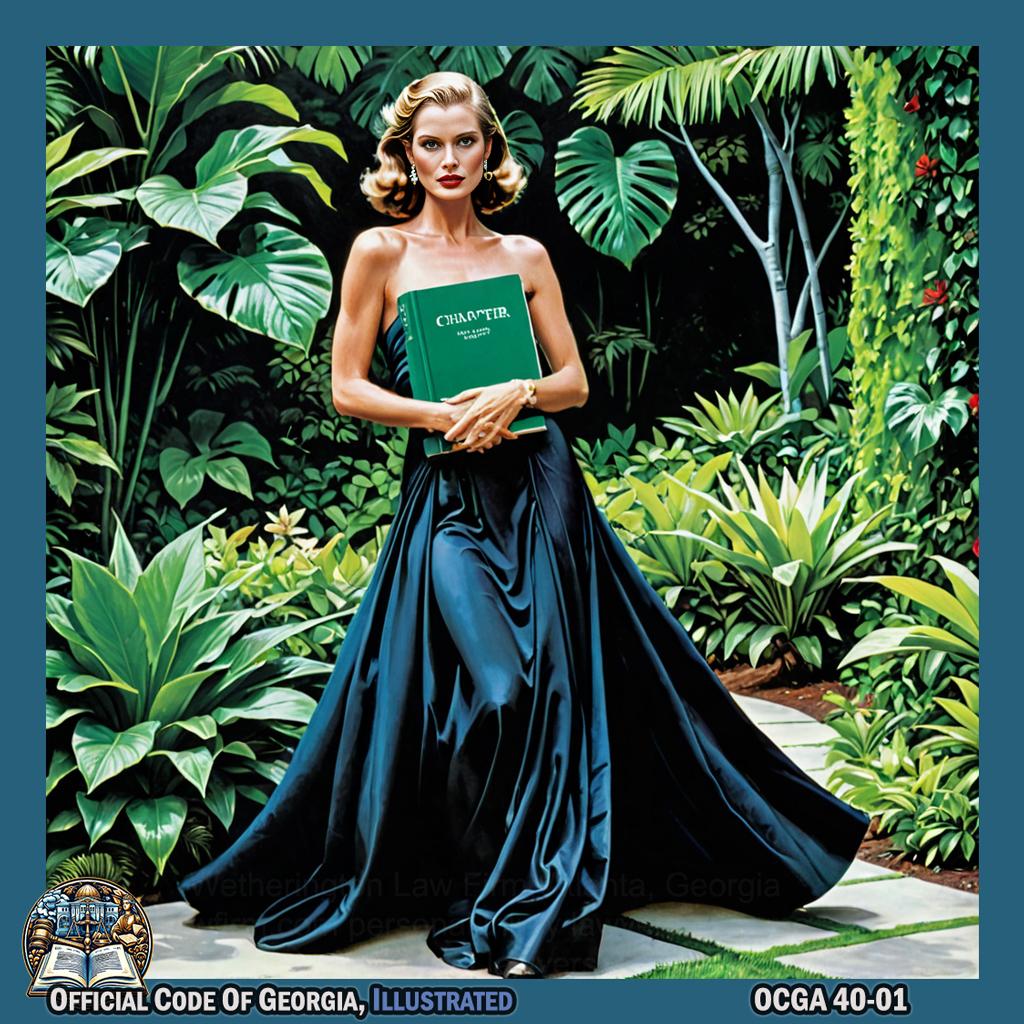
- Article 1 General Provisions
- Article 2 Transportation of Hazardous Materials
- Article 3 Motor Carriers

Warren Newson gracefully mimics the movement of a motor carrier while embodying the fluid, organic forms characteristic of Barbara Hepworth's art, creating an engaging and visually captivating performance piece in Smyrna.
Article 1 General Provisions¶
- 40-1-1. Definitions.
-
40-1-2. How horsepower determined.

Jeff Daniels, portraying a scientist, meticulously measures the power of a tiny, galloping horse using a magnifying glass in the rich scene set in Moultrie, Georgia. -@Jeff_Daniels -
40-1-3. Requiring or permitting unlawful operation of vehicle.
- 40-1-4. Stickers, decals, or emblems containing profane or lewd words describing sexual acts, excretory functions, or parts of the human body.
-
40-1-5. Disclosure by dealer of damage to new motor vehicles.
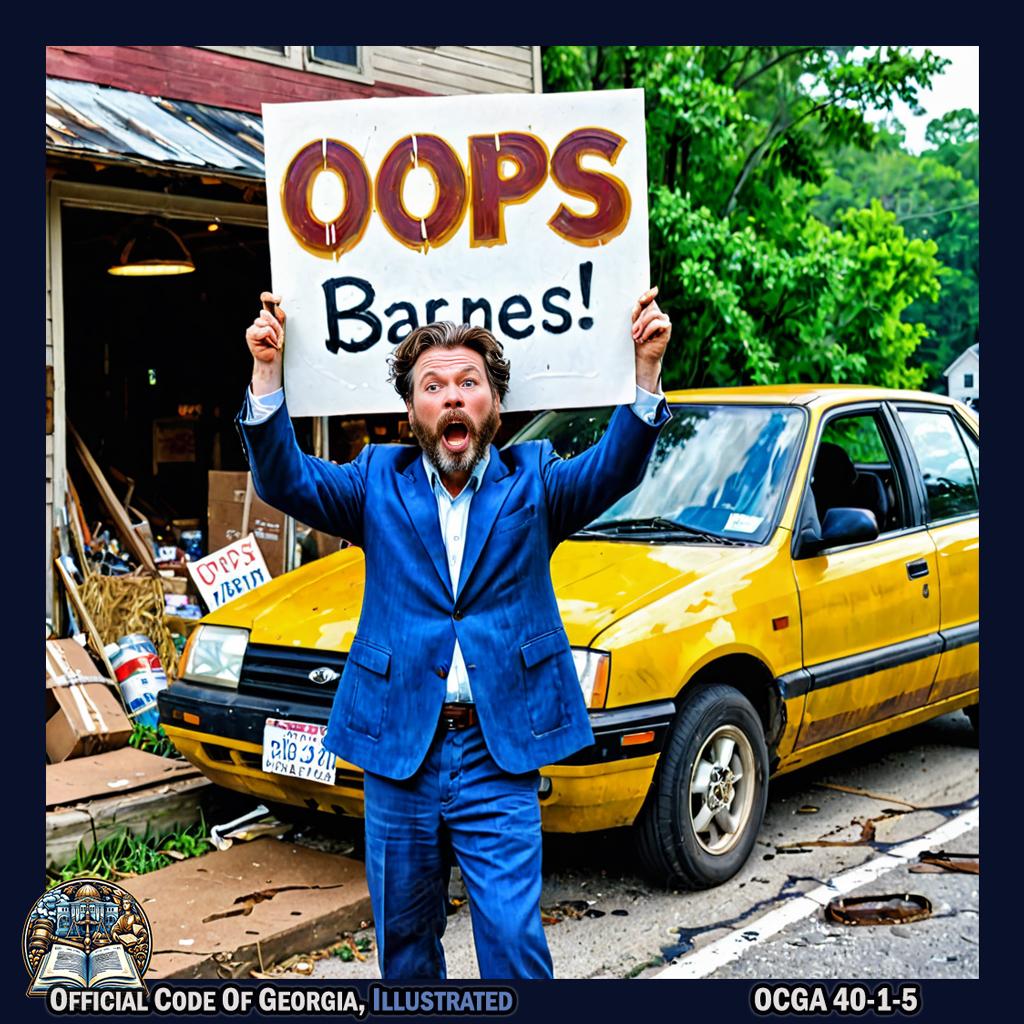
Actor Chris Barnes, in a rich scene at the Junkman's Daughter in Atlanta, Georgia, points to a car with a big crack and makes a surprised face while holding a sign that says "Oops!" -
40-1-6. Uniforms of law enforcement officers.

Football player Jarius Wynn, captured by Archie Rand in a dynamic art piece, simulates donning a police hat and belt before striding purposefully like a law enforcement officer. -@slickwynn94 -
40-1-7. Blue light required for officers enforcing traffic; exception.
-
40-1-8. Safe operations of motor carriers, commercial motor vehicles, and drivers; safe transportation of hazardous materials.

Actress and model Joelle Carter, as if in a Paul Gauguin art piece, pretends to drive a toy truck while holding a pretend hazardous material container and wearing a safety helmet. -@Joelle_Carter -
40-1-9. [Repealed] Analysis on elimination of revalidation decal requirement for motor vehicle registration.
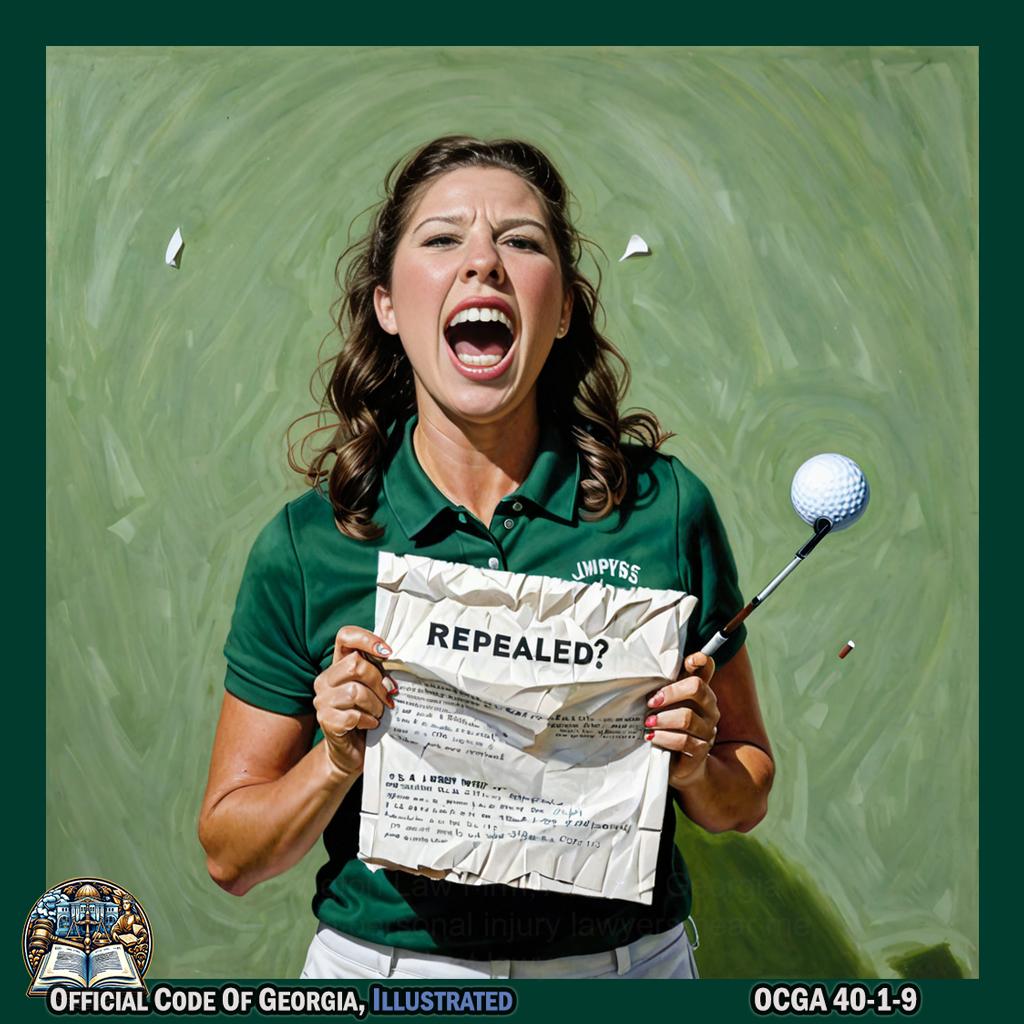
Louise Suggs, the golfer, performs as if in an art piece by Dan Witz: pretending to rip up a paper with the words "Repealed Analysis" and throwing it in the air while making a happy face.
40-1-1.Definitions.¶
As used in this title, the term:
- “Alcohol concentration” means grams of alcohol per 100 milliliters of blood or grams of alcohol per 210 liters of breath.
- “Alley” means a street or highway intended to provide access to the rear or side of lots or buildings in urban districts and not intended for the purpose of through vehicular traffic.
- “All-terrain vehicle” means a motorized vehicle originally manufactured for off-highway use which is equipped with three or more nonhighway tires, is 80 inches or less in width with a dry weight of 3,500 pounds or less, and is designed for or capable of cross-country travel on or immediately over land, water, snow, ice, marsh, swampland, or other natural terrain.
- “Arterial street” means any U.S. or state numbered route, controlled-access highway, or other major radial or circumferential street or highway designated by local authorities within their respective jurisdictions as part of a major arterial system of streets or highways.
-
“Authorized emergency vehicle” means a motor vehicle belonging to a public utility corporation or operated by the Department of Transportation and designated as an emergency vehicle by the Department of Public Safety; a motor vehicle belonging to a fire department or a certified private vehicle belonging to a volunteer firefighter or a fire-fighting association, partnership, or corporation; an ambulance; or a motor vehicle belonging to a federal, state, or local law enforcement agency, provided such vehicle is in use as an emergency vehicle by one authorized to use it for that purpose.

Soulja Boy, in the style of Fernand Léger, is depicted driving a colorful and dynamic emergency vehicle as part of an art piece at Mark of the Potter. -@souljaboy (5.1) “Automated driving system” means the hardware and software that are collectively capable of performing the entire dynamic driving task on a sustained basis, regardless of whether it is limited to a specific operational design domain.
-
“Bicycle” means every device propelled by human power upon which any person may ride, having only two wheels which are in tandem and either of which is more than 13 inches in diameter.

Robert Cray pantomimes riding a large bicycle, energetically pedaling and steering through an exhibit at the Birmingham Civil Rights Institute, while Gilbert and George, depicted in their signature suit attire, are superimposed into the scene as colorful stained-glass-like figures observing his actions with a mixture of curiosity and subtle approval. -@RobertCrayBand (6.1)“Bicycle lane” means a portion of the roadway that has been designated by striping, pavement markings, or signage for the exclusive or preferential use of persons operating bicycles and electric assisted bicycles or for travel by a personal delivery device. Bicycle lanes shall at a minimum, unless impracticable, be required to meet accepted guidelines, recommendations, and criteria with respect to planning, design, operation, and maintenance as set forth by the American Association of State Highway and Transportation Officials.
(6.2)“Bicycle path” means a right of way under the jurisdiction and control of this state or a local political subdivision thereof designated for use by bicycle and electric assisted bicycle riders or for travel by a personal delivery device.
(6.3)“Bicycle trailer” means every device pulled by a bicycle and designed by the manufacturer of such device to carry human passengers.
-
“Bus” means every motor vehicle designed for carrying more than ten passengers and used for the transportation of persons and every motor vehicle, other than a taxicab, designed and used for the transportation of persons for compensation.

Nick Markakis stands in front of a large, colorful mural at Skyview Atlanta, as he gestures with his hands and arms to mimic the shape of a bus while using exaggerated facial expressions to convey the definition of a bus through physical movement, capturing the attention and imagination of onlookers. -
“Business district” means the territory contiguous to and including a highway when within any 600 feet along such highway there are buildings in use for business or industrial purposes, including but not limited to hotels, banks, office buildings, railroad stations, and public buildings which occupy at least 300 feet of frontage on one side or 300 feet collectively on both sides of the highway.
(8.1)“Commercial motor vehicle” means any self-propelled or towed motor vehicle used on a highway in intrastate or interstate commerce or both to transport passengers or property when the vehicle:
- Has a gross vehicle weight rating, gross combination weight rating, gross vehicle weight, or gross combination weight of 4,536 kg (10,001 lbs.) or more;
-
Is designed or used to transport more than eight passengers, including the driver, for compensation;
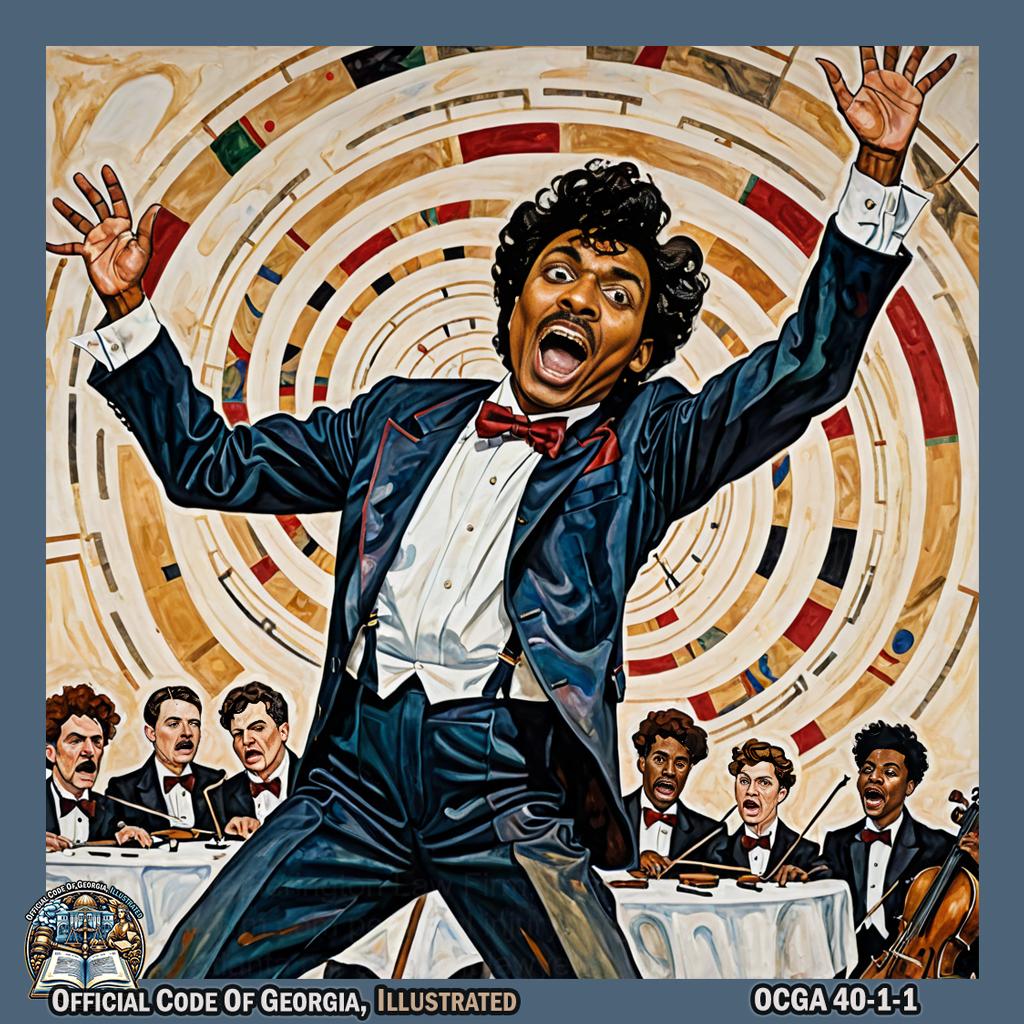
Little Richard swirling and dancing with exaggerated gestures, portraying a conductor leading a grand orchestra on a larger-than-life stage in Riverdale, capturing the essence of Egon Schiele's art. -
Is designed or used to transport more than 15 passengers, including the driver, and is not used to transport passengers for compensation; or
- Is used to transport material determined to be hazardous by the secretary of the United States Department of Transportation under 49 U.S.C. Section 5103 and transported in a quantity that requires placards under regulations prescribed under 49 C.F.R., Subtitle B, Chapter I, Subchapter C.
-
“Controlled-access highway” means every highway, street, or roadway in respect to which owners or occupants of abutting lands and other persons have no legal right of access to or from the same except only at such points and in such manner as may be determined by the public authority having jurisdiction over such highway, street, or roadway.
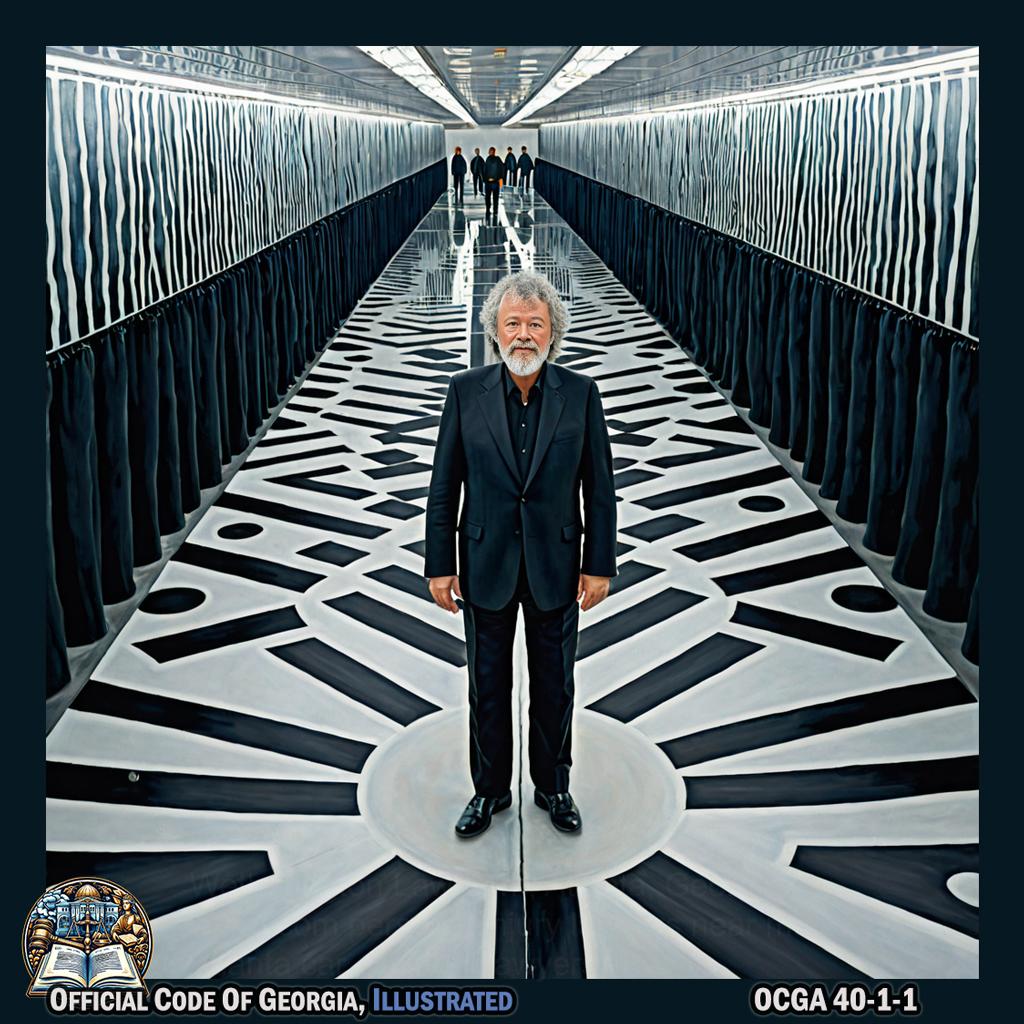
Chuck Leavell stands in the center of a controlled access highway, surrounded by countless mirrors reflecting his every move, as he gracefully navigates through an imaginary obstruction to reach the desired point of access. -@ChuckLeavell -
“Crosswalk” means:

David Cross slowly walks back and forth on a large expanse of pavement, using deliberate and exaggerated movements to mimic the act of crossing the street at a crosswalk. His body weaves in and out of imaginary cars with graceful fluidity, creating an abstract art piece reminiscent of Richard Serra's iconic sculptures. -@davidcrosss -
That part of a roadway at an intersection included within the connections of the lateral lines of the sidewalks on opposite sides of the highway measured from the curbs or in the absence of curbs, from the edges of the traversable roadway; or

Cyhi the Prynce is standing at an intersection, extending his arms to measure the lateral lines of the sidewalks on opposite sides of the highway, mimicking Paul Cézanne's style with fluid and dynamic movements. -@CyhiThePrynce -
Any portion of a roadway at an intersection or elsewhere distinctly indicated for pedestrian crossing by lines or other markings on the surface.
-
-
“Dealer” means a person engaged in the business of buying, selling, or exchanging vehicles who has an established place of business in this state.
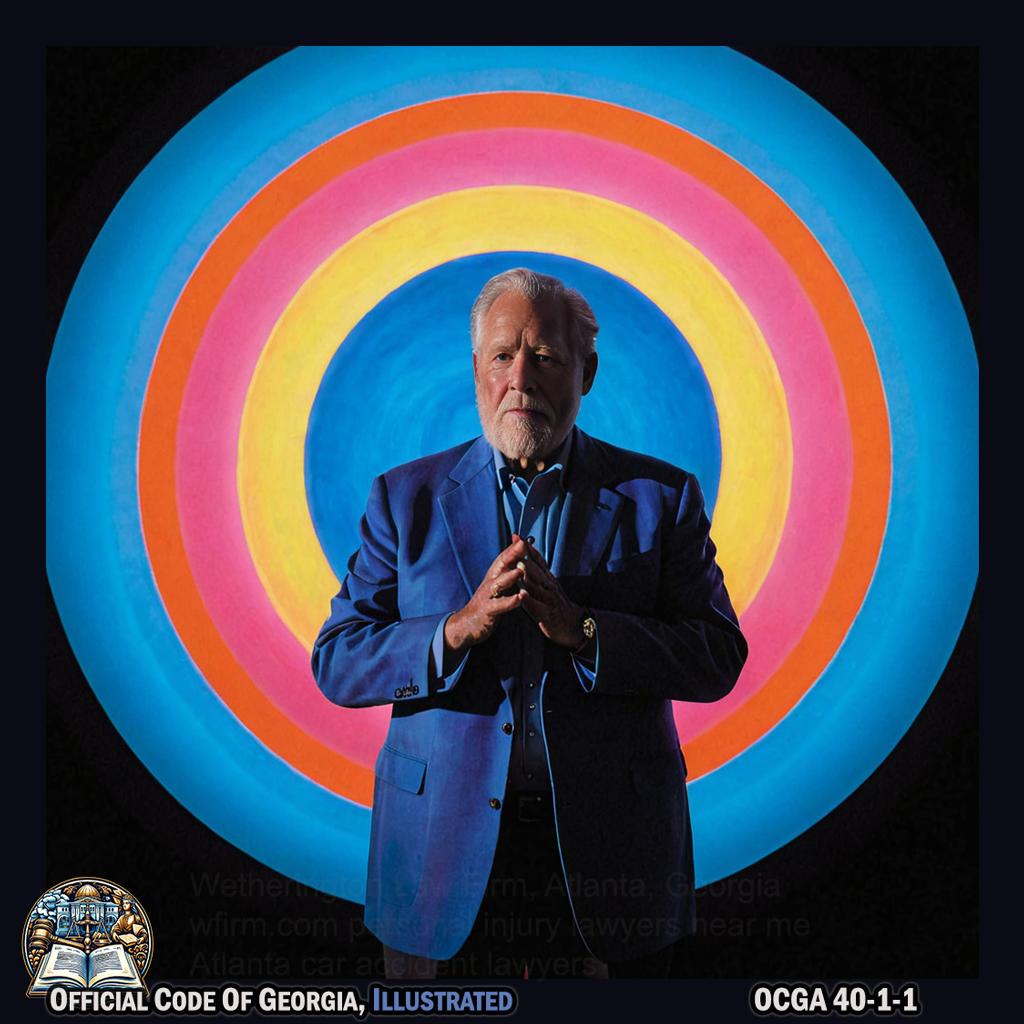
Joseph E. Brown slowly moves his hands in a circular motion, as if shaping an invisible sculpture, while his body casts dramatic shadows against the backdrop of a vibrant color-changing light installation in Marietta. -
“Demonstrator” means any motor vehicle which has not been the subject of a sale at retail to the general public but which has been operated on the roads of this state in the course of a motor vehicle dealer’s business.

Little Richard, dressed in a flamboyant outfit and with exaggerated gestures, acts out the process of driving a motor vehicle on the roads of the state as if he were a car dealer showcasing a new model. He creatively incorporates elements from Robert Indiana's art style into his movements, using bold and dynamic poses reminiscent of Indiana's iconic "LOVE" sculpture. The scene is set against the backdrop of Suar Hill, with vibrant colors and energetic music adding to the visual spectacle. -
“Divided highway” means a highway divided into two or more roadways by leaving an intervening space or by a physical barrier or by a clearly indicated dividing section so constructed as to impede vehicular traffic.
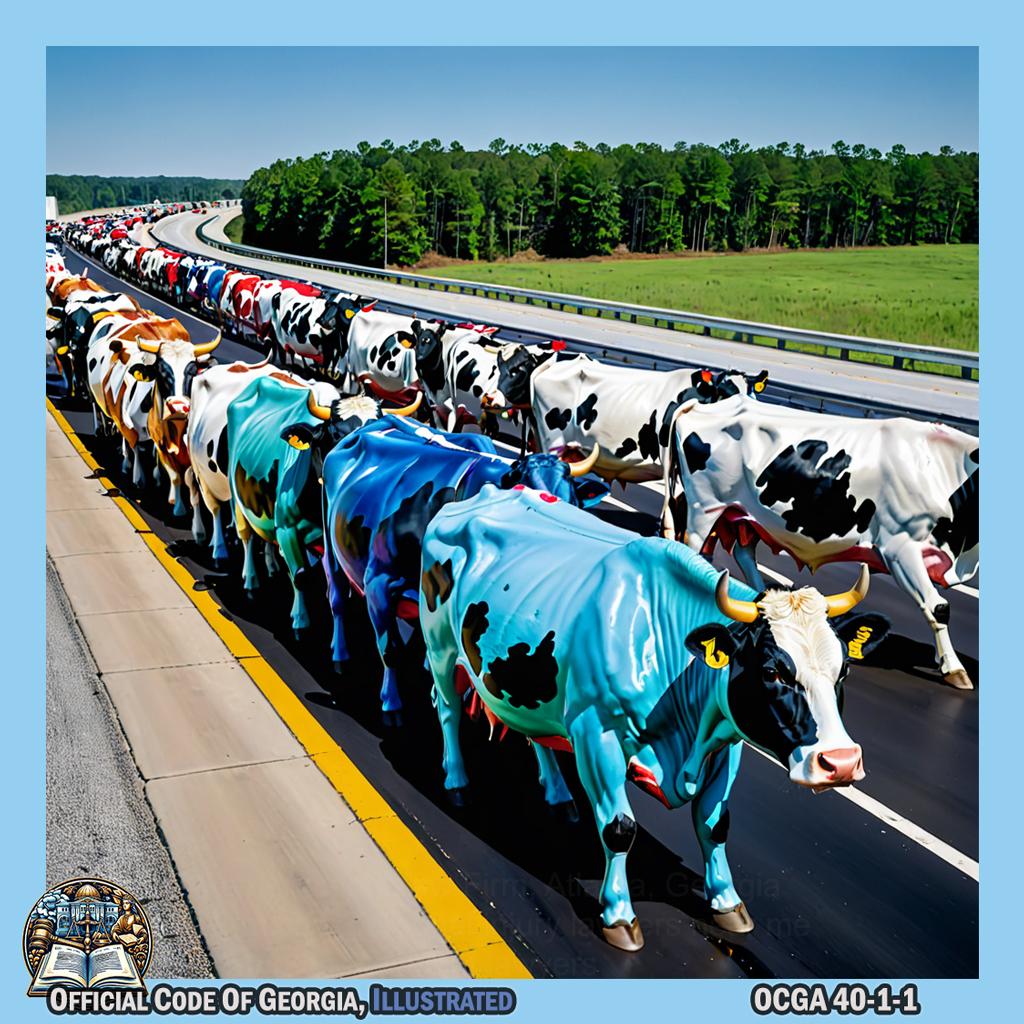
Interior Solutions employees create large-scale art installation at Cow Tower in Conyers Georgia featuring vividly painted plastic cows arranged into two distinct groups on either side of a constructed highway with the intervening space highlighted by an array of colorful materials or natural elements. This scene captures the essence of a divided highway while echoing Andres Serranos bold use of color and unexpected juxtapositions. -
“Driver” means every person who drives or is in actual physical control of a vehicle.

Jody Ridley, in the style of James Nachtwey, stands with intense focus and determination, gripping the steering wheel of a vintage race car as he skillfully maneuvers around a winding track, embodying the definition of "driver" by being in complete control of the vehicle. -
“Driver’s license” means any license to operate a motor vehicle issued in either a physical or electronic format under the laws of this state.
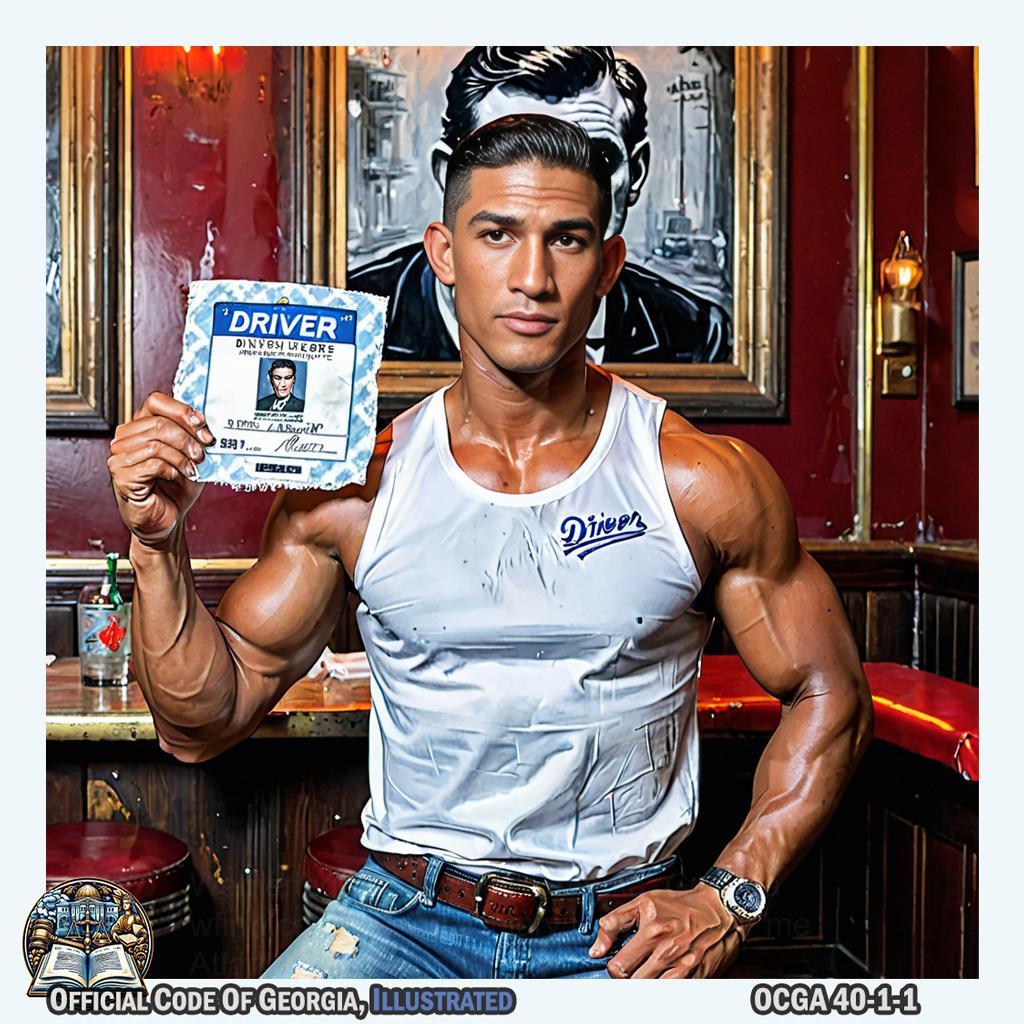
Pettis Norman dramatically holds up a napkin with the words "driver's license" written on it, while striking a powerful pose in the style of an art piece from Steven Meisel, within the richly decorated setting of Abe's on Lincoln bar in Savannah, Georgia. (15.1)“DUI Alcohol or Drug Use Risk Reduction Program” means a program certified by the Department of Driver Services in accordance with subsection (e) of Code Section 40-5-83.
(15.2)“Dynamic driving task” means all of the real-time operational and tactical functions required to operate a vehicle in on-road traffic, excluding the strategic functions such as trip scheduling and selection of destinations and waypoints, including without limitation:
(15.3)“Electric assisted bicycle” means a device with two or three wheels which has a saddle and fully operative pedals for human propulsion and also has an electric motor having a power output of not more than 750 watts.
(15.4)“Electric personal assistive mobility device” or “EPAMD” means a self-balancing, two nontandem wheeled device designed to transport only one person and having an electric propulsion system with average power of 750 watts (1 horsepower) and a maximum speed of less than 20 miles per hour on a paved level surface when powered solely by such propulsion system and ridden by an operator who weighs 170 pounds.
-
Lateral vehicle motion control via steering;

Keith Jackson, wearing a colorful race car driver's suit, energetically mimics holding a large steering wheel, twisting and turning with exaggerated motions against the backdrop of Toccoa Falls; his movements are captured in a dynamic collage of autumn leaves, water splashes from the falls, and vibrant silk fabrics representing roads that weave through the artwork in Rauschenberg's signature combine style. -
Longitudinal motion control via acceleration and deceleration;

Dwight Phillips dramatically leaps forward and backward along the Buckhead Village streets, his body forming exaggerated waves in mid-air to represent acceleration and deceleration, all while depicted in Goya's dark, Romantic style with swirling clouds and onlookers expressing awe. -@Dwightdagreat -
Monitoring the driving environment via object and event detection, recognition, classification, and response preparation;
-
Object and event response execution;
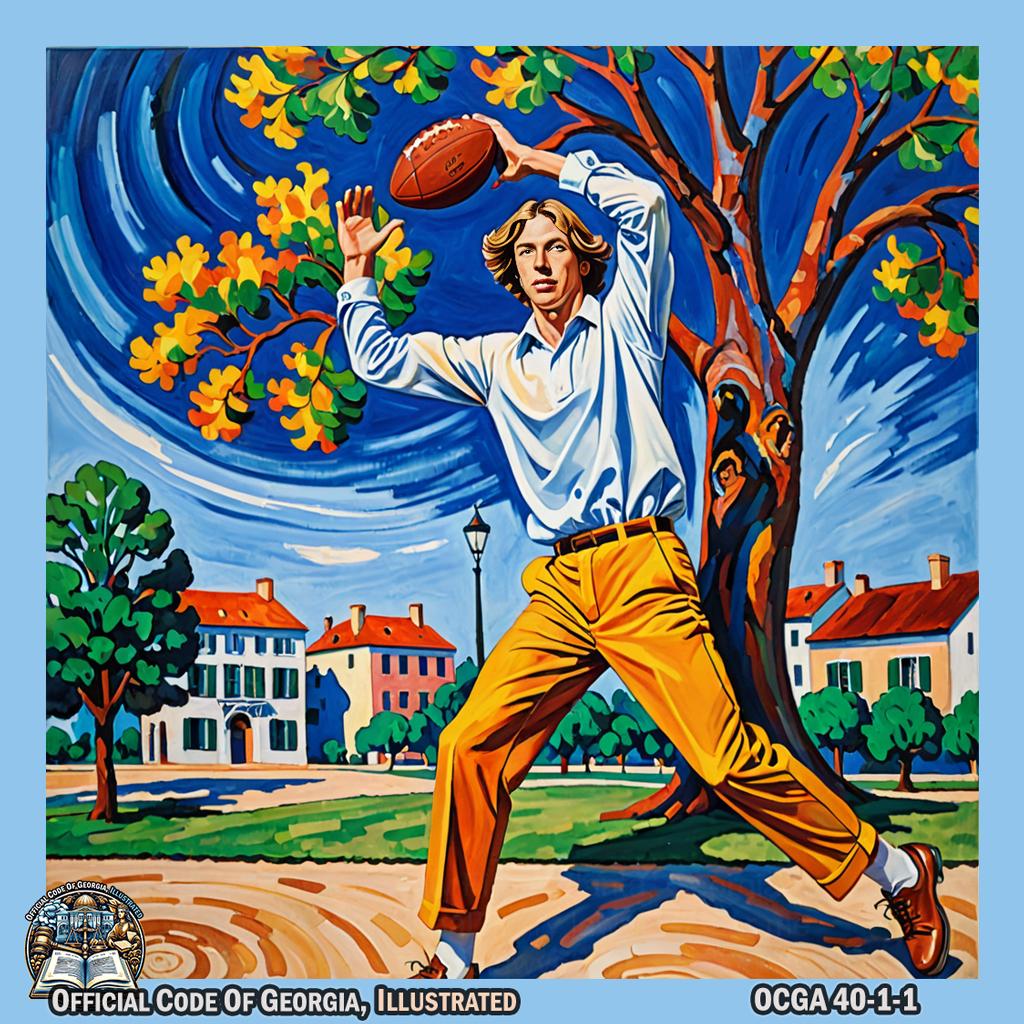
Trevor Lawrence, in vibrant Fauvist colors à la André Derain, throws a spiraling football energetically towards an oak tree in Jesup's town square, symbolizing the growth of knowledge and skill through practice and play. -@Trevorlawrencee -
Maneuver planning; and
- Enhancing conspicuity via lighting, signaling, and gesturing.
-
-
“Explosives” means any chemical compound or mechanical mixture that is commonly used or intended for the purpose of producing an explosion and which contains any oxidizing and combustive units or other ingredients in such proportions, quantities, or packing that an ignition by fire, by friction, by concussion, by percussion, or by detonator of any part of the compound or mixture may cause such a sudden generation of highly heated gases that the resultant gaseous pressures are capable of producing destructive effects on contiguous objects or of destroying life or limb.
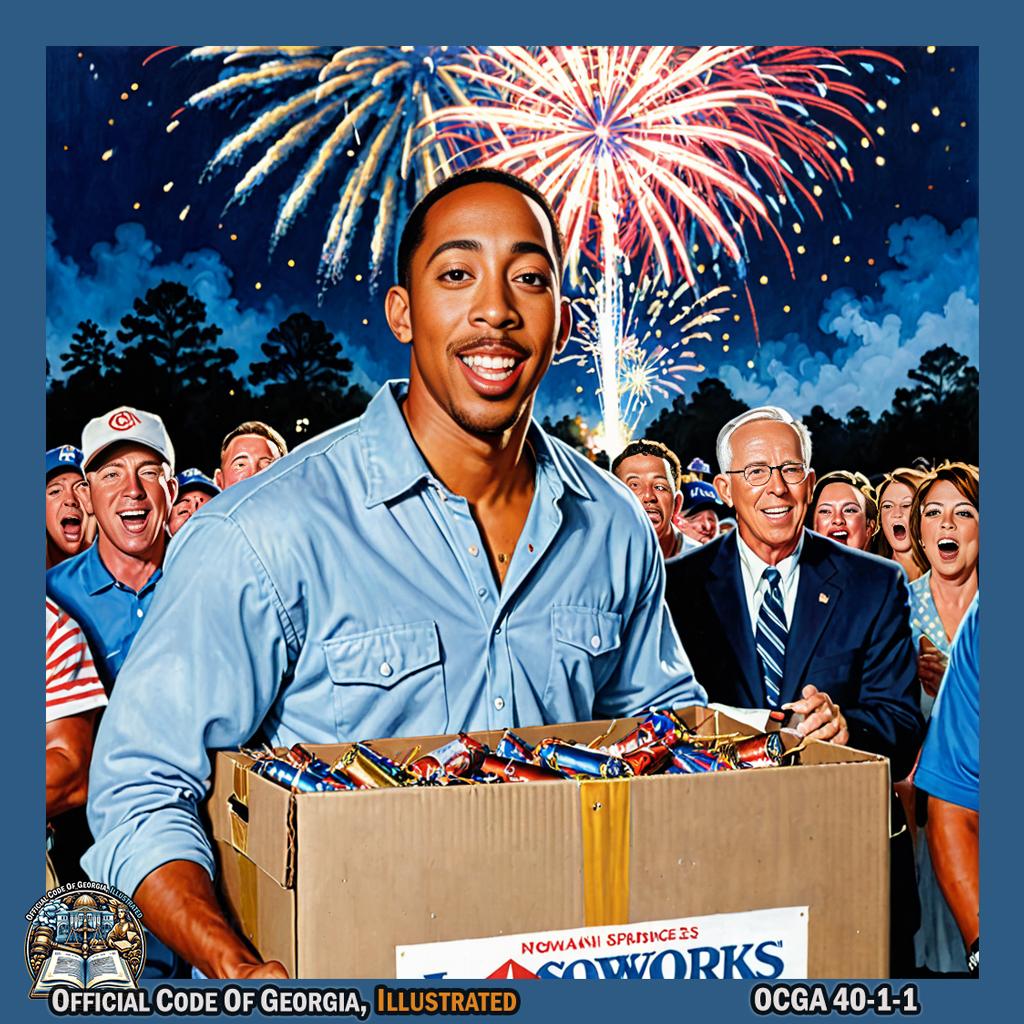
Ludacris is depicted in a Norman Rockwell-style art piece, holding a large box of fireworks and lighting a fuse while surrounded by excited onlookers in Powder Springs, Georgia. -@Ludacris -
“Flammable liquid” means any liquid which has a flash point of 141 degrees Fahrenheit or less.
(17.1)“Former military motor vehicle” means a motor vehicle which operates on the ground, including a trailer, that was manufactured for use in any country’s military forces and is maintained to represent its military design, regardless of the vehicle’s size, weight, or year of manufacture. Such term shall not include motor vehicles armed for combat or vehicles owned or operated by this state, the United States, or any foreign government.
(17.2)“Fully autonomous vehicle” means a motor vehicle equipped with an automated driving system that has the capability to perform all aspects of the dynamic driving task without a human driver within a limited or unlimited operational design domain and will not at any time request that a driver assume any portion of the dynamic driving task when the automated driving system is operating within its operational design domain.
(17.3)“Golf car” or “golf cart” means any motorized vehicle designed for the purpose and exclusive use of conveying one or more persons and equipment to play the game of golf in an area designated as a golf course. For such a vehicle to be considered a golf car or golf cart, its average speed shall be less than 15 miles per hour (24 kilometers per hour) on a level road surface with a 0.5% grade (0.3 degree) comprising a straight course composed of a concrete or asphalt surface that is dry and free from loose material or surface contamination with a minimum coefficient of friction of 0.8 between tire and surface.
-
“Gross weight” means the weight of a vehicle without load plus the weight of any load thereon.
(18.1)“Hazardous material” means a substance or material as designated pursuant to the Federal Hazardous Materials Law, 49 U.S.C. Section 5103(a).
-
“Highway” means the entire width between the boundary lines of every way publicly maintained when any part thereof is open to the use of the public for purposes of vehicular travel.
-
“House trailer” means:
-
A trailer or semitrailer which is designed, constructed, and equipped as a dwelling place or living abode (either permanently or temporarily) and is equipped for use as a conveyance on streets and highways; or
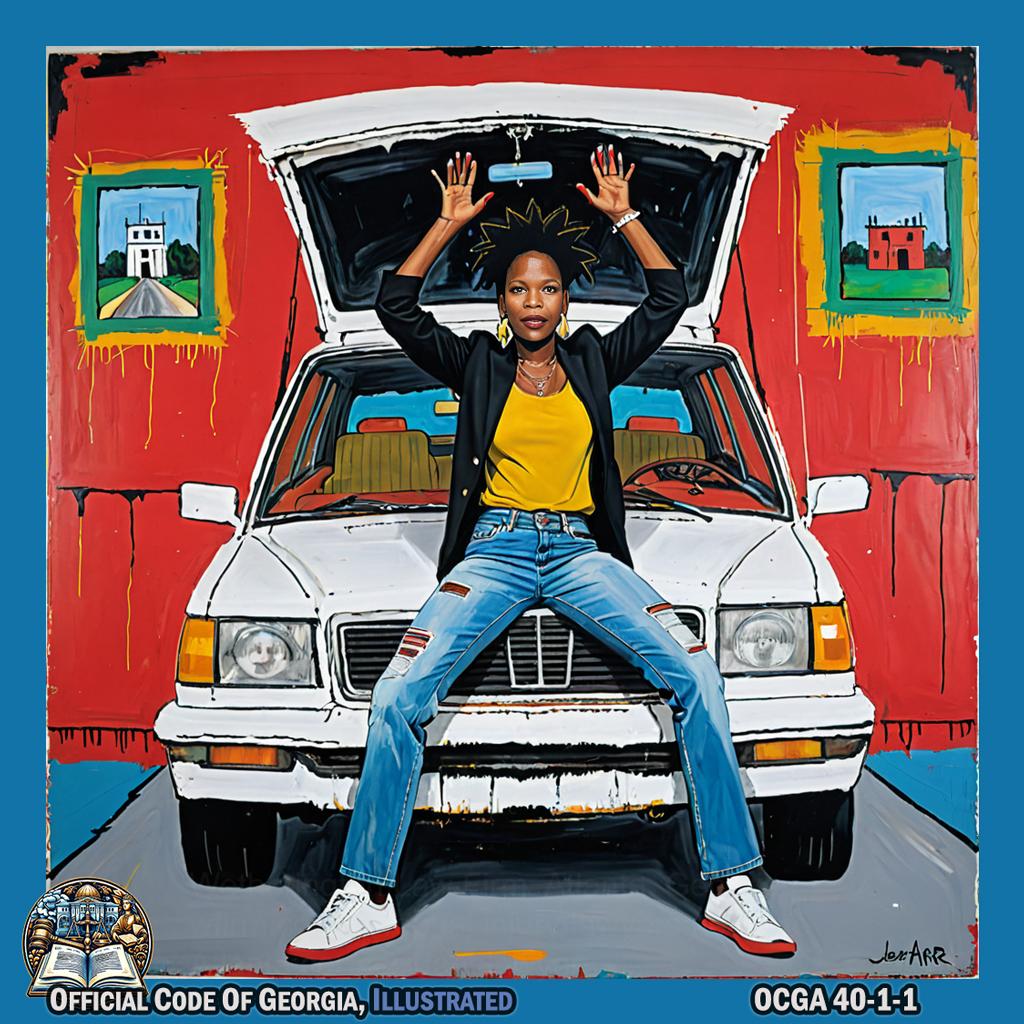
India.Arie, embodying the spirit of a Basquiat art piece, mimics driving a car with her hands and feet, creating "beep beep" sounds before transitioning to setting up an imaginary house inside the car. -@indiaarie -
A trailer or a semitrailer whose chassis and exterior shell is designed and constructed for use as a house trailer, as defined in subparagraph (A) of this paragraph, but which is used instead permanently or temporarily for the advertising, sales, display, or promotion of merchandise or services, or for any other commercial purpose except the transportation of property for hire or the transportation of property for distribution by a private carrier.
(20.1)“Identification card” means any document in either a physical or electronic format issued by the Department of Driver Services under the laws of this state for purposes of proving identity of the holder.
-
-
“Implement of husbandry” means a vehicle designed and adapted exclusively for agricultural, horticultural, or livestock-raising operations or for lifting or carrying an implement of husbandry and in either case not subject to registration if used upon the highways.
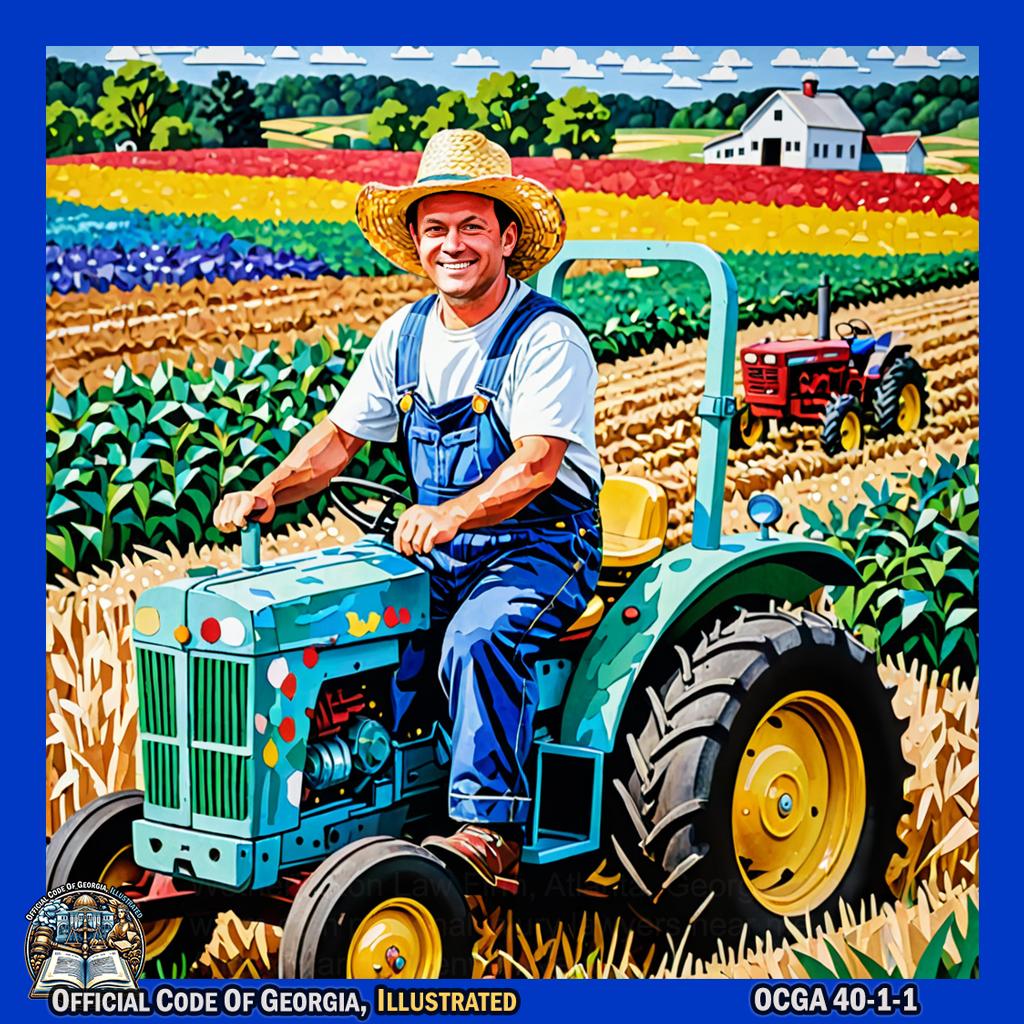
B. B. Sams, dressed in overalls and a straw hat, joyfully drives a whimsically crafted tractor made of colorful paper cutouts through a lush field as if in an art piece by Vik Muniz, capturing the spirit of agricultural life in Grovetown. (21.1)“Infant sling” means every device which is designed by the manufacturer to be worn by a person for the purpose of carrying an infant either on the chest or back of the wearer.
-
-
“Intersection” means the area embraced within the prolongation or connection of the lateral curb lines, or, if none, then the lateral boundary lines of the roadways of two highways which join one another at, or approximately at, right angles, or the area within which vehicles traveling upon different highways joining at any other angle may come in conflict.
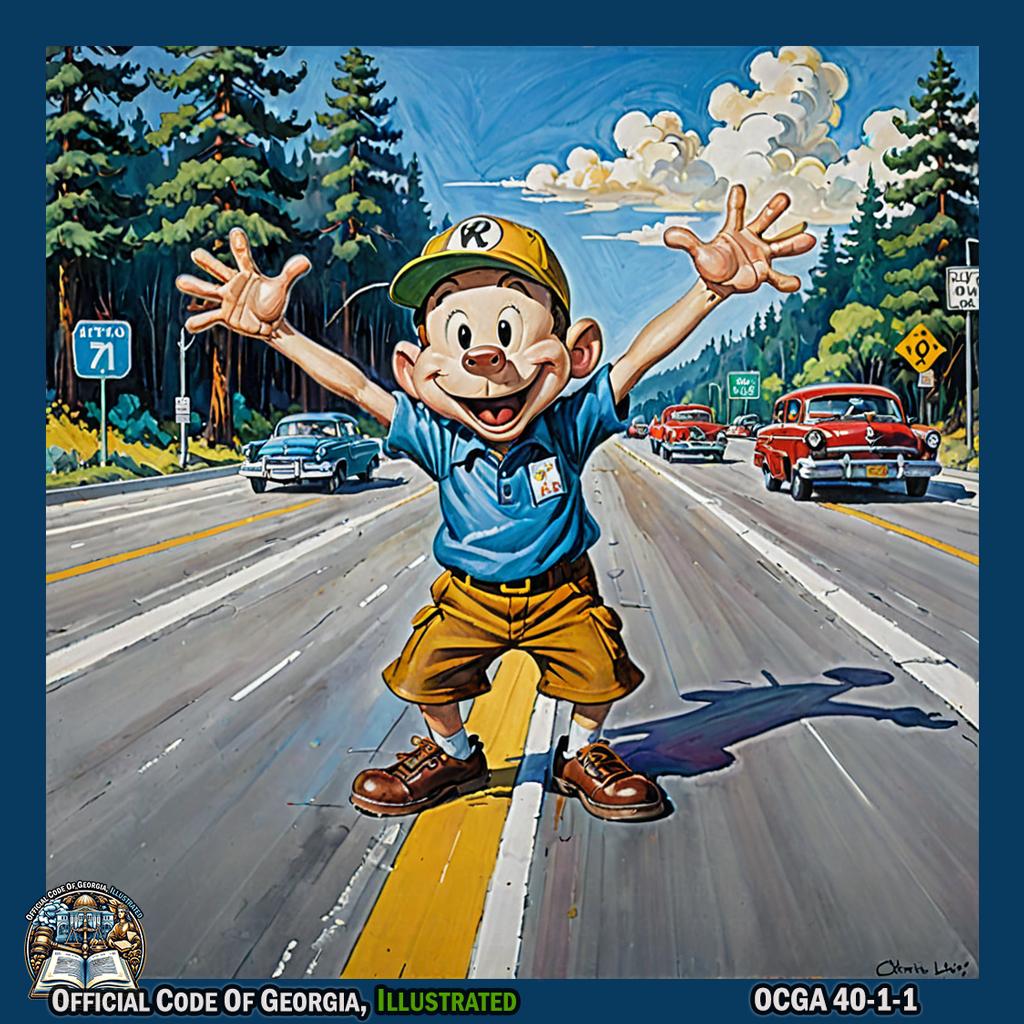
Walt Kelly, as Pogo, stands at the intersection of two highways with his arms outstretched to represent the area embraced within the prolongation or connection of the lateral curb lines. As he does this, vehicles traveling upon different highways join at various angles and come in conflict around him. The scene is depicted in the style of Christian Lock's art piece, with vibrant colors and bold brushstrokes capturing the dynamic movement and energy of the intersecting vehicles. -
Where a highway includes two roadways 30 feet or more apart, then every crossing of each roadway of such divided highway by an intersecting highway shall be regarded as a separate intersection. In the event such intersecting highway also includes two roadways 30 feet or more apart, then every crossing of two roadways of such highways shall be regarded as a separate intersection.
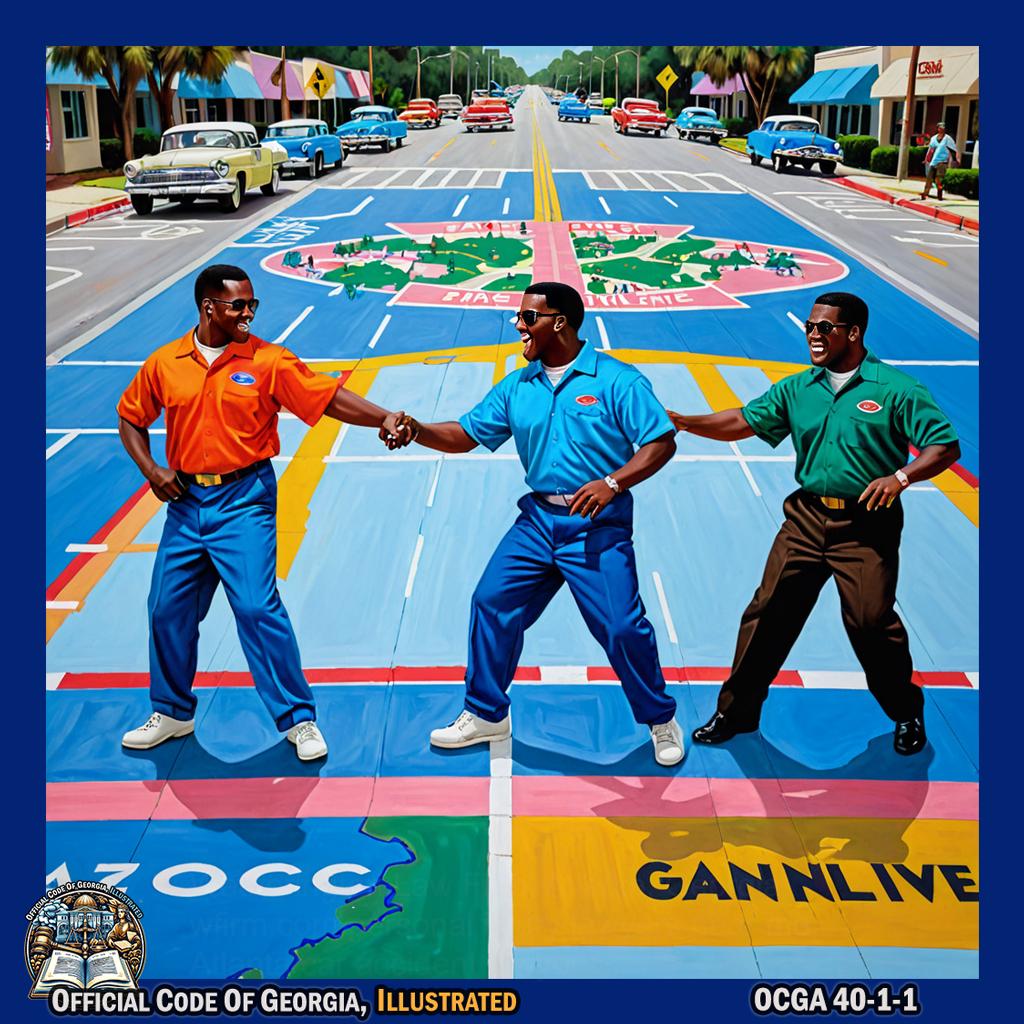
Dem Franchize Boyz is depicted as miniature figures dancing on an oversized, colorful map of Gainesville, with each member standing at the end of a distinct roadway. They perform coordinated dance moves that mimic cars safely navigating through separate intersections, highlighting the traffic rule through their choreography. The art style is reminiscent of 1950s American Pop Art to make it vibrant and engaging. -@FranchizeBoyz -
The junction of an alley with a street or highway shall not constitute an intersection.
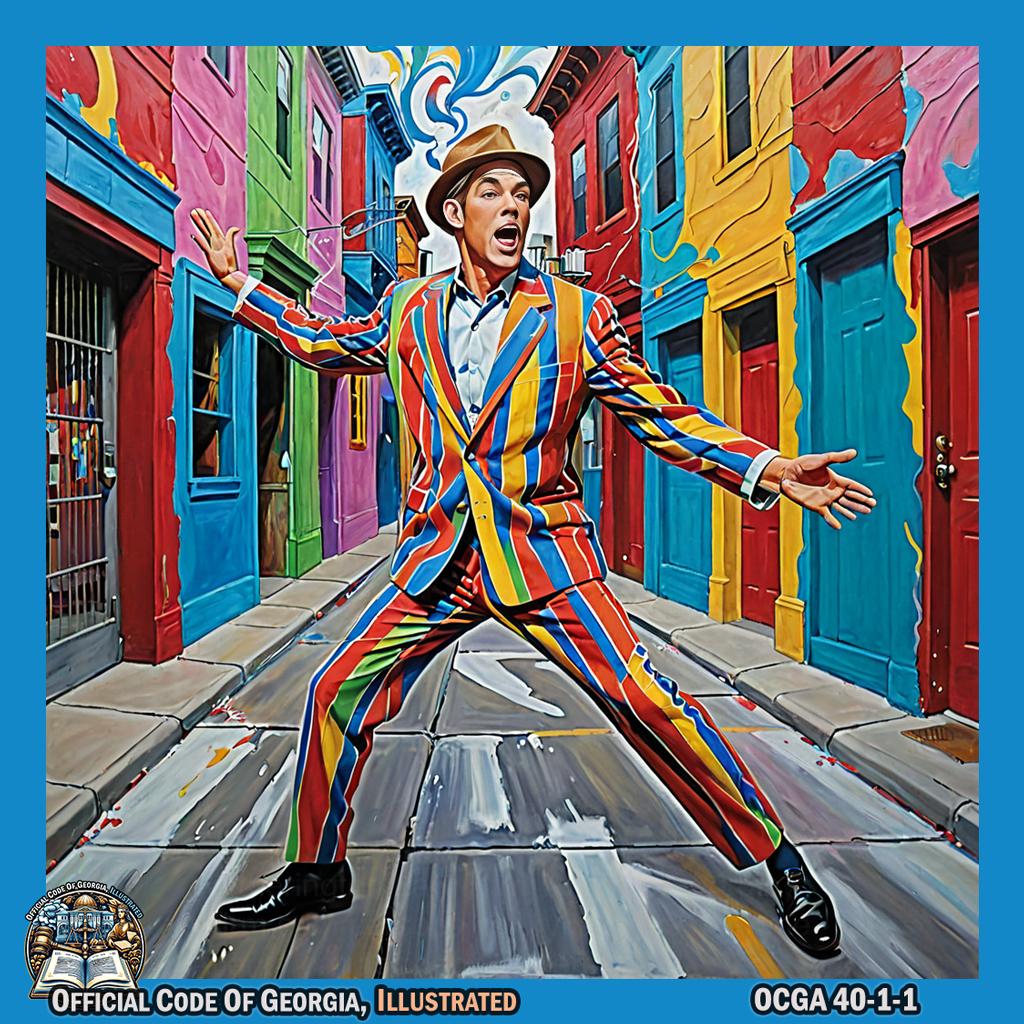
Travis Richter, dressed in vibrant abstract patterns à la de Kooning, energetically mimes driving and then comes to an abrupt stop with exaggerated surprise at the junction of a colorful alley and street, while a painted backdrop swirls with dynamic brushstrokes representing Americus' historic architecture. -@TravisRichter
-
-
“Laned roadway” means a roadway which is divided into two or more clearly marked lanes for vehicular traffic.

Russell And Company enacts the laned roadway by standing in a divided space, with arms outstretched to represent different lanes, using fluid movements and reflective materials to emulate Rob Mulholland's artistry at The Marshall House in Savannah. -
“License” or “license to operate a motor vehicle” means any driver’s license or any other license or permit to operate a motor vehicle issued in either a physical or electronic format under, or granted by, the laws of this state, including:

Lil Baby sits in a vibrant, patterned classroom setting inspired by Sofia Bonati's style, gently turning an oversized, colorful steering wheel with focused attention while a backdrop of Dalton's lush carpeted hills and textile mills unfolds behind him. -@lilbaby4PF -
Any temporary license or instruction permit;

A person could hold up an imaginary license or permit and pretend to examine it closely, while moving their head from side to side in a dramatic and expressive manner. -
The privilege of any person to drive a motor vehicle whether or not such person holds a valid license; and
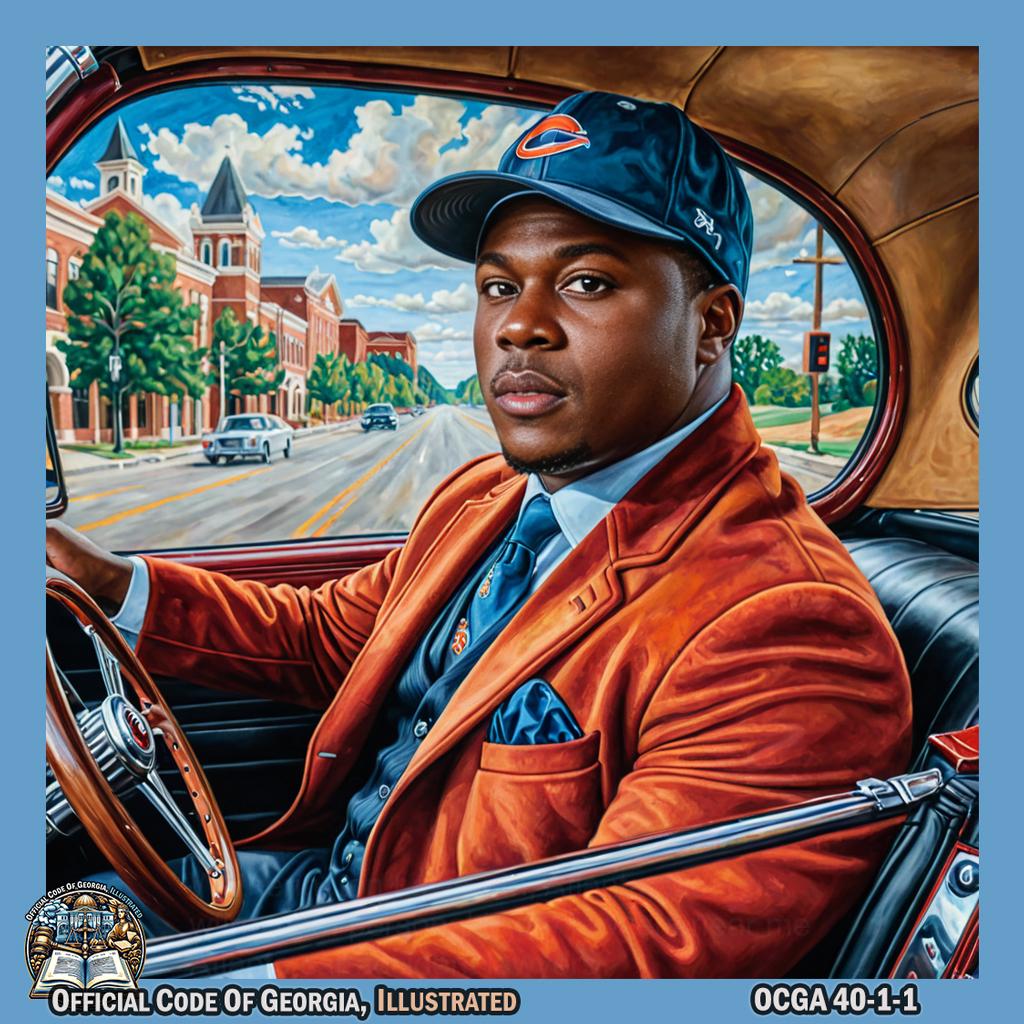
Knowshon Moreno sits in a sleek, vintage car, confidently gripping the steering wheel while wearing an elegant driver's hat and coat. The scene is captured in the style of a dramatic renaissance painting, with vibrant colors and intricate details adorning the Averitt Center for the Arts & Emma Kelly Theater as the backdrop. -@knowshonmoreno -
Any nonresident’s operating privilege as defined in this Code section.
- Is used to transport hazardous materials in a type and quantity for which placards are not required in accordance with the Hazardous Materials Regulations prescribed by the United States Department of Transportation, Title 49 C.F.R. Part 172, Subpart F, or compatible rules prescribed by the commissioner of public safety;
- Is used to transport property for compensation;
-
Is used to transport passengers for compensation, other than a taxicab; or
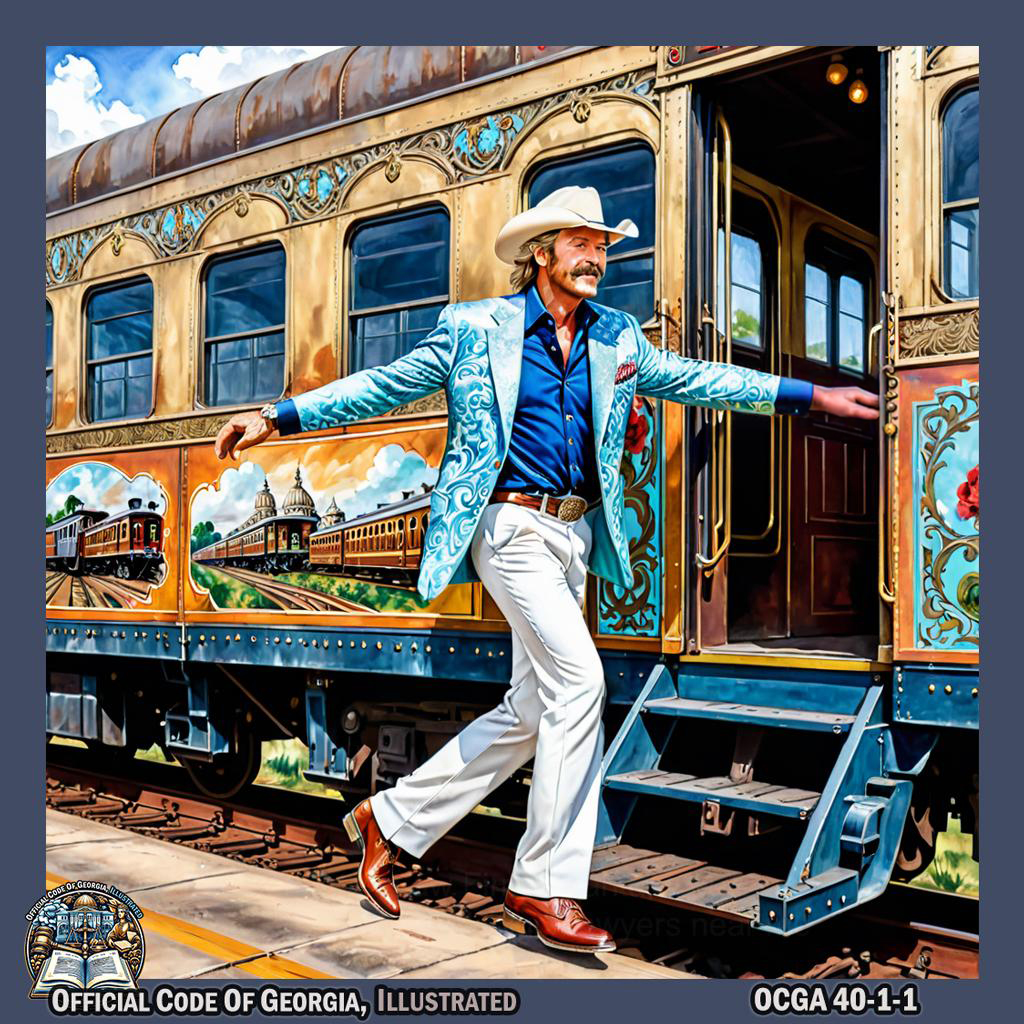
Alan Jackson elegantly pirouettes while pushing a vintage train car adorned with ornate paintings, transporting passengers in exchange for payment, all set against the backdrop of the historic Southern Railway Depot in Rome, Georgia. -@OfficialJackson -
Is a wrecker or tow truck.
(24.1)“Lightweight commercial vehicle” means a motor vehicle which does not meet the definition of a commercial motor vehicle and which, in the furtherance of a commercial enterprise:
(24.2)“Limousine” has the same meaning as provided in paragraph (4) of Code Section 40-1-151.
-
-
“Local authorities” means every county, municipal, and other local board or body having authority to enact laws relating to traffic under the Constitution and laws of this state.

The B-52's gracefully and dramatically enact the process of enacting traffic laws as if it were a scene from a Sandro Botticelli painting, with flowing movements and gestures reminiscent of classical art, all set in the vibrant backdrop of Brookwood neighborhood in Atlanta. -@TheB52s (25.1)“Low-speed vehicle” means any four-wheeled vehicle whose top speed attainable in one mile is greater than 20 miles per hour but not greater than 25 miles per hour on a paved level surface and which is manufactured or converted to comply with standards based upon those federal motor vehicle safety standards for low-speed vehicles set forth in 49 C.F.R. Section 571.500, as amended.
(25.2)“Managed lane” means a designated lane or series of designated lanes which utilize tolls payable to the State Road and Tollway Authority and which may use other lane management strategies in order to manage the flow of traffic. Such additional lane management strategies may include, but are not limited to, value pricing, vehicle occupancy requirements, or vehicle type restrictions, or any combination thereof.
-
“Manufacturer” means a person engaged in the manufacture of vehicles and who has an established place of business in this state. Pertaining to PTVs only, the term “manufacturer” also means any person engaged in the manufacture of vehicles who does business in this state, including but not limited to any person who makes modifications to a vehicle that are not approved by the original equipment manufacturer and which may adversely affect the safe operation and performance of the vehicle.

Telvin Smith gracefully stands in the abandoned Braswell Mountain Rail Tunnel, manipulating pieces of metal and machinery with a whimsical and dreamlike flair, as if performing an interpretive dance to represent the complex legal definition of "manufacturer" in the state of Georgia pertaining to PTVs, all captured in the surreal style reminiscent of Marc Chagall's artwork. -@TelvinSmith_22 (26.1)“Manufacturer headquarters” means the headquarters operation of:
-
A manufacturer as defined in paragraph (26) of this Code section; or

Champ Bailey, the football player, is depicted in Dellamarie Parrilli's art piece as operating a large machine with levers and buttons while donning a hard hat. -@champbailey -
An affiliate of a person engaged in the manufacture of vehicles in this or any other state and which operation is conducted primarily at an established place of business in this state.

Keith Strickland acts as a mechanic assembling a colorful fabric car installation, surrounded by children playing with textile instruments, in an immersive exhibit at the Creative Discovery Museum inspired by Letitia Huckaby's quilted art style.
-
-
“Metal tire” means every tire of which the surface in contact with the highway is wholly or partly of metal or other hard, nonresilient material. A vehicle shall be considered equipped with metal tires when metal tires are used on two or more wheels.
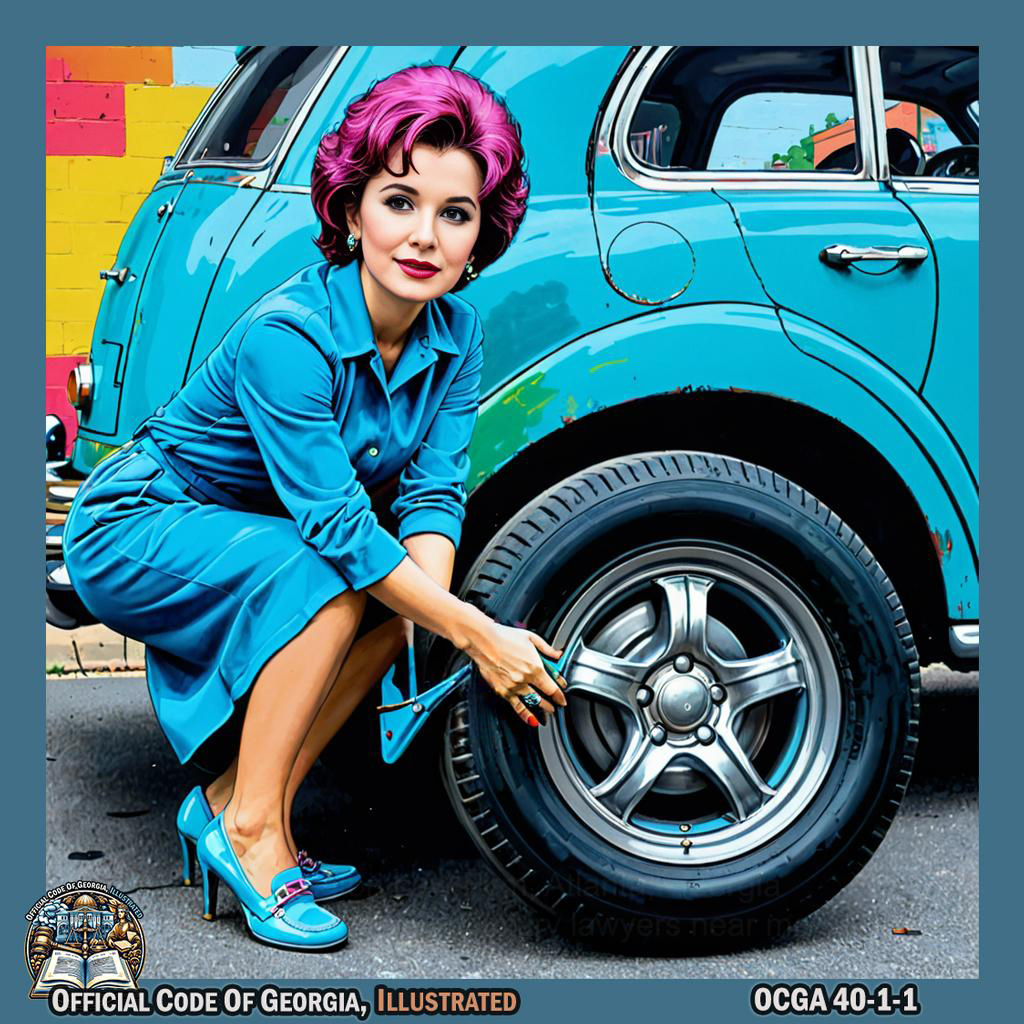
Brenda Lee rolling a car with metal tires on two or more wheels, in the style of an Andy Warhol art piece, set in a vibrant and colorful scene in Dunwoody. -@BrendaL33287831 (27.1)“Minimal risk condition” means a low-risk operating mode in which a fully autonomous vehicle operating without a human driver achieves a reasonably safe state, such as bringing the vehicle to a complete stop, upon experiencing a failure of the vehicle’s automated driving system that renders the vehicle unable to perform the entire dynamic driving task.
-
“Moped” means a motor driven cycle equipped with two or three wheels, with or without foot pedals to permit muscular propulsion, and an independent power source providing a maximum of two brake horsepower. If a combustion engine is used, the maximum piston or rotor displacement shall be 3.05 cubic inches (50 cubic centimeters) regardless of the number of chambers in such power source. The power source shall be capable of propelling the vehicle, unassisted, at a speed not to exceed 30 miles per hour (48.28 kilometers per hour) on level road surface and shall be equipped with a power drive system that functions directly or automatically only, not requiring clutching or shifting by the operator after the drive system is engaged.

Ossie Davis, dressed in a vibrant, flowing outfit reflecting Georgia O'Keeffe's floral palette, gracefully poses on a stationary moped. He mimics the act of pedaling and twisting the throttle while gazing ahead as if feeling the wind against his face, surrounded by oversized, abstract flower sculptures reminiscent of O'Keeffe's work against the backdrop of Marietta Street Artery's urban canvas. (28.1)“Motor carrier” shall have the same meaning as provided for in Code Section 40-2-1, and the terms “carrier” and “motor carrier” are synonymous.
-
“Motorcycle” means every motor vehicle having a seat or saddle for the use of the rider and designed to travel on not more than three wheels in contact with the ground, but excluding a tractor, all-terrain vehicle, and moped.

Jared Cook, wearing a motorcycle helmet, straddles a large metal sculpture resembling a motorcycle with three wheels, his body leaning into the wind as if riding through an abstract landscape within the Birmingham Civil Rights Institute. -@JaredCook89 -
“Motor driven cycle” means every motorcycle, with a motor which produces not to exceed five brake horsepower, and every moped.
- “Motor home” means every motor vehicle designed, used, or maintained primarily as a mobile dwelling, office, or commercial space.
-
Reserved.

Abner Jay, dressed in a suit and bowler hat, stands with his back to the viewer, holding a large pocket watch in one hand while his other hand gestures towards an empty chair. The scene is set in a surrealist landscape of Sugar Hill, Georgia, with melting clocks draped over tree branches and the sky filled with floating umbrellas. -
“Motor vehicle” means every vehicle which is self-propelled other than a personal delivery device, an electric assisted bicycle, or an electric personal assistive mobility device (EPAMD).
(33.1)“Multipurpose off-highway vehicle” means any motorized vehicle having features specifically intended for utility use and having the following characteristics:
-
Has the capability to transport persons or cargo or both;
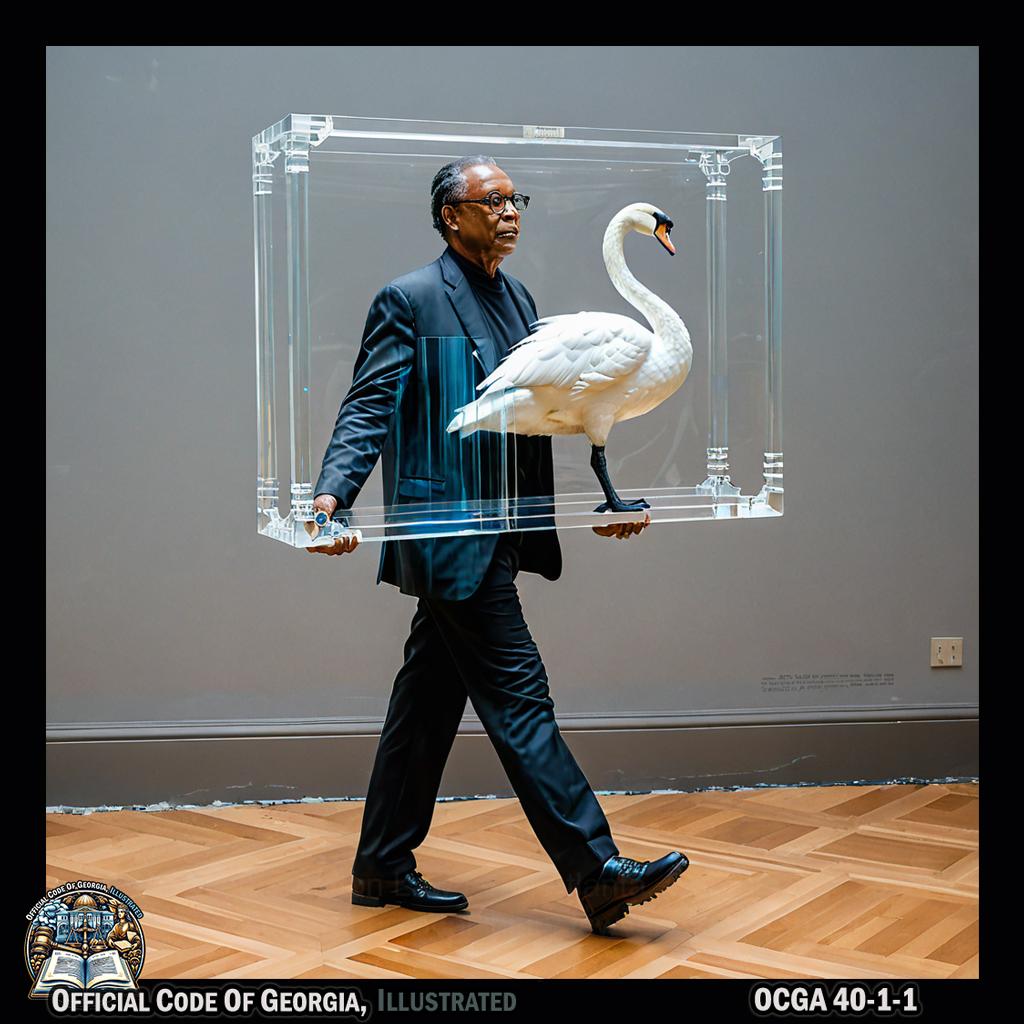
Horace Henderson gracefully lifts and carries a transparent sculpture representing people and cargo, evoking Jenny Holzer's style, within the opulent setting of Swan House at Atlanta History Center. -
Operates between 25 miles per hour (40.2 kilometers per hour) and 50 miles per hour (80.4 kilometers per hour);
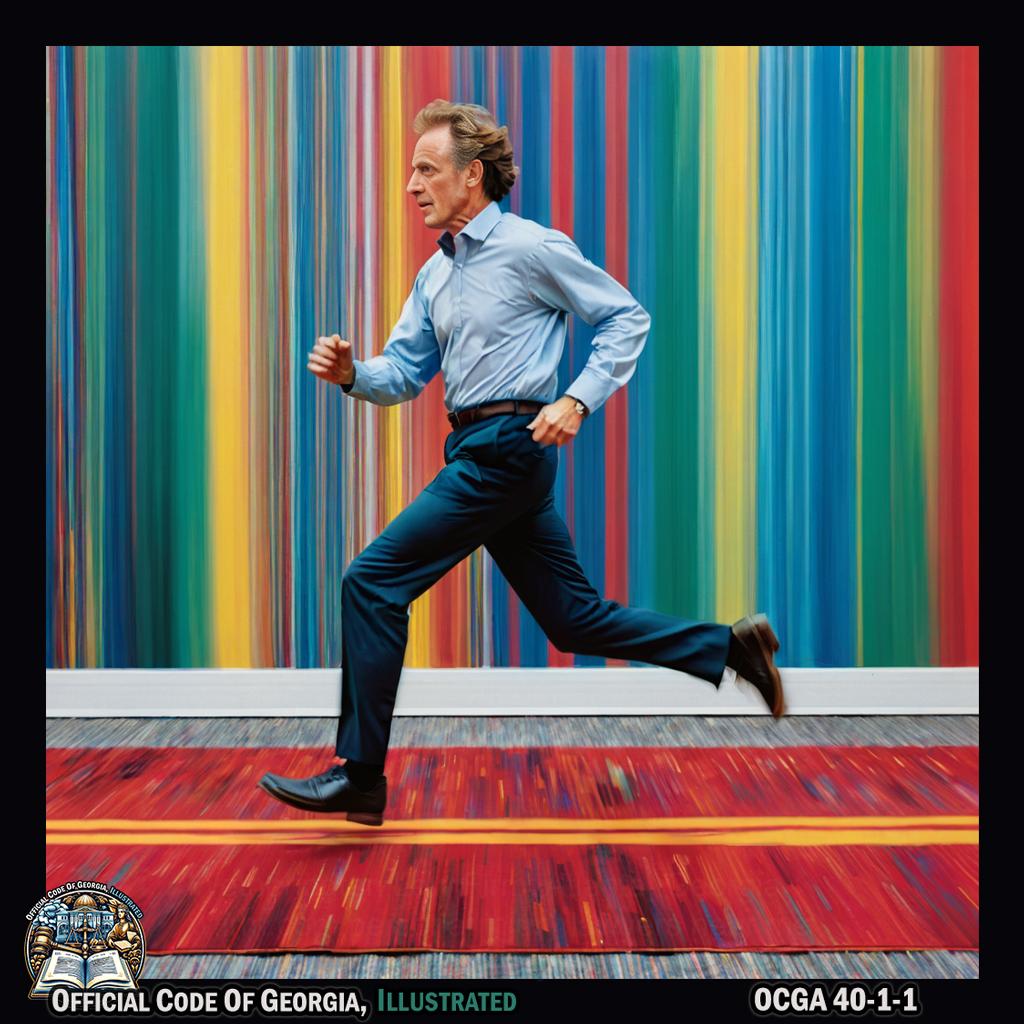
J. T. Thomas sprints across a red carpet at varying speeds marked by colorful blur lines, reminiscent of Richter's abstract paintings, with the Atlanta skyline in the background and film reels scattered along his path to illustrate speed intervals. -@TheRealJT3 -
Has an overall width of 80 inches (2,030 millimeters) or less, exclusive of accessories or attachments;

Lindsay Scott gracefully extends his arms to the side, measuring an invisible width with precise hand movements, embodying the minimalist aesthetic of Donald Judd's art piece in a serene and captivating setting in Clermont, Georgia. -
Is designed to travel on four or more wheels;

Dean Alford gracefully glides across the stage on a four-wheeled contraption, embodying the essence of Enric Majoral's art, at Atlanta Summer Beef Fest. -
Uses a steering wheel for steering control;

Tyler Flowers gracefully mimics the act of steering a baseball bat as if it were a steering wheel, capturing the essence of control and precision in an artful display representing South Atlanta's vibrant spirit. -
Contains a nonstraddle seat;
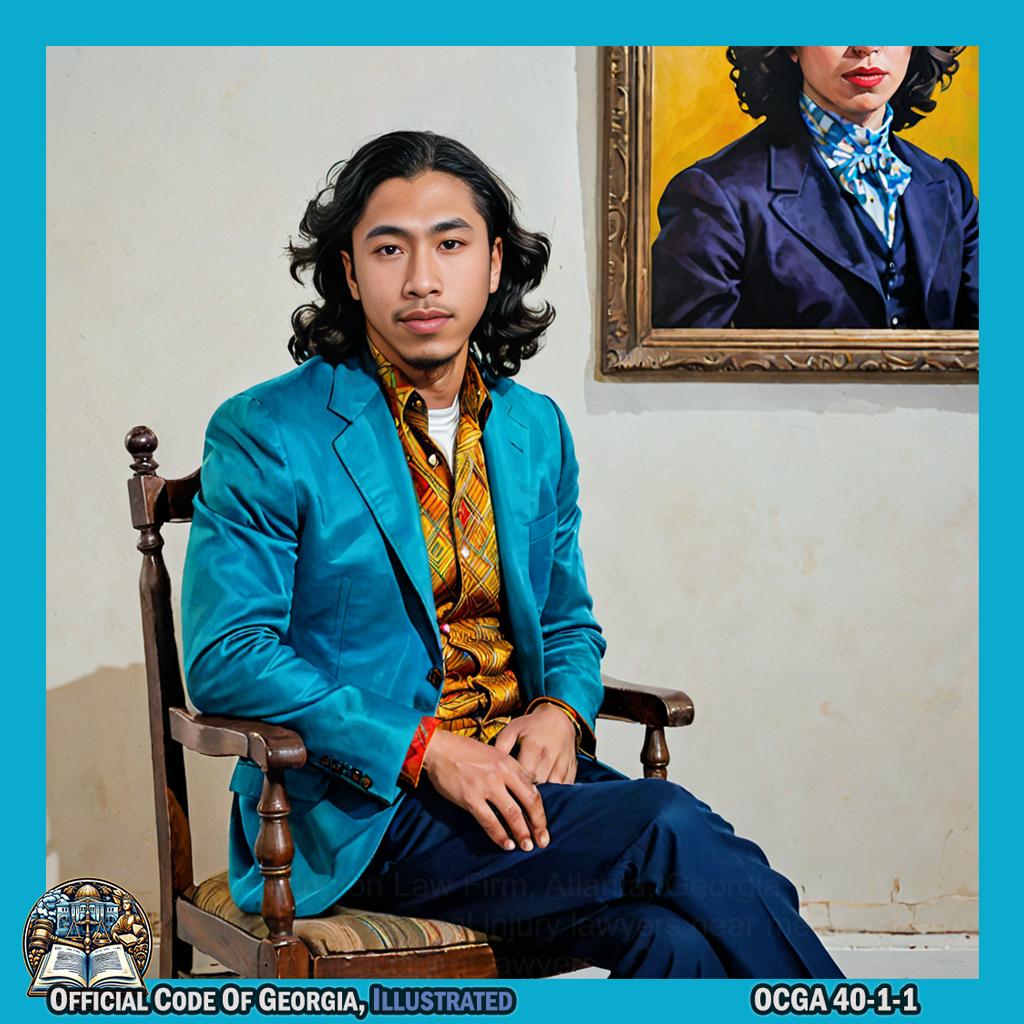
Carlos Valdes sits on a vintage chair with a single, elegant armrest, embodying the essence of Cindy Sherman's art in an imaginative and entertaining way. -@Tha_Los -
Has a gross vehicle weight rating of less than 4,000 pounds (1,814 kilograms); and
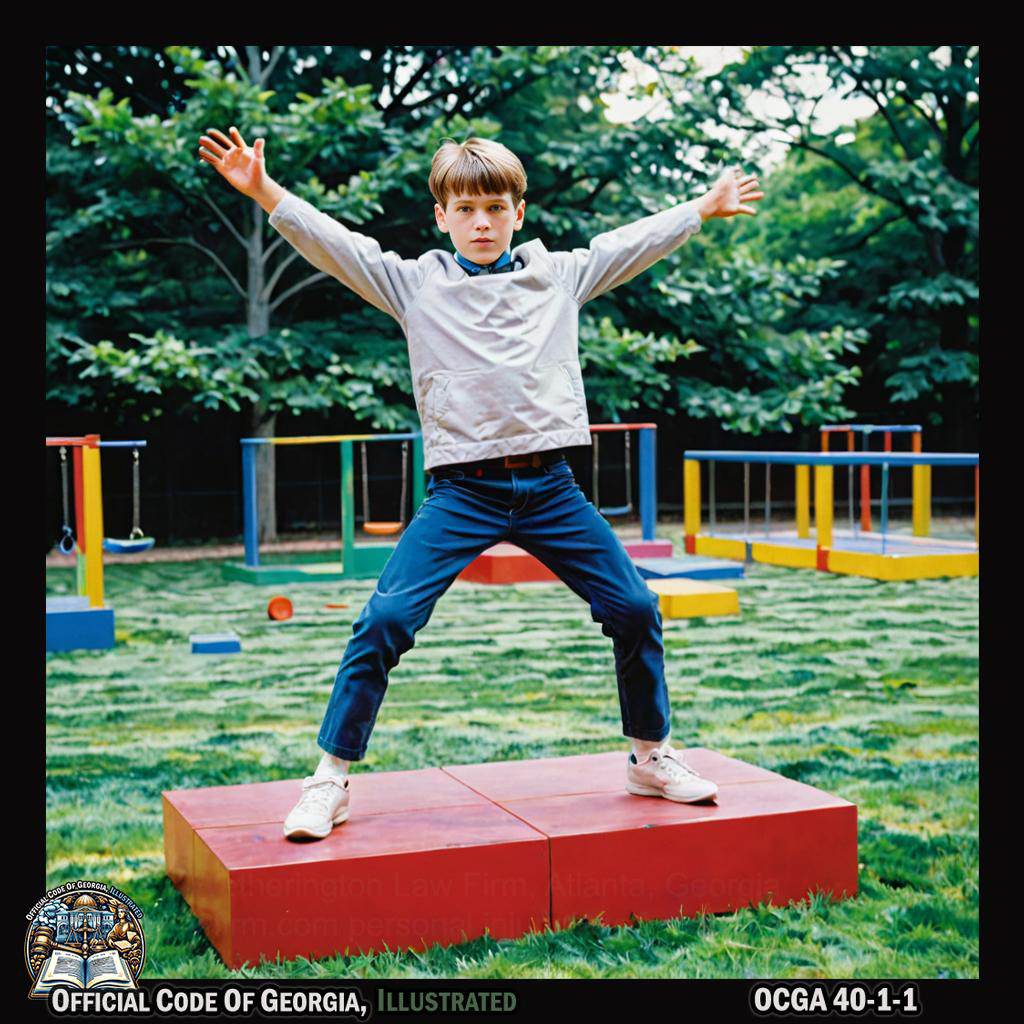
Charles Arthur "Pretty Boy" Floyd, depicted in the blurred style of Gerhard Richter's paintings, dynamically balances atop a geometric structure at Noguchi Playscape; he mimics lifting and weighing an invisible object to represent assessing its weight, while children around him playfully imitate his actions with colorful abstract shapes that suggest weights and measures. -
Has a minimum cargo capacity of 350 pounds (159 kilograms).

Nivea gracefully twirls, her movements creating a mesmerizing pattern of swirling weight measurements, embodying the concept of cargo capacity in a captivating Bridget Riley-inspired art piece set against the vibrant backdrop of Gainesville. -@thisisNIVEA
-
-
“New motor vehicle” means any motor vehicle which is not a demonstrator and has never been the subject of a sale at retail to the general public.
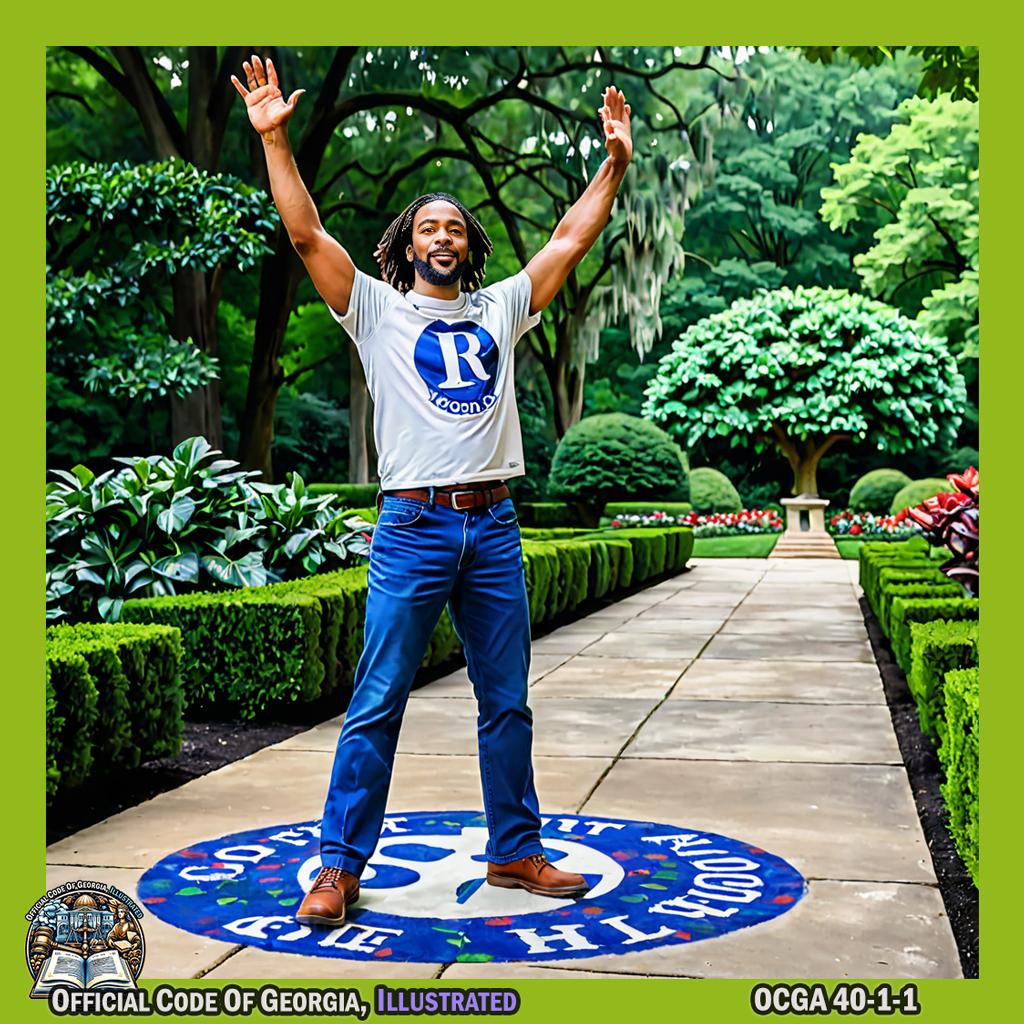
Jordan Hill stands in the Cator Woolford Gardens, raises one arm high and extends the other straight out to the side, forming a dramatic pose. He then walks forward, creating a swirling motion with his body as if he's moving around an invisible motor vehicle. -@jordanchill43 -
“Nonresident” means every person who is not a resident of this state.
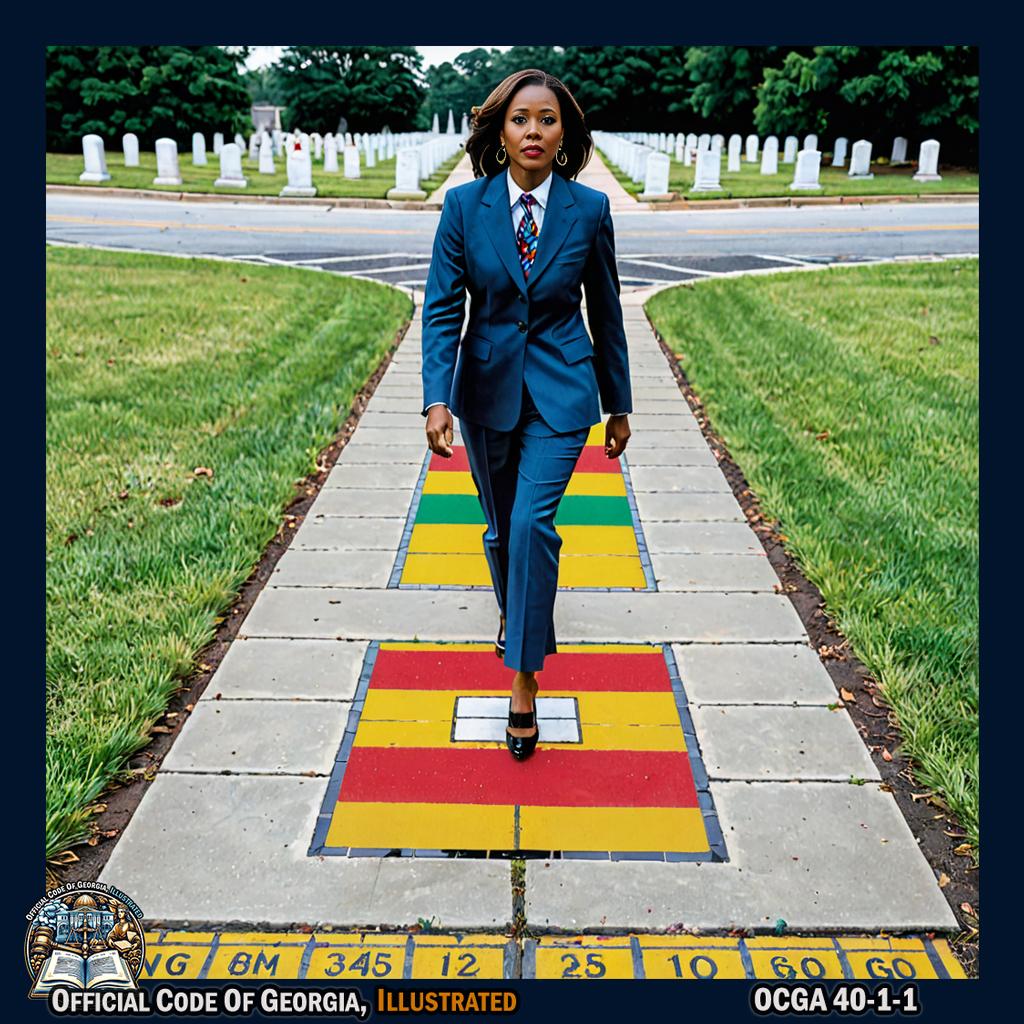
Latto stands on the boundary line of Flat Rock and Hart Cemeteries, steps over the line with a playful hopscotch motion, then points back to where she came from, indicating 'nonresident' through her movement away from one side (the state) to the other; around her are vividly colored panels that mirror Gilbert and George's stained glass aesthetic, featuring stylized motifs of airplanes and gravestones without any inscriptions, symbolizing both the location's history and its proximity to modern travel at Atlanta's airport. -@Latto -
“Nonresident’s operating privilege” means the privilege conferred upon a nonresident by the laws of this state pertaining to the operation by such person of a motor vehicle or the use of a vehicle owned by such person in this state.

Migos, dressed in avant-garde attire, perform a choreographed dance to represent the operation of a motor vehicle by a nonresident in Georgia, while utilizing exaggerated gestures and movements inspired by Bruce Nauman's art style. -@Migos -
“Official traffic-control devices” means all signs, signals, markings, and devices not inconsistent with this title which are placed or erected by authority of a public body or official having jurisdiction for the purpose of regulating, warning, or guiding traffic.

Imagine Matt McClure, dressed in a vibrant mix of colors and patterns, using exaggerated hand gestures to mimic the placement of traffic signs and signals, while dancing wildly in an abstract expressionist style reminiscent of Jean-Michel Basquiat's art, set against the lush backdrop of Argonne Forest neighborhood in Atlanta. (37.1)“Operational design domain” means a description of the specific operating domains in which an automated driving system is designed to effectively operate, including but not limited to geographic limitations, roadway types, speed range, and environmental conditions such as weather and limited visibility.
-
“Operator” means any person who drives or is in actual physical control of a motor vehicle or who causes a fully autonomous vehicle to move or travel with the automated driving system engaged.
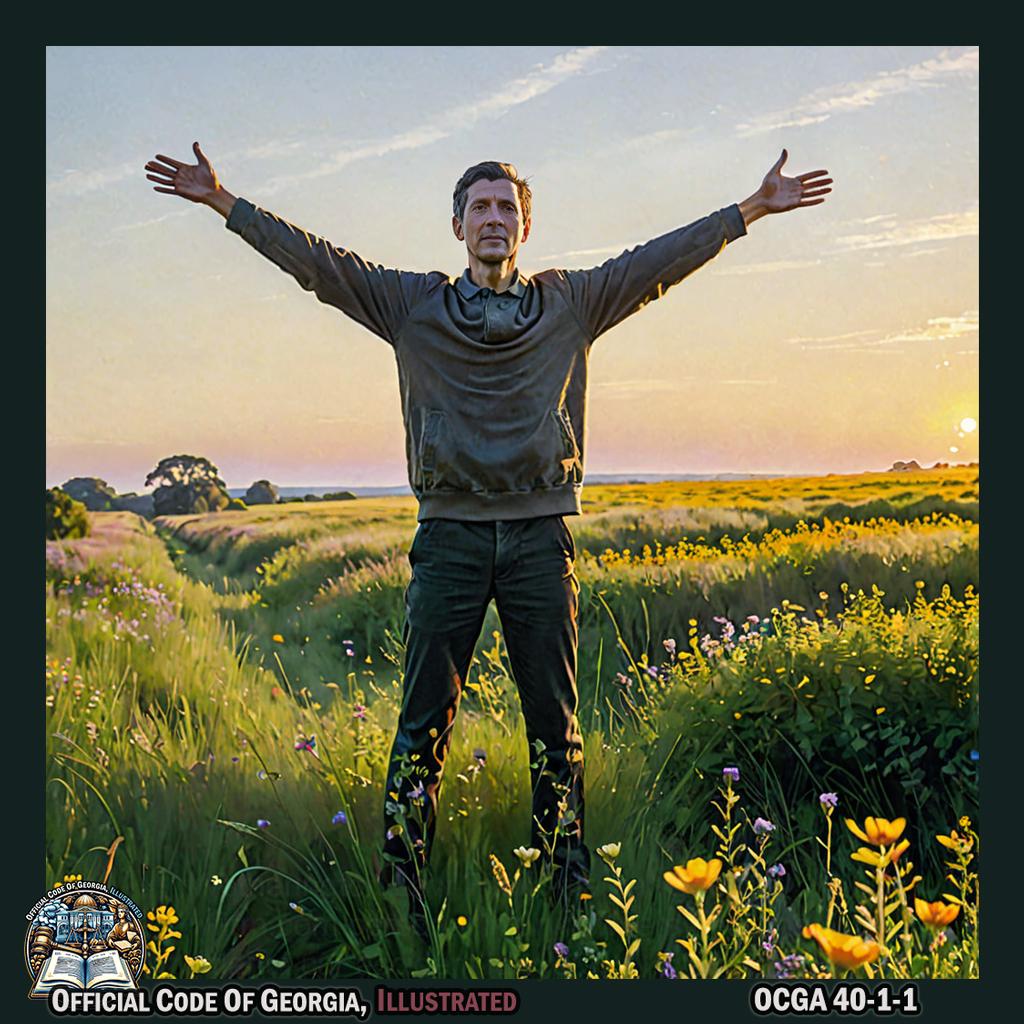
Elia Goode Byington stands with outstretched arms, body leaning forward as if driving a car, head turned slightly to the right with a focused expression, while surrounded by ethereal golden light and suspended in midair within an open field of wildflowers and tall grasses. -
“Owner” means a person, other than a lienholder or security interest holder, having the property in or title to a vehicle. The term includes a person entitled to the use and possession of a vehicle subject to a security interest in or lien by another person but excludes a lessee under a lease not intended as security except as otherwise specifically provided in this title.
-
“Park” or “parking” means the standing of a vehicle, whether occupied or not, otherwise than temporarily for the purpose of and while actually engaged in loading or unloading property or passengers.

Scott Wilson, mimicking a chauffeur, theatrically opens an invisible car door and pantomimes assisting unseen passengers out, then pretends to unload imaginary luggage with exaggerated care and attention, all within the lush backdrop of Jekyll Island Historic District’s vibrant greenery and historic architecture, capturing the raw emotionality reminiscent of Nan Goldin's intimate photography style. -
“Passenger car” means every motor vehicle, except all-terrain vehicles, motorcycles, motor driven cycles, multipurpose off-highway vehicles, personal transportation vehicles, and low-speed vehicles, designed for carrying ten passengers or less and used for the transportation of persons.
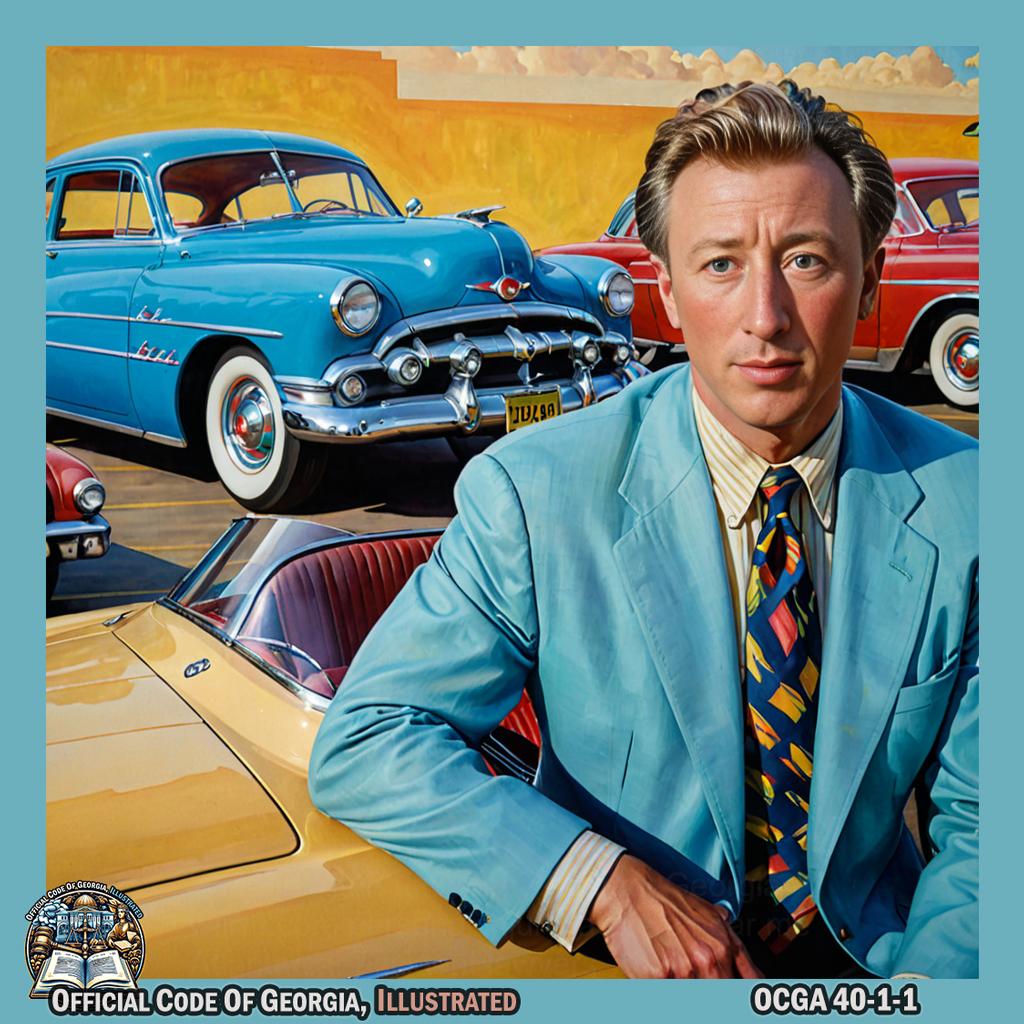
Frank Yerby, dressed in a vibrant 1950s outfit, strikes a dramatic pose as he sits behind the wheel of an oversized model car, surrounded by larger-than-life cutouts of various types of vehicles. The scene is bathed in warm, golden light and exudes a sense of whimsy and nostalgia. -
“Pedestrian” means any person afoot.
(42.1)“Pedestrian hybrid beacon” means a special type of hybrid beacon used to warn and control traffic at locations without a traffic-control signal to assist pedestrians in crossing a street or highway at a marked crosswalk.
-
“Person” means every natural person, firm, partnership, association, corporation, or trust.
(43.1)“Personal delivery device” means a powered vehicle that utilizes an automated driving system to transport cargo, is not designed to transport passengers, and has a maximum unladen weight of 500 pounds or a maximum weight of 600 pounds when carrying any cargo.
(43.2)“Personal delivery device operator” means a person or an agent of a person that exercises control or monitoring over the operation of a personal delivery device; provided, however, that a person or an agent of a person shall not be considered a personal delivery operator solely because such person or agent:
(43.3)“Personal delivery device owner” means a person, individual, firm, company, association, corporation, or other business entity who owns a personal delivery device or, in the event that the personal delivery device is leased, the lessee and may include a personal delivery device operator.
(43.4)“Personal transportation vehicle” or “PTV” means:
(43.5)“Personal transportation vehicle path” or “PTV path” means a right of way under the jurisdiction and control of this state or a local political subdivision thereof designated for use by personal transportation vehicle drivers.
-
Requests or receives the delivery or services of a personal delivery device;

6LACK stands on a vibrant, chaotic stage in Tales from the Altamaha, surrounded by whimsical personal delivery devices. He reaches out with open arms to receive one such device as it hovers towards him, capturing the moment in a dynamic and colorful art piece reminiscent of Robert Rauschenberg's style. -@6LACK -
Arranges for or dispatches the requested services of a personal delivery device; or
-
Stores, charges, or maintains a personal delivery device.

Justin Bieber carefully adjusting the mechanics of a vintage bicycle while wearing a dramatic, theatrical costume in a dimly lit, rustic barn setting. -@justinbieber -
Any motor vehicle having no fewer than three wheels and an unladen weight of 1,300 pounds or less and which cannot operate at more than 20 miles per hour if such vehicle was authorized to operate on local roads by a local authority prior to January 1, 2012. Such vehicles may also be referred to as “motorized carts” in such local ordinances; and

Richard T. Scott is depicted sculpting a three-wheeled motorized cart from clay, with exaggerated features to emphasize its size and speed limitations, in the lush landscape of Johns Creek, while Paul Penczner paints this scene in his vivid color palette and detailed style. -@richardtscott -
Any motor vehicle:

6LACK driving a vintage car in a geometrically inspired art installation, set against the unique landscape of Arabia Mountain. -@6LACK -
With a minimum of four wheels;
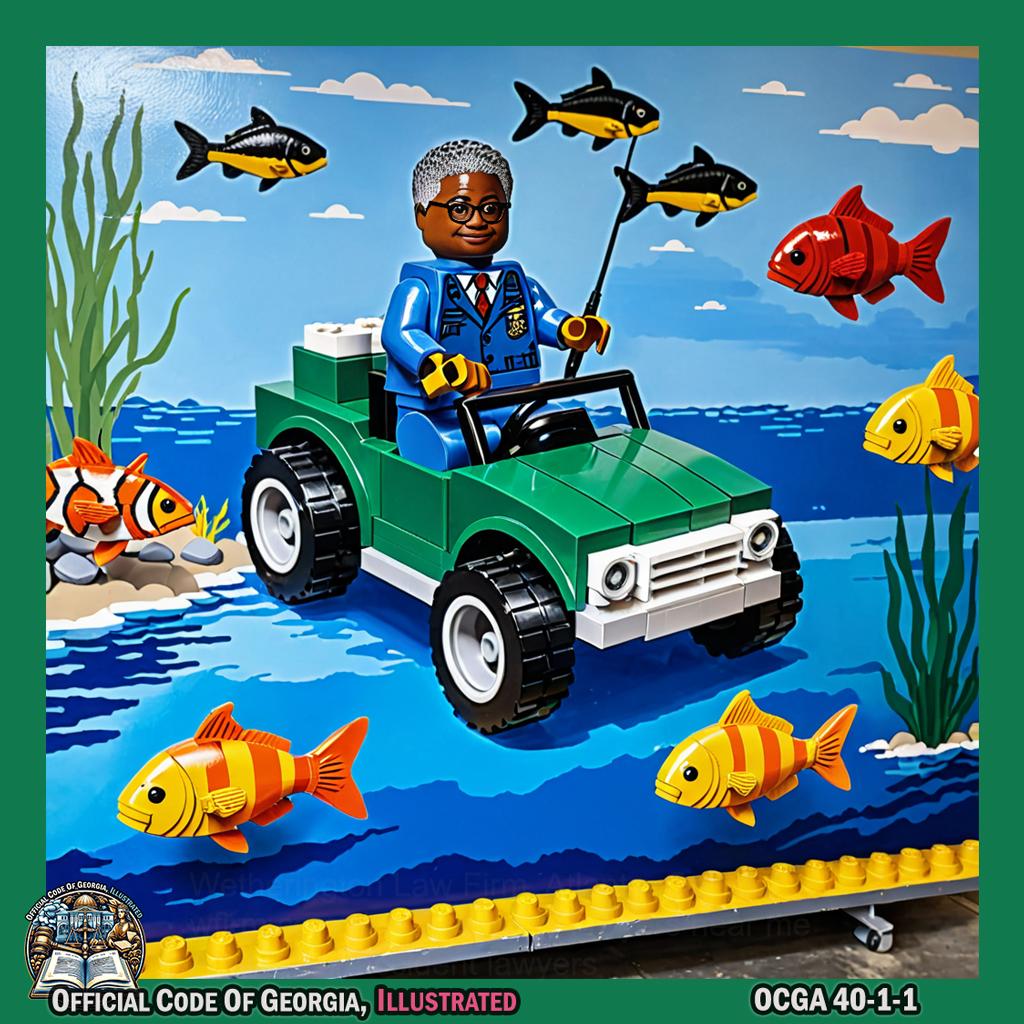
Allen West is depicted in a dynamic painting, assembling a colorful four-wheeled LEGO vehicle alongside children at the Tennessee Aquarium, with vibrant fish and aquatic life surrounding them to symbolize learning through exploration. -@AllenWest -
Capable of a maximum level ground speed of less than 20 miles per hour;

Blake R. Van Leer standing in the Cascade Springs Nature Preserve, moving at a slow and deliberate pace with arms outstretched and head held high, capturing the essence of maximum level ground speed under miles per hour as an art piece by Andreas Gursky. -
With a maximum gross vehicle unladen or empty weight of 1,375 pounds; and
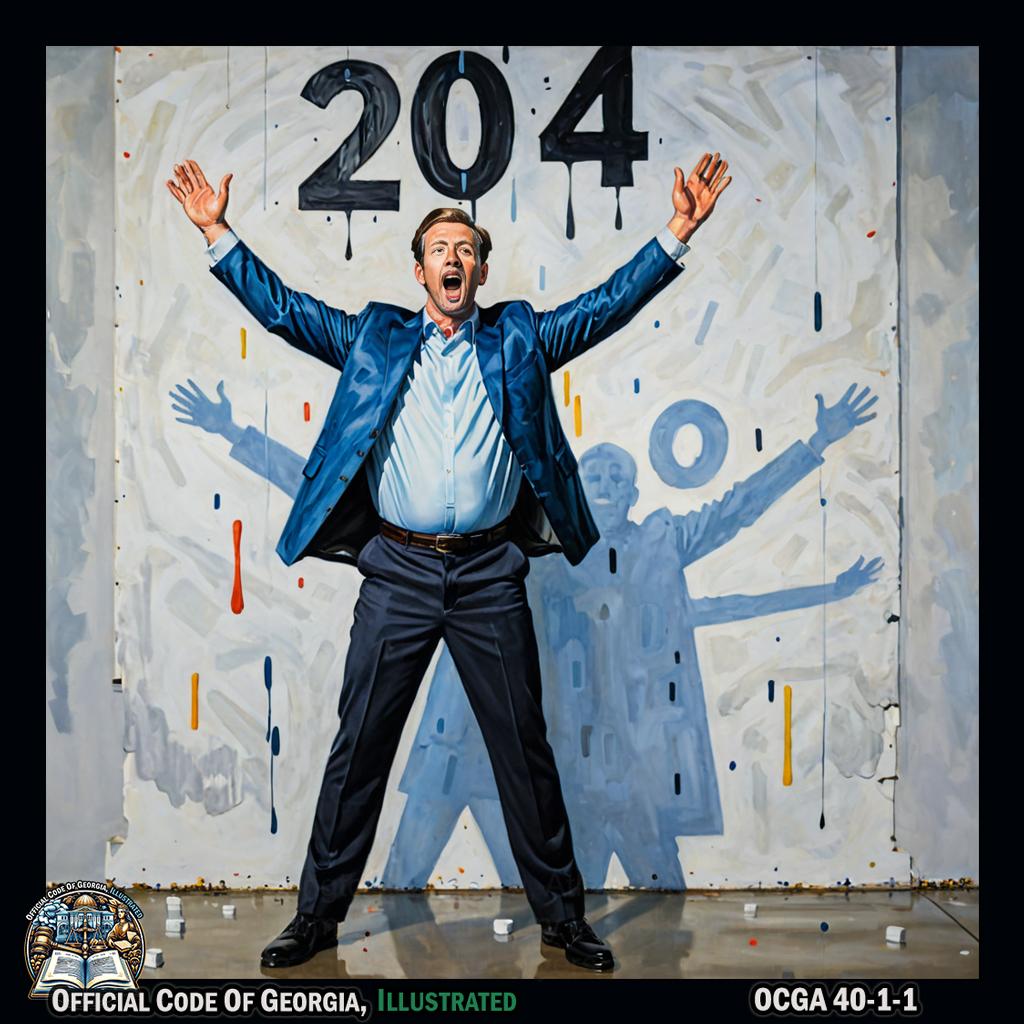
Stephen Mansfield standing with arms outstretched, miming the weight of a vehicle on his shoulders, while surrounded by floating numbers representing the vehicle's weight, in the style of a dramatic living sculpture at the Georgia Museum of Art. -@MansfieldWrites -
Capable of transporting not more than eight persons.
The term does not include mobility aids, including electric personal assistive mobility devices, power wheelchairs, and scooters, that can be used indoors and outdoors for the express purpose of enabling mobility for a person with a disability. The term also does not include any all-terrain vehicle or multipurpose off-highway vehicle.
-
-
-
-
“Pneumatic tire” means every tire in which compressed air is designed to support the load. A vehicle shall be considered equipped with pneumatic tires when pneumatic tires are used on all wheels.
- “Pole trailer” means every vehicle without motive power designed to be drawn by another vehicle and attached to the towing vehicle by means of a reach or pole, or by being boomed or otherwise secured to the towing vehicle, and ordinarily used for transporting long or irregularly shaped loads such as poles, pipes, or structural members capable, generally, of sustaining themselves as beams between the supporting connections.
- “Police officer” means every officer authorized to direct or regulate traffic or to make arrests for violations of traffic regulations.
-
“Private road or driveway” means every way or place in private ownership and used for vehicular traffic by the owner and those having express or implied permission from the owner, but not by other persons.

Mario West gracefully guides a group of vehicles down the private road at Byron Herbert Reece Farm, weaving through the lush countryside as if choreographing a dance, capturing the essence of Dan Witz's art with his smooth movements. -@MarioWest5 -
“Railroad” means a carrier of persons or property upon cars operated upon stationary rails.

Miriam Hopkins gracefully glides across the stage, embodying the movement of a train traveling upon stationary rails, her arms and body fluidly mimicking the motion as she symbolizes a carrier of persons or property. The scene is set against a backdrop reminiscent of Jason Martin's art style, with bold strokes and dynamic textures creating an immersive visual experience in Macon. -
“Railroad sign or signal” means any sign, signal, or device erected by authority of a public body or official or by a railroad and intended to give notice of the presence of railroad tracks or the approach of a railroad train.
-
“Railroad train” means a steam engine or electric engine or other motor, with or without cars coupled thereto, operated upon rails.
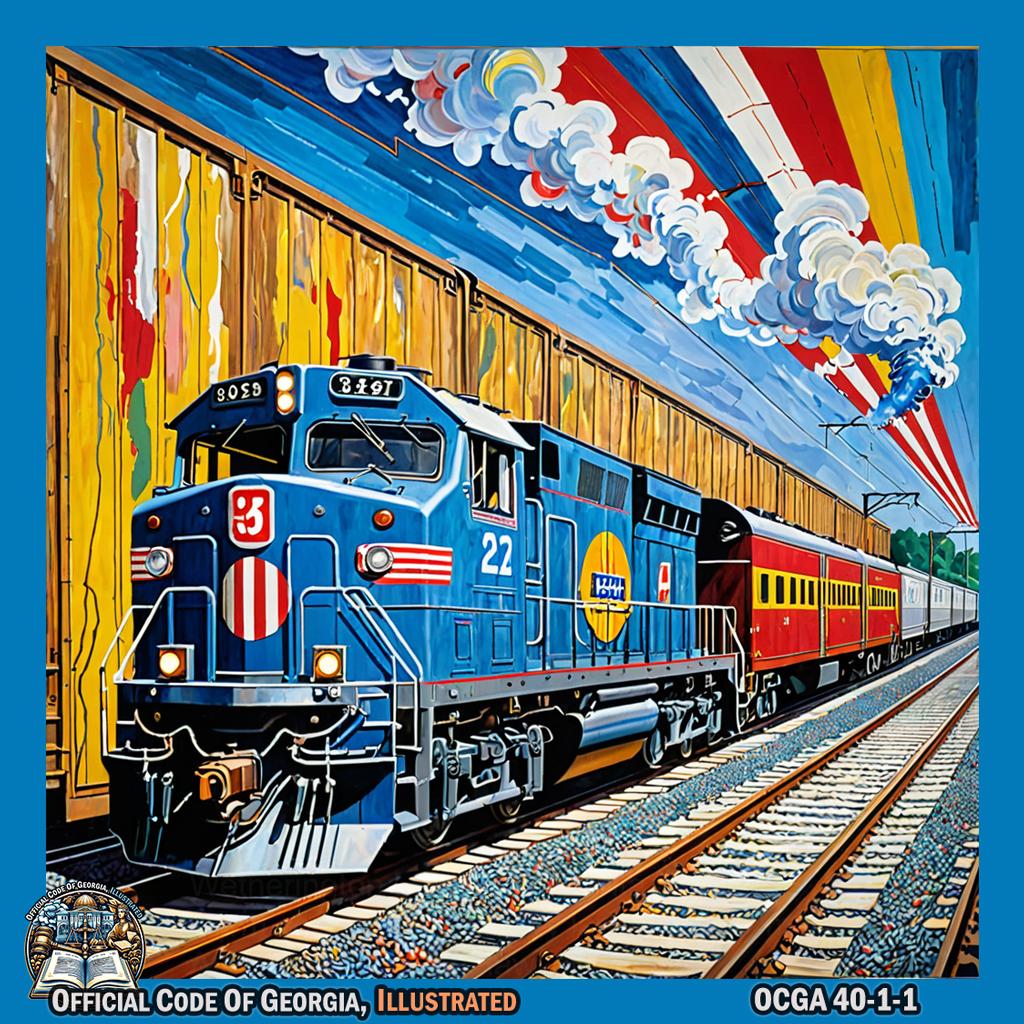
Outkast passionately mimics the chugging motion of a railroad train, while surrounded by vibrant and abstract representations of rail tracks and engines in the style of Jasper Johns, creating an entertaining and imaginative art piece. -@Outkast (50.01)“Recreational off-highway vehicle” means a motorized vehicle designed for off-road use which is equipped with four or more nonhighway tires and which is 65 inches or less in width.
(50.1)“Regulatory compliance inspection” means the examination of facilities, property, buildings, vehicles, drivers, employees, cargo, packages, records, books, or supporting documentation kept or required to be kept in the normal course of business or enterprise operations.
-
“Residence district” means the territory contiguous to and including a highway not comprising a business district, when the property on such highway for a distance of 300 feet or more is in the main improved with residences or residences and buildings in use for business.
-
“Right of way” means the right of one vehicle or pedestrian to proceed in a lawful manner in preference to another vehicle or pedestrian approaching under such circumstances of direction, speed, and proximity as to give rise to danger of collision unless one grants precedence to the other.

Troy Davis, wearing a flowing white robe and moving in slow, deliberate motions, extends his arm forward to grant precedence to another figure dressed as a pedestrian, while surrounded by a swirling dance of colored ribbons symbolizing direction, speed, and proximity. -
“Roadway” means that portion of a highway improved, designed, or ordinarily used for vehicular travel, exclusive of the berm or shoulder. In the event a highway includes two or more separate roadways, the term “roadway” shall refer to any such roadway separately, but not to all such roadways collectively.
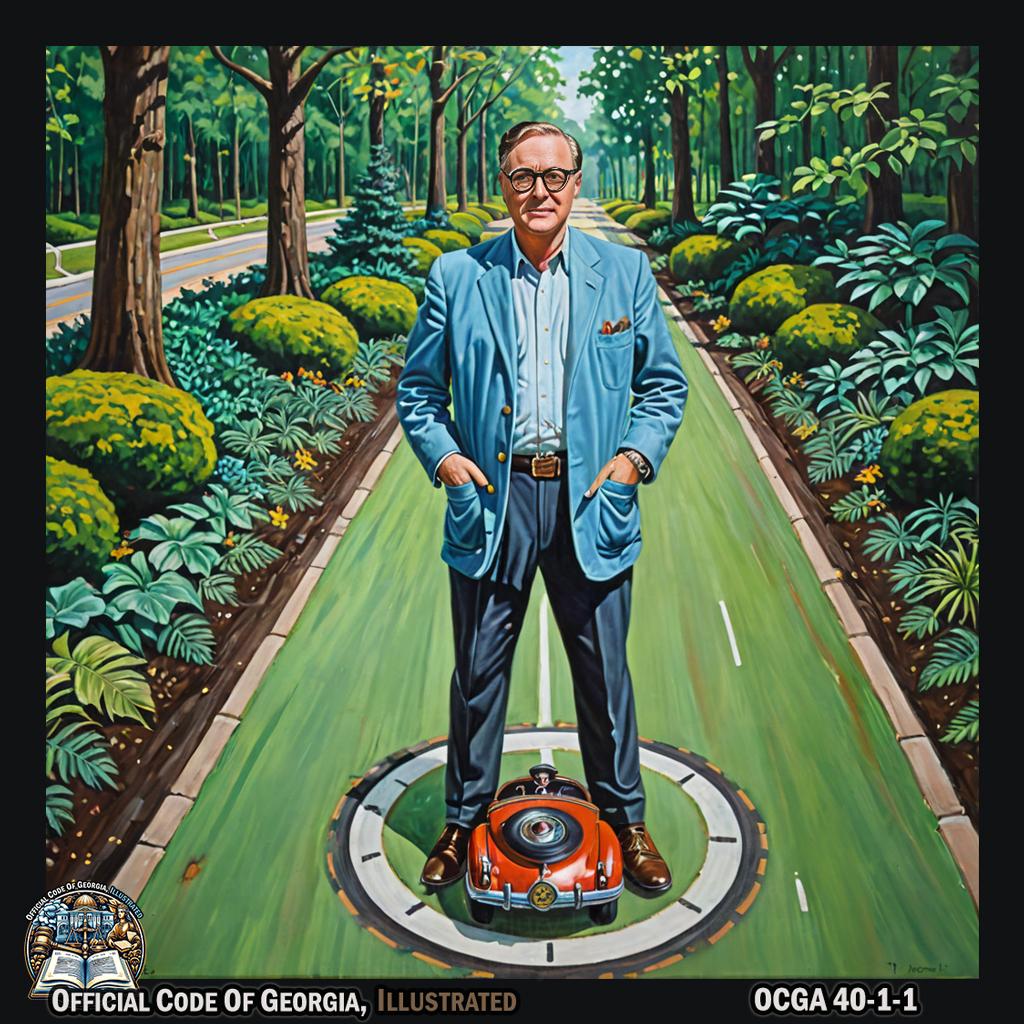
Edward Andrews, dressed as a vintage motorist, theatrically steers an imaginary oversized steering wheel along a painted pathway on the ground representing different lanes, while avoiding areas marked as shoulders or berms, in a lush Forest Park setting depicted with Vincent Giarrano's characteristic realist urban style and warm palette. -
“Safety zone” means the area or space officially set apart within a roadway for the exclusive use of pedestrians and which is protected or is so marked or indicated by adequate signs as to be plainly visible at all times while set apart as a safety zone.

Keyaron Fox gracefully extends his arms, creating a protective barrier around the designated safety zone, while adorned in flowing robes reminiscent of Donatello's art, against a backdrop of vibrant greenery and historic architecture in Peyton Forest neighborhood. -
“School bus” means:
- A motor vehicle operated for the transportation of school children to and from school or school activities or for the transportation of children to and from church or church activities. Such term shall not include a motor vehicle with a capacity of 15 persons or less operated for the transportation of school children to and from school activities or for the transportation of children to and from church or church activities if such motor vehicle is not being used for the transportation of school children to and from school or any vehicle used for the transport of students to and from school and school related activities pursuant to Code Section 20-2-1076; or
- A motor vehicle operated by a local transit system which meets the equipment and identification requirements of Code Section 40-8-115; provided, however, that such vehicle shall be a school bus only while transporting school children and no other passengers to or from school.
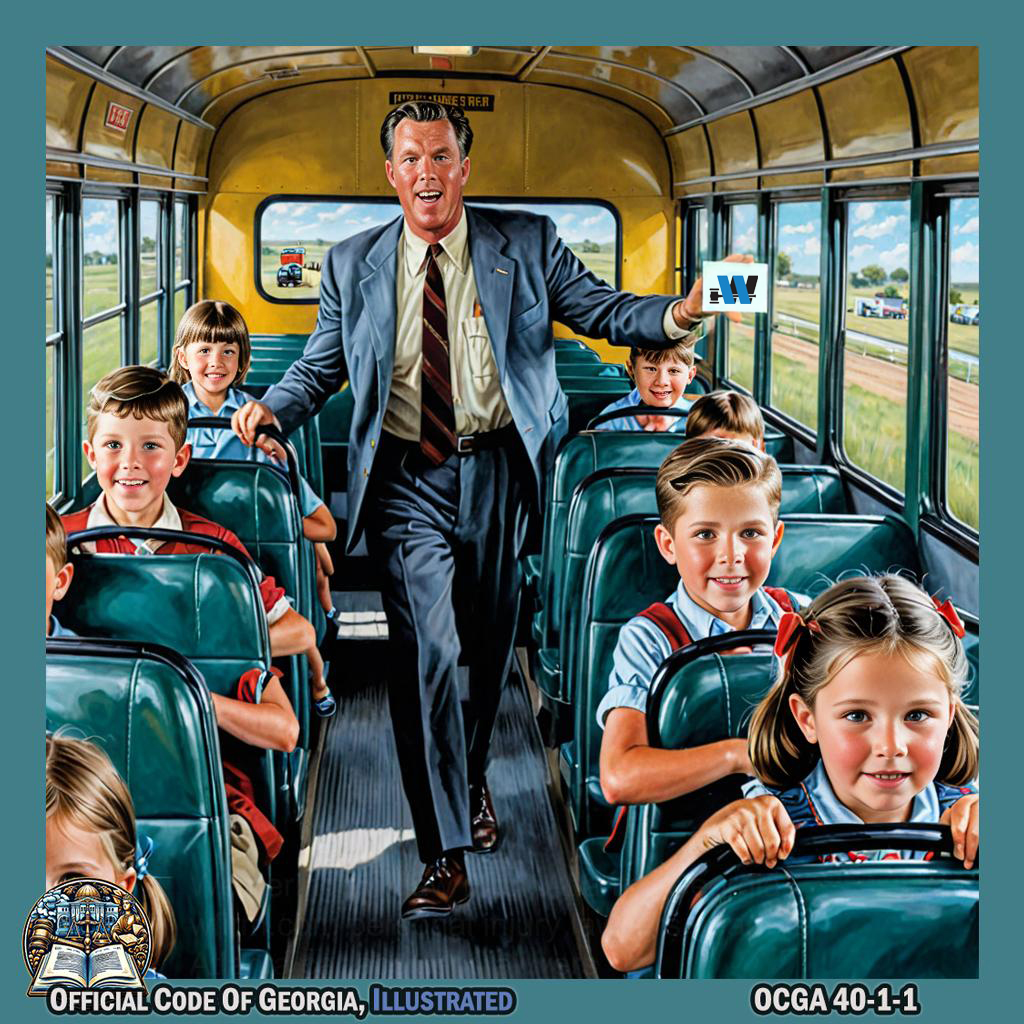
In the style of Don Stivers, Kyle Sloter gracefully pretends to drive a bus filled with children, deftly gesturing as if picking up and dropping off passengers. -@KyleSloter
-
“Semitrailer” means every vehicle with or without motive power, other than a pole trailer, designed for carrying persons or property and for being drawn by a motor vehicle and so constructed that some part of its weight and that of its load rests upon or is carried by another vehicle.
(56.1)“Shared use path” means a pathway physically separated from motorized vehicular traffic by an open space or barrier and either within the highway right of way or within an independent right of way and used by bicycles, pedestrians, manual and motorized wheelchairs, and other authorized motorized and nonmotorized users.
-
“Sidewalk” means that portion of a street between the curb lines, or the lateral lines of a railway, and the adjacent property lines, primarily intended for use by pedestrians.

Flannery O'Connor, dressed in the style of Grant Wood's art, walks with exaggerated steps along an imaginary sidewalk, gesturing towards invisible property lines and railroad tracks while emphasizing her movements to represent the definition of a sidewalk. -
“Solid tires” means tires of rubber or similarly elastic material that do not depend on confined air for the support of the load. A vehicle shall be considered equipped with solid tires when solid tires are used on two or more wheels.

André 3000 gracefully stands atop a geometric structure resembling the Guggenheim Museum, while he stretches and shapes rubber material into solid tires with his hands in a fluid and intentional manner. -
“Special mobile equipment” means every vehicle not designed or used primarily for the transportation of persons or property and only incidentally operated or moved over a highway, including but not limited to: ditch-digging apparatus, well-boring apparatus, and road construction and maintenance machinery such as asphalt spreaders, bituminous mixers, bucket loaders, tractors other than truck tractors, ditchers, leveling graders, finishing machines, motor graders, road rollers, scarifiers, earth-moving carryalls and scrapers, power shovels and drag lines, and self-propelled cranes and earth-moving equipment. The term does not include house trailers, dump trucks, truck mounted transit mixers, cranes or shovels, or other vehicles designed for the transportation of persons or property to which machinery has been attached.
-
“Stand” or “standing” means the halting of a vehicle, whether occupied or not, otherwise than temporarily for the purpose of and while actually engaged in receiving or discharging passengers.

Actress Carrie Preston stands in the middle of Rousakis Plaza Echo Square, holding an imaginary steering wheel and pretending to halt a vehicle while making exaggerated gestures of receiving and discharging passengers, all within an art piece inspired by Yoko Ono's style. -@carriepreston -
“State” means a state, territory, or possession of the United States, the District of Columbia, the Commonwealth of Puerto Rico, or a province of Canada.

David Cross stands in the center of a large room, surrounded by video screens showing scenes of different state territories and possessions of the United States, as well as provinces of Canada. He moves fluidly from one screen to another, interacting with each scene using exaggerated gestures and expressions that symbolize the unique characteristics of each location. -@davidcrosss -
“Stop” or “stopping”:

A person dressed as Gunna could freeze in a dramatic pose, surrounded by swirling patterns of colorful fabric and objects to create a striking art piece reminiscent of Vik Muniz's style, set against the backdrop of the Laurens Valley neighborhood in Atlanta. -@1GunnaGunna - When required, means complete cessation from movement; or
- When prohibited, means any halting, even momentarily, of a vehicle, whether occupied or not, except when necessary to avoid conflict with other traffic or in compliance with the directions of a police officer or traffic-control sign or signal.
-
“Street” means the entire width between boundary lines of every way publicly maintained when any part thereof is open to the use of the public for purposes of vehicular travel.
(63.1)“Taxicab” means a motor vehicle for hire which conveys passengers between locations of their choice and is a mode of public transportation for a single passenger or small group for a fee. Such term shall also mean taxi or cab, but not a bus or school bus, limousine, passenger car, or commercial motor vehicle.
-
“Through highway” means every highway or portion thereof on which vehicular traffic is given preferential right of way and at the entrances to which vehicular traffic from intersecting highways is required by law to yield the right of way to vehicles on such through highway in obedience to a stop sign, yield sign, or other official traffic-control device, when such signs or devices are erected as provided in this title.
- “Tractor” means any self-propelled vehicle designed for use as a traveling power plant or for drawing other vehicles but having no provision for carrying loads independently.
-
“Traffic” means pedestrians, ridden or herded animals, vehicles, and other conveyances either singly or together while using any highway for purposes of travel.
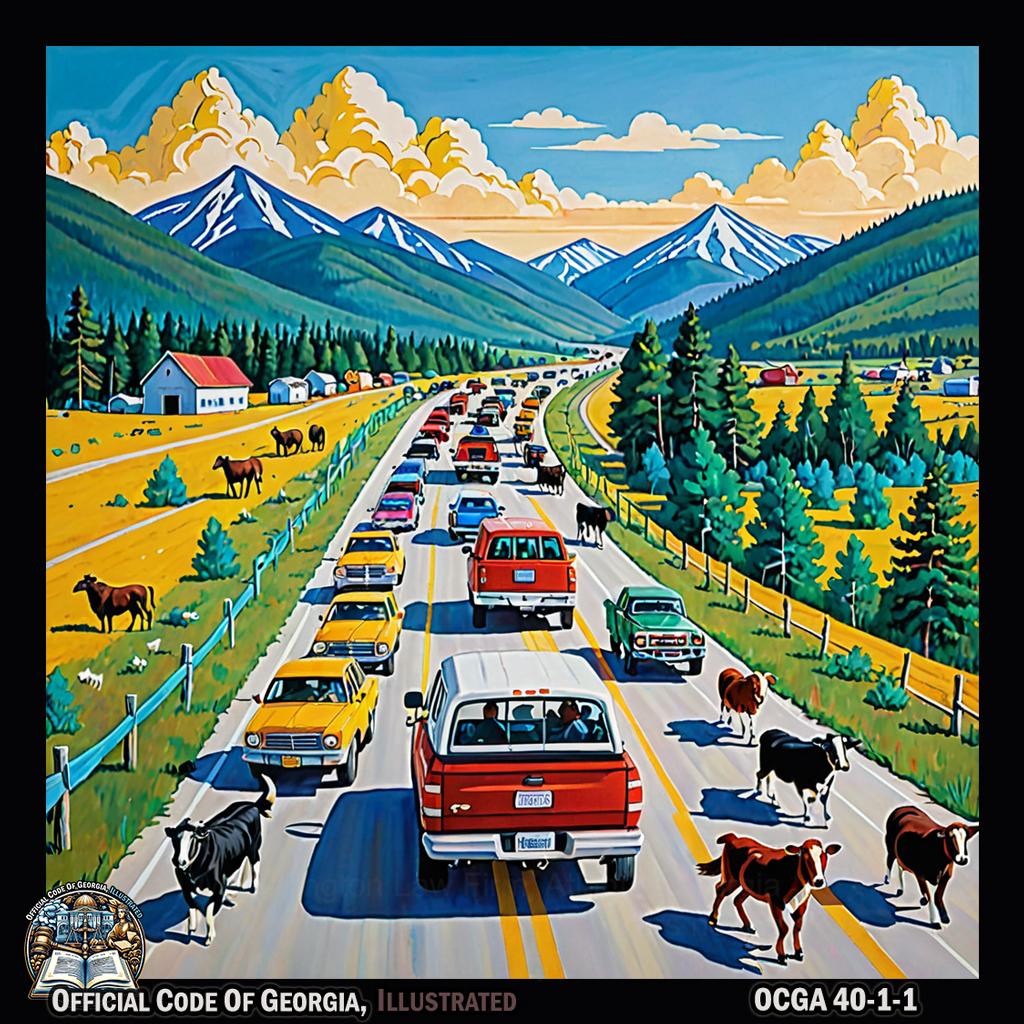
Trevor Lawrence, in the style of folk art, can be seen herding a group of diverse and colorful individuals, animals, and vehicles along a vibrant highway in SamG Land. -@Trevorlawrencee -
“Traffic-control signal” means any device, whether manually, electrically, or mechanically operated, by which traffic is alternately directed to stop and permitted to proceed.

Cee Lo Green gracefully mimics the movements of a traffic control signal, using his body to alternately direct imaginary traffic to stop and proceed in an interpretive dance performance reminiscent of a surrealist art piece from the early 20th century, set against the backdrop of Vidalia's lush gardens. -@CeeLoGreen -
“Trailer” means every vehicle with or without motive power, other than a pole trailer, designed for carrying persons or property and for being drawn by a motor vehicle and so constructed that no part of its weight rests upon the towing vehicle.
-
“Tripper service” means regularly scheduled mass transportation service which is open to the fare-paying public but which is also designed or modified to accommodate the needs of elementary or secondary school students and school personnel.

Gunna elegantly and expressively uses dance movements to portray the concept of "Tripper service," incorporating graceful gestures and fluid motions in an artful display within the Krog Street Tunnel. -@1GunnaGunna -
“Truck” means every motor vehicle designed, used, or maintained primarily for the transportation of property.
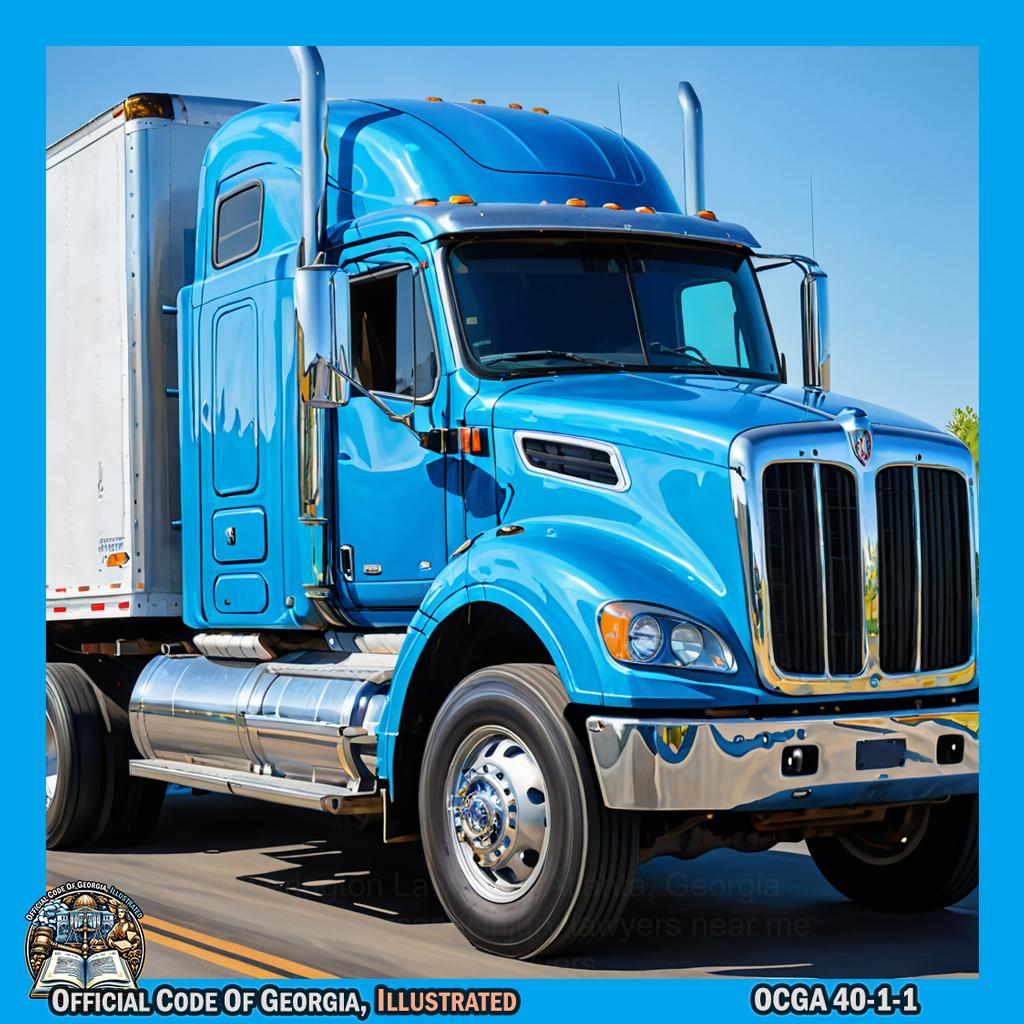
Mary Ross Banks gracefully transforms into a truck, embodying the movement and power of transportation through her fluid and dynamic gestures, expressing the essence of a motor vehicle designed for carrying property in an artful and captivating manner. -
“Truck camper” means any structure designed, used, or maintained primarily to be loaded on or affixed to a motor vehicle to provide a mobile dwelling, sleeping place, office, or commercial space.
- “Truck tractor” means every motor vehicle designed and used primarily for drawing other vehicles and not so constructed as to carry a load other than a part of the weight of the vehicle and load so drawn.
- “Urban district” means the territory contiguous to and including any street which is built up with structures devoted to business, industry, or dwelling houses situated at intervals of less than 100 feet for a distance of a quarter of a mile or more.
-
“Used motor vehicle” means any motor vehicle which has been the subject of a sale at retail to the general public.

Bumble Bee Slim gracefully mimics the act of selling a used motor vehicle to an imaginary customer, while surrounded by colorful art pieces that depict the vibrant history and culture of Atlanta at RONDO Distributing Co. -
“Vehicle” means every device in, upon, or by which any person or property is or may be transported or drawn upon a highway, excepting devices used exclusively upon stationary rails or tracks.

Lil Jon, dressed in extravagant and colorful attire, stands on a stage at Plant Riverside. He dramatically gestures with his arms to represent the movement of various vehicles: a car driving, a bicycle pedaling, a train chugging along its tracks, and an airplane soaring through the sky. The performance is accompanied by music and lighting effects to create an engaging and memorable art piece for the educational partnership in Georgia. -@LilJon -
“Wrecker” means a vehicle designed, equipped, or used to tow or carry other motor vehicles by means of a hoist, crane, sling, lift, or roll-back or slide back platform, by a mechanism of a like or similar character, or by any combination thereof, and the terms “tow truck” and “wrecker” are synonymous.
40-1-2.How horsepower determined.¶
The Society of Automotive Engineers horsepower rating formula is adopted as the standard for determining the horsepower of passenger-carrying vehicles.
40-1-3.Requiring or permitting unlawful operation of vehicle.¶
It is unlawful for the owner or any other person employing or otherwise directing the driver of any vehicle to require or knowingly permit the operation of such vehicle upon a highway in any manner contrary to law.
40-1-4.Stickers, decals, or emblems containing profane or lewd words describing sexual acts, excretory functions, or parts of the human body.¶
No person owning, operating, or using a motor vehicle in this state shall knowingly affix or attach to any part of such motor vehicle any sticker, decal, emblem, or other device containing profane or lewd words describing sexual acts, excretory functions, or parts of the human body.

Any person who violates any part of this Code section shall be guilty of a misdemeanor and shall be punished by a fine not to exceed $100.00.

40-1-5.Disclosure by dealer of damage to new motor vehicles.¶
-
As used in this Code section, the terms “dealer,” “distributor,” “manufacturer,” and “new motor vehicle” shall have the same meaning as set forth in Code Section 40-2-39.
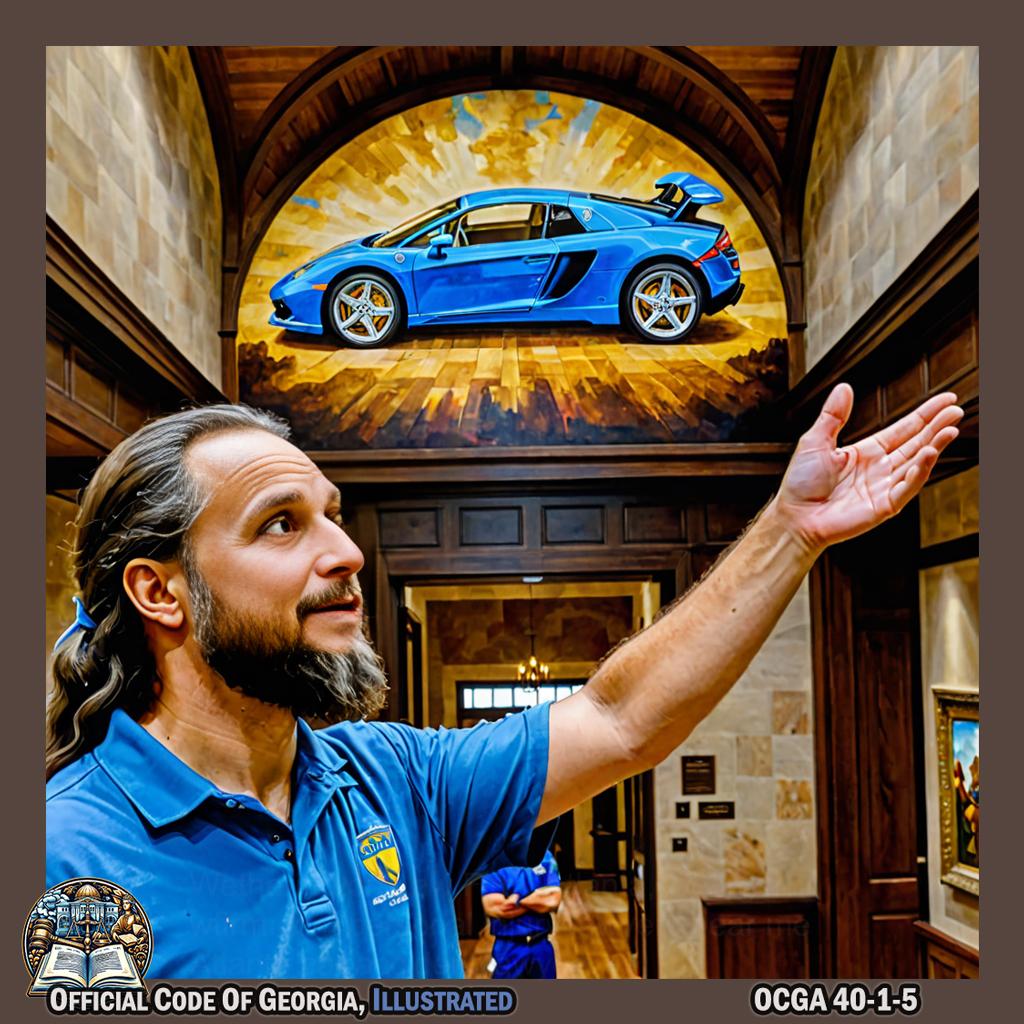
In a grand hall in Suwanee, Sean P gracefully extends his hand to the sky, embodying the essence of a new motor vehicle being crafted by Leonardo da Vinci, as he channels the energy of a dealer distributor manufacturer. -
Except as provided in this subsection and in subsection (c) of this Code section, prior to the sale of a new motor vehicle, a dealer must disclose to the buyer any damage which has occurred to the vehicle of which the dealer has actual knowledge and which costs more than 5 percent of the manufacturer’s suggested retail price to repair. Prior to the sale of a new motor vehicle, a dealer must also disclose to the buyer any damage which has occurred to the paint of which the dealer has actual knowledge and which costs more than $500.00 to repair. Damages shall be calculated at the actual cost of such repair.

Basketball player Josh Smith, in a vivid Matisse-style cut-out art scene, is depicted inspecting a colorful car with an oversized magnifying glass to symbolize the dealer's duty of disclosure, against the lush backdrop of Calhoun’s rolling hills and vibrant landscapes. -@JsmooveNBA -
Notwithstanding anything to the contrary in subsection (b) of this Code section, in calculating the amount of damage for purposes of disclosure under subsection (b) of this Code section, a dealer shall not be required to take into account nor shall a dealer be required to disclose damage to glass, tires, wheels, bumpers, radio, or in-dash audio equipment, regardless of cost, so long as the item is replaced with original or reasonably comparable equipment.

Rapper Future dramatically gestures and points to a shattered glass window, while surrounded by a collage of tire rims, bumpers, and radio equipment. The scene is captured in the dramatic black-and-white style of Weegee's art pieces. -@1future -
Prior to the delivery of a new motor vehicle, each manufacturer, distributor, carrier, or motor vehicle importer must disclose to the dealer any damage which has occurred to the vehicle of which the manufacturer, distributor, carrier, or importer has actual knowledge and which is required to be disclosed to a buyer under subsections (b) and (c) of this Code section. If a manufacturer, distributor, carrier, or motor vehicle importer fails to make any disclosure required by this subsection, then such shall be liable to the dealer for any liability imposed on such dealer for a failure on the part of the dealer to comply with the requirements of this Code section.

Former Governor Zell Miller, in a vibrant and abstract Christian Lock-style art piece, dramatically unveils a colorful canvas cover from a sculptural representation of a car to symbolically disclose its flaws to an audience of dealers in the lush setting of Milton, Georgia, while the background swirls with rich hues and patterns that evoke the complexity and transparency required by law. -
Prior to the delivery of a new motor vehicle, each manufacturer, carrier, or motor vehicle importer must disclose to the distributor any damage which has occurred to the vehicle of which the manufacturer, carrier, or importer has actual knowledge and which is required to be disclosed to a buyer under subsections (b) and (c) of this Code section. If a manufacturer, carrier, or motor vehicle importer fails to make any disclosure required by this subsection, then such shall be liable to the distributor for any liability imposed on such distributor for a failure on the part of the distributor to comply with the requirements of this Code section.
-
If disclosure is not required under this Code section, a buyer may not revoke or rescind a sales contract, and relief may not be sought under this or any other provision of this Code, including Part 2 of Article 15 of Chapter 1 of Title 10 due to the fact that the new motor vehicle was damaged and repaired prior to the sale.

Jodie Meeks gracefully gesturing with outstretched arms, surrounded by a golden glow, as if presenting the Code section on a grand stage in St. Marys, Georgia, reminiscent of Vermeer's meticulously composed scenes. -@Jmeeks20 -
A violation of this Code section shall be a per se violation of Code Section 10-1-393, and the penalties, procedures, and remedies applicable to violations of Code Section 10-1-393 shall be applicable to a violation of this Code section.

In John Boatright's art piece, Darius Slay, the football player, embodies the judge by slamming a gavel and pointing to a sign with code section numbers, then making an "X" gesture with his arms while blowing a whistle. -@_bigplayslay23
40-1-6.Uniforms of law enforcement officers.¶
Uniformed law enforcement officers of an agency who are assigned routinely or primarily to traffic law enforcement or other traffic safety duties on the roadways or highways of this state shall wear the same type uniform as other members of the assigned division of such officers’ respective agencies. Officers assigned to special operations activities may wear other identifiable uniforms or other clothing appropriate to an operation upon approval of the sheriff, chief of police, or other agency head. An otherwise lawful arrest shall not be invalidated or in any manner affected by failure to comply with this Code section.
40-1-7.Blue light required for officers enforcing traffic; exception.¶
Whenever pursuing a person in violation of a traffic related offense, a uniformed law enforcement officer who is assigned routinely or primarily to traffic law enforcement or other traffic safety duties on the roadways or highways of this state shall place a visible blue light on the roof of his or her vehicle if such vehicle is not equipped with permanent exterior mounted roof blue lights; provided, however, that the provisions of this Code section shall not apply to law enforcement officers operating vehicles manufactured prior to 2001. This Code section shall not apply to any officer assigned to special operations activities or responding to an immediate threat to public safety as a result of an accident or other emergency. This Code section shall not apply to vehicles of the Georgia State Patrol or of a sheriff’s office or police department which office or police department provides law enforcement services by certified peace officers 24 hours a day, seven days a week where the vehicles are marked in accordance with Code Section 40-8-91, with flashing or revolving lights, primarily blue in color, visible under normal atmospheric conditions for a distance of 500 feet from the front and rear of such vehicles, and which also have illuminating agency identifiers reasonably visible to a driver of a vehicle subject to a traffic stop; provided, however, that a sheriff’s office or police department shall not be permitted to have more than one vehicle per agency without such exterior mounted roof lights. An otherwise lawful arrest shall not be invalidated or in any manner affected by failure to comply with this Code section.
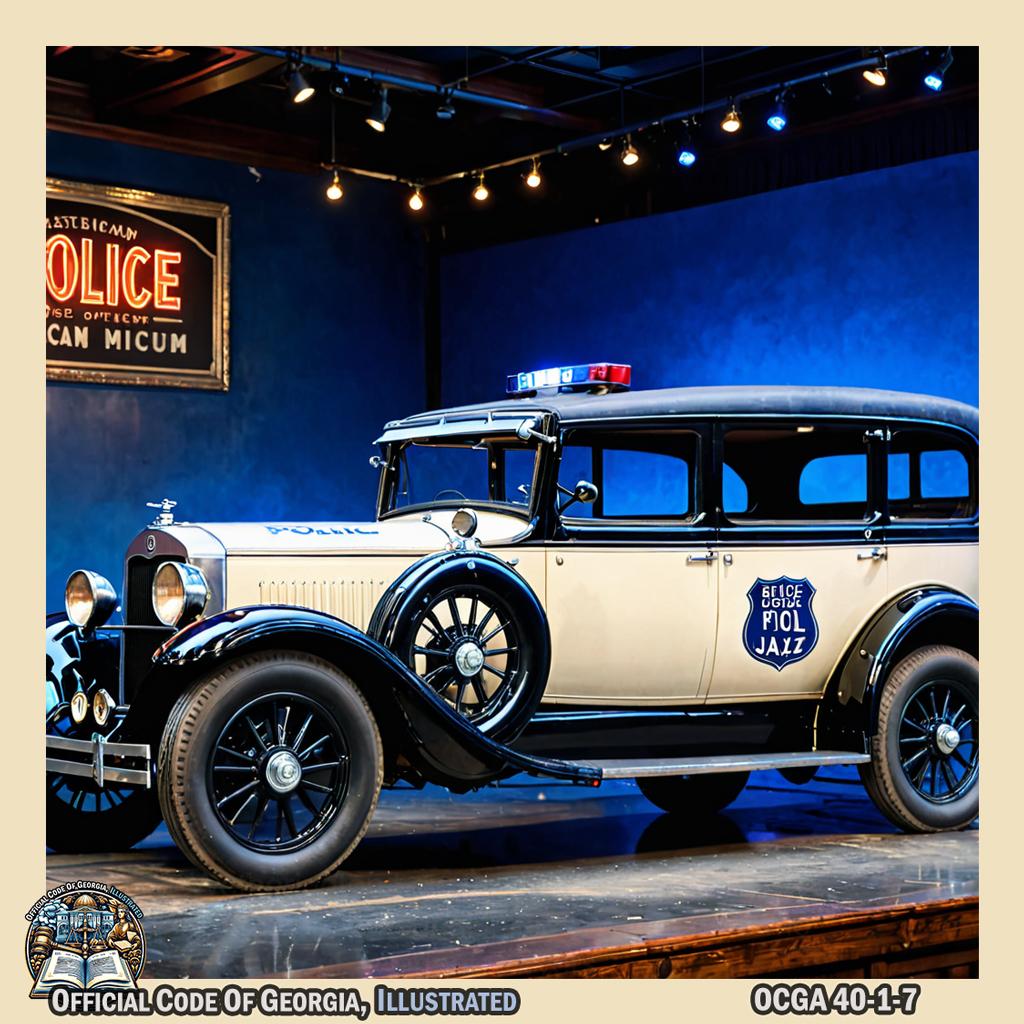
40-1-8.Safe operations of motor carriers, commercial motor vehicles, and drivers; safe transportation of hazardous materials.¶
-
As used in this Code section, the term:
-
“Commissioner” means the commissioner of public safety.

Lil Baby gracefully gesturing with his hands and arms to represent the concept of "commissioner means the commissioner of public safety," set against a backdrop reminiscent of Georgia O'Keeffe's style, in a vibrant and captivating art piece at Children's Hands-On Museum of Tuscaloosa. -@lilbaby4PF -
“Department” means the Department of Public Safety.
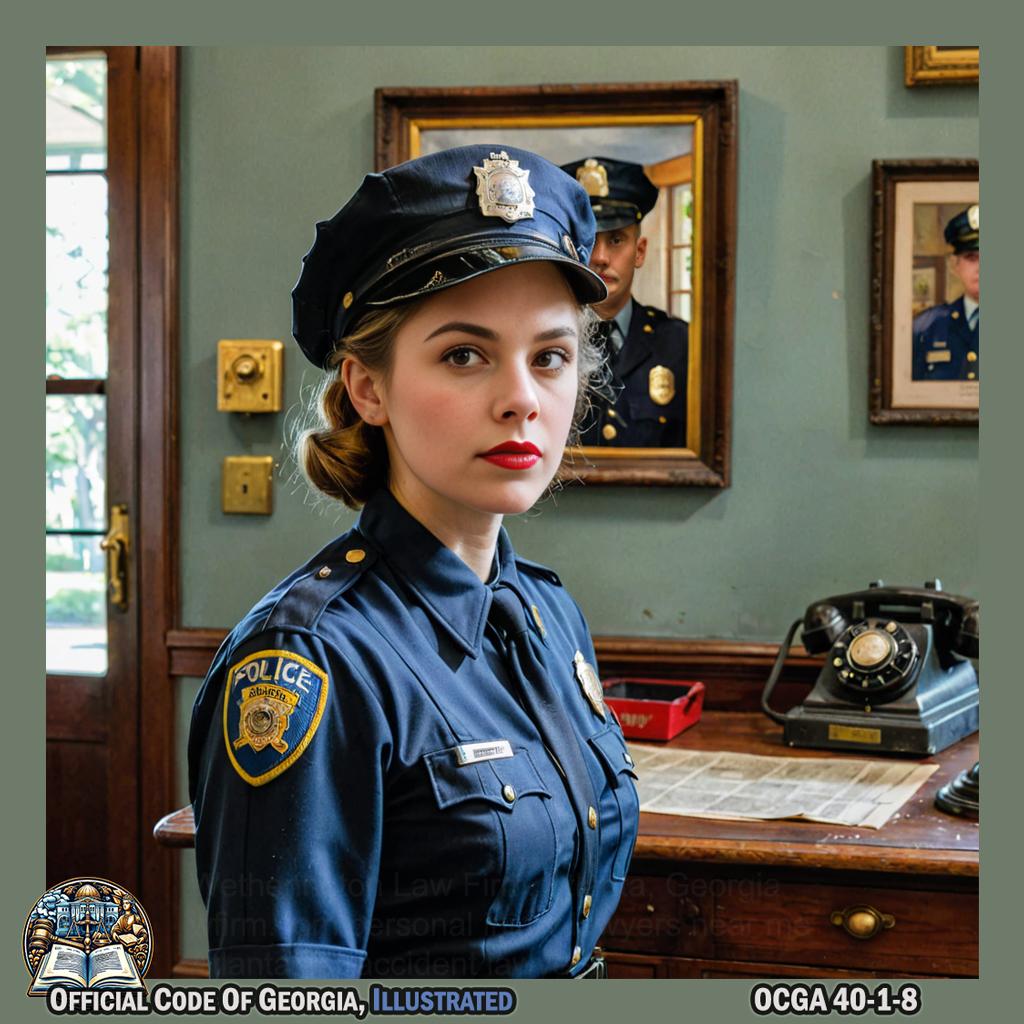
Laura Slade Wiggins, dressed as a 1940s police officer in the style of Vivian Maier's street photography, stands before an antique desk at Margaret Mitchell House, examining historical public safety equipment such as an old-fashioned fire extinguisher and police whistle, with a thoughtful expression that conveys the importance of understanding the role of public safety departments. -@LauraWiggins -
“Present regulations” means the regulations promulgated under 49 C.F.R. in force and effect on January 1, 2022.
-
-
The commissioner shall have the authority to promulgate rules and regulations for the safe operation of motor carriers, the safe operation of commercial motor vehicles and drivers, and the safe transportation of hazardous materials. Any such rules and regulations promulgated or deemed necessary by the commissioner shall include, but are not limited to, the following:

Lil Baby gracefully motions as if driving a motor vehicle, while holding a colorful bouquet of flowers and surrounded by floating figures in the style of Marc Chagall. -@lilbaby4PF -
Every commercial motor vehicle and all parts thereof shall be maintained in a safe condition at all times; and the lights, brakes, equipment, and all other parts or accessories shall meet such safety requirements designated by present regulations under Parts 393 and 396;

Big Boi gracefully twirls a large hoop, carefully inspecting and maintaining a grand vintage truck adorned with vibrant floral patterns and whimsical accessories, while colorful lights dance around him in the enchanting style of Jasmine Jan's art. -@BigBoi -
Every driver employed to operate a motor vehicle for a motor carrier shall:
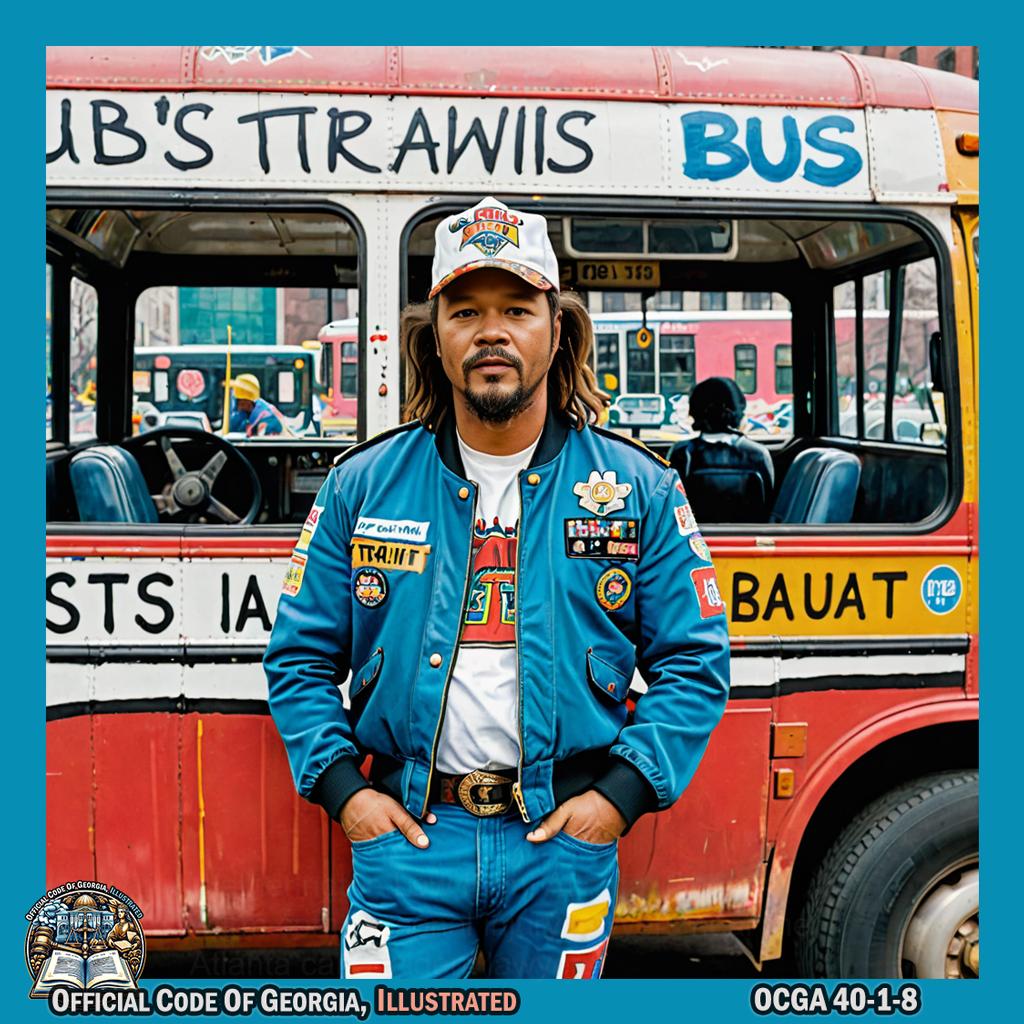
Travis Tritt, dressed as a driver complete with a cap and uniform, theatrically checks the tires of an abstractly painted bus (reminiscent of Basquiat's vibrant style) in the midst of colorful, chaotic shapes and symbols that evoke the Civil Rights Movement within the Albany Museum setting. -@Travistritt -
Be at least 18 years of age to operate a motor vehicle for a motor carrier intrastate and at least 21 years of age to operate a motor vehicle for a motor carrier interstate;

Henry Ashby Turner, dressed in a sleek Bauhaus-inspired outfit, gracefully and meticulously arranges different-sized geometric shapes to symbolize the age requirements for operating motor vehicles for motor carriers intrastate and interstate. -
Meet the qualification requirements the commissioner shall from time to time promulgate;
- Be of temperate habits and good moral character;
- Possess a valid driver’s license;
- Not use or possess prohibited drugs or alcohol while on duty; and
- Be fully competent and sufficiently rested to operate the motor vehicle under his or her charge;

Nick Markakis stands confidently, fully rested and competent, taking the steering wheel in his hands with a serene focus amidst the vibrant energy of Atlanta Jazz Festival, while embodying the surrealistic style of Max Ernst's art piece. -@markakisnick
-
-
Accidents arising from or in connection with the operation of commercial motor vehicles shall be reported to the commissioner of transportation in such detail and in such manner as the commissioner of transportation may require;
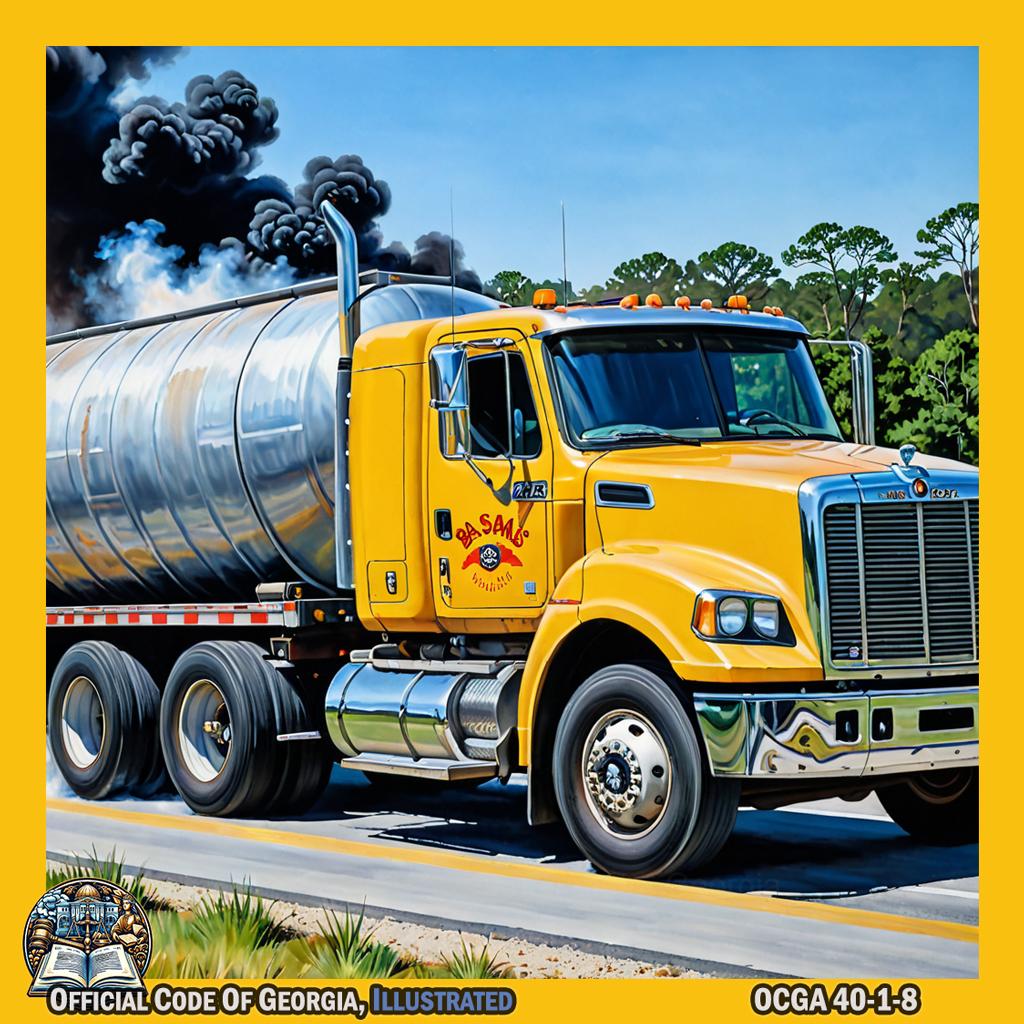
B. B. Sams, a South Carolina-born artist, performs the action of pretending to drive a big truck and then makes an exaggerated motion of reporting an accident, creating a scene reminiscent of an art piece by John McCracken. -
The commissioner shall require each commercial motor vehicle to have attached such distinctive markings as shall be adopted by the commissioner. Such identification requirements shall comply with the applicable provisions of the federal Unified Carrier Registration Act of 2005; and

Ethel Hillyer Harris, in a Picasso-esque abstract form with disjointed yet harmonious shapes, paints vibrant geometric patterns onto wooden model trucks, symbolizing the distinctive markings for commercial vehicles while surrounded by the stained glass beauty of Congregation Mickve Israel's interior. -
The commissioner shall provide distinctive rules for the transportation of unmanufactured forest products in intrastate commerce to be designated the “Georgia Forest Products Trucking Rules.”
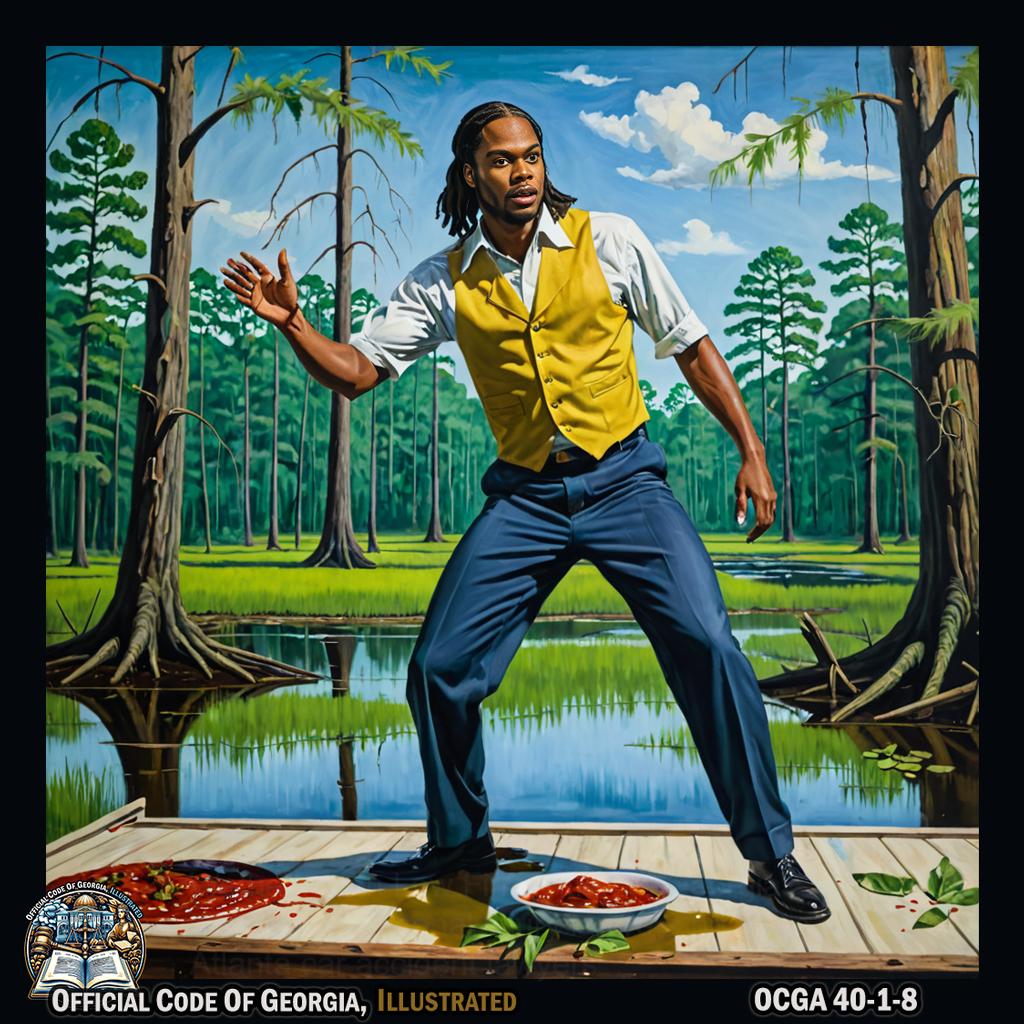
Waka Flocka Flame, born in New York City, acts out the creation of distinctive rules for transporting forest products in Georgia through a dramatic interpretive dance set against an Edward Hopper-style backdrop in Swamp Gravy. -@WakaFlocka
-
-
-
Regulations governing the safe operations of motor carriers, commercial motor vehicles and drivers, and the safe transportation of hazardous materials may be adopted by administrative order, including, but not limited to, by referencing compatible federal regulations or standards without compliance with the procedural requirements of Chapter 13 of Title 50, the “Georgia Administrative Procedure Act,” provided that such federal regulations or standards shall be maintained on file by the department and made available for inspection and copying by the public, by means including, but not limited to, posting on the department’s website. The commissioner may comply with the filing requirements of Chapter 13 of Title 50 by filing with the office of the Secretary of State the name and designation of such rules, regulations, standards, and orders. The courts shall take judicial notice of rules, regulations, standards, or orders so adopted or published.
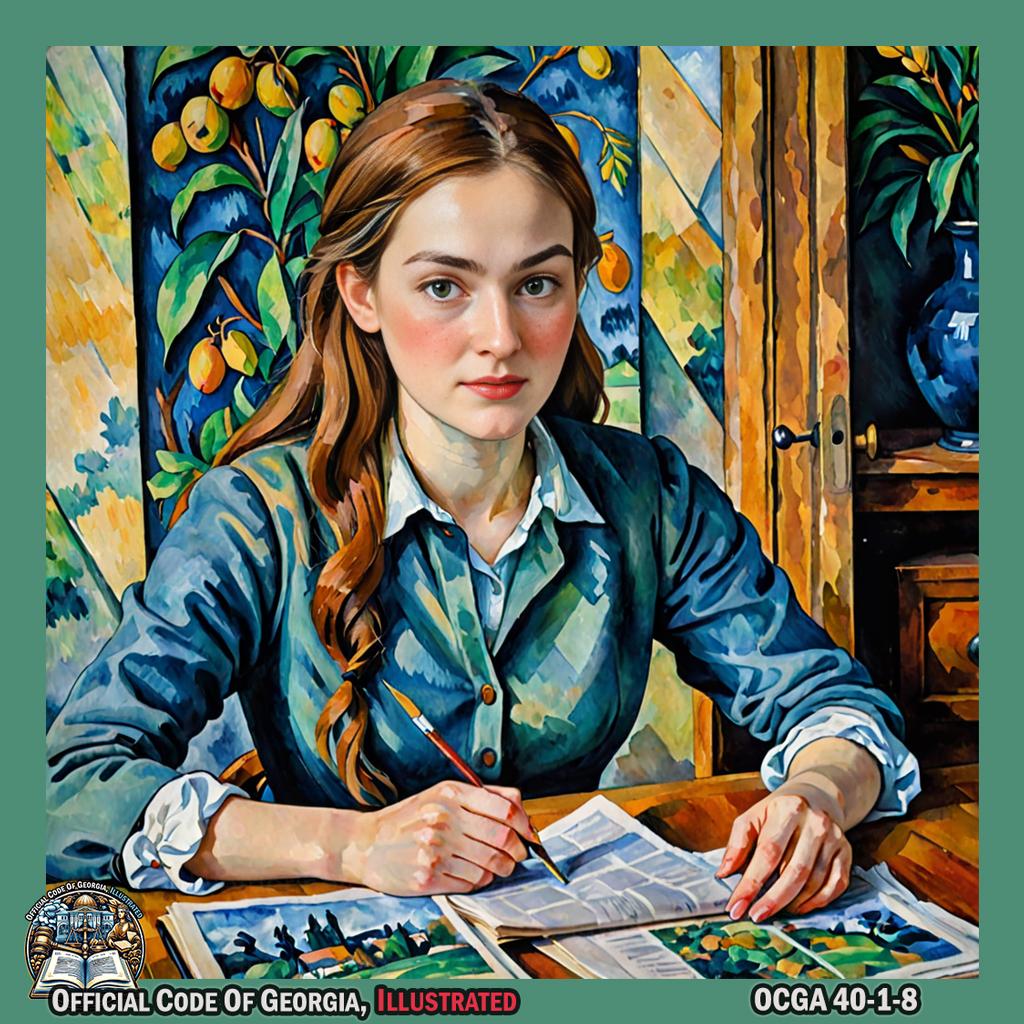
Hannah Salwen, in the style of Paul Cezanne, gracefully mimics the act of browsing through a large collection of documents and then filing them with an expressive flourish. -
Rules, regulations, or orders previously adopted, issued, or promulgated pursuant to the provisions of Chapter 7 or 11 of Title 46 in effect on June 30, 2011, shall remain in full force and effect until such time as the commissioner of public safety adopts, issues, or promulgates new rules, regulations, or orders pursuant to the provisions of this Code section.
-
-
-
The commissioner may, pursuant to rule or regulation, specify and impose civil monetary penalties for violations of laws, rules, and regulations relating to driver and motor carrier safety and transportation of hazardous materials. Except as may be hereafter authorized by law, the maximum amount of any such monetary penalty shall not exceed the maximum penalty authorized by law or rule or regulation for the same violation immediately prior to July 1, 2005.
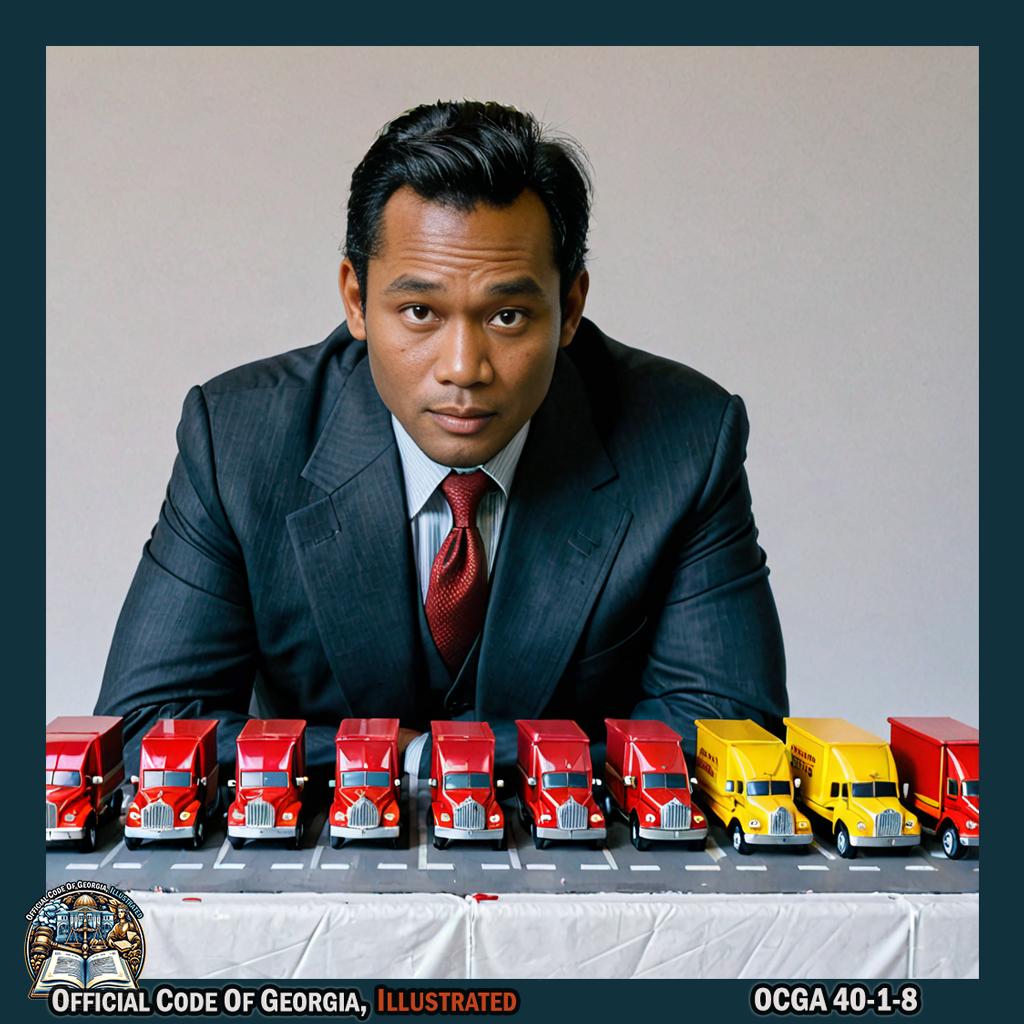
Kyle Love, dressed as a commissioner, theatrically examines and points to an array of toy trucks and cars on a table set against the backdrop of Abraham Lincoln's Birthplace. He moves oversized, colorful cardboard cutouts representing "penalty tickets" over certain vehicles, notably those carrying red-painted model barrels symbolizing hazardous materials. The scene captures the decisive moment in monochrome tones reminiscent of Hiroshi Sugimoto's photographic style. -
A cause of action for the collection of a penalty imposed pursuant to this subsection may be brought in the superior court of the county where the principal place of business of the penalized company is located or in the superior court of the county where the action giving rise to the penalty occurred.
-
-
The commissioner is authorized to adopt such rules and orders as he or she may deem necessary in the enforcement of this Code section. Such rules and orders shall have the same dignity and standing as if such rules and orders were specifically provided in this Code section. The commissioner is authorized to establish such exceptions or exemptions from the requirements of this Code section, as he or she shall deem appropriate, consistent with any federal program requirements, and consistent with the protection of the public health, safety, and welfare.
-
- The commissioner may designate members of the department, pursuant to Article 5 of Chapter 2 of Title 35, to perform regulatory compliance inspections. Members of county, municipal, campus, and other state agencies may be designated by the commissioner to perform regulatory compliance inspections only of vehicles, drivers, and cargo in operation, and may only enforce the provisions of rules and regulations promulgated under this Code section or Article 2 of this chapter subject to the provisions of a valid agreement between the commissioner and the county, municipal, campus, or other state agency.
- Unless designated and authorized by the commissioner, no members of county, municipal, campus, and other state agencies may perform regulatory compliance inspections.
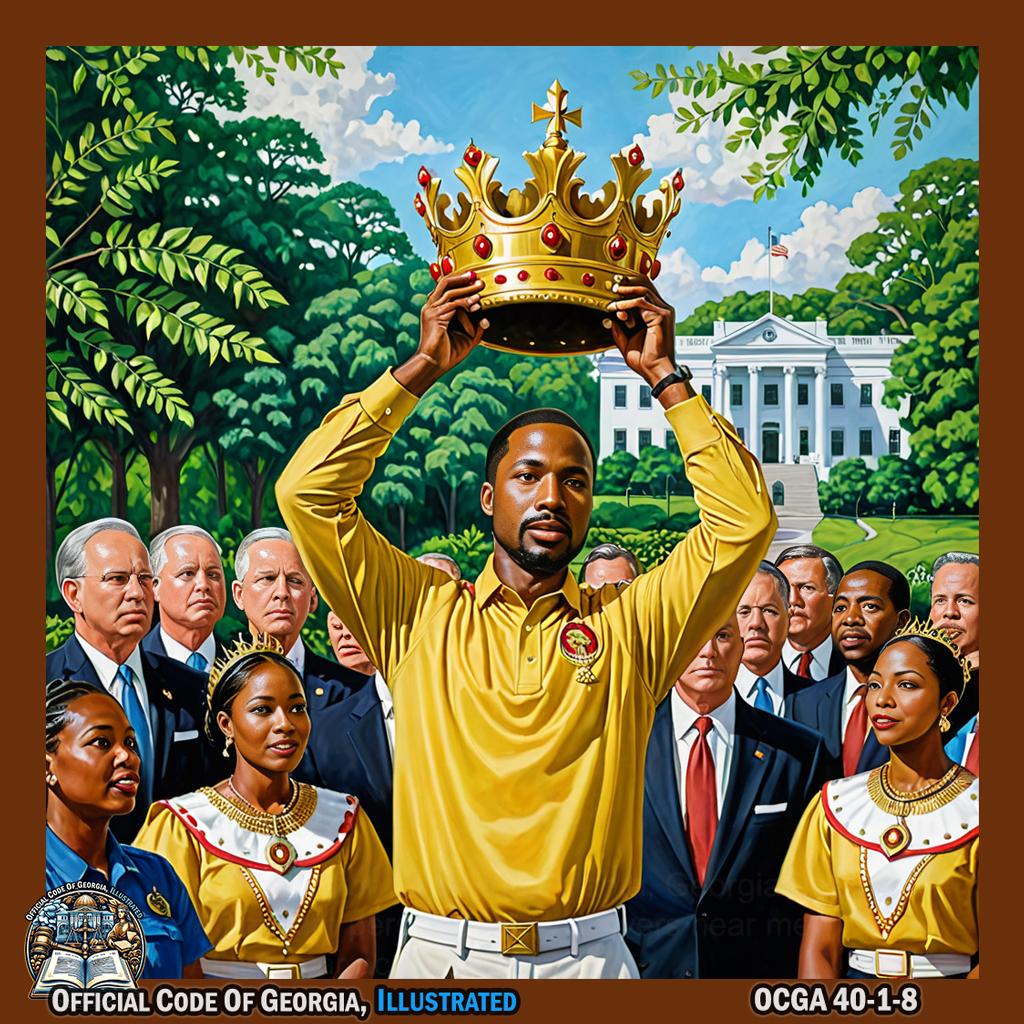
Lucian Lamar Knight carefully placing a majestic golden crown on the head of a person, who then proceeds to lead a group of officials through an elaborate dance routine symbolizing the restriction and authorization of regulatory compliance inspections, all set against the backdrop of Brookhaven's lush greenery and historic architecture.
-
No person shall drive or operate, or cause the operation of, a vehicle in violation of an out-of-service order. As used in this subsection, the term “out-of-service order” means a temporary prohibition against operating as a motor carrier or driving or moving a vehicle, freight container or any cargo thereon, or any package containing a hazardous material.
-
Unless otherwise provided by law, a motor carrier or operator of a commercial motor vehicle shall comply with present regulations as follows:

Kristian Stanfill gracefully mimics the act of driving a commercial motor vehicle while following regulations, set against a backdrop of vibrant murals and lush greenery in Fayetteville. -@kpstanfill -
Motor carrier safety standards found in 49 C.F.R. Part 391;

Joel Chandler Harris, in the style of Alberto Giacometti, contorts his body to mimic the shape and form of CFR Part 396 motor carrier safety standards while surrounded by a surreal Valdosta landscape. -
Motor carrier safety standards found in 49 C.F.R. Part 392, including but not limited to the seatbelt usage requirements in 49 C.F.R. Section 392.16; and

Lil Nas X, wearing a cowboy hat and boots, moves gracefully around a large mobile sculpture of colorful geometric shapes, using hand gestures to mimic the act of fastening and adjusting an invisible seatbelt while dancing to a catchy country tune. -@LilNasX -
Hours of service and record of duty status requirements of 49 C.F.R. Part 395.
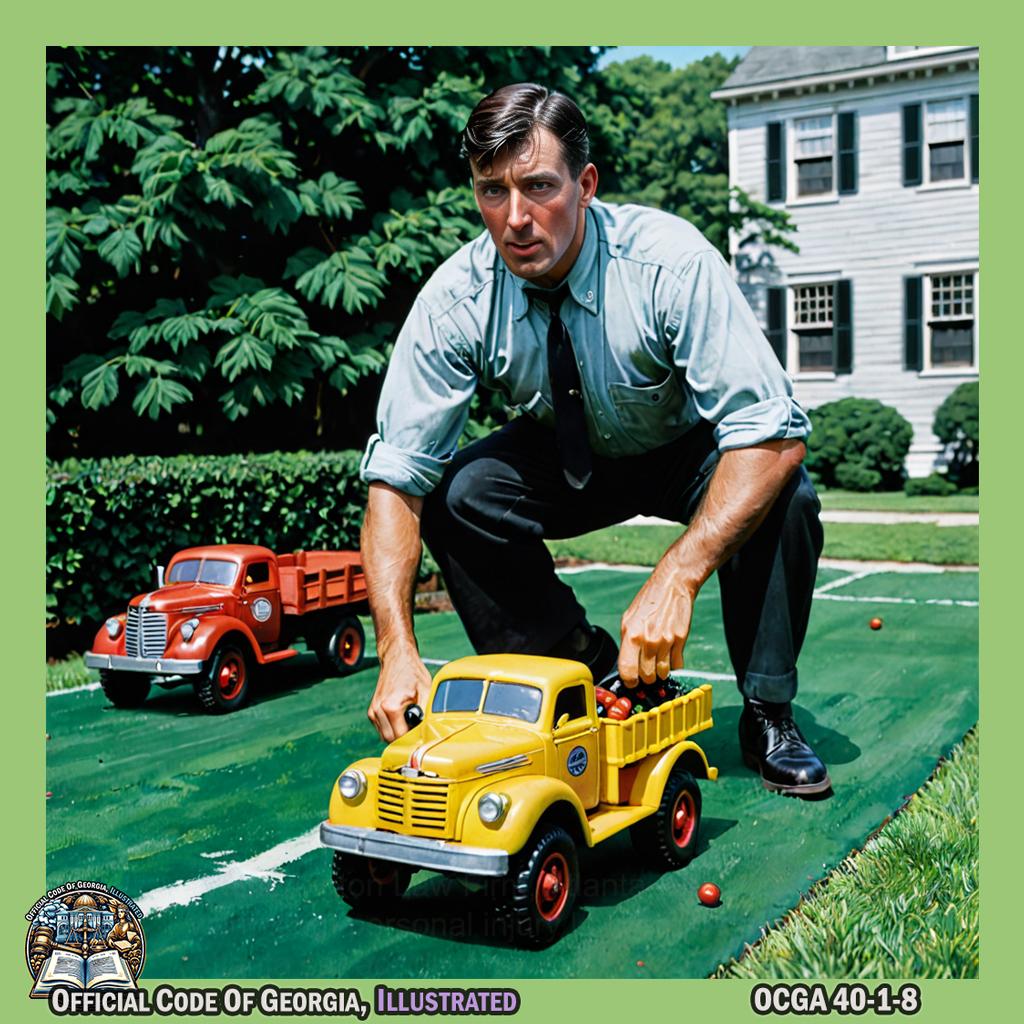
Patrick Mannelly strikes a dynamic pose akin to snapping a football, frozen in time as he meticulously aligns toy trucks on a grid that mimics a logbook, each truck representing an hour of service, against the backdrop of Colonial Homes' lush greenery and historic architecture, all captured in the crisp, high-contrast style of Berenice Abbott. -@PatrickMannelly
-
-
A person failing to comply with the requirements of paragraph (2) of subsection (h) of this Code section shall be guilty of the misdemeanor offense of failure to wear a seat safety belt while operating a commercial motor vehicle and, upon conviction thereof, shall be fined not more than $50.00 but shall not be subject to imprisonment. The costs of such prosecution shall not be taxed nor shall any additional penalty, fee, or surcharge to a fine for such offense be assessed against a person for conviction thereof. No points shall be added pursuant to Code Section 40-5-57 and no additional fines or penalties shall be imposed.

ILoveMakonnen performs Erlena Chisolm Bland's art piece by fastening an imaginary seatbelt, wearing a guilty expression, and shaking his head in a contemplative manner. -@iLoveMakonnen5D -
Every officer, agent, or employee of any corporation and every person who violates or fails to comply with this Code section or any order, rule, or regulation adopted pursuant to this Code section, or who procures, aids, or abets a violation of this Code section or such rule or regulation, shall be guilty of a misdemeanor. Misdemeanor violations of this Code section may be prosecuted, handled, and disposed of in the manner provided for by Chapter 13 of this title.

Keenan Webb spins around, arms outstretched, while wearing a vibrant costume resembling Margaret Wood Ward's art style, all set against the backdrop of Johns Creek. -@Remixgodsuede
40-1-9.[Repealed] Analysis on elimination of revalidation decal requirement for motor vehicle registration.¶
Article 2 Transportation of Hazardous Materials {#t40c01a02}

- 40-1-20. Short title.
- 40-1-21. Safe transportation of hazardous materials within state.
- 40-1-22. Definitions.
- 40-1-23. Regulatory compliance inspections; notification; contacts with state; permit required for transporting materials; escorts or inspections; exceptions; recovery for damage or discharge; civil monetary penalties; routing agencies; adoption of regulations.
- 40-1-24. Enforcement; use of funds; regulatory compliance inspections by others; examination of facilities.
- 40-1-25. Severability.

Singer Charles Kelley dramatically cuts a large piece of paper into smaller pieces, with exaggerated facial expressions and hand movements, resembling an art piece by Robert Motherwell. -@charleskelleyla
40-1-20.Short title.¶
This article shall be known and may be cited as the “Transportation of Hazardous Materials Act.”
40-1-21.Safe transportation of hazardous materials within state.¶
The General Assembly finds that the transportation of hazardous materials on the public roads of this state presents a unique and potentially catastrophic hazard to the public health, safety, and welfare of the people of Georgia and that the protection of the public health, safety, and welfare and the secure transportation of hazardous materials requires control and close regulation of such transportation to minimize that hazard and to that end this article is enacted. This is a remedial law and shall be liberally construed. The Department of Public Safety is designated as the agency to implement and enforce this article.

40-1-22.Definitions.¶
As used in this article, the term:
-
“Anhydrous ammonia” means the materials identified as “ammonia, anhydrous,” or “ammonia solutions with more than 50 percent ammonia and relative density less than 0.880 at 15 degrees Centigrade in water,” in federal hazardous materials regulations contained in Title 49 C.F.R.

Jakobi Meyers, dressed in a vibrant, abstract-patterned football uniform inspired by Margery E. Goldberg's style, theatrically lifts a large glass container filled with clear liquid and tilts it to pour into another oversized beaker, symbolizing the mixing of ammonia solutions. The backdrop is an exaggerated Dallas skyline made of colorful geometric shapes under a brilliant Texan sun mosaic. -@jkbmyrs5 -
“C.F.R.” means the United States Code of Federal Regulations, as it may be amended from time to time in the Federal Register.
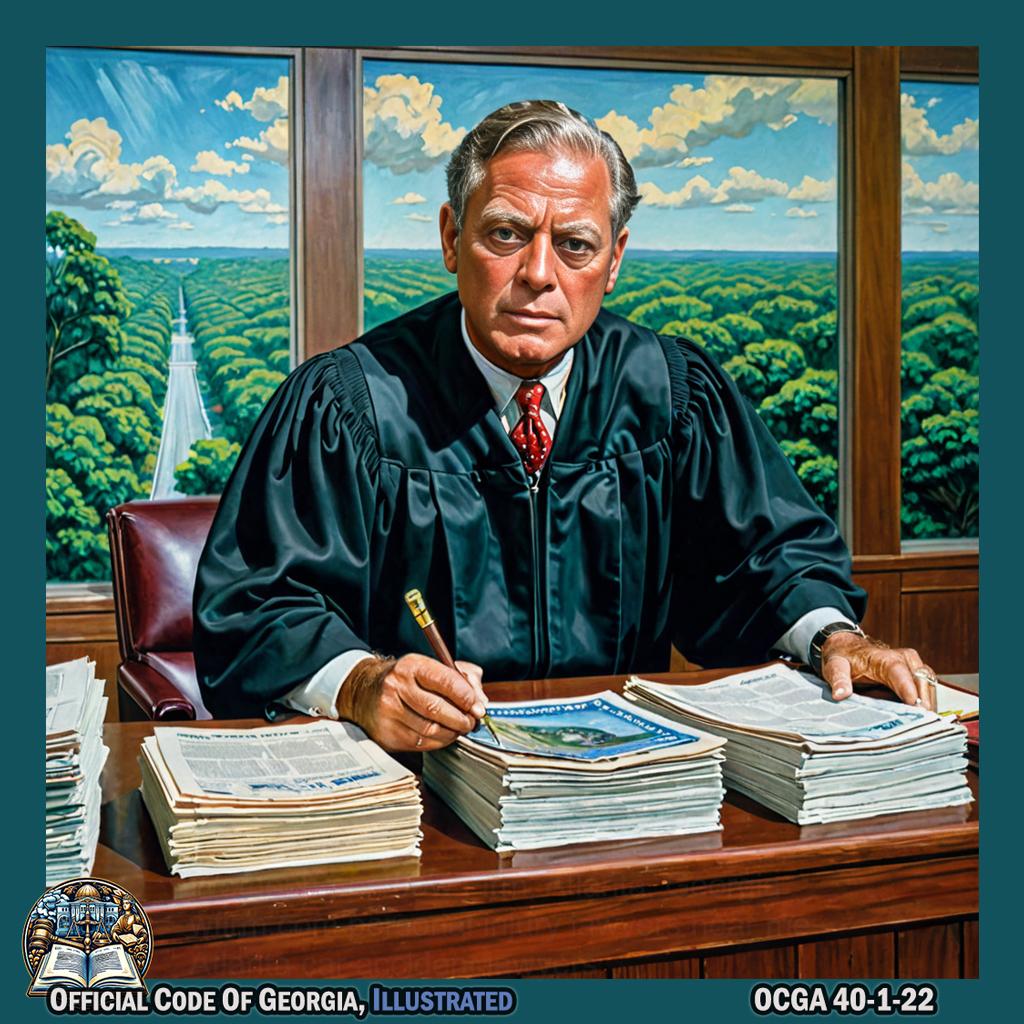
Richard T. Scott, dressed as a judge in a courtroom setting within the lush landscape of Kingsland, Georgia, dramatically stamps approval on a stack of oversized blank papers with an exaggeratedly large gavel to symbolize amending regulations, capturing the candid immediacy and social engagement reminiscent of Garry Winogrand's street photography style. -@richardtscott -
“Commissioner” means the commissioner of public safety.
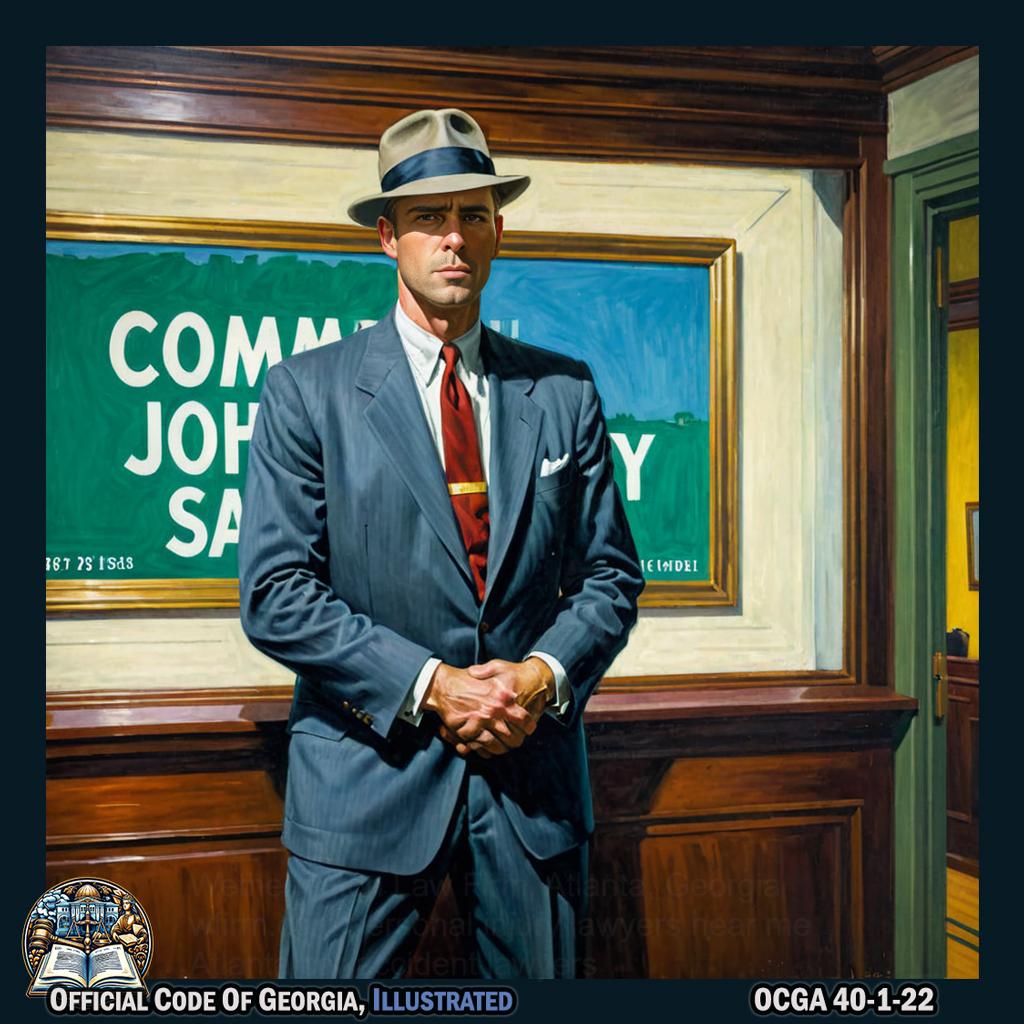
Hall Johnson, dressed in the style of Edward Hopper's art, could dramatically point to a sign reading "Commissioner of Public Safety" while striking a pose reminiscent of Hopper's iconic figures. -
“Department” means the Department of Public Safety.

Fanny Kemble gracefully raises her hand, symbolizing the Department of Public Safety, as she twirls elegantly in a flowing gown amidst the vibrant and lively atmosphere of Splash Island Waterpark, captured in the style of an art piece from Sally Mann. -
“Liquefied natural gas” or “LNG” means methane or natural gas in the form of a cryogenic or refrigerated liquid, as identified in federal hazardous materials regulations contained in Title 49 C.F.R.
- “Permit” means an instrument of whatever character or nature including, but not limited to, electronic format, issued by the department pursuant to this article.
-
“Person,” in addition to the meaning provided in paragraph (43) of Code Section 40-1-1, means and includes any individual, corporation, partnership, association, state, municipality, political subdivision of a state, and any agency or instrumentality of the United States government, or any other entity and includes any officer, agent, or employee of any of the above, who offers, ships, or carries a hazardous material in the furtherance of a commercial or business enterprise, whether or not such transportation is for-hire, or who manufactures, fabricates, marks, maintains, reconditions, repairs, or tests packages designed, used, or intended for the transportation of hazardous materials.

Actress Brianne Davis gracefully moves her arms and body to symbolize the various entities defined in the paragraph while using vibrant colors and expressive movements, all set against a backdrop of Americus, Georgia. -@thebriannedavis -
“Polychlorinated biphenyl” or “PCB” has the same meaning as the material identified in federal hazardous materials regulations contained in Title 49 C.F.R.
- “Radioactive material” has the same meaning as the term is used in federal hazardous materials regulations contained in Title 49 C.F.R.
- “Regulatory compliance inspection” means the examination of facilities, property, buildings, vehicles, equipment, drivers, employees, cargo, packaging, records, books, or supporting documentation kept or required to be kept in the normal course of offering or transporting hazardous materials, or in the normal course of manufacturing, fabricating, marking, maintaining, reconditioning, repairing, or testing packages designed, used, or intended for the transportation of hazardous materials.
- “Shipper” means any person who arranges for, provides for, solicits a carrier for, consigns to a carrier for, or contracts with a carrier for shipment or transport of goods, property, or persons. The terms “shipper” and “offeror” are synonymous.
40-1-23.Regulatory compliance inspections; notification; contacts with state; permit required for transporting materials; escorts or inspections; exceptions; recovery for damage or discharge; civil monetary penalties; routing agencies; adoption of regulations.¶
- Notwithstanding any other provision of law to the contrary, any person transporting, shipping, or offering for transportation hazardous material on the public roads of this state shall be subject to the requirements of this article. Persons who ship, offer, transport, or store incidental to transportation hazardous materials, or who manufacture, fabricate, mark, maintain, recondition, repair, or test packages used or intended for the transportation of hazardous materials, shall be deemed to have given consent to regulatory compliance inspections.
-
No person, including the state or any agency thereof, shall transport hazardous material in, to, or through this state on the public roads of this state, whether or not the hazardous material is for delivery in this state and whether or not the transportation originated in this state; nor shall any person deliver in this state any hazardous material to any person for transportation; nor shall any such person accept any hazardous material for transportation in this state without compliance with the following requirements: such materials shall be packaged, marked, labeled, handled, loaded, unloaded, stored, detained, transported, placarded, certified, secured, and monitored in compliance with rules and regulations promulgated by the commissioner pursuant to this article and consistent with federal law. Compliance with such rules and regulations shall be in addition to and supplemental of other regulations of the United States Department of Energy, United States Department of Transportation, United States Nuclear Regulatory Commission, Georgia Department of Natural Resources, and state fire marshal, applicable to such persons.
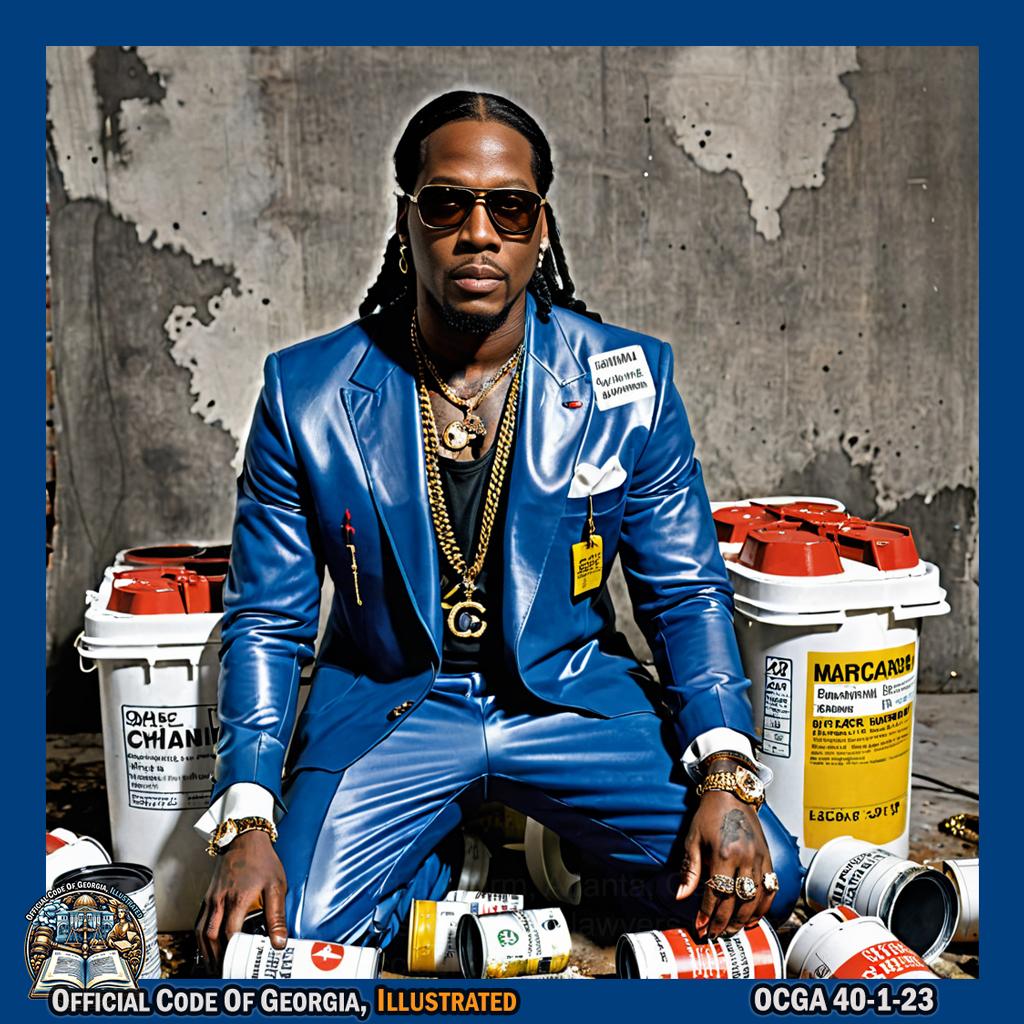
2 Chainz gracefully arranges and labels various hazardous material containers in an elegant, theatrical performance reminiscent of an art piece from Irving Penn, set against the backdrop of Peachtree Corners. -@2chainz -
-
The commissioner shall promulgate rules and regulations such that no person shall arrange for the transportation of or cause to be transported in, to, or through this state on the public roads of this state any hazardous material unless such person shall notify the commissioner or his or her designee in accordance with such rules and regulations; provided, however, that such notification requirements shall comply with applicable federal hazardous materials transportation law.
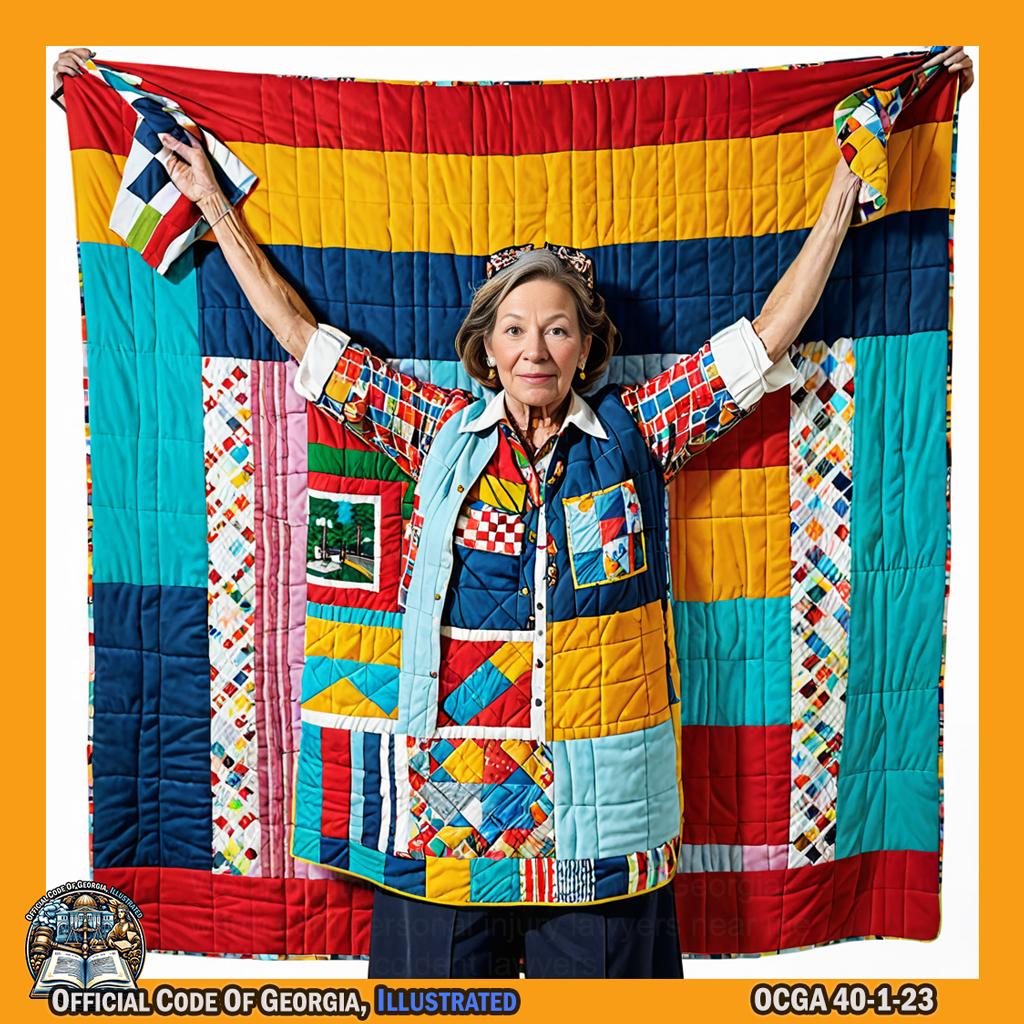
Harriet Powers, dressed in colorful and patterned clothing, gingerly holds up a quilt depicting the transportation of hazardous materials on public roads, using vibrant colors and mixed media inspired by Robert Rauschenberg's style, all set within the rich scene of Corpsewood Manor's crumbling ruins. -
Prior to the transport of spent nuclear fuel or high-level radioactive waste, as those terms are defined in 42 U.S.C. Chapter 108 as amended by the Federal Nuclear Waste Policy Act of 1982, the shipper shall notify the commissioner or his or her designee in the manner required by Title 10 C.F.R. Part 71 or Part 73.

Gunna gracefully dances across the forest floor, miming the transportation of nuclear waste with dramatic hand gestures and fluid movements, all set against a backdrop of vibrant Wolf Creek Trout Lilies in Whigham, Georgia. -@1GunnaGunna
-
-
Knowledge by a shipper that a carrier proposes to transport hazardous material in or through this state on the public roads of this state shall be sufficient contact with this state to subject such shipper to the jurisdiction of the commissioner and the courts of this state with respect to such transport.

Pat Dye dramatically gestures with outstretched arms, miming the act of steering a hazardous material-laden ship through the streets of Harland Terrace, Atlanta. -
-
No transportation of hazardous material shall take place in or through this state until the commissioner or his or her designee issues a permit authorizing the applicant to operate or move upon the state’s public roads a motor vehicle or combination of vehicles which carry hazardous materials. The commissioner or his or her designee may require changes in the proposed dates, times, routes, detention, holding, or storage of such materials during transport as necessary to maximize protection of the public health, safety, welfare, or the environment. The commissioner is authorized to promulgate reasonable rules and regulations which are necessary or desirable in governing the issuance of permits, provided that such rules and regulations are not in conflict with other provisions of law.
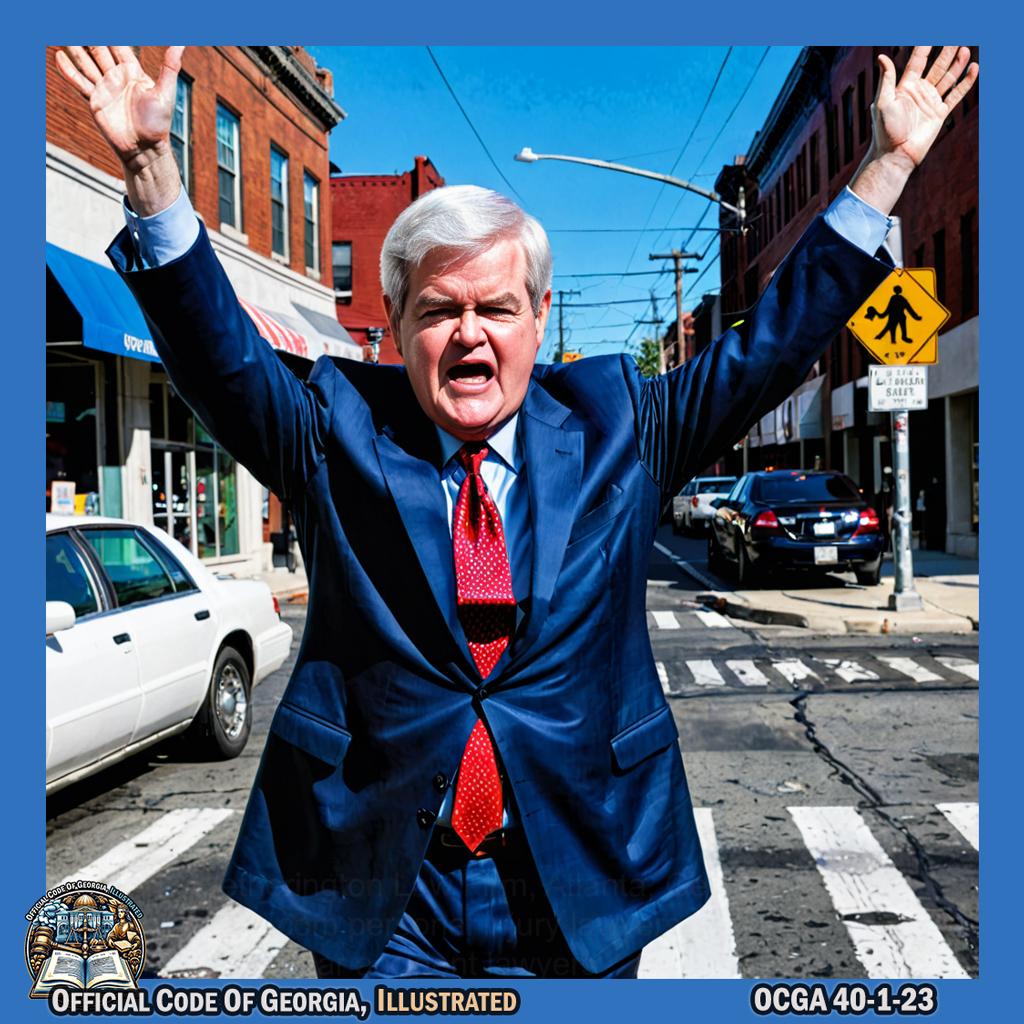
Newt Gingrich, in the style of a Richard Avedon art piece, stands on a LaGrange street corner with outstretched arms and eyes closed, as if halting traffic. -@newtgingrich -
Notwithstanding any provision of law to the contrary, pursuant to uniform permitting provisions of Federal Hazardous Materials Law, 49 U.S.C. Section 5119, the commissioner is authorized to adopt rules and regulations to bring state regulations into compliance with said federal law.
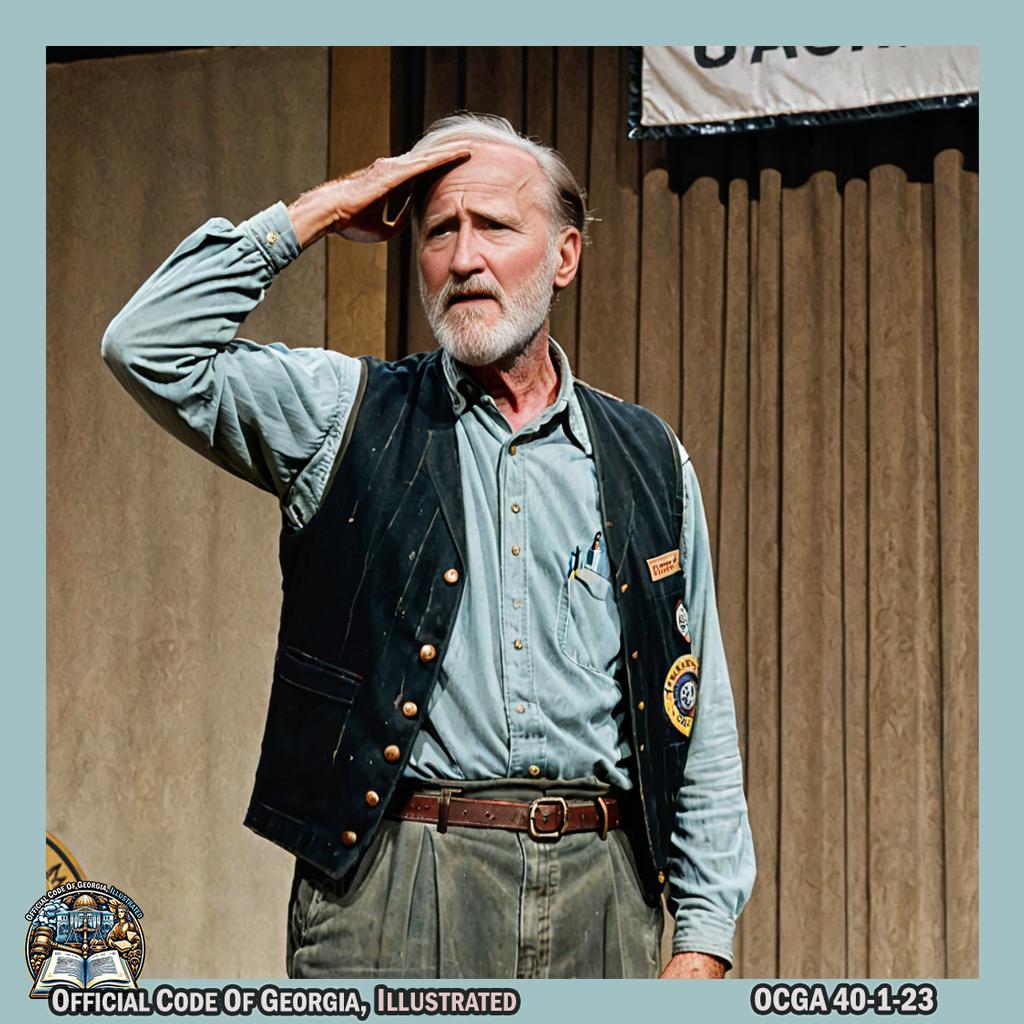
Scott Wilson, dressed in vintage clothing, stands on a stage with one arm outstretched and the other hand covering his mouth. He slowly raises a sign above his head that reads "Federal Hazardous Materials Law USC Section," while maintaining an expression of contemplation and concern.
-
-
Every such permit and all other documentation required by the commissioner shall be carried in the vehicles or combination of vehicles to which it refers and shall be open to inspection by any law enforcement officer, firefighter, emergency responder, or employee of the department who has been given enforcement authority by the commissioner.
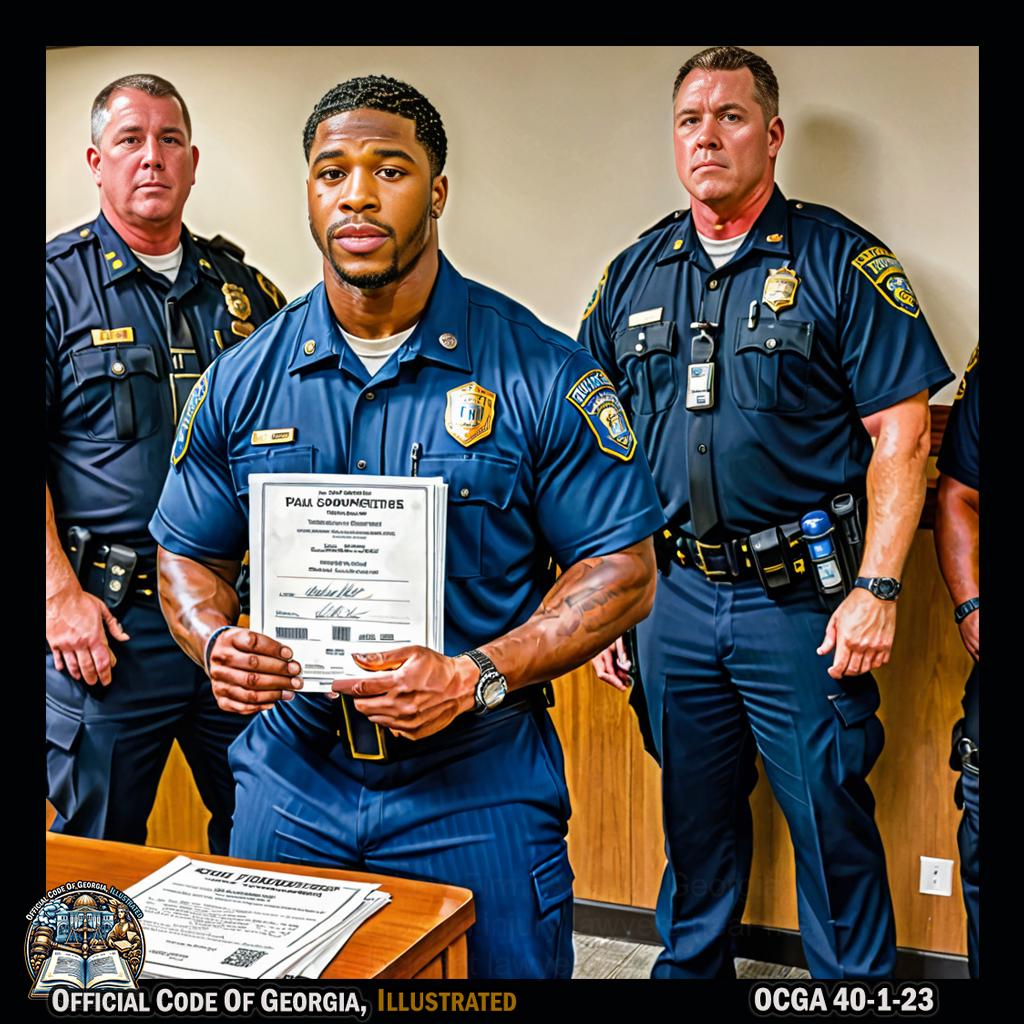
Football player Travon Walker gracefully holding a stack of permits and documentation while surrounded by law enforcement officers, firefighters, emergency responders, and department employees with outstretched hands inspecting the documents in the style of an art piece from Paul Giovanopoulos. -@D1Figure_ -
For just cause, including, but not limited to, repeated and consistent past violations, the commissioner may refuse to issue or may cancel, suspend, or revoke the permit of an applicant or permittee.
-
-
The commissioner or the official designated by the commissioner, pursuant to this Code section and the rules and regulations developed by the commissioner, may issue annual permits which shall allow vehicles transporting hazardous materials to be operated on the public roads of this state for 12 months from the date such permit is issued.

In a vivid and dynamic art piece inspired by Gordon Parks, football player Travon Walker raises his arms triumphantly as he receives an annual permit to transport hazardous materials on the public roads of Georgia. The scene is set in College Park, with vibrant colors and energetic movement capturing the excitement of this important event. -@D1Figure_ -
The commissioner or the official designated by the commissioner, pursuant to this Code section and the rules and regulations developed by the commissioner, may issue a single-trip permit to any vehicle.

Mel Blount, dressed in a suit and holding a gavel, stands on a stage with a large map of the world behind him. He points to different countries on the map while handing out single-trip permits to various vehicles placed around the stage. -
Pursuant to this article, the commissioner may charge a fee for the issuance of such permits and may develop and adopt an apportionment schedule for fees to be established by rules and regulations promulgated by the commissioner. The fee for the issuance of an annual trip permit shall be not more than $100.00.

Sam Madison, dressed as a commissioner in vibrant abstract-patterned attire, stands at a large canvas stationed at the Douglasville town center; he dips oversized brushes into buckets of various bright colors and theatrically applies strokes on the canvas to symbolize the issuance of permits, with each colorful section representing different fee apportionments, echoing Ian McKeever's style of blending light and form. -@sammaddie29
-
-
The commissioner may arrange for escorts or inspections which comply with Code Section 35-2-101.
-
For purposes of this article, the commissioner is expressly authorized to contract with any other state or local agency or department to perform any activities necessary to implement this article. Enforcement of this article and any rules, regulations, or orders promulgated, adopted, or issued hereunder shall be the sole province of the department and those entities the commissioner authorizes in writing, except for provisions relating to anhydrous ammonia.

Demaryius Thomas gracefully extending his hand to contract with another player while surrounded by swirling ribbons and vibrant colors, embodying the authority of the commissioner in a captivating art piece. -@DemaryiusT -
-
Notwithstanding any other provisions of this article, the commissioner is authorized to establish such exceptions or exemptions from the requirements of this article, or any provision hereof, for such kinds, quantities, types, or shipments of hazardous materials as he or she shall deem appropriate, consistent with the protection of the public health, safety, and welfare.

Lenny Von Dohlen gracefully extends arms and hands sculpting the air around him in a fluid expressive manner to create an ethereal dance embodying Notwithstanding any other provisions of this article the commissioner is authorized to establish such exceptions or exemptions from the requirements of this article or any provision hereof for such kinds quantities types or shipments of hazardous materials as he or she shall deem appropriate consistent with the protection of public health safety and welfare. -
Specifically, but without limitation, the commissioner shall continue in force the agricultural exceptions in 49 C.F.R. Section 173.5, and the tank exceptions in 49 C.F.R. Section 173.8, as originally adopted in Public Service Commission Appendix “A” File MCA 1-3, Docket No. 16632-M, effective June 1, 1998.

Crime Mob gracefully dances and moves through a field of agricultural equipment and industrial tanks, creating an art piece in the style of Christo and Jeanne-Claude, against the backdrop of Elmco Estates neighborhood in Atlanta. -@CrimeMobAtl
-
-
This article shall not apply to the transportation, delivery, or acceptance for delivery of radioactive materials inside the confines of a single contiguous authorized location of use of any person authorized to use, possess, transport, deliver, or store radioactive materials by the Department of Natural Resources pursuant to Chapter 13 of Title 31 or by the United States Nuclear Regulatory Commission; nor shall this article apply to the transportation, delivery, or acceptance for transportation of radioactive materials under the direction or supervision of the United States Nuclear Regulatory Commission, United States Department of Energy, United States Department of Defense, or other federal agency authorized to possess or transport such material where such transportation, delivery, or acceptance for transportation is escorted by personnel designated by or under the authority of those agencies.

Singer Khalid gracefully dances and mimes the handling of radioactive materials, embodying the complex regulations through expressive movement, all within the inviting ambiance of For Keeps Bookstore, where rare and classic books by Black authors serve as a backdrop for his artistic interpretation. -@thegreatkhalid -
This article shall not apply to interstate pipeline facilities which are subject to the jurisdiction of the United States Department of Transportation under the Natural Gas Pipeline Safety Act of 1968.

James Keach walks across the stage, his movements fluid and expressive as he mimics the flow of a pipeline, representing the interstate pipeline facilities. As he reaches out to touch an invisible line, he suddenly freezes in a dramatic pose symbolizing the jurisdiction of the United States Department of Transportation under the Natural Gas Pipeline Safety Act. The entire performance is done in a style reminiscent of surrealism, with exaggerated gestures and dreamlike sequences that captivate the audience at Ware-Lyndon House/Lyndon House Arts Center. -@james_keach -
- In the event of any damage to state property or any discharge of hazardous materials from the authorized shipping package or container or any threat of such discharge which results from the transportation, storage, holding, detention, delivery for transportation, or acceptance for transportation of hazardous materials in this state, the state may recover from any shipper, carrier, bailor, bailee, or any other person responsible for such storage, transportation, holding, detention, delivery, or acceptance all costs incurred by the state in the reparation of the damage and all costs incurred in the prevention, abatement, or removal of any such discharge or threatened discharge, including reasonable attorney’s fees incurred with respect to recovery.
-
The commissioner is expressly authorized to charge reasonable fees for time, equipment, materials, and supplies used or incurred by the department in the implementation of this article.

In a richly-detailed scene in St. Marys, Cyhi the Prynce dramatically gestures and holds up an oversized hourglass, surrounded by an array of colorful and eclectic materials while staring intensely into the camera, capturing Nan Goldin's signature raw and intimate style. -@CyhiThePrynce -
The commissioner may issue civil penalties against any person found in violation of this article or any regulations promulgated or adopted for the safe and secure transportation of hazardous materials. Such penalties shall not exceed the limits established by 49 U.S.C. Chapter 51.

Kazimierz Pułaski, dressed in nobleman attire, dramatically raises a quill pen and sternly points it at a person representing the violator of hazardous materials transportation regulations, while an imaginary civil penalty document is signed with a flourish. The scene is captured in the style of Walker Evans, with dramatic lighting and stark contrasts to emphasize the seriousness of the action.
-
Any person, firm, or corporation transporting methamphetamine, amphetamine, any mixture containing either methamphetamine or amphetamine, anhydrous ammonia, or any mixture containing anhydrous ammonia, shall be subject to all rules and regulations promulgated by the commissioner pursuant to this article governing the safe operation of motor vehicles and drivers and the safe transportation of hazardous materials.

Forrest Griffin, a martial artist born in Ohio, performs a dynamic and fluid dance-like movement to express the transportation of hazardous materials as per the sentence. The scene is set in Oakland City neighborhood in Atlanta with Renee Stout's art style infused with vibrant colors and swirling patterns. -@ForrestGriffin -
Notwithstanding the provisions of this Code section, the commissioner may impose civil monetary penalties in an amount not to exceed the maximum amounts for penalties established by 49 U.S.C. Chapter 51 for each violation of any rules and regulations promulgated pursuant to this article with respect to persons transporting methamphetamine, amphetamine, any mixture containing either methamphetamine or amphetamine, anhydrous ammonia, or any mixture containing anhydrous ammonia.

Dean Alford gracefully dances with colorful ribbons, each representing the various substances mentioned in the sentence, creating a whimsical and dreamlike scene reminiscent of Marc Chagall's art. -
The department is designated as the routing agency as defined in Title 49 C.F.R. Part 397, Subpart E. Routing determinations for hazardous materials shall be made in accordance with the provisions of Federal Hazardous Materials Law, 49 U.S.C. Section 5112. The commissioner or his or her designee shall consult with Georgia Department of Transportation, Georgia Department of Natural Resources, Georgia Emergency Management and Homeland Security Agency, Georgia Department of Homeland Security, or other agencies as necessary to carry out these responsibilities.

2 Chainz, dressed as a commissioner with an oversized golden key around his neck, is orchestrating traffic using large foam arrows to direct various colorful toy trucks labeled "hazardous materials" on a vividly painted map of Georgia on the floor; above him hangs a frame mimicking David Bailey's stark monochrome style, creating a dynamic contrast between the playful scene below and the serious art form. -@2chainz -
Drivers who transport hazardous materials shall be trained at least to the minimum standards required by federal law. Upon request by the commissioner, proof of such federally required driver training shall be made available to the commissioner or his or her staff.
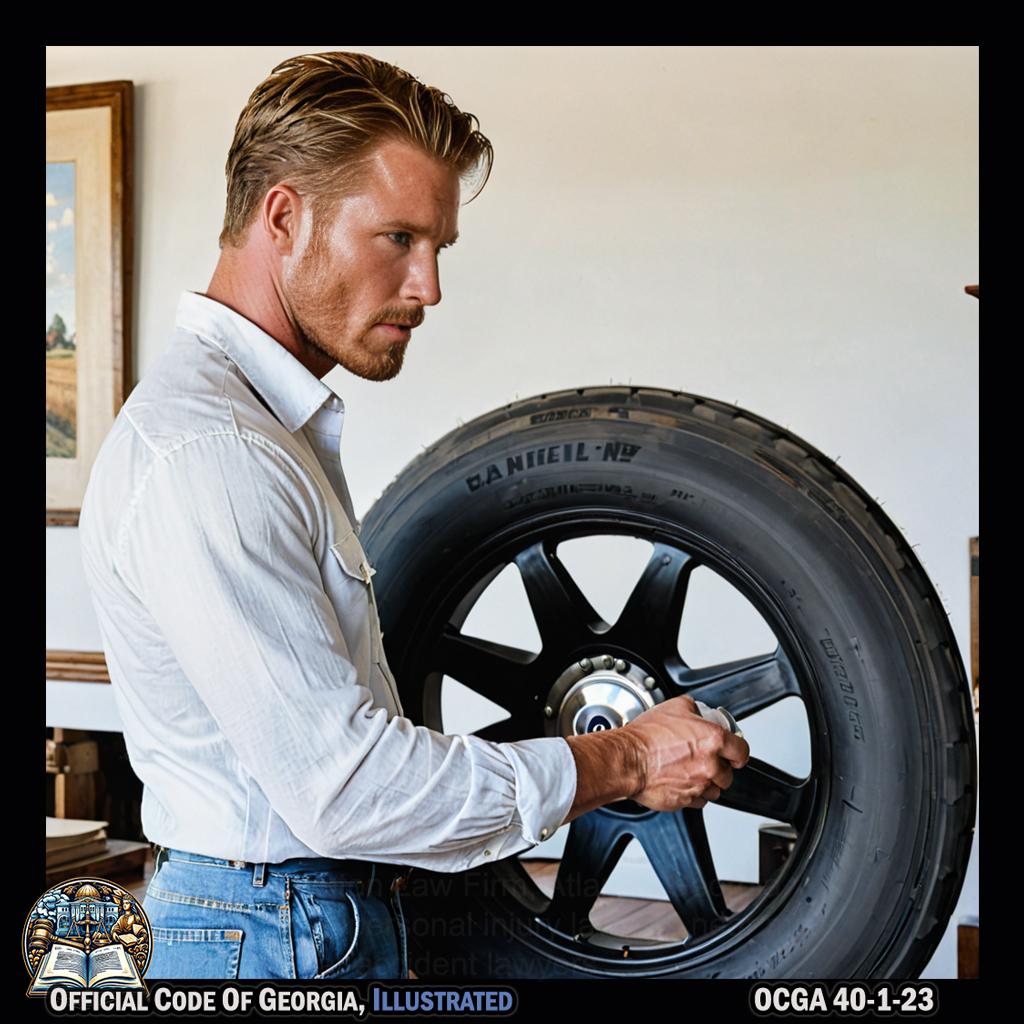
Daniel Newman, wearing a crisp white shirt and denim jeans, mimics steering a large truck wheel with focus and precision in the sunlit parlor of Goodyear Cottage, while another person dressed as a commissioner inspects an imaginary document he presents; all captured in high-contrast black-and-white reminiscent of Herb Ritts' iconic style. -@DanielNewman -
For the transportation of spent nuclear fuel, high-level radioactive waste, and other hazardous materials, the commissioner may take action to ensure that motor vehicles, drivers, and packages used in such transportation have been inspected to show compliance with the federal motor carrier safety regulations and federal hazardous materials regulations, and compatible state regulations adopted pursuant to this article.

Big Boi stands on a stage in Valdosta, pretending to inspect and load hazardous materials onto a motor vehicle while dancing and singing, all in the style of Mary Cassatt's art piece. -@BigBoi -
Notwithstanding any other provisions of law, a bond or indemnity insurance required of carriers shall be established by rules and regulations of the commissioner and shall for all persons subject to this article, whether intrastate or interstate carriers, be at least in the maximum amount or amounts authorized or required by federal law or regulations.

Blind Simmie Dooley sits at a lavish desk, adorned with vintage scales and a gavel, in a grand Lilburn estate garden; he meticulously stacks coins to represent increasing bond amounts under the watchful gaze of an imposing Robert Mapplethorpe portrait, expressing scrutiny and authority. -
No person shall transport or cause the transportation of hazardous materials in violation of an out-of-service order.
-
In addition to any other liability imposed by law, any person who violates or fails to comply with any provision of this article, or any rule, regulation, or order promulgated, adopted, or issued hereunder, shall be guilty of a misdemeanor. Misdemeanor violations of this article may be prosecuted, handled, and disposed of in the manner provided for by Chapter 13 of this title.

Actress Jena Sims slowly and dramatically raises her hand to represent the violation of a law, while embodying the emotional intensity characteristic of Nan Goldin's art. -@jenamsims -
-
The commissioner is authorized and empowered to adopt, promulgate, amend, repeal, or modify such standards, rules, and regulations and to issue such orders, authorizations, or amendments or modifications thereof as are necessary to implement this article. Any standards, rules, or regulations adopted pursuant to this article, if consistent with the applicable laws relating to adoption of such standards, rules, or regulations, shall have the force and effect of law. Any such rules and regulations shall be compatible with federal motor carrier safety regulations and federal hazardous materials regulations in Title 49 C.F.R.

Hulk Hogan dramatically gesturing and motioning with his arms and hands, as if enacting the adoption, promulgation, amendment, repeal, or modification of rules and regulations while standing in a grand and ornate setting in Chamblee. -@HulkHogan -
Regulations governing the safe operations of motor carriers, commercial motor vehicles, and drivers and the safe and secure transportation of hazardous materials may be adopted by administrative order, including, but not limited to, referencing compatible federal regulations or standards without compliance with the procedural requirements of Chapter 13 of Title 50, the “Georgia Administrative Procedure Act,” provided that such compatible federal regulations or standards shall be maintained on file by the department and made available for inspection and copying by the public, by means including, but not limited to, posting on the department’s Internet site. The commissioner of public safety may comply with the filing requirements of Chapter 13 of Title 50 by filing with the office of the Secretary of State merely the name and designation of such rules, regulations, standards, and orders. The courts shall take judicial notice of rules, regulations, standards, or orders so adopted or published.
-
Rules, regulations, or orders previously adopted, issued, or promulgated pursuant to the provisions of Chapter 7 or 11 of Title 46 in effect on June 30, 2011, shall remain in full force and effect until such time as the commissioner adopts, issues, or promulgates new rules, regulations, or orders pursuant to the provisions of this article.

Madeleine Peyroux, in the style of Michelangelo's art, gracefully extends her hand as if holding a scroll before an audience in Powder Springs, embodying the enactment of previous rules and regulations while symbolizing the potential for new ones to come. -@mpeyrouxmusic -
The department shall, to the extent practicable, engage in education, outreach, and customer service activities to reach persons and entities affected by these regulations and to assist the competitiveness of Georgia citizens and businesses engaged in regulated activities.
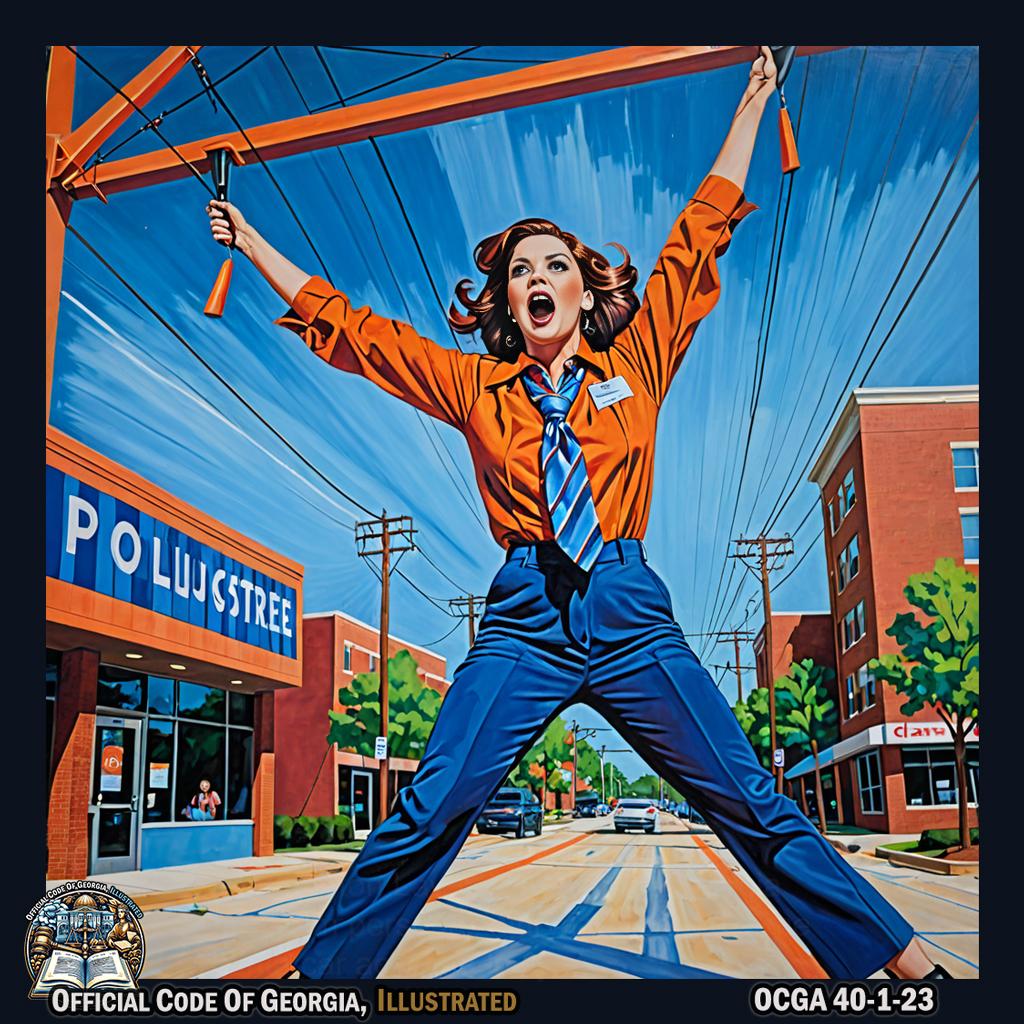
Pylon, in the style of Clara Southern, engages in a dynamic performance where they use exaggerated gestures and expressive movements to depict the outreach and assistance activities described in the sentence. The scene is set in Peachtree Corners, with Pylon surrounded by vibrant visuals representing education outreach and customer service efforts.
-
40-1-24.Enforcement; use of funds; regulatory compliance inspections by others; examination of facilities.¶
- The commissioner is authorized to employ such persons as may be necessary, in the discretion of the commissioner, for the proper enforcement of this article, as provided for in this article and Chapter 2 of Title 35. It is the intent of the General Assembly, subject to the appropriations process, that funds derived under this article shall be used to further the Department of Public Safety’s hazardous materials transportation safety programs; provided, however, that the department shall retain those funds derived specifically for inspection or escort.
-
The commissioner is vested with police powers and authority to designate, deputize, and delegate to employees of the commissioner the necessary authority to enforce this article, including the power to stop and inspect all motor vehicles using the public highways and to enter upon and inspect shipper and carrier facilities for purposes of determining whether such vehicles and facilities have complied with and are complying with the provisions of this article and all other laws regulating the use of the public highways by motor vehicles, and to arrest all persons found in violation thereof, and to issue out-of-service orders to carriers, vehicles, and drivers in accordance with criteria which shall be established or adopted by the commissioner.

Jessye Norman, dressed in a police uniform, directing traffic on a bustling street in Waycross while inspecting vehicles and facilities with an air of authority and confidence, creating a scene reminiscent of Thomas Struth's art style. -
As designated by the commissioner, by way of agreement, members of county, municipal, campus, and other state agencies may only perform regulatory compliance inspections of vehicles, drivers, and cargo in operation, and enforce the provisions of this article and rules and regulations promulgated hereunder subject to the terms and conditions of that agreement.
- The commissioner is vested with powers to designate, deputize, and delegate to employees of the department the necessary authority to enter upon and examine the facilities where hazardous materials are filled, offered, shipped, or stored incidental to transportation, or where packages are manufactured, fabricated, marked, maintained, reconditioned, repaired, or tested for purposes of regulatory compliance inspections for determining compliance with this article and other laws the administration or enforcement of which is the responsibility of the department.

Bill Lowery, dressed in a suit and tie, dramatically points to various employees while making grand hand gestures as if bestowing authority upon them, all set against a backdrop of a sprawling industrial facility with workers bustling about, capturing the scene in an expansive and detailed photograph reminiscent of Andreas Gursky's style.
40-1-25.Severability.¶
In the event that any section, paragraph, or other part of this article, or any requirement thereunder, or any rule, regulation, or order of the commissioner promulgated hereunder, is found to be preempted by federal law, or otherwise found to be improper, null or otherwise void, all other requirements not so preempted or otherwise so found shall remain in full force and effect.
Article 3 Motor Carriers¶
- PART 1 Georgia Motor Carrier Act of 2012
-
PART 2 Certification of Motor Carriers

Sada Jacobson elegantly enacts the certification process for motor carriers, using dramatic fencing movements to symbolize the precision and agility required, all captured in a surreal and avant-garde style reminiscent of Man Ray's art. - PART 4 Ride Share Network Services and Transportation Referral Services
- PART 5 Georgia Peer-to-Peer Car-Sharing Program

Patrick Mannelly holding a steering wheel, surrounded by floating car keys and people in flowing robes, with dramatic lighting and shadows reminiscent of Sally Mann's style. -@PatrickMannelly
PART 1 Georgia Motor Carrier Act of 2012¶
-
40-1-50. Short title.

The B-52's hold up a trophy with giant smiles, like an art piece from Russell Drysdale. -@TheB52s - 40-1-52. Establishment of Motor Carrier Compliance Division.
- 40-1-53. “Department” defined; methods of enforcement.
-
40-1-54. Rules and regulations for implementation and administration.

Lil Nas X performs as a traffic cop, directing imaginary cars with exaggerated hand gestures in the style of a Paul Cezanne art piece. -@LilNasX -
40-1-56. Financial penalty for violations; suspension of certificate or permit; notice; review.

Clergyman Michael Catt performs the action in a rich scene at KidSenses Children's Interactive Museum in Georgia, drawing a person being handed a large fake check with a big "X" through it, while their certificate or permit is taken away by someone in authority, as other people stand around looking concerned. -@MichaelCatt -
40-1-57. Applicability of prior action of Public Service Commission.
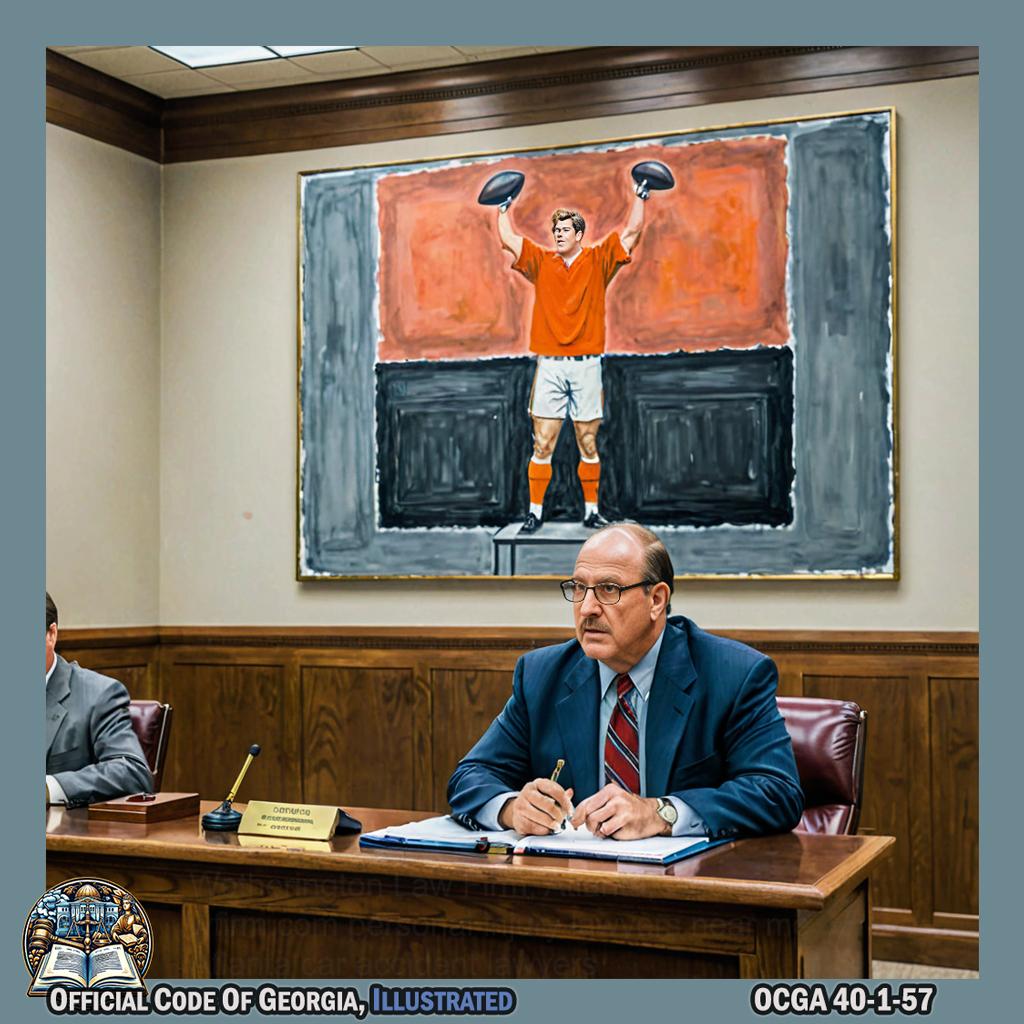
Football player Lindsay Scott, in a rich scene in Roswell, Georgia, points at a drawing of the Public Service Commission taking action as if he were a judge with a gavel. -
40-1-58. Determining employment status based upon a motor carrier safety improvement.

Matt and Mike Chapman, animators and voice actors born in Indiana, perform as traffic cops directing imaginary trucks into different lanes based on their safety records in a rich scene set in Atlanta, Georgia. -@StrongBadActual
40-1-50.Short title.¶
This article shall be known and may be cited as the “Georgia Motor Carrier Act of 2012.”
40-1-51.Legislative findings; construction.¶
The General Assembly finds that the for-hire transportation of persons and property are a privilege that require close regulation and control to protect public welfare, provide for a competitive business environment, and provide for consumer protection. To that end, the provisions of this article are enacted. This is a remedial law and shall be liberally construed. The Department of Public Safety is designated as the agency to implement and enforce this article. Exceptions contained in this article shall have no effect on the applicability of any other provision of law applicable to motor vehicles, commercial motor vehicles, operators of motor vehicles, or carrier operations.

40-1-52.Establishment of Motor Carrier Compliance Division.¶
There is created and established a division within the Department of Public Safety to be known as the Motor Carrier Compliance Division which shall include a section designated the Regulatory Compliance Section. Except as provided in Chapter 2 of Title 35, the members of the Motor Carrier Compliance Division shall be known and designated as law enforcement officers. The Regulatory Compliance Section shall be responsible for the regulation of the operation of motor carriers and limousine carriers in accordance with this article, Code Section 40-1-8, and Article 2 of this chapter.
40-1-53.“Department” defined; methods of enforcement.¶
- As used in this article, the term “department” means the Department of Public Safety.
- The department is authorized to enforce this article by instituting actions for injunction, mandamus, or other appropriate relief.
40-1-54.Rules and regulations for implementation and administration.¶
- The department shall promulgate such rules and regulations as are necessary to effectuate and administer the provisions of this article pursuant to Chapter 13 of Title 50, the “Georgia Administrative Procedure Act.”
- The commissioner is authorized to issue such orders, authorizations, and modification thereof as necessary to implement this article.
- A court shall take judicial notice of all rules and regulations promulgated by the department pursuant to this Code section.
40-1-55.Penalty for violations.¶
Every officer, agent, or employee of any corporation and every person who violates or fails to comply with this article relating to the regulation of motor carriers and limousine carriers or any order, rule, or regulation of the Department of Public Safety, or who procures, aids, or abets therein, shall be guilty of a misdemeanor. Misdemeanor violations of this article may be prosecuted, handled, and disposed of in the manner provided for by Chapter 13 of this title.
**40-1-56.Financial penalty for violations; suspension of certificate or permit; notice; review.¶
<figure markdown>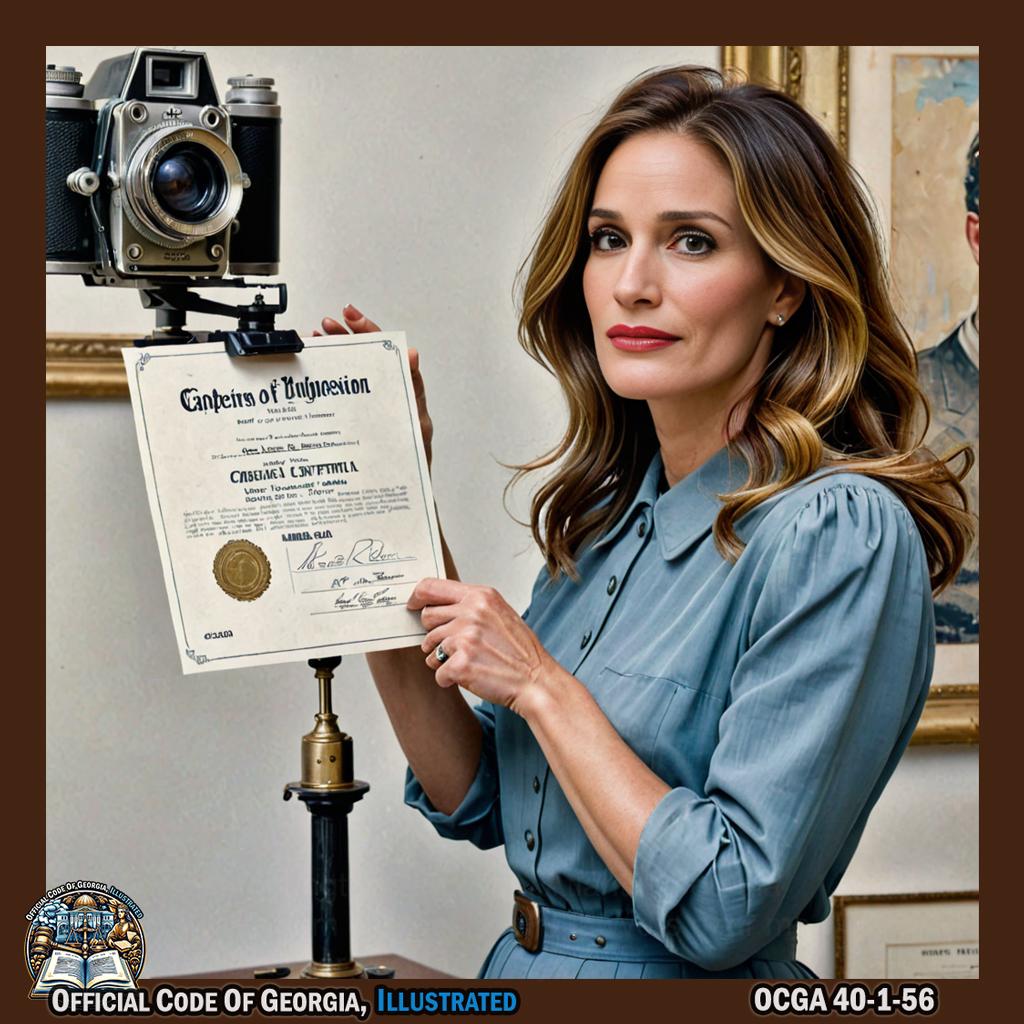{ width=300 loading=lazy }<figcaption>Julia Roberts stands with a suspended certificate or permit in hand, holding it delicately as she gazes at it with a mix of concern and determination. She then places the document on a small pedestal and carefully frames it within the viewfinder of an antique camera, capturing every detail before circling it with a red marker to emphasize its significance.</figcaption></figure>
**
-
Any motor carrier or limousine carrier subject to the provisions of Part 2 or Part 3 of this article that fails to register as a motor carrier or limousine carrier with the department or that is subject to the jurisdiction of the department and willfully violates any law administered by the department or any duly promulgated regulation issued thereunder, or that fails, neglects, or refuses to comply with any order after notice thereof, shall be liable for a penalty not to exceed $15,000.00 for such violation and an additional penalty not to exceed $10,000.00 for each day during which such violation continues.
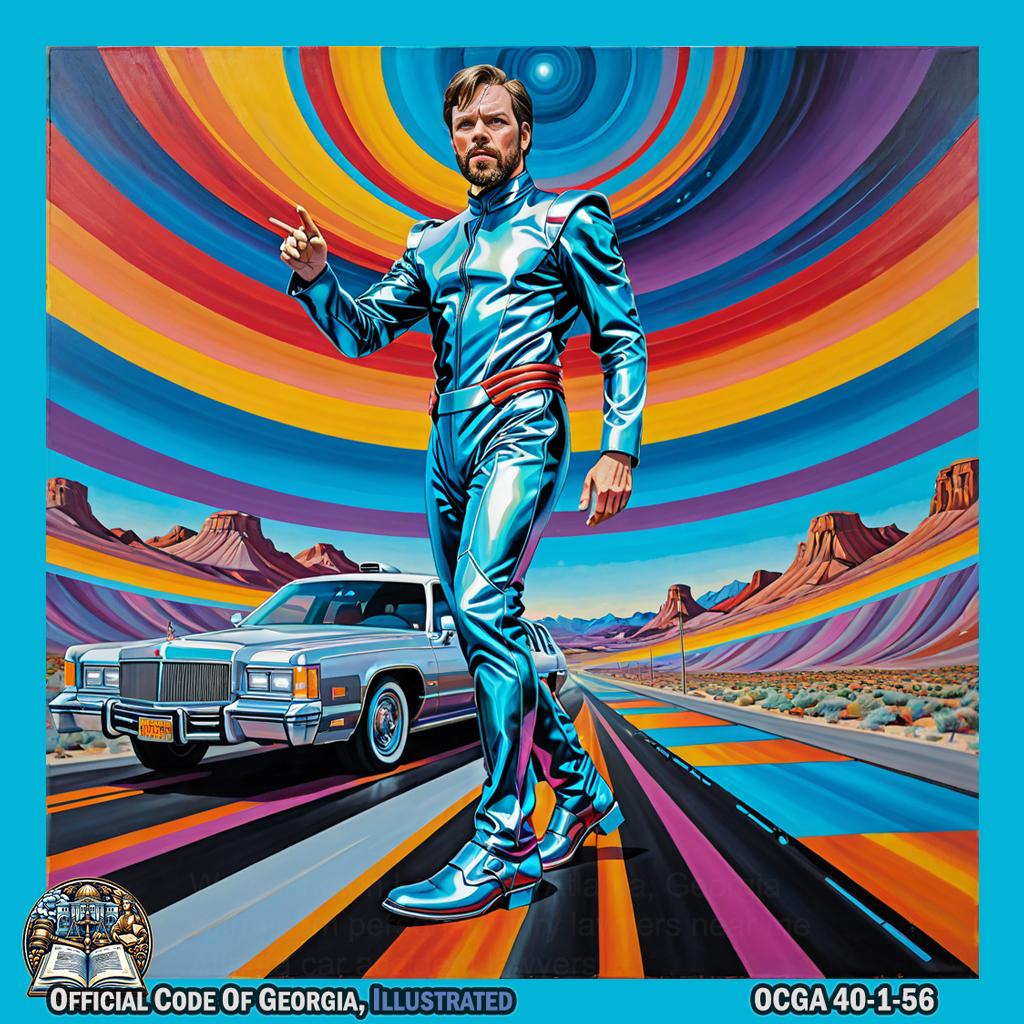
Daryl Smith, dressed in a futuristic metallic outfit, dramatically stomps his foot and points accusatorily at an imaginary motor carrier or limousine carrier while standing amidst a surreal landscape of swirling colors and geometric shapes reminiscent of Paul Kremer's art. -
Following a reasonable attempt to notify a holder of a certificate, the commissioner is authorized to immediately suspend a motor carrier or limousine carrier certificate or permit if the commissioner finds that such suspension is necessary to protect against an immediate threat to the life, health, or safety of others. An emergency suspension made pursuant to this subsection may be appealed by filing a request for administrative review with the department within 30 days of receipt of notice of the department’s decision. An administrative hearing shall be conducted in accordance with the procedures for contested cases under Chapter 13 of Title 50, the “Georgia Administrative Procedure Act.”
-
Notice of a violation and the assessed amount shall be made by means of personal service upon the violator. The notice shall include a warning that a vehicle related to the violation may be subject to suspension of the registration pursuant to Code Section 40-1-56.1. The respondent shall then have 60 days in which to pay the assessed penalty or file with the department a written request for an administrative review. The request for an administrative review shall specify whether the respondent is challenging the validity of the imposition of the penalty or the amount of the assessment, or both. An administrative hearing shall be conducted in accordance with the procedures for contested cases under Chapter 13 of Title 50, the “Georgia Administrative Procedure Act.”

Kevin Cone, dressed in vintage attire to evoke the style of Walker Evans' photography, theatrically hands a model car to another person representing the violator. He then points emphatically to an hourglass, symbolizing the time limit for penalty payment or request for administrative review, while standing in Ormsby's with sepia tones and composition reminiscent of Evans' work. -@KCone12 -
- All penalties and interest thereon, at the rate of 10 percent per annum, recovered by the department shall be paid into the general fund of the state treasury.
-
Reissuance fees charged by the Department of Revenue shall be retained by the Department of Revenue.
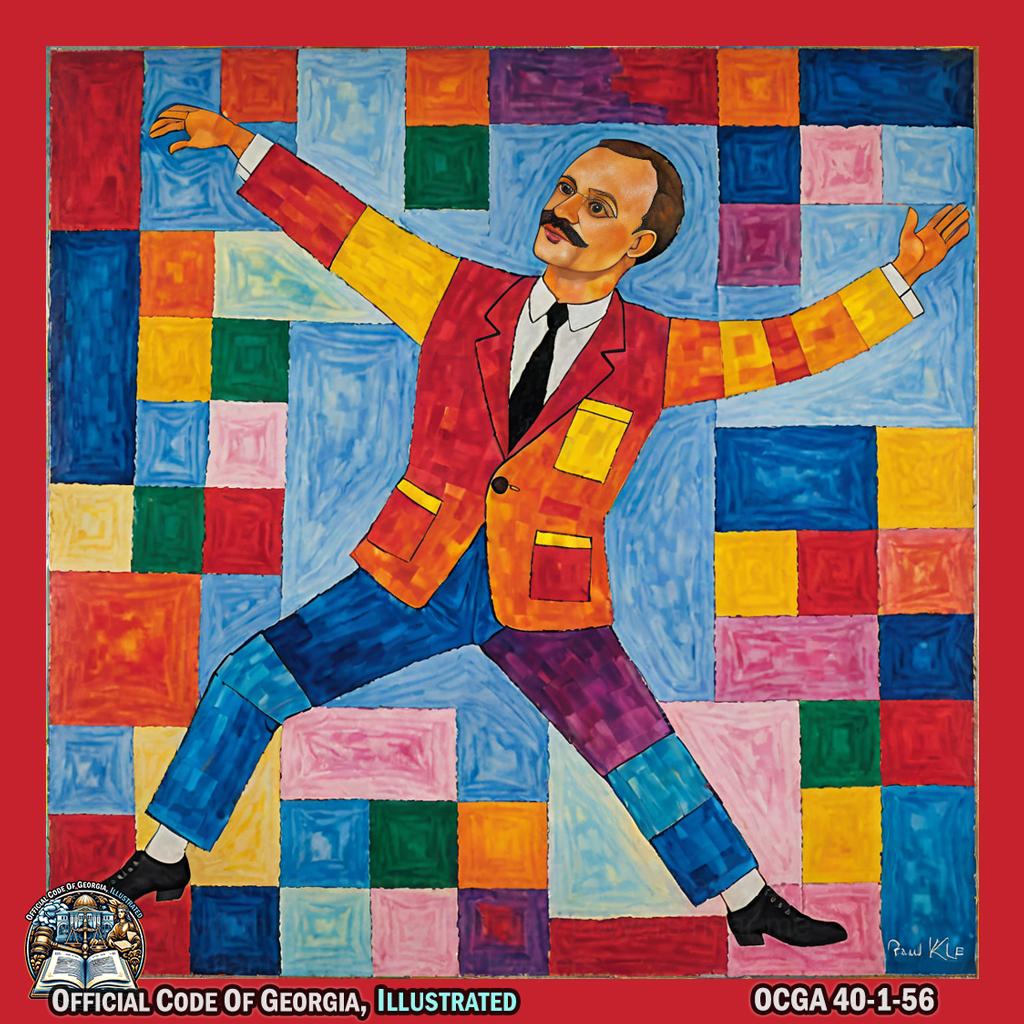
Patrick Pass gracefully dances in a colorful and abstract manner, representing the movement of reissuance fees being charged and retained by the Department of Revenue, set against a backdrop of vibrant shapes and patterns inspired by Paul Klee's style, evoking an imaginative and entertaining scene that captivates the audience in Wildwood neighborhood, Atlanta. -
Restoration fees charged by the department shall be retained by the department.

Lil Jon, dressed in vibrant colors and surrounded by ornate decor, dramatically hands over a stack of bills to a department representative as he strikes an animated pose, capturing the essence of Tamryn Pohl's art style. -@LilJon
-
- Any party who has exhausted all administrative remedies available before the department and who is aggrieved by a final decision of the department made pursuant to this Code section may seek judicial review of the final order of the department in the Superior Court of Fulton County or in the superior court of the county in which the principal place of business of the aggrieved party is located.
-
Proceedings for review shall be instituted by filing a petition within 30 days after the service of the final decision of the department or, if a rehearing is requested, within 30 days after the decision thereon. A motion for rehearing or reconsideration after a final decision by the department shall not be a prerequisite to the filing of a petition for review. Copies of the petition shall be served upon the department and all parties of record before the department.

Neal Boortz, dressed in an elegant suit, dramatically files a petition with swift hand movements and then proceeds to serve copies of the petition to the department and all parties involved with flourish and flair, all set against a backdrop inspired by Donald Sultan's bold artistic style. -@Talkmaster -
The petition shall state the nature of the petitioner’s interest, the facts showing that the petitioner is aggrieved by the decision, and the ground upon which the petitioner contends the decision should be reversed. The petition may be amended by leave of court.

Matt Battaglia stands before a large, ornate scroll, unfurls it dramatically, and gestures to the air as if presenting a grand declaration. With each motion, he embodies the essence of a passionate advocate seeking justice through physical expression. -
Within 30 days after service of the petition or within such further time as is stipulated by the parties or as is allowed by the court, the agency shall have transmitted to the reviewing court the original or a certified copy of the entire record of the proceedings under review. By stipulation of all parties to the review proceedings, the record may be shortened. A party unreasonably refusing to stipulate that the record be limited may be taxed for the additional costs. The court may require or permit subsequent corrections or additions to the record.

In a grand and dramatic display, Cameron Heyward strides onto the stage, gesturing with his hands as if passing documents back and forth. He mimes flipping through pages of a record, then points to the audience to indicate "subsequent corrections or additions." The entire performance is done in an expressive and captivating style, reminiscent of a larger-than-life art piece from Riverdale. -@CamHeyward -
The review shall be conducted by the court without a jury and shall be confined to the record. The court shall not substitute its judgment for that of the department as to the weight of the evidence on questions of fact. The court may affirm the decision of the department or remand the case for further proceedings. The court may reverse the decision of the department if substantial rights of the petitioner have been prejudiced because the department’s findings, inferences, conclusions, or decisions are:
-
In violation of constitutional or statutory provisions;

Jordan Hill, wearing a flowing robe and holding a large scroll, dramatically points to an oversized constitution while striking an intense pose, as if challenging its provisions. -@jordanchill43 -
In excess of the statutory authority of the department;

Justin Bieber, dressed as a fisherman with an oversized net, theatrically tries to scoop up fish from a boat in the Blue Ridge lake while Mario Testino captures the scene with exaggerated expressions of caution and disapproval. -@justinbieber -
Made upon unlawful procedure;

William H. Macy, in a Manet-inspired period costume, theatrically rummages through an old aviator's bag at the Delta Flight Museum, then pauses and dramatically gestures a "stop" with his hand to an imaginary companion as if realizing the error of unlawfully going through someone else's belongings, while a painted backdrop depicts Manet's disapproving gaze from "The Railway". -@WilliamHMacy -
Clearly not supported by any reliable, probative, and substantial evidence on the record as a whole; or

JID, dressed as a 19th-century scholar in the style of Francisco Goya's "The Sleep of Reason Produces Monsters," stands amidst the eerie backdrop of Georgia Nuclear Aircraft Laboratory. He theatrically examines a glowing orb (symbolizing evidence), only to discard it with an exaggerated shrug and skeptical frown, indicating its lack of reliability, while shadowy figures akin to those found in Goya's paintings loom around him representing doubt and uncertainty. -@JIDsv -
Arbitrary or capricious.
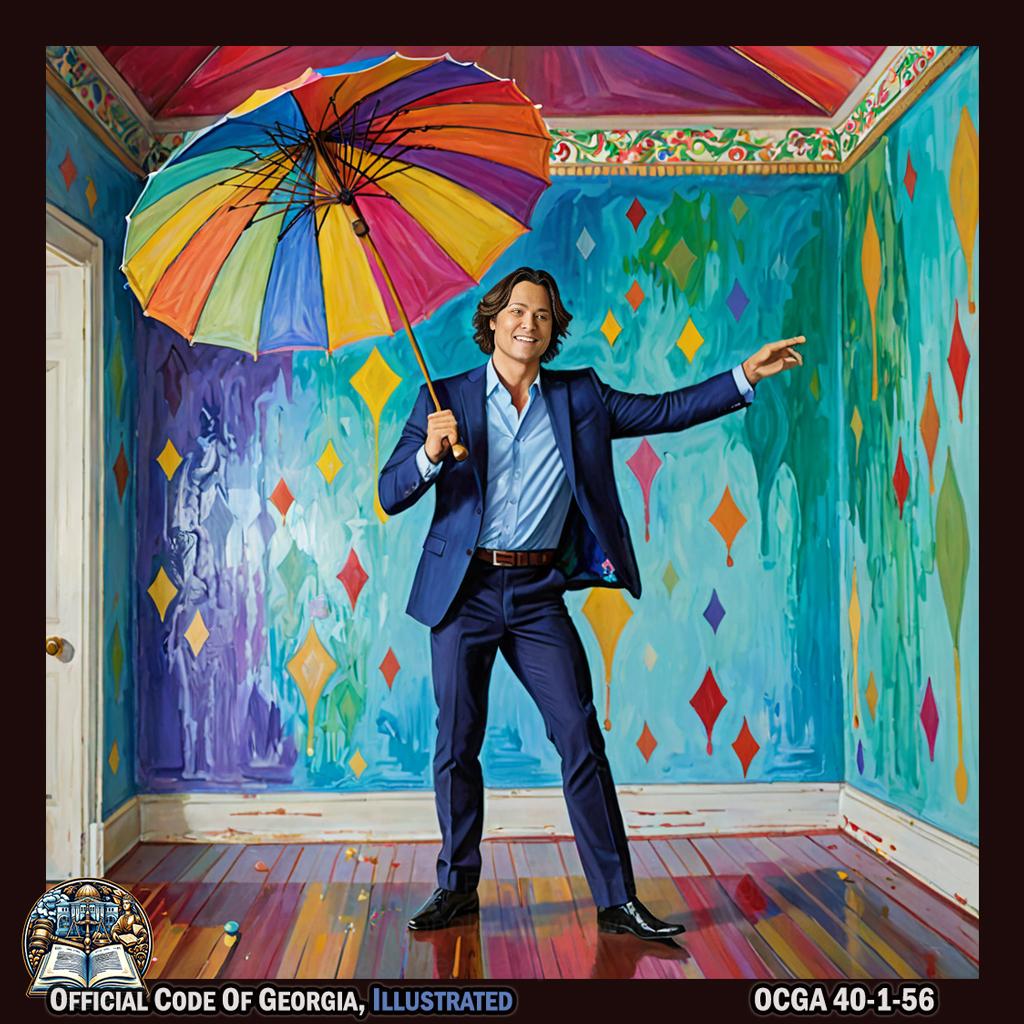
Blair Redford stands in a whimsically decorated room, holding a large colorful umbrella. He begins to twirl and dance around the space, moving with exaggerated and unpredictable gestures, as if embodying the concept of "arbitrary or capricious" through his movements. -@Blair_Redford
-
-
A party aggrieved by an order of the court may appeal to the Supreme Court or to the Court of Appeals in accordance with Article 2 of Chapter 6 of Title 5, the “Appellate Practice Act.”

In the style of Dorr Bothwell's art piece, Laurence Fishburne dramatically dons a judge's robe and wig, slams a gavel while pointing at an imaginary court order, then pretends to pick up a phone and make an exaggerated call to the Supreme Court or Court of Appeals.
40-1-56.1.Unpaid assessments; liens on identifiable vehicles; perfection; suspension of registration.¶
-
Whenever any motor carrier or limousine carrier owes penalties to the department which were imposed for violations pursuant to Code Section 40-1-56 and the violation relates to an identifiable vehicle, then the motor carrier or limousine carrier shall have 60 days from the date of the assessed penalty or final judicial review following an appeal of the assessment. If the assessment is not paid within the 60 days, such assessment shall become a lien upon the identified motor vehicle found to be in violation, and the lien shall be superior to all liens except liens for taxes or perfected security interests established before the debt to the department was created.

Akon, dressed in a sleek suit, dramatically points to an oversized vehicle identification number while mouthing the words of the legal text. The scene is set in a grand art gallery with elaborate chandeliers and ornate frames surrounding the action. -@Akon -
The department shall perfect the lien created under this Code section by sending notice thereof on a notice designated by the department, by first-class mail or by statutory overnight delivery, return receipt requested, to the owner and all holders of liens and security interests shown on the records of the Department of Revenue maintained pursuant to Chapter 3 of this title. Upon receipt of notice from the Department of Public Safety, the holder of the certificate of title shall surrender the same to the state revenue commissioner for issuance of a replacement certificate of title bearing the lien of the department unless the assessment is paid within 60 days of the receipt of notice. The Department of Revenue may append the lien to its records, notwithstanding the failure of the holder of the certificate of title to surrender such certificate as required by this subsection.

In a dramatic performance at the Jekyll Island Club, rapper Rasheeda embodies the character of a state department official perfecting liens by dramatically sending notices via mail and overnight delivery, demanding surrender of titles and appending liens to records, all in the vibrant and intricate style of an Aurel Schmidt art piece. -@RASHEEDA -
Upon issuance of a title bearing the lien of the department, or the appending of the lien to the records of the Department of Revenue, the owner of the vehicle or the holder of any security interest or lien shown in the records of the Department of Revenue may satisfy such lien by payment of the amount of the assessment, including hearing costs, if any, and payment of an additional reissuance fee of $100.00 which shall be paid to the Department of Revenue. Upon receipt of such amount, the department shall release its lien and the Department of Revenue shall issue a new title without the lien.

Kanye West, dressed in a vibrant suit, dramatically presents a giant check to the Department of Revenue at EdVenture Children's Museum, signifying payment to release the lien on his vehicle and receive a new title. -@kanyewest -
- The department, in seeking to foreclose its lien on the motor vehicle arising out of an assessed violation pursuant to Code Section 40-1-56, may seek an immediate writ of possession from the court before whom the petition is filed, if the petition contains a statement of facts, under oath, by the department, its agents, its officers, or attorney setting forth the basis of the petitioner’s claim and sufficient grounds for issuance of an immediate writ of possession.
- The department shall allege under oath specific facts sufficient to show that it is within the power of the defendant to conceal, encumber, convert, convey, or remove from the jurisdiction of the court the property which is the subject matter of the petition.
-
The court before whom the petition is pending shall issue a writ for immediate possession upon finding that the petitioner has complied with paragraphs (1) and (2) of this subsection. If the petitioner is found not to have made sufficient showing to obtain an immediate writ of possession, the court may, nevertheless, treat the petition as one being filed under Code Section 44-14-231 and proceed accordingly.

Omari Hardwick, dressed in a suit, dramatically presents a golden key to an oversized courtroom judge's gavel while surrounded by floating writs of possession in a room filled with suspended legal documents and scales of justice captured within glass tanks, all against a backdrop of vibrant butterflies and flowers. -@OmariHardwick -
When an immediate writ of possession has been granted, the department shall proceed against the defendant in the same manner as provided for in Code Sections 44-14-265 through 44-14-269.
-
- Whenever any motor carrier or limousine carrier fails within 60 days of the date of issuance of a penalty involving an identifiable vehicle assessed pursuant to Code Section 40-1-56 either to pay the assessment or appeal to the department for an administrative review, the Department of Revenue may act to suspend the motor vehicle registration of the vehicle involved. However, if the motor carrier or limousine carrier requests an administrative review, the Department of Revenue shall act to suspend the registration only after the issuance of a final decision favorable to the department and the requisite failure of the motor carrier or limousine carrier to pay the assessment. Upon such failure to pay the assessment, the Department of Revenue shall send a letter to the owner of such motor vehicle notifying the owner of the suspension of the motor vehicle registration issued to the motor vehicle involved in violation which was the basis for the penalty. Upon complying with this subsection by paying the overdue assessment, submitting proof of compliance, and paying a $10.00 restoration fee to the Department of Revenue, the state revenue commissioner shall reinstate any motor vehicle registration suspended under this subsection. In cases where the motor vehicle registration has been suspended under this subsection for a second or subsequent time during any two-year period, the Department of Revenue shall suspend the motor vehicle registration for a period of 60 days and thereafter until the owner submits proof of compliance with this subsection and pays a $150.00 restoration fee to the Department of Revenue.
- Unless otherwise provided for in this Code section, notice of the effective date of the suspension of a motor vehicle registration occurs when the owner has actual knowledge or legal notice thereof, whichever first occurs. For the purposes of making any determination relating to the restoration of a suspended motor vehicle registration, no period of suspension shall be deemed to have begun until ten days after the mailing of the notice required in paragraph (1) of this subsection.
-
For the purposes of this subsection, except where otherwise provided, the mailing of a notice to a motor carrier or limousine carrier at the name and address shown in records of the Department of Revenue maintained under Chapter 3 of this title shall, with respect to the holders of liens and security interests, be presumptive evidence that such motor carrier or limousine carrier received the required notice.

Corey Patterson, dressed in flowing Renaissance attire, delicately extends a parchment scroll adorned with ornate calligraphy towards a grandiose horse-drawn carriage, as if presenting it to the regal occupants within. -
For the purposes of this subsection, except where otherwise provided, the mailing of a notice to owners and operators of vehicles involved in a penalty assessed pursuant to 40-1-56 shall be presumptive evidence that such motor carrier or limousine carrier received the required notice.

Pogo Possum dramatically gestures with an outstretched arm, holding a scroll aloft as if presenting it to the heavens in the style of Donatello's artwork. -
The state revenue commissioner may suspend the motor vehicle registration of any offending vehicle for which payment of an assessment is made by a check that is returned for any reason.
40-1-57.Applicability of prior action of Public Service Commission.¶
Rules, orders, and regulations previously adopted which relate to functions performed by the Public Service Commission which were transferred under this article to the Department of Public Safety shall remain of full force and effect as rules, orders, and regulations of the Department of Public Safety until amended, repealed, or superseded by rules or regulations adopted by the department.
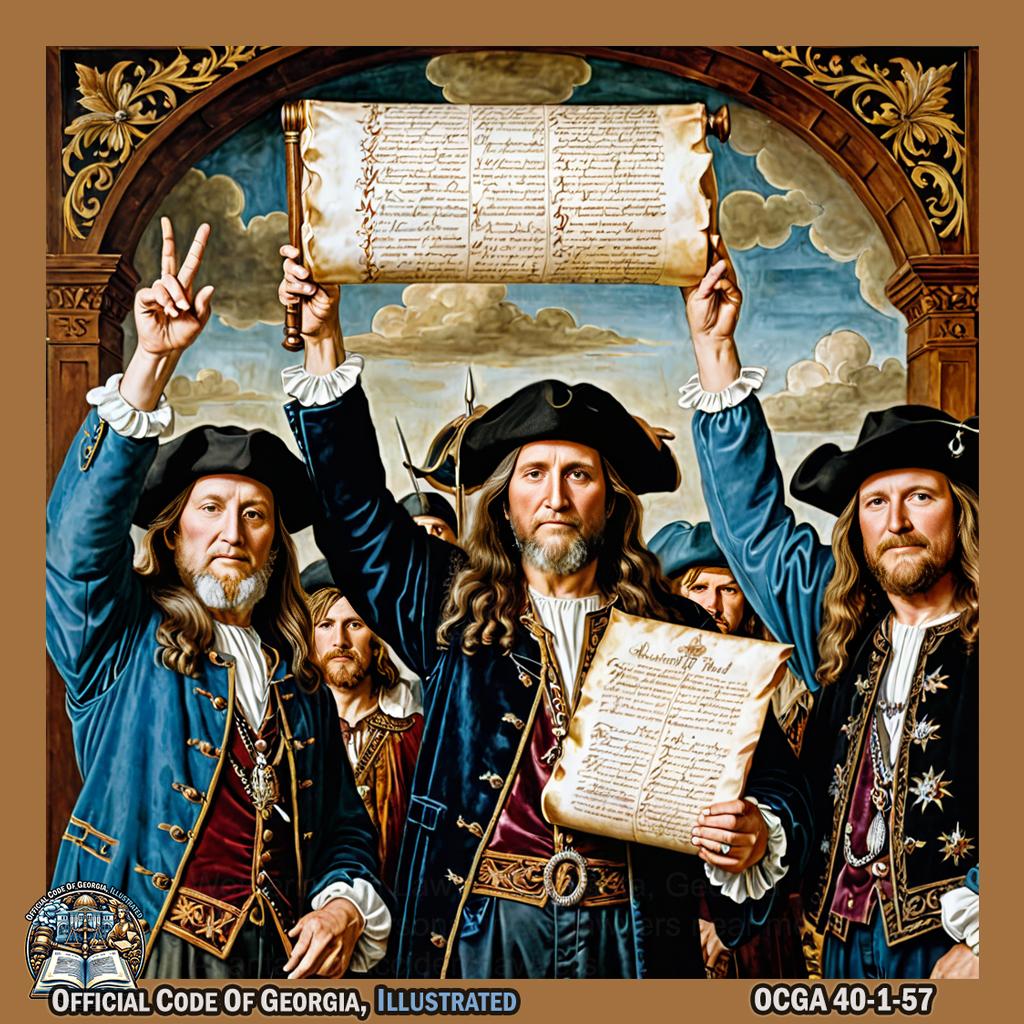
40-1-58.Determining employment status based upon a motor carrier safety improvement.¶
-
For purposes of this Code section, the term “motor carrier safety improvement” means any device, equipment, software, technology, procedure, training, policy, program, or operational practice intended and primarily used to improve or facilitate compliance with traffic safety or motor carrier safety laws, safety of a motor vehicle, safety of the operator of a motor vehicle, or safety of third-party users of highways of this state.

Nicole Gale Anderson gracefully manipulates a complex web of interconnected devices and equipment, moving with fluidity and precision to represent the intricate nature of motor carrier safety improvement in the style of Guy Bourdin's art piece. -@HeyItsNicoleA -
The deployment, implementation, or use of a motor carrier safety improvement by or as required by a motor carrier or its related entity, including by contract, shall not be considered when evaluating an individual’s status as an employee or independent contractor, or as a jointly employed employee, under any state law.
PART 2 Certification of Motor Carriers¶
- 40-1-100. Definitions.
-
40-1-101. Regulatory compliance inspections; regulation of business; requirements of motor carriers.
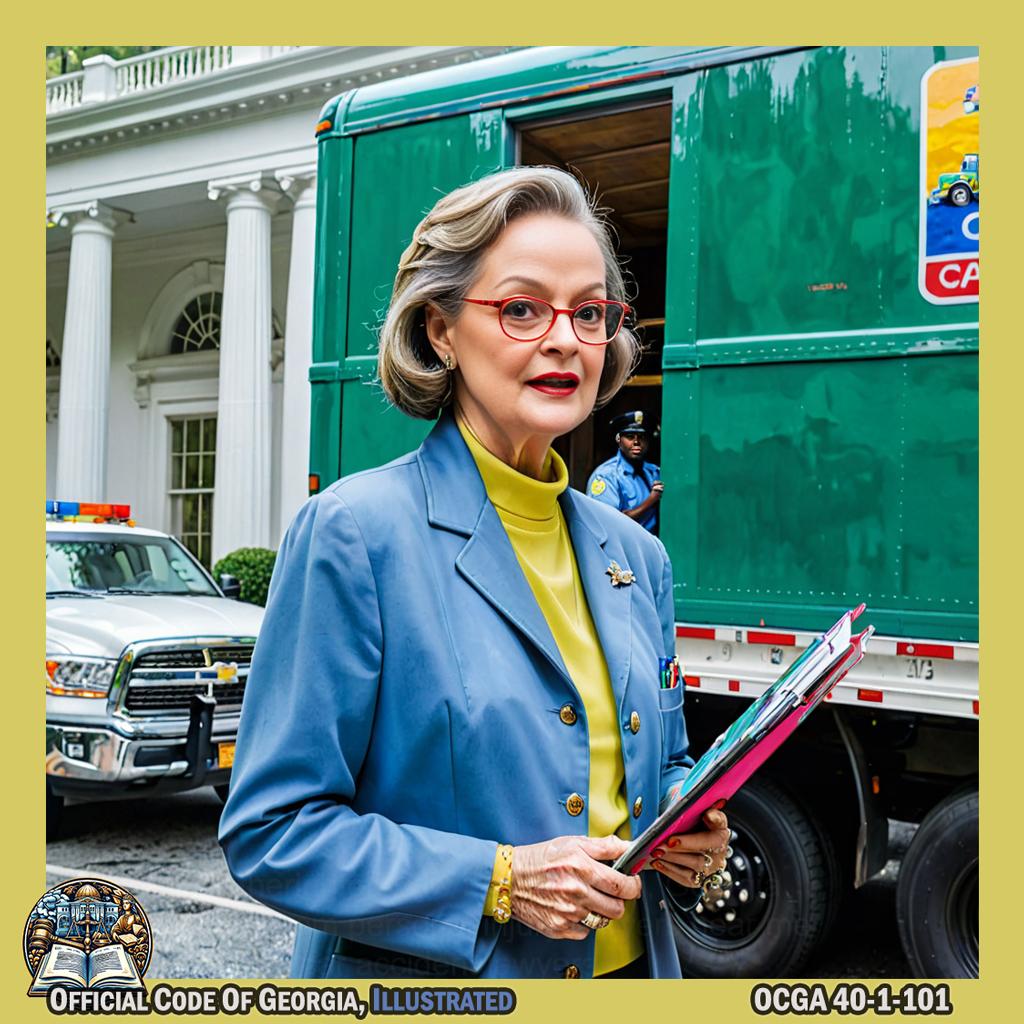
Actress Dana Ivey, in a rich scene at the Georgia location Swan House + Atlanta History Center, inspects a colorful, oversized truck while holding a clipboard and directing other colorful vehicles around as a traffic cop. -@hekasia -
40-1-102. Certificate or permit prerequisite to operation; minimum insurance requirement.

Russell Branyan, a baseball player, creates a vivid scene at Telfair Museums in Georgia by pretending to hold a giant certificate in one hand while using the other hand to draw a large insurance policy with lots of colorful crayons. -
40-1-103. Application form for certificate; issuance to qualified applicant.
-
40-1-104. Revocation, alteration, or amendment of certificate or permit; suspension; out-of-service orders.
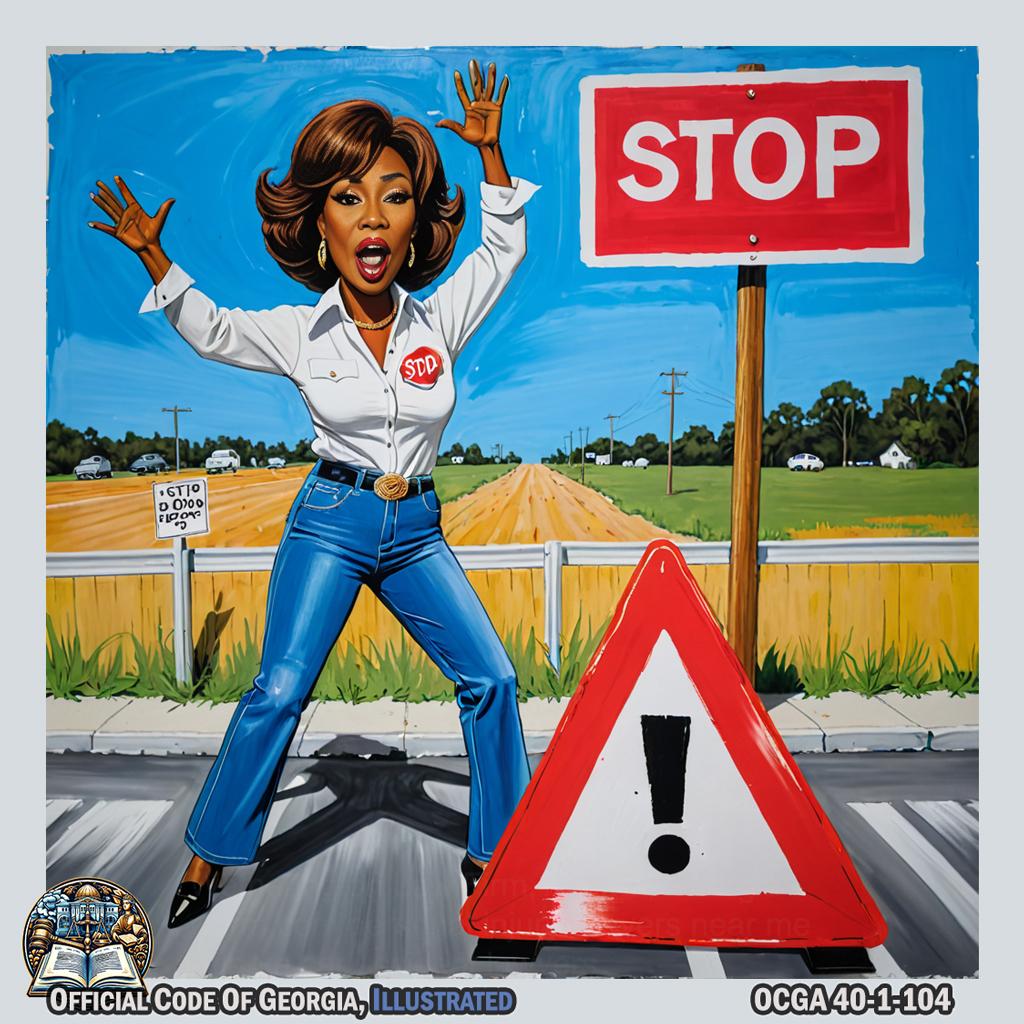
Singer Jean Carne performs the action of erasing and rewriting a certificate while being stopped by a "stop" sign, in an art piece by Kim Buck featuring a cartoon figure. -
40-1-105. Transfer of certificate.
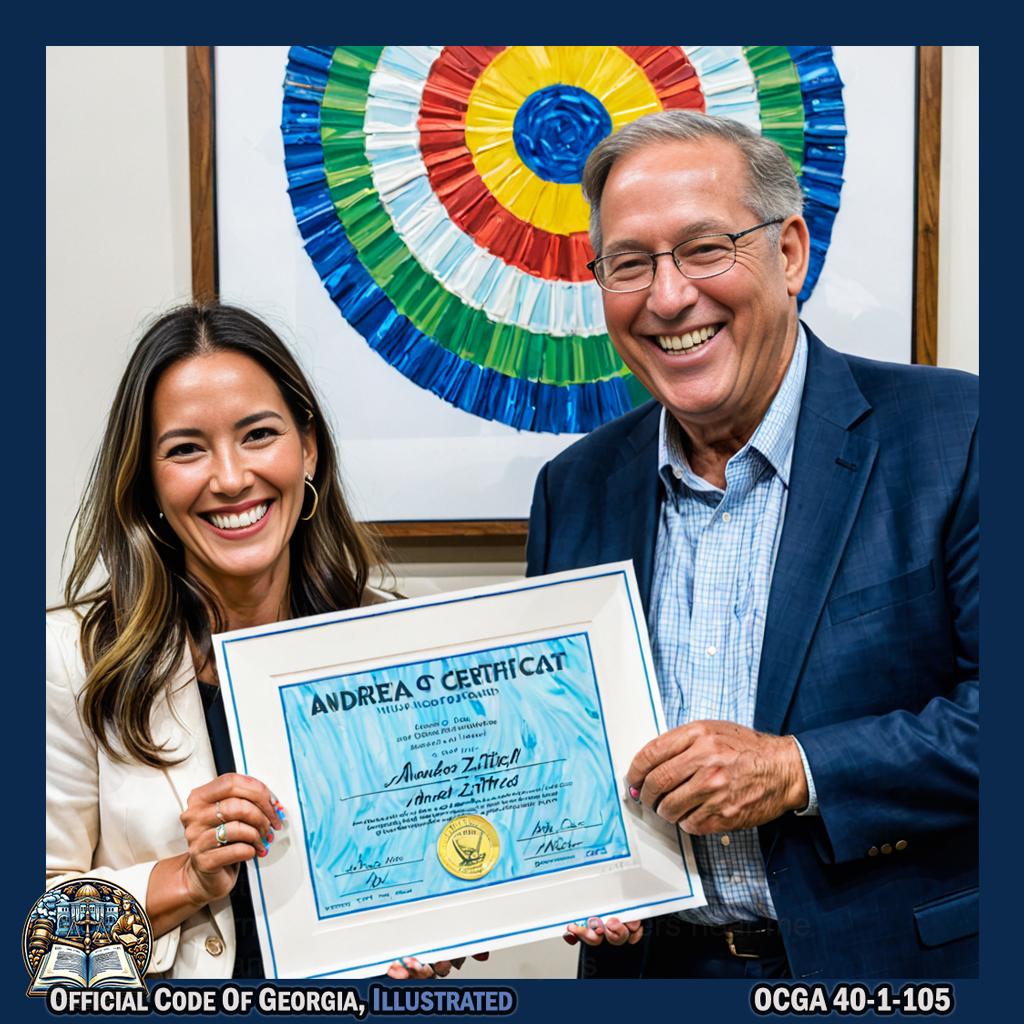
Journalist Don Harris presents a large, colorful certificate to another person with a big smile on their face, mirroring an art piece by Andrea Zittel. -
40-1-106. Fitness of applicant; protest of application by certificate holder.
-
40-1-107. Information in application.
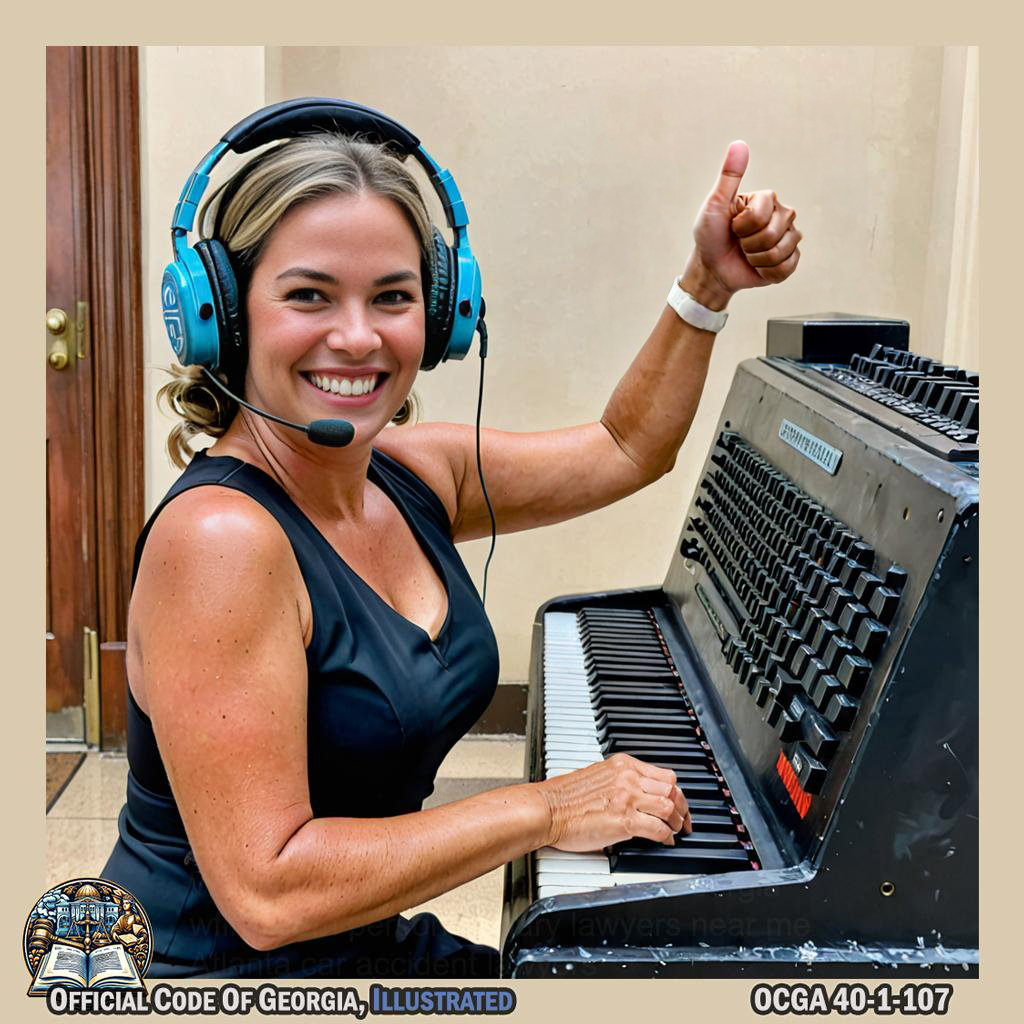
Georgia-Pacific is typing on a giant keyboard, wearing a headset, and giving a thumbs-up with a big smile at the Terrell County Historic Courthouse in Georgia. -@GeorgiaPacific -
40-1-108. Transportation of persons under age 21 drinking alcohol.
- 40-1-109. Fees upon initial application.
-
40-1-110. Hearing and notice of pending application.

Senior Sava Care Llc raises their hand to cup their ear, showing they are listening intently, while pointing with the other hand to a "Pending Application" sign at Marbles Kids Museum in Georgia. -
40-1-111. Limitation upon reapplication for denied applicants.

Hiker Scott Rogers stands in the rich scene of the High Point neighborhood in Atlanta, holding out his hands in a "stop" gesture while shaking his head side to side. -
40-1-112. Insurance of motor carriers.

Actor Mike Erwin, in a rich scene at the Georgia location Lilburn, pretends to steer a big wheel while making zooming sounds and draws a cartoon car with insurance papers flying into the air. -
40-1-113. Transportation contracts limiting liability.

Songwriter Clay Cook, depicted by Ann McCoy as an art piece, steers a big ship while holding a tiny umbrella over his head and wearing a superhero cape. -@theclaycook - 40-1-115. Notice of discontinuance of route.
-
40-1-116. Additional taxation prohibited by localities.
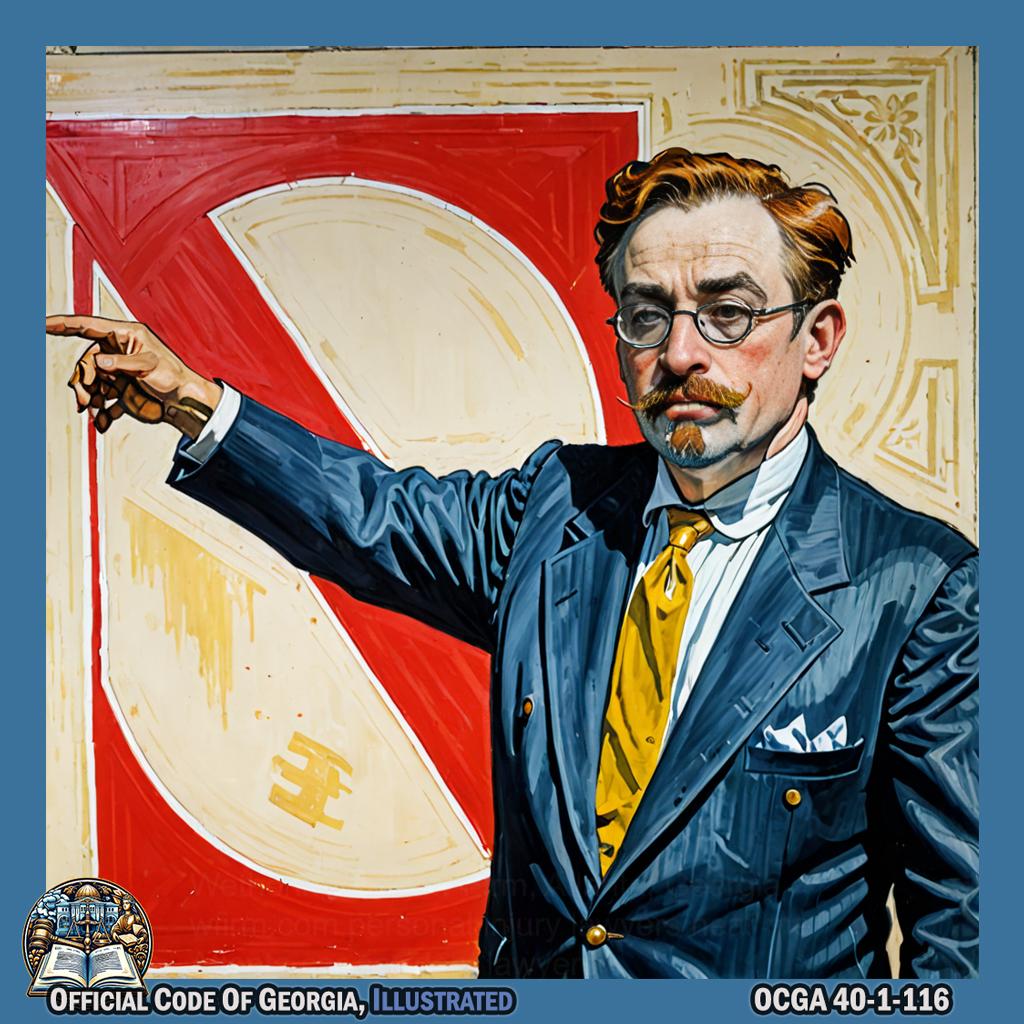
President of Georgia Tech, the first to admit women and fought against segregationist Governor Griffin, Blake R. Van Leer decisively crosses out a dollar sign with a big red X in Cordele, Georgia. -
40-1-118. Establishment of just and reasonable rates, fares, and charges for transportation.
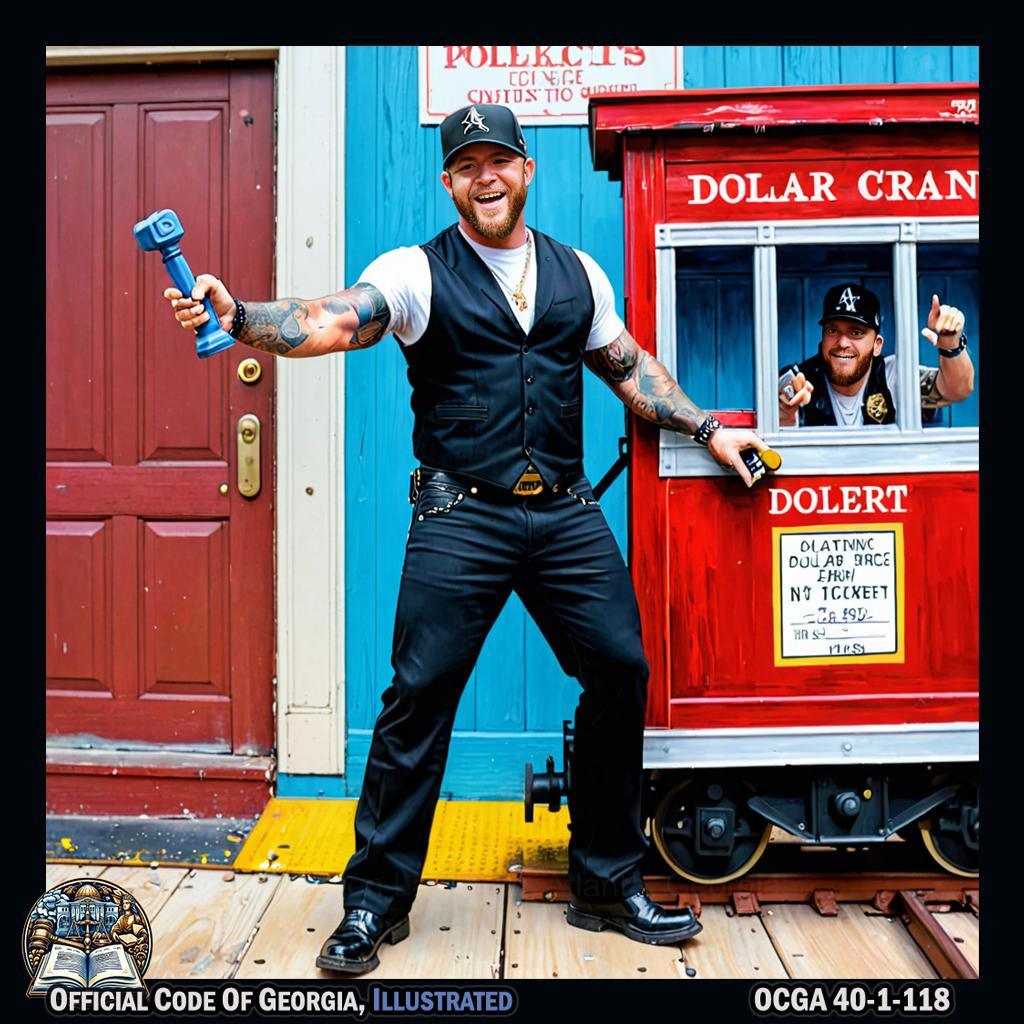
Brantley Gilbert stands amidst the charming Tiny Doors ATL in Atlanta, Georgia, dressed as a judge and striking a gavel onto a toy train with one hand while handing out tickets marked with dollar signs to a line of diverse smiling people. -@BrantleyGilbert -
40-1-119. Charges by motor carriers; unjust discrimination by carriers prohibited.

Football player Sam Martin charges ahead on the field at Atlanta Contemporary Art Center (ACAC), while another player is blocked from unfair discrimination. -@SamMartin_6 -
40-1-120. Limiting baggage size for motor carrier’s passengers.

Football player Bruce Miller in Dallas, Georgia, playfully mimics carrying a suitcase while making a "shrinking" motion with his hands. -
40-1-121. Inspection of books and records.

Gucci Mane, adorned in lavish attire, assumes the role of a detective in the opulent setting of Hinesville, Georgia, meticulously scrutinizing invisible books and records with a magnifying glass. -@gucci1017 -
40-1-122. Observing laws; schedule of operation.
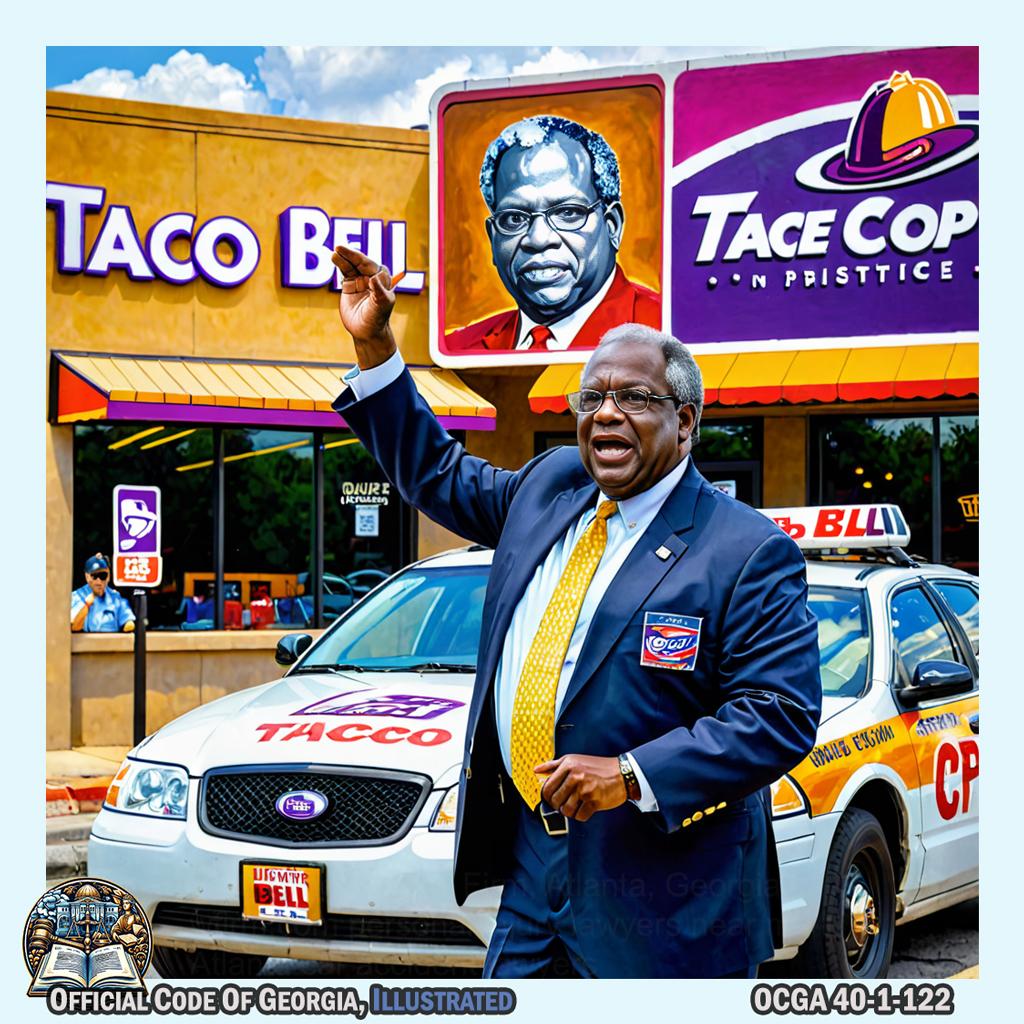
Associate Justice of the Supreme Court of the United States, Clarence Thomas playfully pretends to be a traffic cop directing imaginary cars with hand signals and whistles in front of the Original Taco Bell Sign, a twisty sign depicting the chain's first logo, in Savannah, Georgia. -
40-1-123. Enjoining operation of motor carriers.

Newell Brands dazzles in a vibrant scene at The Doug Sanders Golf Museum, located in Cedartown, Georgia, as they playfully assume the role of a traffic cop directing toy trucks and cars. -@newell_brands -
40-1-124. Perpetual franchise over public highways prohibited.
-
40-1-125. Hearing upon suspension or revocation of motor carrier certificate; judicial review.
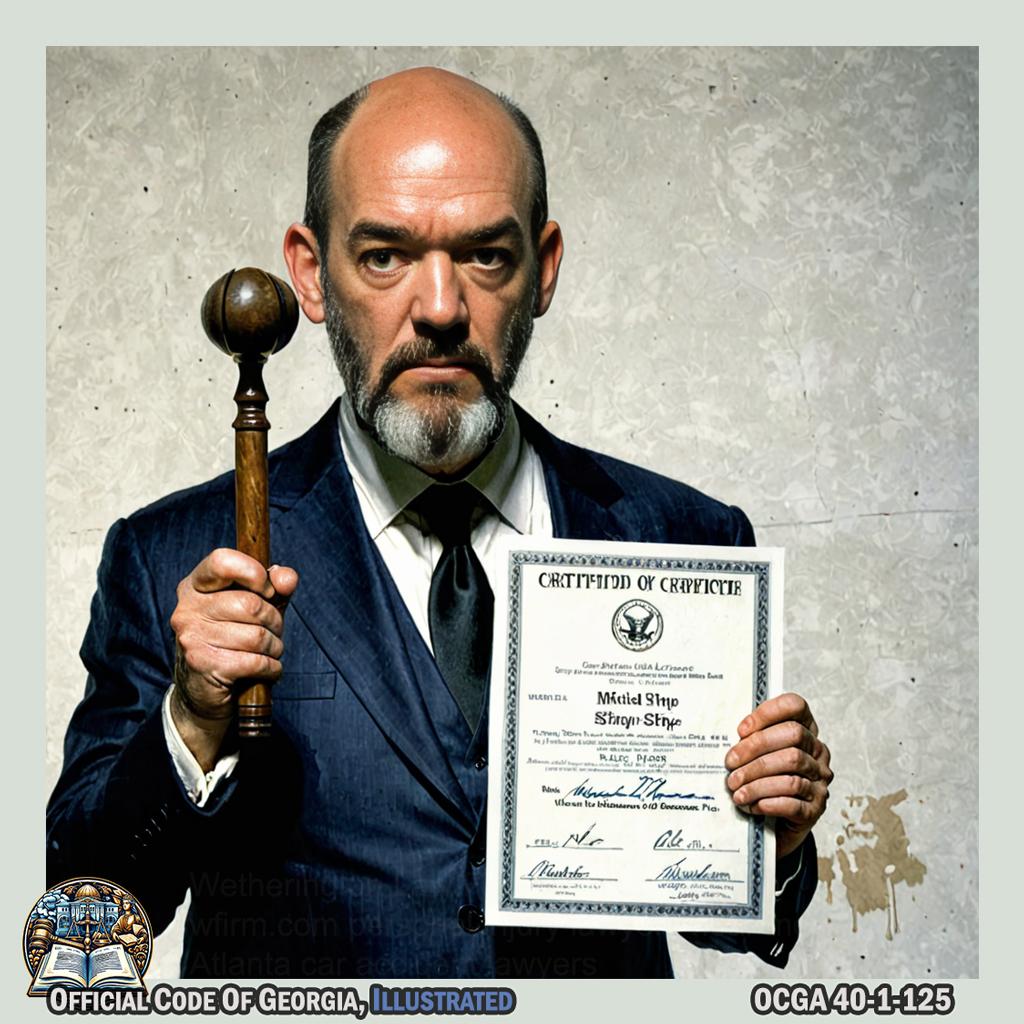
Musician Michael Stipe raises a gavel with a serious face, inspecting a revoked certificate at the Museum of Design Atlanta (MODA) in Georgia. -@m_millsey -
40-1-126. Carriers engaged in interstate and intrastate commerce.

Actress Erin Bethea skillfully maneuvers a large steering wheel with one hand, passing packages to another person against the backdrop of trucks and trains in the vibrant Fort McPherson neighborhood in Atlanta, Georgia. -@ErinBethea -
40-1-127. Actions for recovery of overcharges; rates, charges, and claims for loss or damage.

Jean Carne passionately pulls a large, overflowing bag of coins towards herself while pointing accusingly at a shrinking delivery truck with dents and scratches in the vibrant Krog Street Tunnel, an underground magnet for ever-changing street art in Atlanta, Georgia. -
40-1-128. Accepting or receiving rebates or drawbacks; prima-facie evidence of intentional violation; burden of claiming exception.

Actor Dan Byrd, with an exaggerated smile, reaches out to catch cash falling from above into a large open umbrella in a rich scene at the Martha Berry Museum Art Collection in Georgia. -
40-1-129. Fines for violating certificate requirement; advertising services without certificate prohibited.

Actor Douglass Watson stands in a rich scene in Monroe, Georgia, holding up a "certificate" while another person dressed as a villain with a "no" symbol over an "advertising services" sign. -
40-1-130. Inclusion of motor carrier authorization number in advertising.
40-1-100.Definitions.¶
As used in this part, the term:

-
“Carrier” means a person who undertakes the transporting of goods or passengers for compensation.
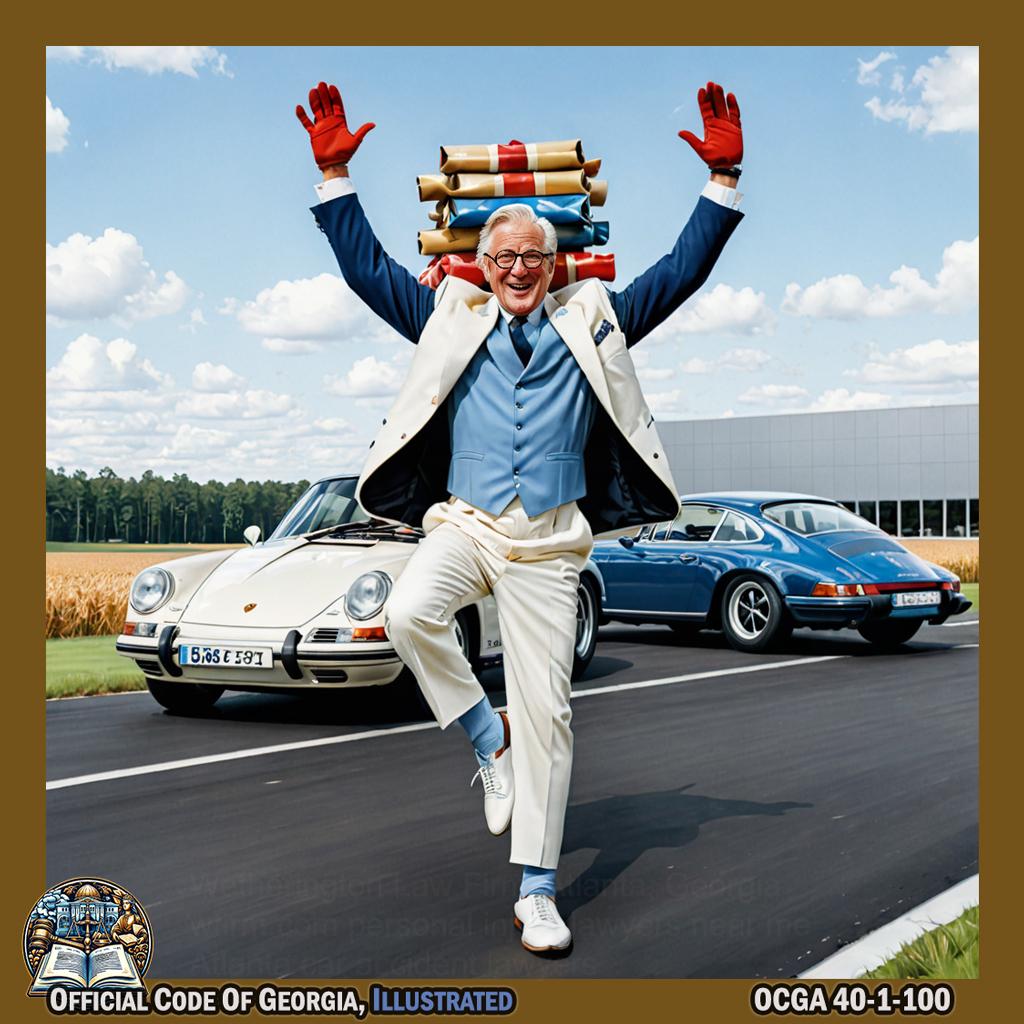
Bert Parks gracefully and elegantly gestures as if he is carrying a stack of imaginary goods on his back, while wearing an elaborate costume and performing in the style of Candida Höfer's art piece, all within the Porsche Experience Center setting. -
“Certificate” or “motor carrier certificate” means a certificate of public convenience and necessity issued pursuant to this part or under the “Motor Carrier Act of 1929,” under the “Motor Carrier Act of 1931,” or under prior law.

Kaki King, dressed as a vintage motor carrier complete with cap and goggles, strums her guitar rhythmically to mimic the revving of an engine while standing in front of a backdrop filled with alligators at Alligator Adventure, captured through Lee Friedlander's black-and-white candid photography style with abstracted reflections and shadows enhancing the scene's depth. -@KakiKing -
“Commissioner” means the commissioner of public safety.

Jean Carne, dressed in the style of Grant Wood's art piece, "American Gothic," stands with one hand on her hip and the other pointing to a tiny door labeled "Commissioner of Public Safety" in a whimsical setting reminiscent of Tiny Doors ATL. -
“Company” shall include a corporation, a firm, a partnership, an association, or an individual.
- “Corporate sponsored vanpool” means a rideshare program sponsored by an employer in which the employer pays all or some of the costs associated with the transportation of its employees to a single work reporting location and all the vehicles used in the program have a manufacturer’s gross vehicle weight rating of not more than 10,000 pounds and are designed to carry not more than 15 passengers including the driver.
- “Department” means the Department of Public Safety.
-
“Exempt rideshare” means:

Alicia Leigh Willis stands in a dimly lit room, her body angled towards an open window. She raises one hand to shield her eyes from the fading sunlight as she gazes out onto the empty streets of Dunwoody. With a subtle and deliberate motion, she extends her other arm towards an imaginary rideshare vehicle passing by, only to retract it with a resigned sigh. -@AliciaLWillis -
Government endorsed rideshare programs;

Alex Poythress, wearing a vibrant jersey, mimics steering a wheel with exaggerated enthusiasm surrounded by abstract shapes and forms akin to Jean Arp's biomorphic sculptures in Kennesaw’s Town Center, while children with colorful geometric figures for heads pretend to hop into the artistic representation of a rideshare vehicle. -@AlexTheGreat22 -
Rideshare programs in which a rideshare driver seeks reimbursement for, or the rideshare participants pool or otherwise share, rideshare costs such as fuel; or
- The leasing or rental of a vehicle, in the ordinary course of the lessor’s or rentor’s business, for rideshare purposes as part of a government endorsed rideshare program, or for rideshare under a contract requiring compliance with subparagraph (B) of this paragraph.

Victoria Monét, dressed in vibrant colors and surrounded by flowing fabrics, pretends to sign a contract while gracefully dancing with a car rental agent against the backdrop of Fayetteville's lush greenery. -@VictoriaMonet
-
-
“For compensation” or “for hire” means an activity relating to a person engaged in the transportation of goods or passengers for compensation.

Marlon Byrd stands at the center of a bustling Mayfield Dairy, miming the act of driving a truck while carrying crates and passengers, his body contorted in the style of Dorothea Lange's iconic photography. -@mjbsr6 -
“Government endorsed rideshare program” means a vanpool, carpool, or similar rideshare operation conducted by or under the auspices of a state or local governmental transit instrumentality, such as GRTA, a transportation management association, or a community improvement district, or conducted under the auspices of such transit agencies, including through any form of contract between such transit instrumentality and private persons or businesses.
- “GRTA” means the Georgia Regional Transportation Authority, which is itself exempt from regulation as a carrier under Code Section 50-32-71.
-
“Household goods” means any personal effects and property used or to be used in a dwelling when a part of the equipment or supplies of such dwelling and such other similar property as the commissioner may provide for by regulation; provided, however, that such term shall not include property being moved from a factory or store except when such property has been purchased by a householder with the intent to use such property in a dwelling and such property is transported at the request of, and with transportation charges paid by, the householder.
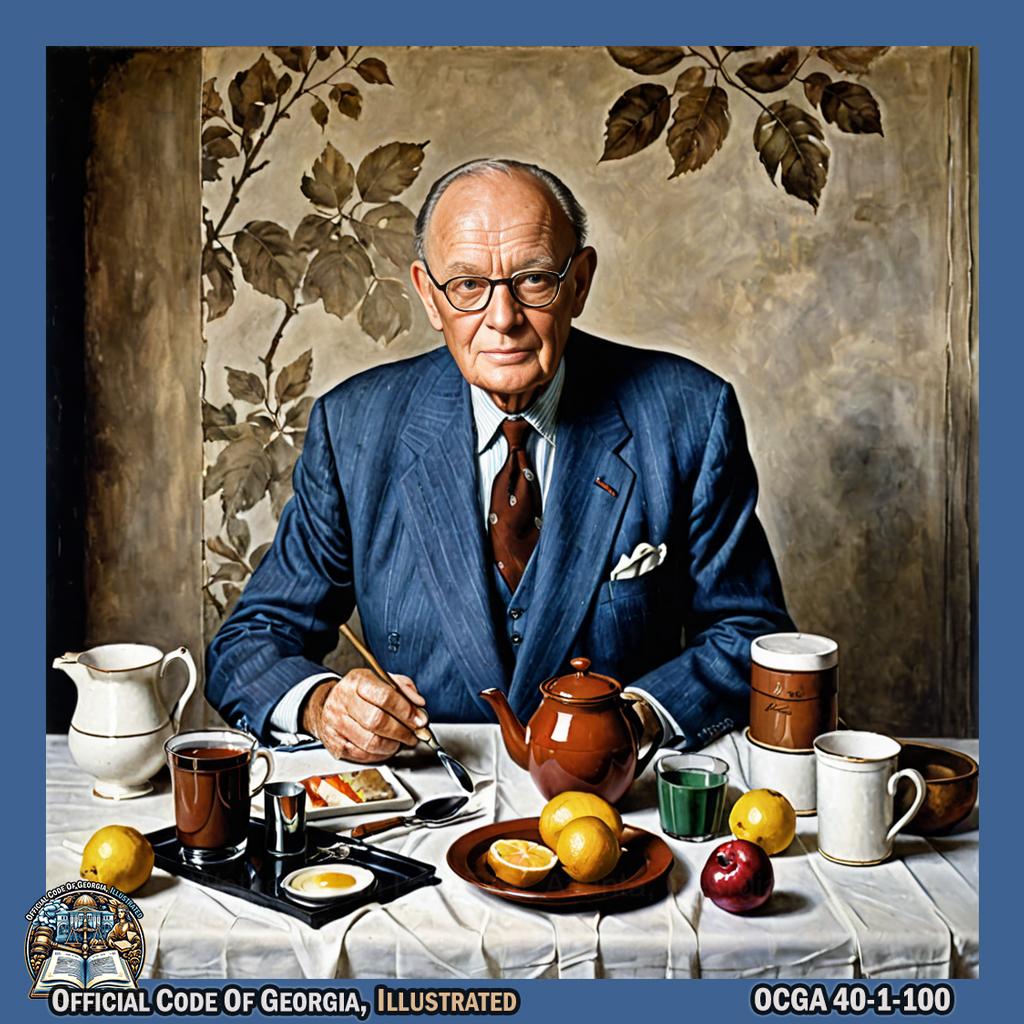
Ernie Harwell gracefully arranges various household items in an elegant and artistic manner, all while exuding charm and charisma in a picturesque scene reminiscent of an Irving Penn art piece, set against the backdrop of Moultrie's rich ambiance. -
“Motor carrier” means:

Creating an art piece in the style of Georges Braque, a person could use their body to represent a motor carrier by miming the action of driving a truck while incorporating abstract geometric shapes and forms with their movements, all set against a backdrop of vibrant colors and textures. -@1ChrisHorton - Every person owning, controlling, operating, or managing any motor vehicle, including the lessees, receivers, or trustees of such persons or receivers appointed by any court, used in the business of transporting for hire persons, household goods, or property or engaged in the activity of nonconsensual towing pursuant to Code Section 44-1-13 for hire over any public highway in this state.
-
Except as otherwise provided in this subparagraph, the term “motor carrier” shall not include:
-
Motor vehicles engaged solely in transporting school children and teachers to and from public schools and private schools;

Ja'Wuan James is depicted in a large-scale, pixelated Chuck Close style portrait, made up of individual "cells" that each contain a small scene. In these scenes, he's shown helping children onto a school bus and handing out healthy snacks to students, with the backdrop being the lively Atlanta Food & Wine festival atmosphere, filled with colorful food stalls and vibrant greenery – all without any use of text or letters. -@JawuanJames70 -
Taxicabs which operate within the corporate limits of municipalities and are subject to regulation by the governing authorities of such municipalities; the provisions of this division notwithstanding, vehicles and the drivers thereof operating within the corporate limits of any city shall be subject to the safety regulations adopted by the commissioner of public safety pursuant to Code Section 40-1-8;
-
Limousine carriers as provided for in Part 3 of this article;

Adam Everett gracefully extends his arms and twirls, embodying the movement of a limousine carrier as envisioned by Wassily Kandinsky, set against the backdrop of the Titan I Missile monument in Cordele, Georgia. -
Hotel passenger or baggage motor vehicles when used exclusively for patrons and employees of such hotel;
- Motor vehicles operated not for profit with a capacity of 15 persons or less when they are used exclusively to transport elderly and disabled passengers or employees under a corporate sponsored vanpool program, except that a vehicle owned by the driver may be operated for profit when such driver is traveling to and from his or her place of work, provided each such vehicle carrying more than nine passengers maintains liability insurance in an amount of not less than $100,000.00 per person and $300,000.00 per accident and $50,000.00 property damage. For the purposes of this part, elderly and disabled passengers are defined as individuals over the age of 60 years or who, by reason of illness, injury, age, congenital malfunction, or other permanent or temporary incapacity or disability, are unable to utilize mass transportation facilities as effectively as persons who are not so affected;
-
Motor vehicles owned and operated exclusively by the United States government or by this state or any subdivision thereof;

Eric Berry stands with a bold, confident posture, moving his arms in sharp, angular motions as if controlling the steering wheel of an imaginary vehicle while wearing a football helmet and jersey. The background is filled with vibrant blocks of color reminiscent of Ellsworth Kelly's style, creating a visually striking and dynamic art piece that embodies the concept of motor vehicles owned and operated exclusively by the United States government or by this state or any subdivision thereof. -@Stuntman1429 -
Vehicles, owned or operated by the federal or state government or by any agency, instrumentality, or political subdivision of the federal or state government, or privately owned and operated for profit or not for profit, capable of transporting not more than ten persons for hire when such vehicles are used exclusively to transport persons who are elderly, disabled, en route to receive medical care or prescription medication, or returning after receiving medical care or prescription medication. For the purpose of this part, elderly and disabled persons shall have the same meaning as in division (v) of this subparagraph; or
- Ambulances.
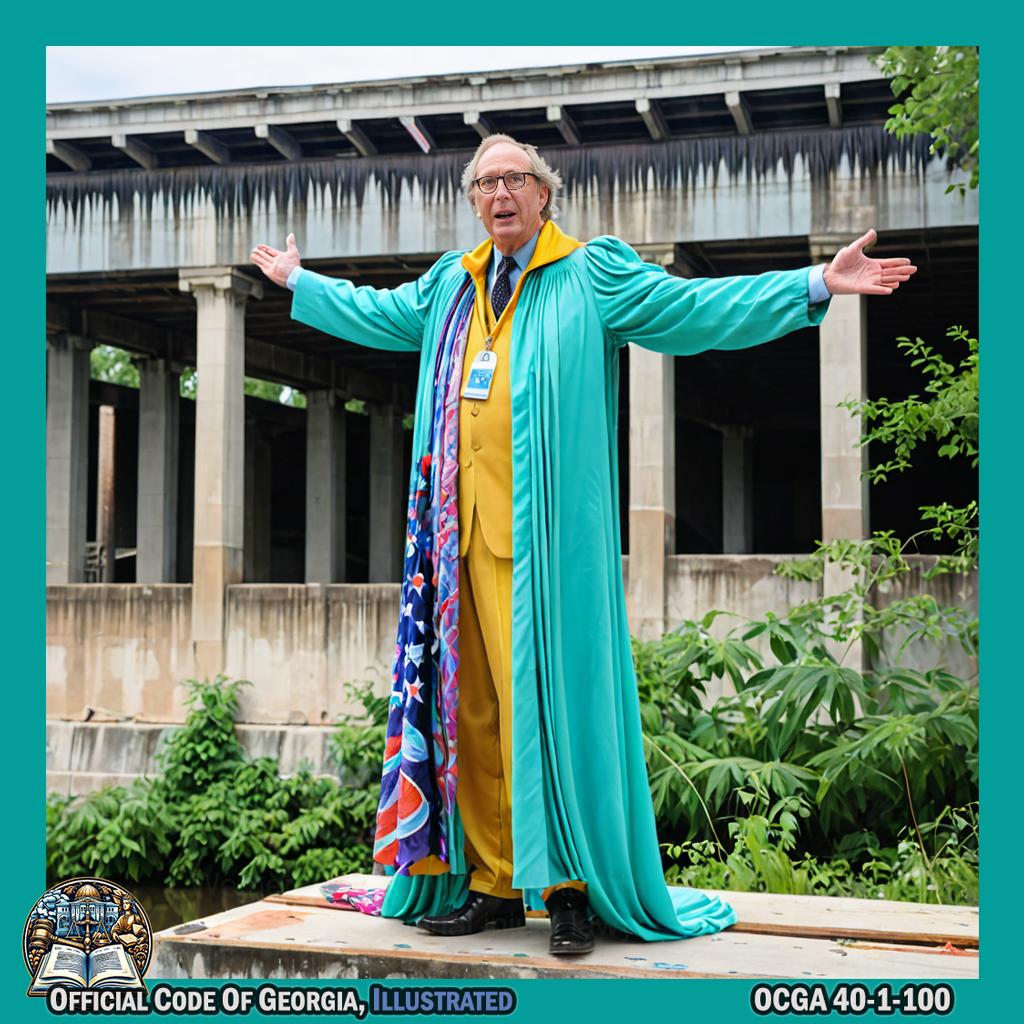
Former U.S. Senator Sam Nunn, wearing a vibrant costume of flowing fabrics that mimic water and nature, strikes a heroic pose atop an abandoned structure at Decatur Waterworks, arms extended outward as if cradling the essence of an ambulance's urgency, while around him performers in colorful attire represent the encroaching flora and fauna, creating a dynamic tableau vivant inspired by Lesley Dill's style.
-
-
“Passenger” means a person who travels in a public conveyance by virtue of a contract, either express or implied, with the carrier as to the payment of the fare or that which is accepted as an equivalent therefor. The prepayment of fare is not necessary to establish the relationship of passenger and carrier, although a carrier may demand prepayment of fare if persons enter his or her vehicle by his or her permission with the intention of being carried; in the absence of such a demand, an obligation to pay fare is implied on the part of the passenger, and the reciprocal obligation of carriage of the carrier arises upon the entry of the passenger.

Billy Wright, in the vibrant setting of the Tubman African American Museum, theatrically steps onto a mock bus installation with a colorful ticket in hand, mimes inserting it into a fare box, and takes a seat with an exaggerated expression of readiness for a journey, embodying the role of an enthusiastic passenger as captured through Nan Goldin's raw and intimate photographic style. -
“Permit” means a written or electronic authorization issued by the department to motor carriers of passengers and nonconsensual towing companies for the purpose of providing services in accordance with the rules and guidelines of the department.
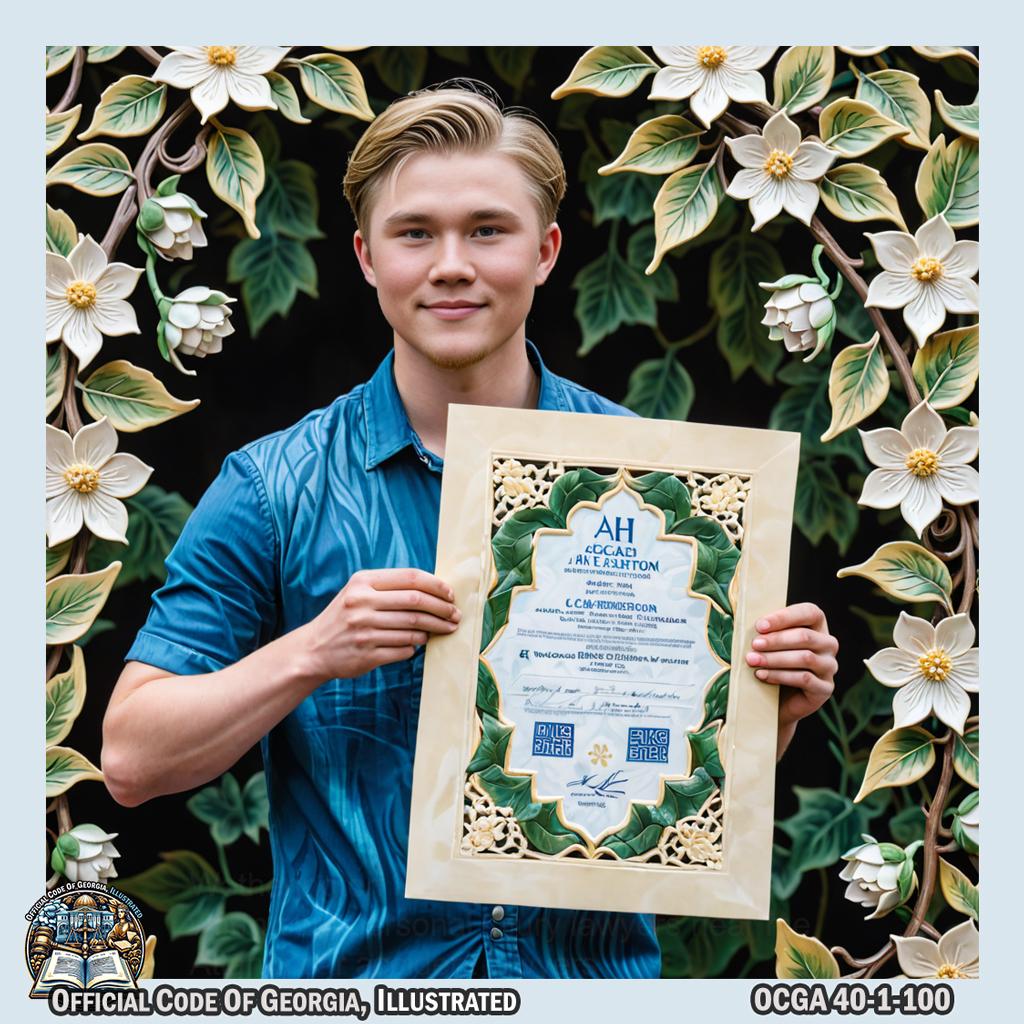
Caleb Lee Hutchinson gracefully holds a large, intricately carved permit document while surrounded by swirling patterns of delicate porcelain flowers and leaves, embodying the essence of Ah Xian's art style at the Decatur Arts Festival. -@calebleemusic -
“Person” means any individual, partnership, trust, private or public corporation, municipality, county, political subdivision, public authority, cooperative, association, or public or private organization of any character.
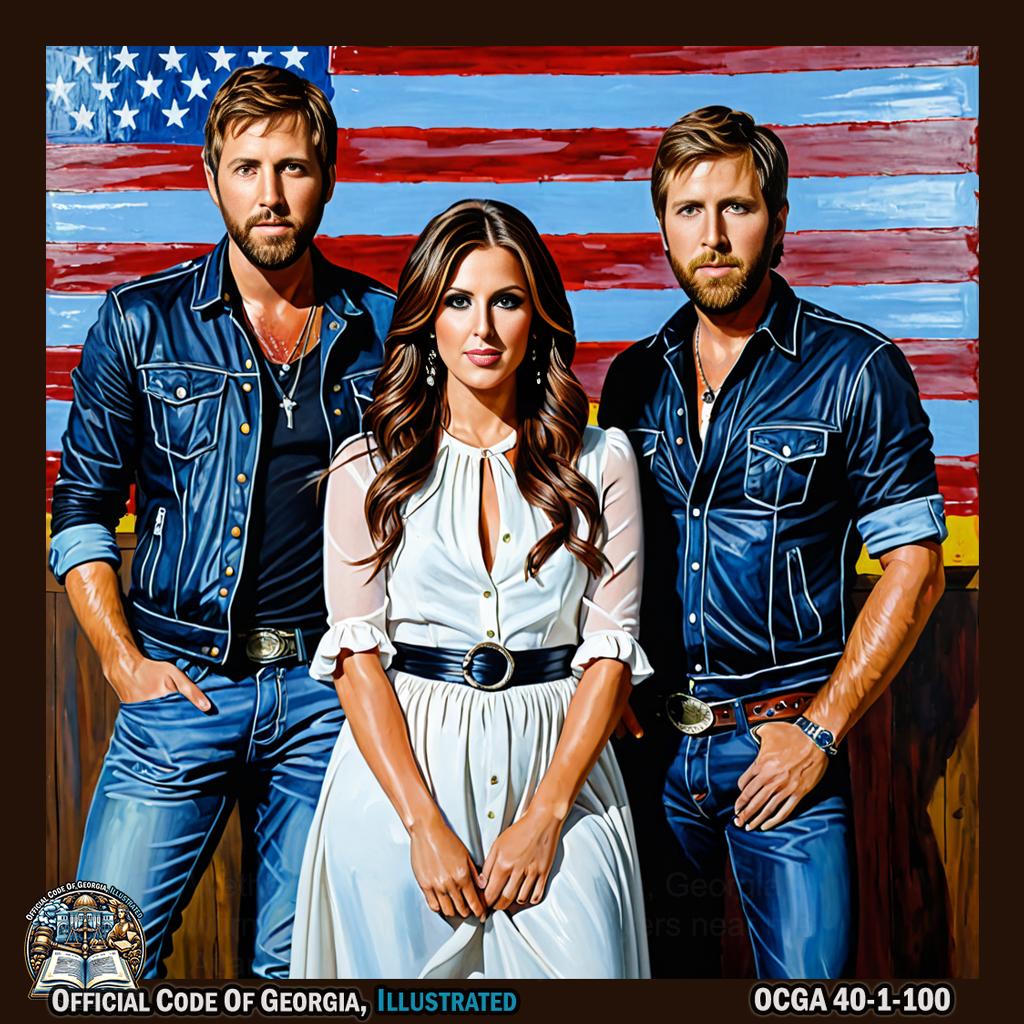
Lady Antebellum, in the style of an Alexa Meade art piece, embodies a partnership by intertwining with other individuals to form a living sculpture that takes on the shape of various organizations and entities mentioned in the sentence. -@ladya -
“Public highway” means every public street, road, highway, or thoroughfare of any kind in this state.
- “Vehicle” or “motor vehicle” means any vehicle, machine, tractor, trailer, or semitrailer propelled or drawn by mechanical power and used upon the highways in the transportation of passengers or property, or any combination thereof, determined by the commissioner.
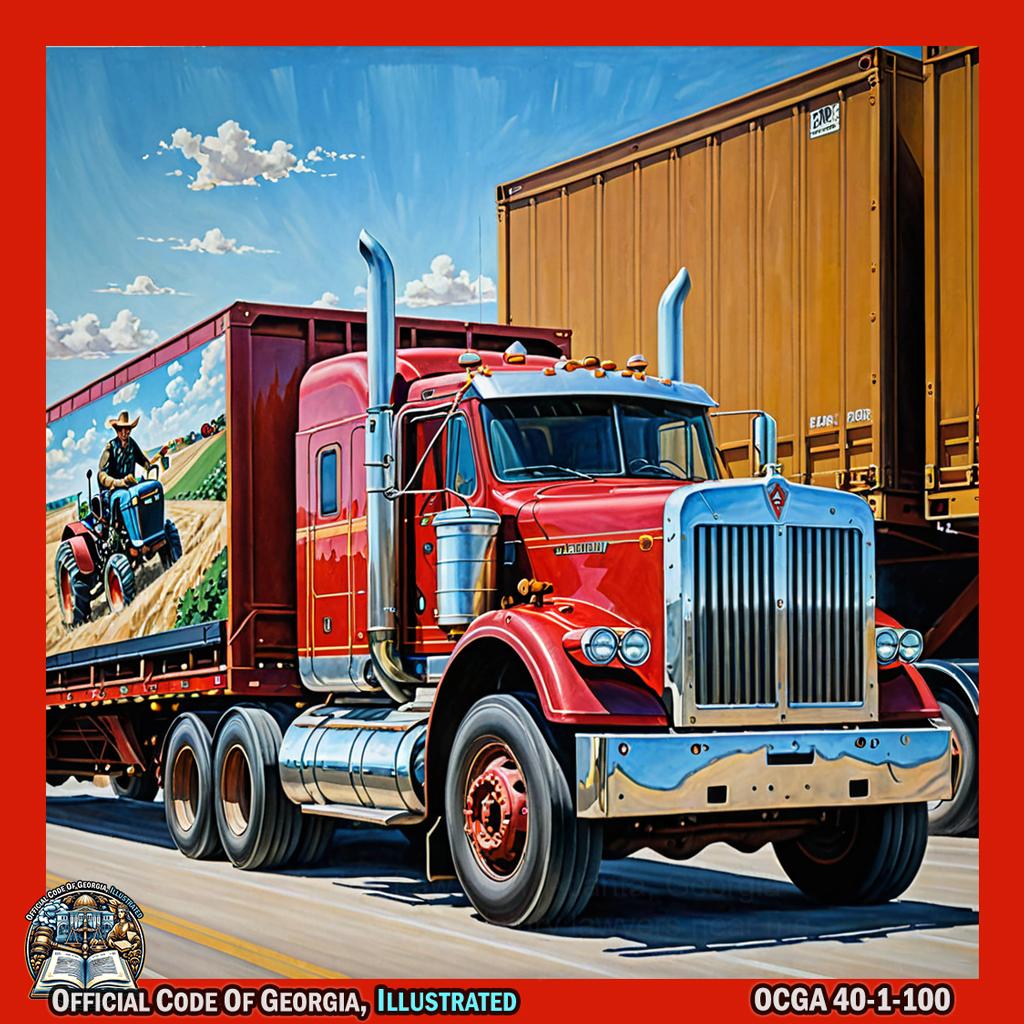
Pernell Roberts stands center stage, embodying a vehicle as he moves with mechanical power, transforming into a tractor, trailer, and semitrailer while transporting passengers and property upon the highways in a visually captivating art piece reminiscent of Renaissance masterpieces.
40-1-101.Regulatory compliance inspections; regulation of business; requirements of motor carriers.¶
- Notwithstanding any other provision of law to the contrary, all motor carriers operating on the public roads of this state shall be subject to the requirements of this part and shall be deemed to have given consent to regulatory compliance inspections.
-
Unless expressly prohibited by federal law, the commissioner is vested with power to regulate the business of any person engaged in the transportation as a motor carrier of persons or property, either or both, for hire on any public highway of this state.
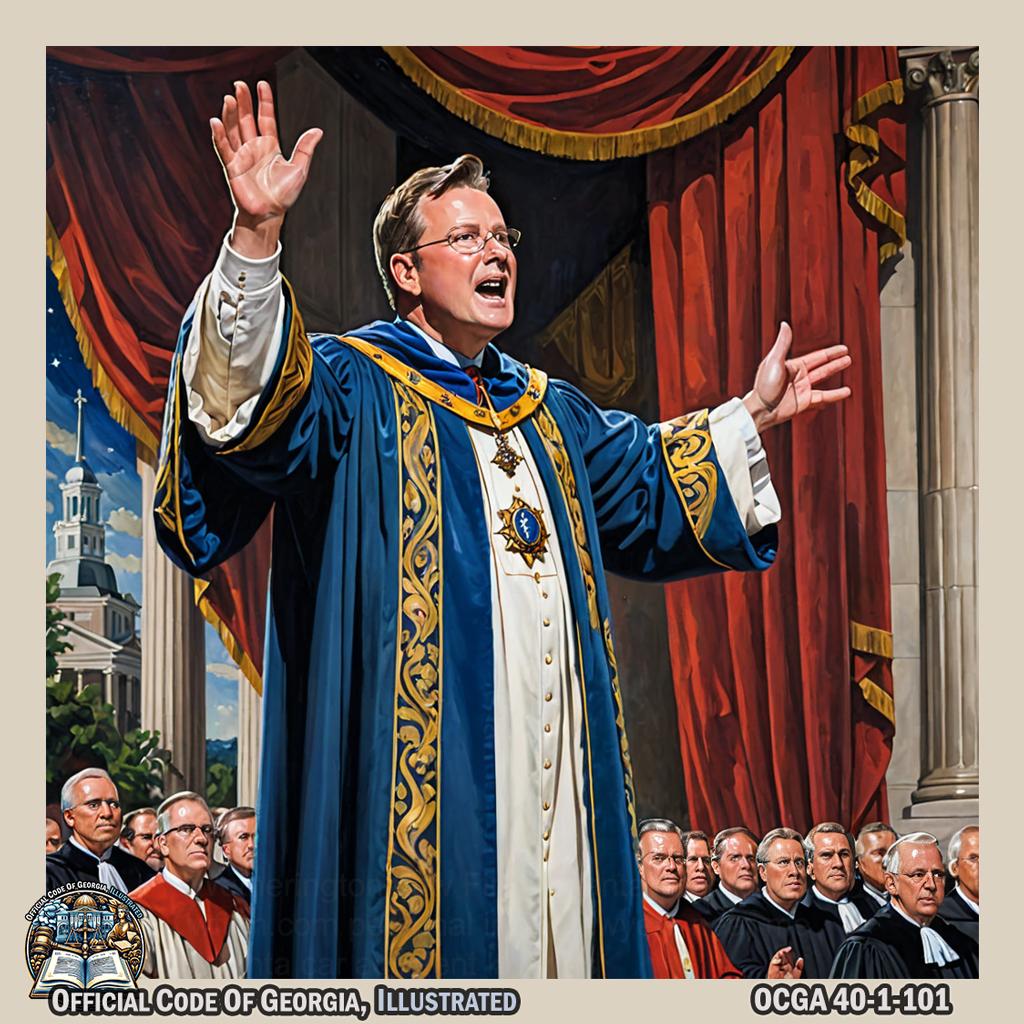
Matthias Ward, dressed in a senatorial robe, stands on a grand stage in Douglas County. With an outstretched arm, he gestures to the heavens as if bestowing power upon the audience below. His body twists and contorts in a dynamic display of authority and control, embodying the regulation of transportation with each movement. -
The commissioner is authorized to employ and designate a person or persons as necessary to implement and carry out the functions contained in this part.

Marco Restrepo, dressed in a sleek suit, elegantly gestures to employ and designate individuals while moving through the enchanting atmosphere of RONDO Distributing Co, embodying the essence of Steve McQueen's artistry. -@RestrepoMusic -
All motor carriers shall:

Willie Green, dressed in vibrant, colorful attire reminiscent of Kenny Scharf's artwork, is striking a dynamic pose while holding an oversized steering wheel with one hand and balancing a miniature truck on his shoulder, amid a backdrop of Clarkston's bustling streets transformed into surreal landscapes filled with whimsical shapes and bright patterns. - Obtain a certificate as required by this part;
-
Maintain liability insurance as provided in the rules and regulations of the department;

Brooke Anderson gracefully twirls with a billowing scarf, miming signing an insurance document while surrounded by lush greenery and elegant, flowing fabrics in the style of Pierre-Auguste Renoir's art. -@BrookeAnderson -
Act in compliance with Georgia’s workers’ compensation laws as provided in Chapter 9 of Title 34; and
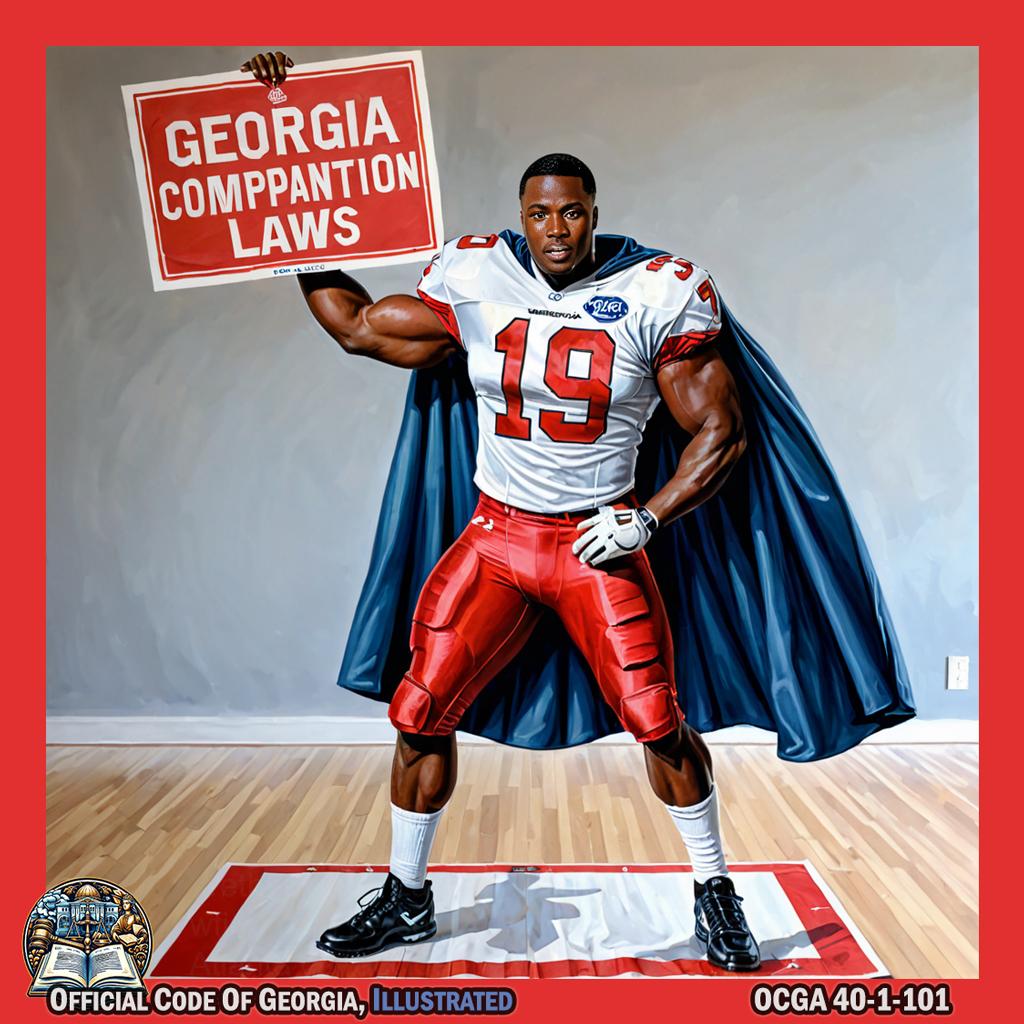
Canadian football player Terrence Edwards, depicted as a judge wearing a superhero cape and holding up a sign that says "Georgia Workers' Compensation Laws," balances on one leg in an art piece reminiscent of John McCrady's style. -@tedwards85 -
Be a United States citizen, or if not a citizen, present federal documentation verified by the United States Department of Homeland Security to be valid documentary evidence of lawful presence in the United States under federal immigration law.
40-1-102.Certificate or permit prerequisite to operation; minimum insurance requirement.¶
-
No motor carrier of passengers or household goods shall, except as otherwise provided in this part, operate without first obtaining from the commissioner a certificate or permit.
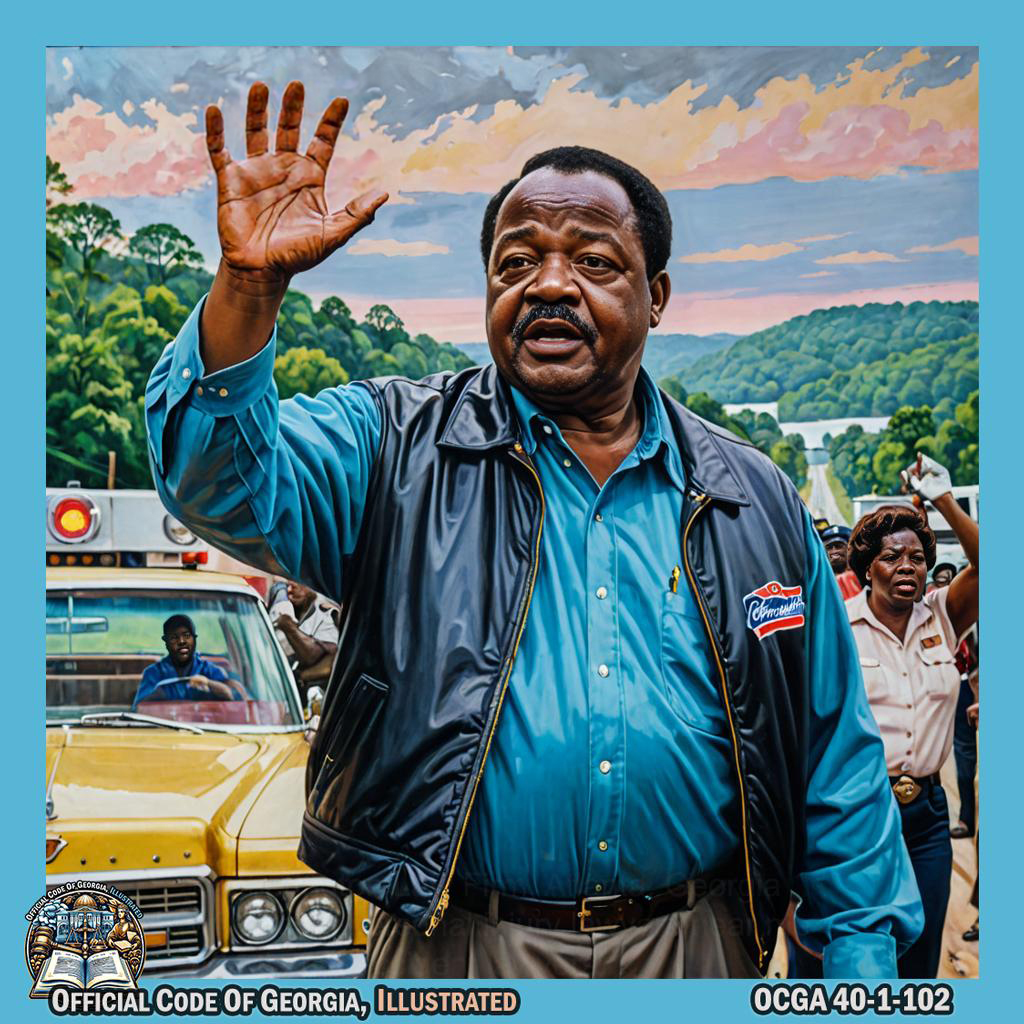
Ralph Abernathy, in the style of Nan Goldin, dramatically gestures with his hands while surrounded by a group of people representing motor carriers and household goods. The scene is set against the backdrop of McDonough, Georgia's lush landscape, engaging viewers through movement and emotion. -
Before a motor carrier may enter into any contract for the transportation of passengers, the motor carrier shall provide to all parties to the agreement a copy of the motor carrier’s proof of legally required minimum insurance coverage and a valid certification number demonstrating that the motor carrier is currently certified by the commissioner, the Federal Motor Carrier Safety Administration, or any other similarly required certifying agency. Any contract entered into in violation of this Code section shall be void and unenforceable.
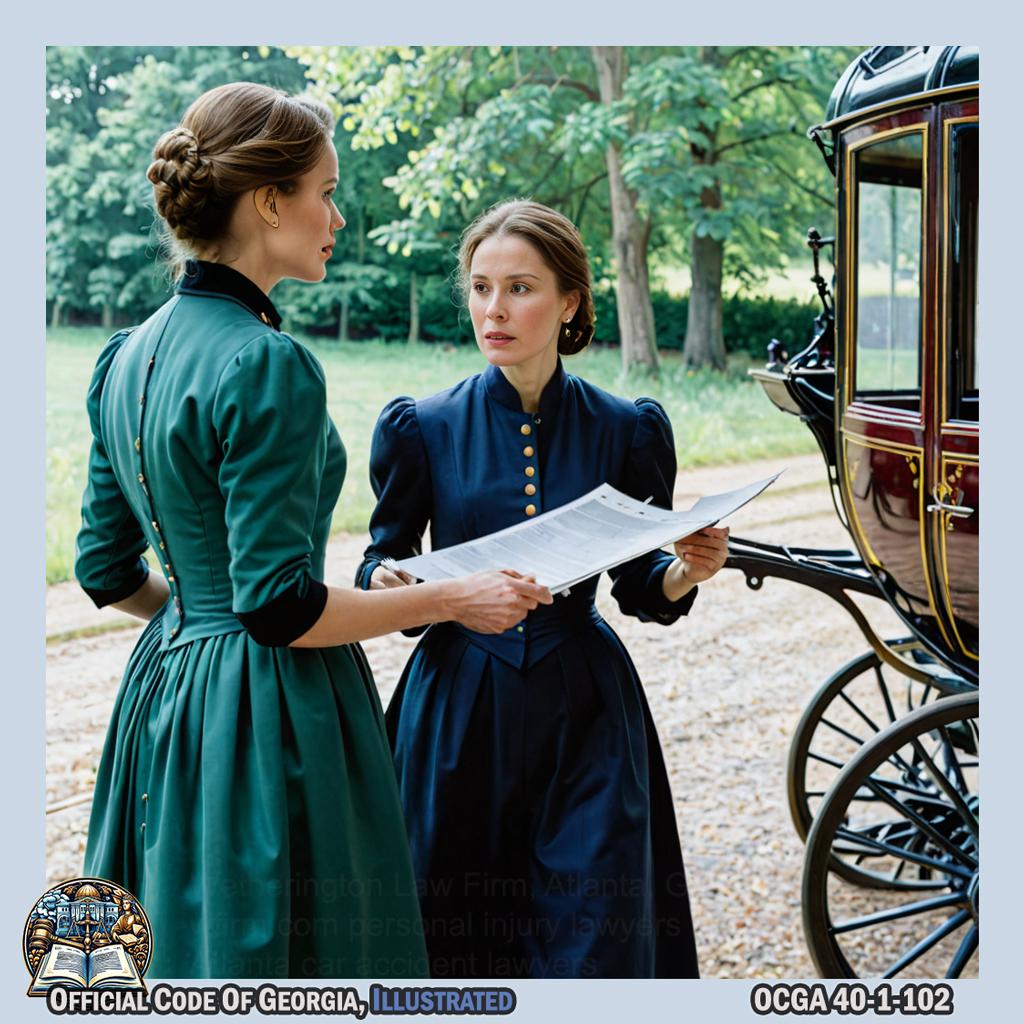
Nancy Hart presenting a document to two individuals while standing in front of a carriage, with the scene depicted in Richter's abstract style.
40-1-103.Application form for certificate; issuance to qualified applicant.¶
-
The department shall prescribe the form of the application for a motor carrier certificate and shall prescribe such reasonable requirements as to notice, publication, proof of service, maintenance of adequate liability insurance coverage, and information as may, in its judgment, be necessary and may establish fees as part of such certificate process.

In the style of Berthe Morisot, Robert Patrick gracefully gestures towards a grand application form while surrounded by swirling forms of notice publication, proof of service, and insurance coverage in the Old Liberty County Jail art gallery. -@robertpatrickT2 -
A motor carrier certificate shall be issued to any qualified applicant, provided that such applicant is a motor carrier business domiciled in this state, authorizing the operations covered by the application if it is found that the applicant is fit, willing, and able to perform properly the service and conform to the provisions of this part and the rules and regulations of the department and has not been convicted of any felony as such violation or violations are related to the operation of a motor vehicle.
40-1-104.Revocation, alteration, or amendment of certificate or permit; suspension; out-of-service orders.¶
-
The commissioner may, at any time after notice and opportunity to be heard and for reasonable cause, revoke, alter, or amend any motor carrier certificate or permit, if it shall be made to appear that the holder of the certificate has willfully violated or refused to observe any of the lawful and reasonable orders, rules, or regulations prescribed by the commissioner or any of the provisions of this part or any other law of this state regulating or taxing motor vehicles, or both, or if in the opinion of the commissioner the holder of the certificate is not furnishing adequate service.
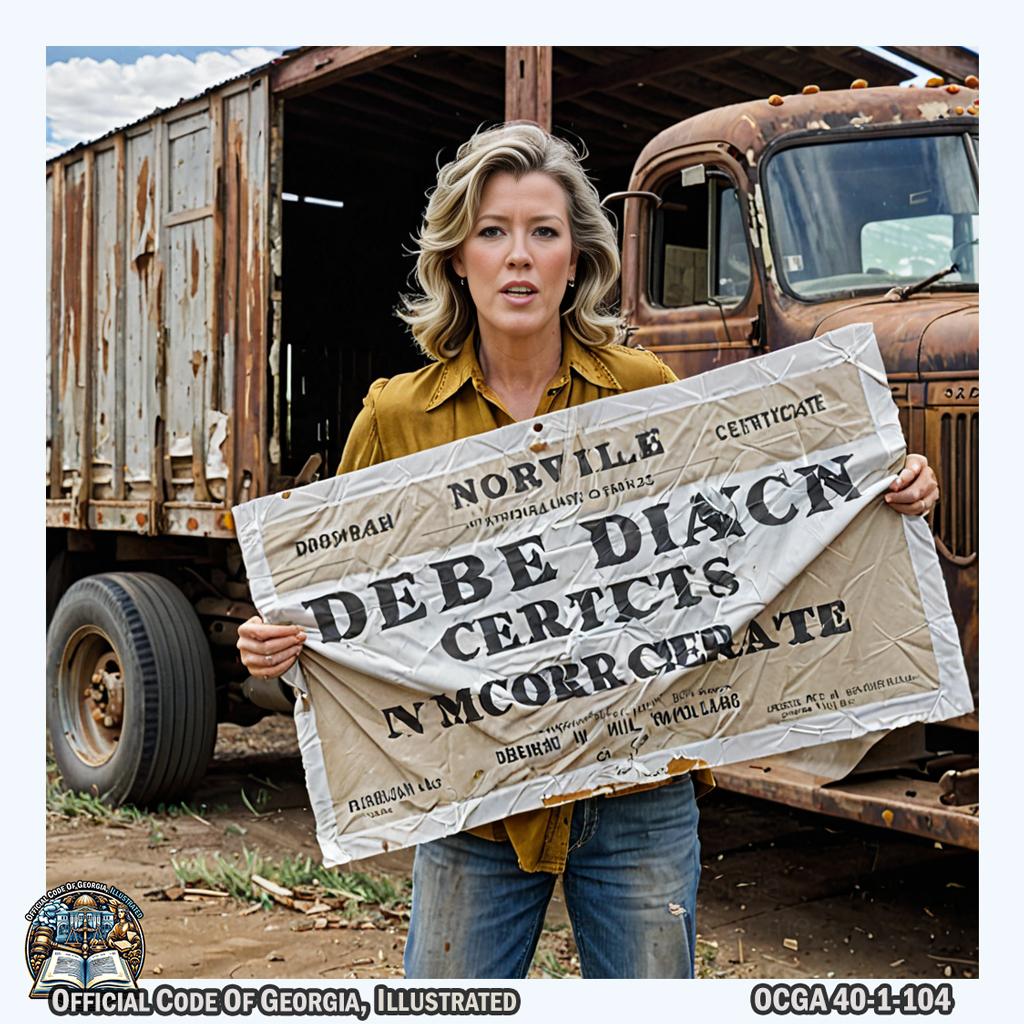
Deborah Norville, in the style of Dorothea Lange, dramatically tearing a large piece of paper symbolizing the revocation of a motor carrier certificate while standing in a rustic Monroe setting. -@DeborahNorville -
The commissioner may, at any time, after reasonable attempt at notice, immediately suspend any motor carrier certificate or permit, if the commissioner finds such suspension necessary:
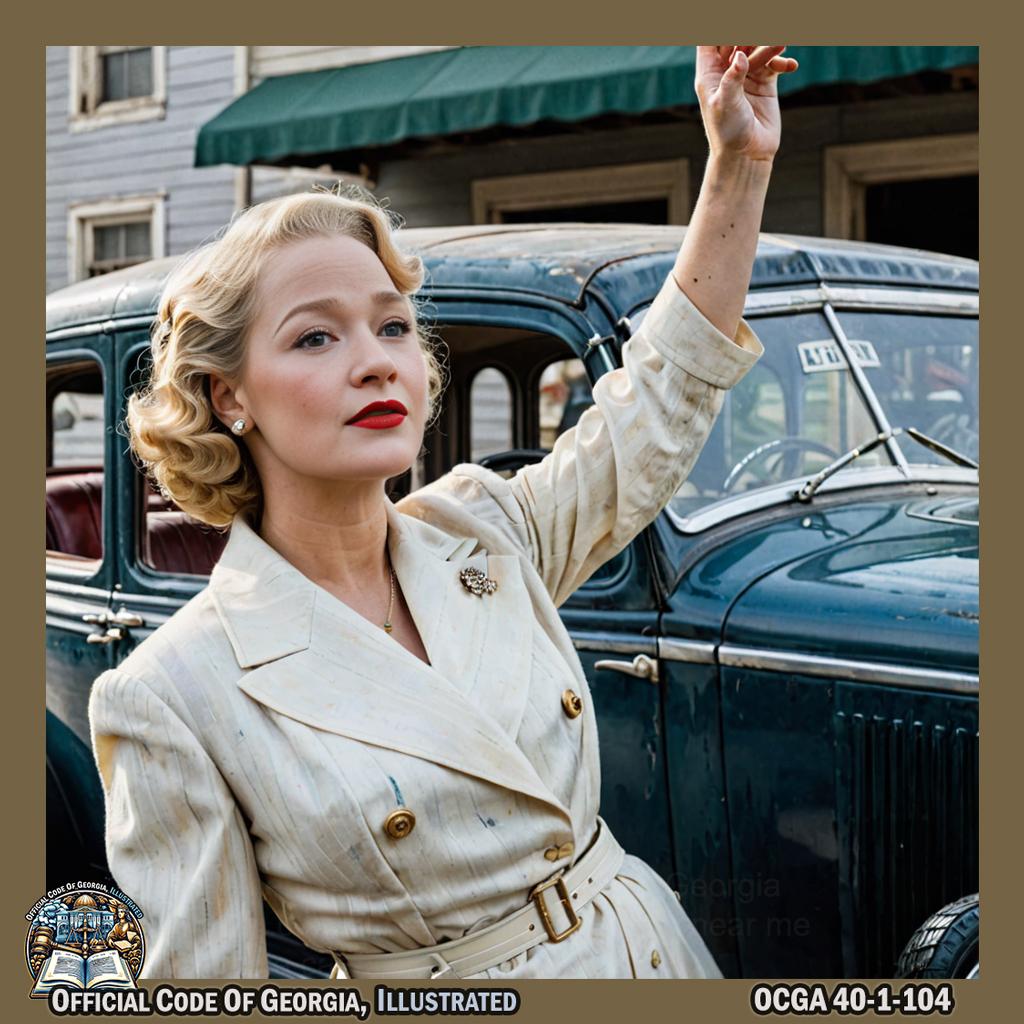
Miriam Hopkins, portraying a commissioner, stands in front of a vintage car with determination and authority, raising her hand to symbolize immediate suspension as the scene is captured in Gordon Parks' iconic photography style. -
To protect life, health, or safety;

Abner Jay stands in the Madam C.J. Walker Museum & WERD Radio, holding a large umbrella over a group of people as if protecting them from the rain, with dramatic lighting and colors reminiscent of Romare Bearden's artwork. -
For the protection of consumers; or

Jermaine Cunningham gracefully extends his arms and hands forward, as if shielding an invisible group of consumers from harm, with a look of determination and strength on his face, captured in the style of Irving Penn's iconic art pieces. -
Based upon a finding that the carrier no longer meets the qualification or fitness requirements of Code Section 40-1-103 or 40-1-106.
Certificate holders affected by such suspension may appeal to the commissioner for review pursuant to Chapter 13 of Title 50, the “Georgia Administrative Procedure Act.” The commissioner may exercise his or her discretion to designate a hearing officer for such appeals.
-
-
The commissioner, or his or her designated employees, may issue an out-of-service order or orders to a certificate or permit holder, pursuant to the provisions of this article or the department’s rules.
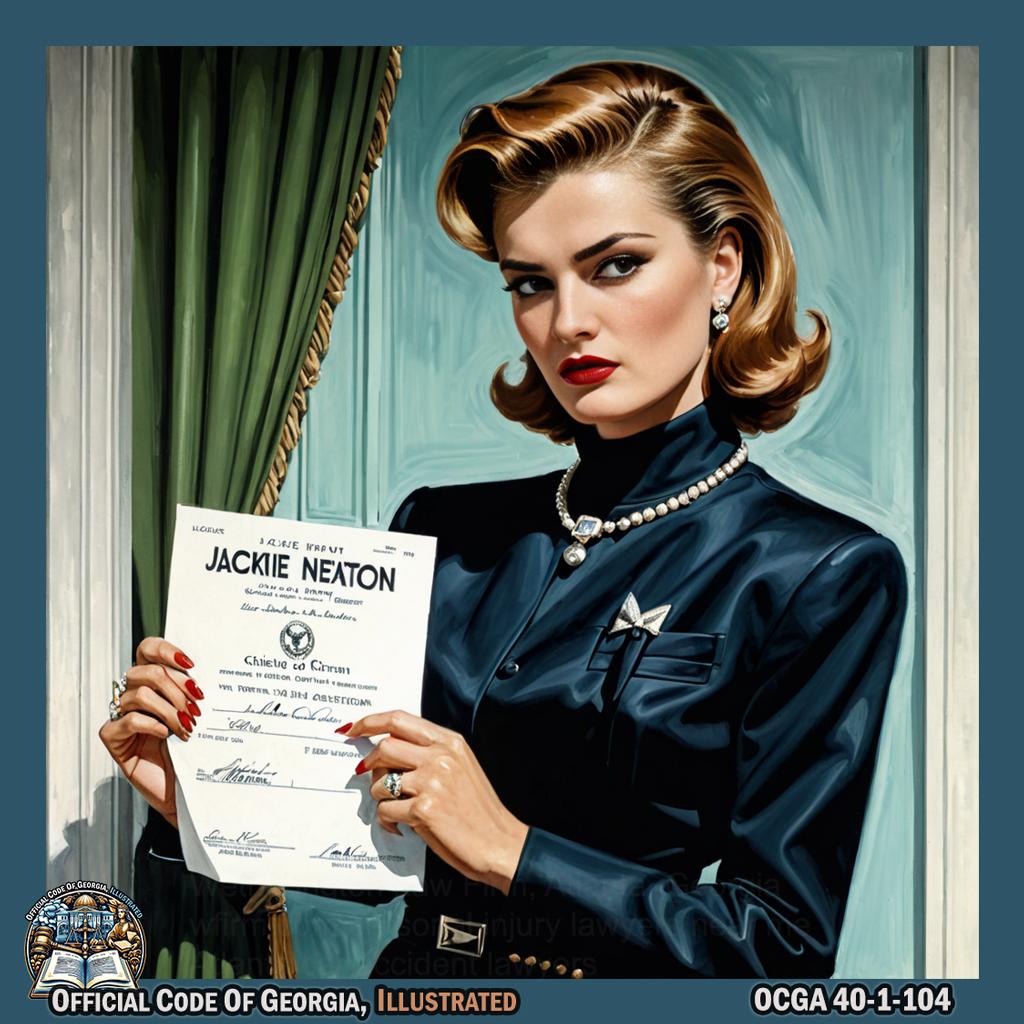
Jackie Cochran elegantly issues an out-of-service order to a certificate holder in a dramatic, stylized fashion reminiscent of Helmut Newton's art.
40-1-105.Transfer of certificate.¶
Any motor carrier certificate issued pursuant to this part may be transferred upon application to and approval by the commissioner, and not otherwise.
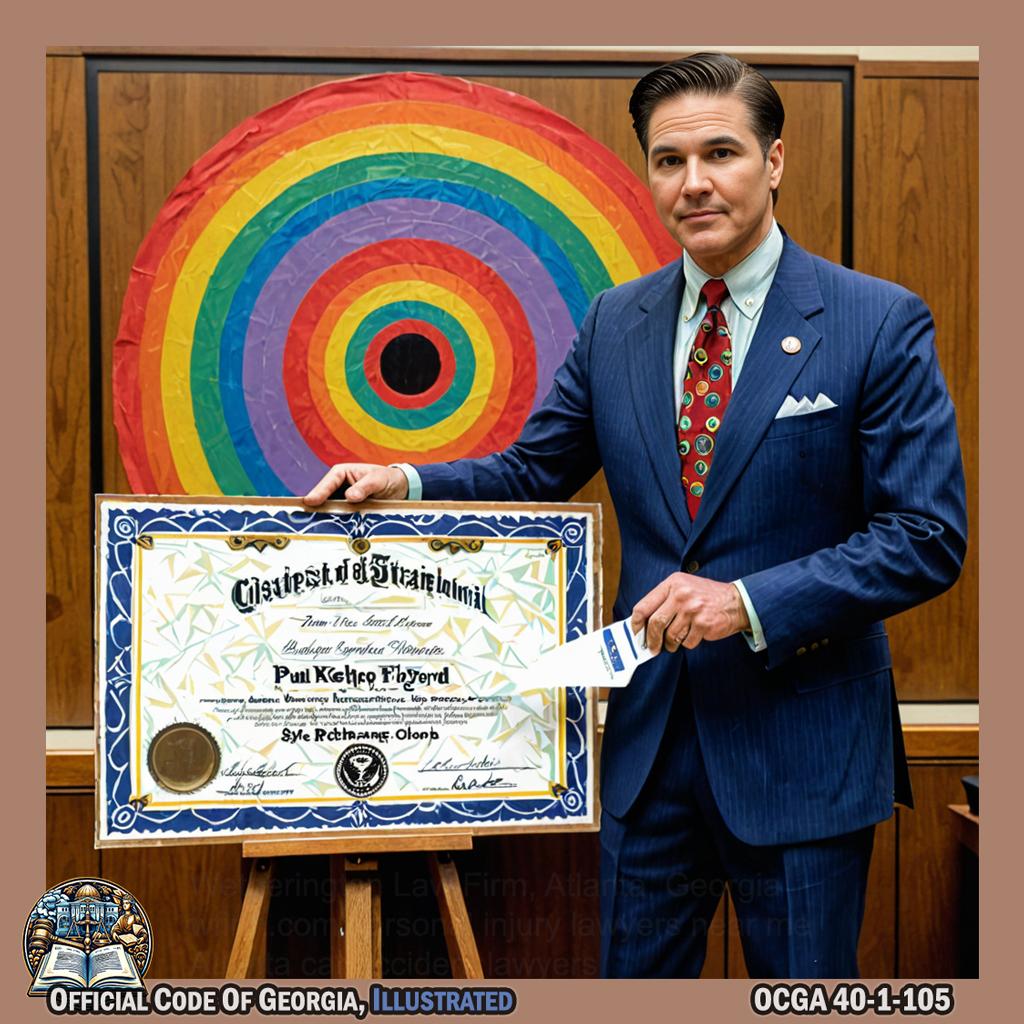
40-1-106.Fitness of applicant; protest of application by certificate holder.¶
-
The commissioner shall issue a motor carrier certificate to a person authorizing transportation as a motor carrier of passengers or household goods subject to the jurisdiction of the department if the commissioner finds that the person is fit, willing, and able to provide the transportation to be authorized by the certificate and to comply with regulations of the department. Fitness encompasses three factors:
-
The applicant’s financial ability to perform the service it seeks to provide;

Trisha Yearwood, in the style of Georges Braque, gracefully juggles a series of gold coins while elegantly balancing on one foot against a background of abstract geometric shapes at Holeman & Finch Public House. -@trishayearwood -
The applicant’s capability and willingness to perform properly and safely the proposed service; and

Herman Cain dramatically balances on one leg with outstretched arms, depicting the applicant's capability and willingness to perform properly and safely, in the style of a Picasso art piece at The Columbus Museum. -@THEHermanCain -
The applicant’s willingness to comply with the laws of Georgia and the rules and regulations of the department.

Rapper Yung Joc stands in a vibrant, geometrically patterned room in Macon, Georgia, and performs a dynamic dance that embodies his willingness to comply with the laws of Georgia and the rules and regulations of the department, reflecting Fernand Léger's art style. -@IAMYUNGJOC
-
-
The initial burden of making out a prima-facie case that an applicant is fit to provide such service rests with the applicant.

LaVon Mercer, wearing a basketball jersey, vigorously dribbles a basketball while balancing a stack of papers on his head, symbolizing the burden of proving fitness for service. He then smoothly transitions to gracefully shooting hoops with the papers still balanced on his head as if it's second nature. All this takes place in the picturesque surroundings of Georgia Museum of Agriculture & Historic Village, invoking Tommy McRae's artistic style. -
Upon an applicant making out a prima-facie case as to the motor carrier’s ability to provide the service, the burden shifts to protestant to show that the authority sought should not be granted.
-
A protest of a motor carrier of passengers or of household goods to an application shall not be considered unless the protesting motor carrier:

Lecrae crosses his arms and shakes his head, embodying the art piece by Geoffrey C. Smith of a person pretending to drive a bus or move household items. -@lecrae -
Possesses authority from the department to handle, in whole or in part, the authority which is being applied for and is willing and able to provide service and has performed service during the previous 12 month period or has actively in good faith solicited service during such period;
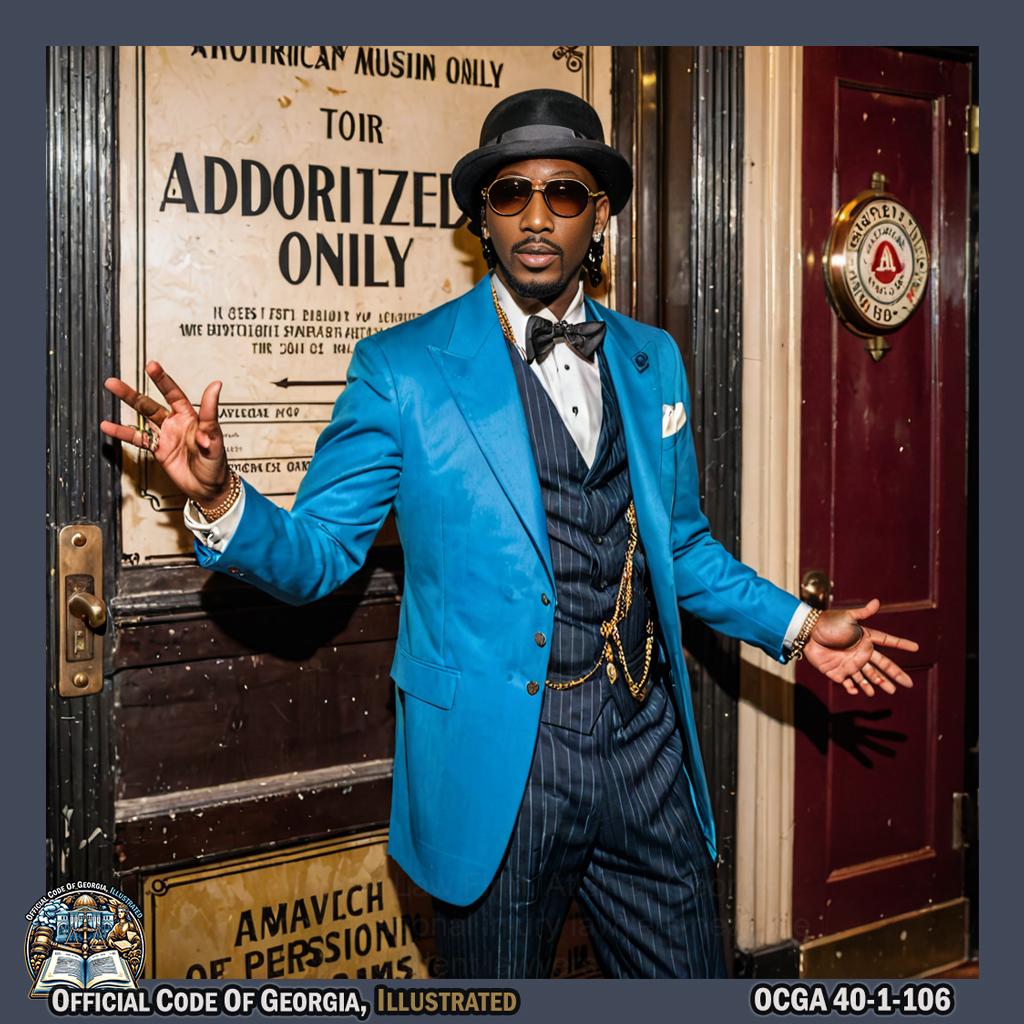
2 Chainz, dressed in a 1920s prohibition-era suit, stands at the entrance of a speakeasy with a sign reading "Authorized Personnel Only." He confidently presents an intricate key to the establishment and gestures towards a group of eager patrons waiting outside, showcasing his authority to handle entry. Meanwhile, performers in flapper dresses and jazz musicians provide a lively backdrop as he acts out the sentence through expressive movements and interactions with the crowd within the richly detailed American Prohibition Museum setting in Savannah, Georgia. -@2chainz -
Has pending before the department an application previously filed with the department for substantially the same authority; or
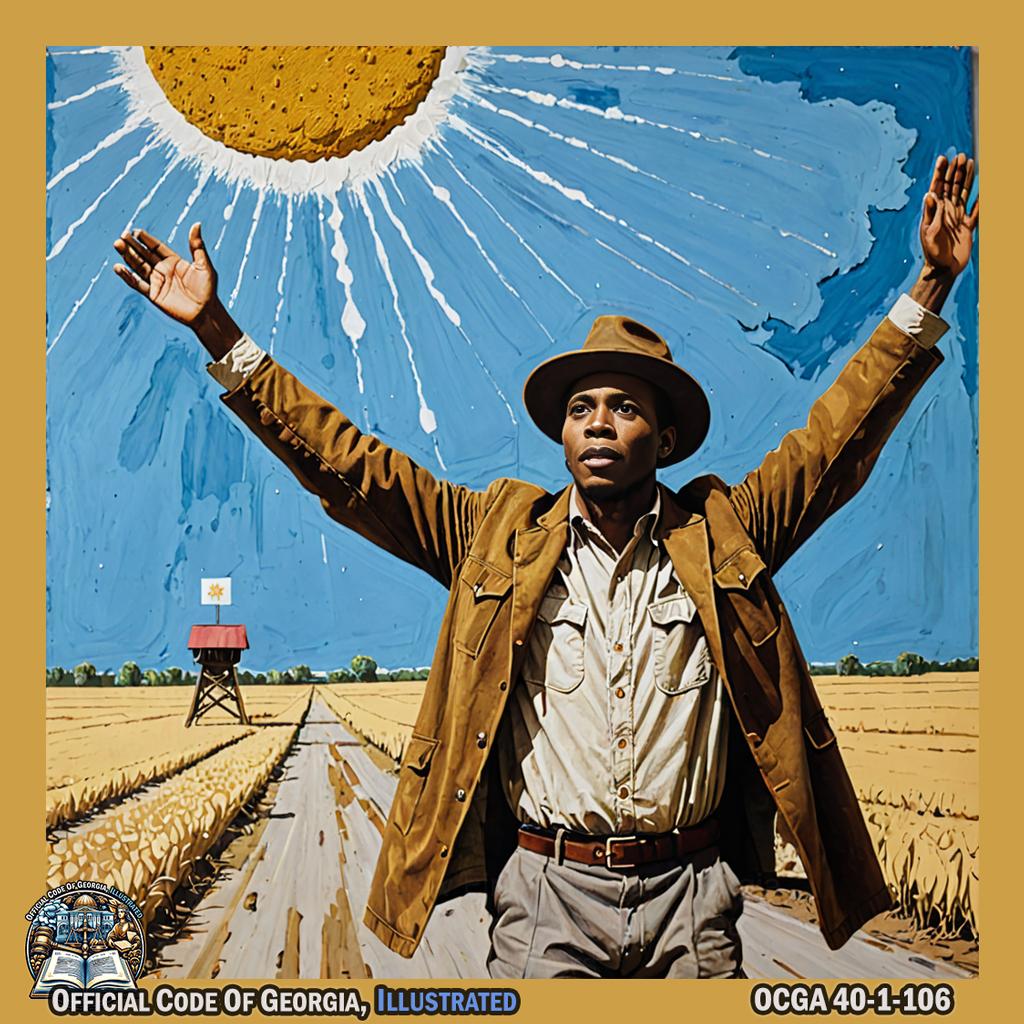
In a rich scene based in Fort Valley, Ricardo Lockette stands before the department with outstretched arms, holding an application aloft as if presenting it to the heavens, surrounded by symbolic objects like felt and honey. -@RicardoLockette -
Is granted by the commissioner leave to intervene upon a showing of other interests which in the discretion of the commissioner would warrant such a grant.
-
-
The commissioner may issue a certificate without a hearing if the application is unprotested or unopposed.

Kevin Salwen, dressed as a vintage chef, theatrically mimes signing an oversized certificate with a giant feather quill and flamboyantly presents it to an assortment of diverse, elated patrons at the Atlanta Food & Wine Festival, while Garry Winogrand-style black and white candid photography captures this staged yet spontaneous moment of celebration amidst the bustling festival atmosphere. -@KevinSalwen
40-1-107.Information in application.¶
The commissioner shall adopt rules prescribing the manner and form in which motor carriers of passengers or household goods or property shall apply for certificates required by this part. Such rules shall require that the application be in writing, under oath, and that the application:
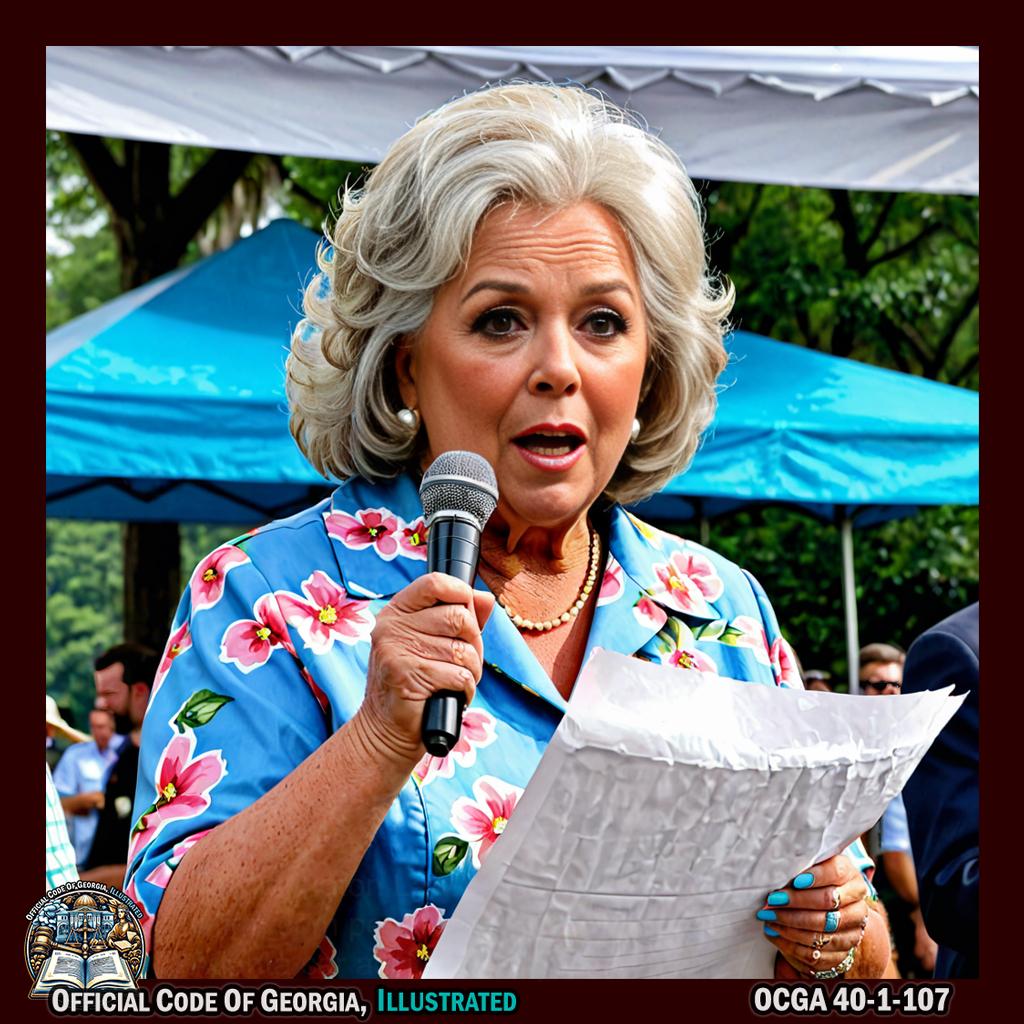
- Contains full information concerning the applicant’s financial condition, the equipment proposed to be used, including the size, weight, and capacity of each vehicle to be used, and other physical property of the applicant;
- States the complete route or routes over which the applicant desires to operate and the proposed time schedule of the operation; and
- Contains any such other or additional information as the commissioner may order or require.

The actor stands with arms outstretched, surrounded by swirling ribbons of fabric and light, as they create a dynamic visual representation of the sentence. -@RCJ_4
40-1-108.Transportation of persons under age 21 drinking alcohol.¶
Any motor carrier subject to the jurisdiction of the commissioner that transports passengers shall comply with the provisions of Code Section 3-3-23, concerning consumption of alcoholic beverages by persons under the age of 21. The commissioner shall provide to all motor carriers, at the time of registration or renewal of a certificate, an informational packet emphasizing the prohibition on alcohol consumption by persons under the age of 21 while being transported by the motor carrier.

40-1-109.Fees upon initial application.¶
The commissioner shall collect the following one-time fees upon initial application of a motor carrier pursuant to this part:

- A fee of $75.00 to accompany each application for a motor carrier certificate, or amendment to an existing certificate, where the applicant owns or operates fewer than six motor vehicles;
- A fee of $150.00 to accompany each application for a motor carrier certificate, or amendment to an existing certificate, where the applicant owns or operates six to 15 motor vehicles;
- A fee of $200.00 to accompany each application for a motor carrier certificate, or amendment to an existing certificate, where the applicant owns or operates more than 15 motor vehicles;
-
A fee of $75.00 to accompany each application for transfer of a motor carrier certificate; and

Thomas Rhett joyfully hands money to another person, captured in the art style of Constance Edith Fowler. -@ThomasRhett -
A fee of $50.00 to accompany each application for intrastate temporary emergency authority under Code Section 40-1-114.
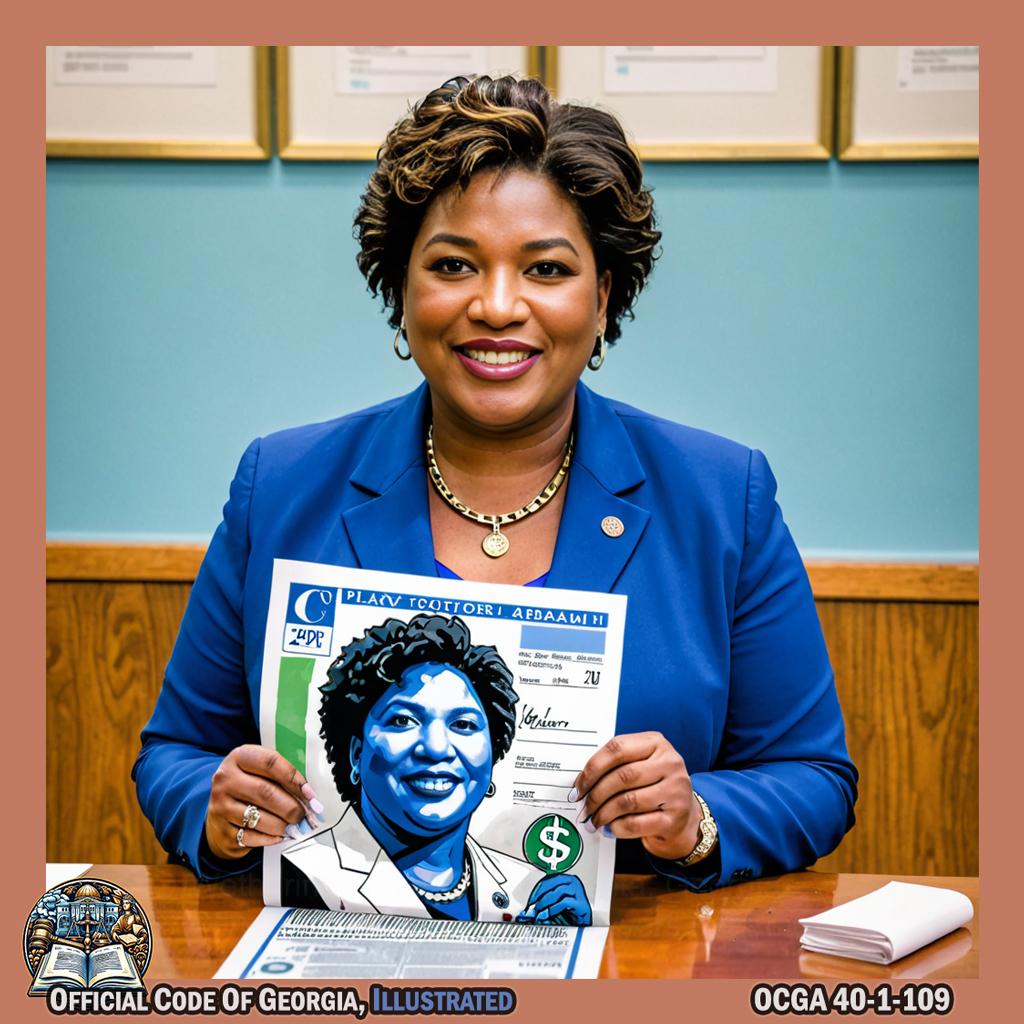
Politician Stacey Abrams, depicted by Colette Bangert, playfully draws a large dollar sign on a paper application form in an art piece. -@staceyabrams
40-1-110.Hearing and notice of pending application.¶
The commissioner, upon the filing of an application for a motor carrier certificate, shall give notice of the pending application by posting the same on the department’s official website for ten days. If a protest is filed with the department, the commissioner shall fix a time and place for a hearing. If no protest is filed with the department or if the protest is subsequently withdrawn, the commissioner may issue the motor carrier certificate without a hearing.
40-1-111.Limitation upon reapplication for denied applicants.¶
When an application for a motor carrier certificate under this part has been in whole or in part denied by the commissioner, or has been granted by the commissioner, and the order of the commissioner granting same has been quashed or set aside by a court of competent jurisdiction, a new application by the same petitioner or applicant therefor shall not be again considered by the department within three months from the date of the order denying the same or the judgment of the court quashing or setting aside the order.

40-1-112.Insurance of motor carriers.¶
-
No motor carrier of household goods or property or passengers shall be issued a motor carrier certificate unless there is filed with the department a certificate of insurance for such applicant or holder on forms prescribed by the commissioner evidencing a policy of indemnity insurance by an insurance company licensed to do business in this state, which policy must provide for the protection, in case of passenger vehicles, of passengers and the public against injury proximately caused by the negligence of such motor carrier, its servants, or its agents; and, in the case of vehicles transporting household goods, to secure the owner or person entitled to recover against loss or damage to such household goods for which the motor common carrier may be legally liable. The department shall determine and fix the amounts of such indemnity insurance and shall prescribe the provisions and limitations thereof. The insurer shall file such certificate. The failure to file any form required by the department shall not diminish the rights of any person to pursue an action directly against a motor carrier’s insurer.

David Hale, dressed as a vintage insurance agent in a stark suit, is meticulously arranging miniature toy buses and moving trucks along pathways on a colorful, abstract map of Georgia laid out over Folk Art Park. As he places each vehicle, he pretends to inspect them with an oversized magnifying glass for safety features and then shields them under clear domes representing insurance policies. The scene captures the serious nature of regulatory compliance in transportation through childlike play and Dijkstra's signature style of sober portraiture amidst vibrant landscapes. -@david_hale15 -
The department shall have power to permit self-insurance, in lieu of a policy of indemnity insurance, whenever in its opinion the financial ability of the motor carrier so warrants.

Charlie Culberson, dressed in a vintage baseball uniform, stands confidently atop a hill in Canton, Georgia, holding a large transparent shield with the word "Self-Insurance" etched into it; he deftly catches financial documents representing 'financial ability' thrown at him by unseen hands while an Irving Penn-style backdrop of dramatic lighting and crisp shadows accentuates his strong stance. -@cculberson8 -
It shall be permissible under this part for any person having a cause of action arising under this part to join in the same action the motor carrier and the insurance carrier, whether arising in tort or contract.

Eddie Mapp stands center stage, pulling in two opposing forces with a dynamic tug-of-war motion, embodying the conflicting interests of the motor carrier and insurance carrier, while moving to the rhythm of Janet Ayliffe's abstract art piece.
40-1-113.Transportation contracts limiting liability.¶
-
As used in this Code section, the term:

Tyler Flowers gracefully extends his arm and points to the sky, embodying the term "except" as a powerful, dynamic movement captured in the style of Richard Avedon. -
“Motor carrier transportation contract” means a contract, agreement, or understanding covering:
- The transportation of property for compensation or hire by the motor carrier;
-
Entrance on property by the motor carrier for the purpose of loading, unloading, or transporting property for compensation or hire; or

Lil Nas X, dressed in a shimmering gold outfit inspired by Klimt's "The Kiss," orchestrates a group of dancers who gracefully move and stack golden boxes, symbolizing loading and unloading property, amidst the lush green backdrop of Muddy Pond's pastoral landscape. -@LilNasX -
A service incidental to activity described in subparagraph (A) or (B) of this paragraph, including, but not limited to, storage of property.
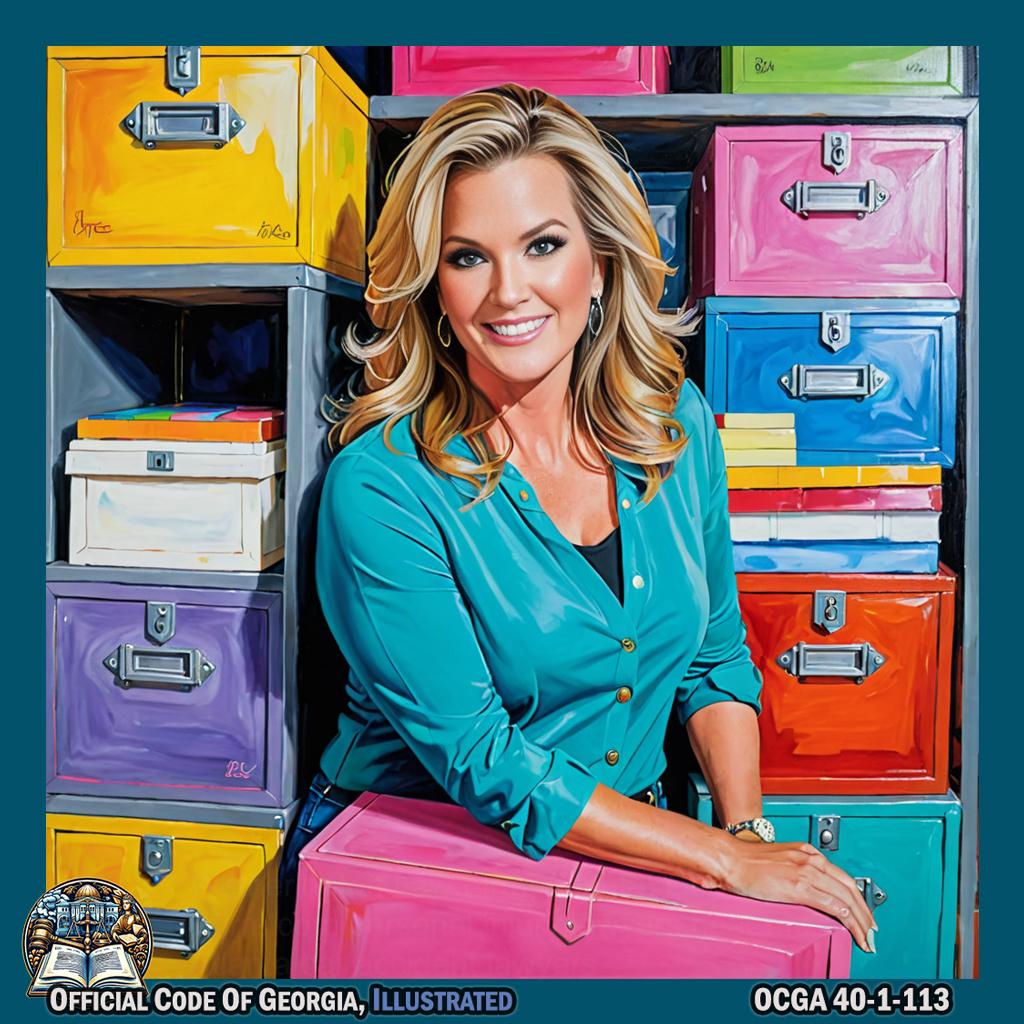
Trisha Yearwood gracefully stacks colorful boxes and playfully locks them in a giant imaginary safe, creating a vivid scene captured by Grace Hartigan's art. -@trishayearwood Motor carrier transportation contract shall not include the Uniform Intermodal Interchange and Facilities Access Agreement administered by the Intermodal Association of North America or other agreements providing for the interchange, use, or possession of intermodal chassis, containers, or other intermodal equipment.
-
“Promisee” means the person promising to provide transportation of property and any agents, employees, servants, or independent contractors who are directly responsible to such person but shall not include a motor carrier party to a motor carrier transportation contract with such person and such motor carrier’s agents, employees, servants, or independent contractors directly responsible to such motor carrier.

Future gracefully extends his hand to symbolize the act of promising, while a group of dancers swirl around him in a mesmerizing display, capturing the essence of Edgar Degas' art piece. -@1future
-
-
Notwithstanding any provision of law to the contrary, a provision, clause, covenant, or agreement contained in, collateral to, or affecting a motor carrier transportation contract that purports to indemnify, defend, or hold harmless, or has the effect of indemnifying, defending, or holding harmless, the promisee from or against any liability for loss or damage resulting from the negligence or intentional acts or omissions of the promisee is against the public policy of this state and is void and unenforceable.
40-1-114.Temporary emergency authority issued to carriers.¶
Notwithstanding any other provision of law to the contrary, in order to authorize the provision of passenger or household goods service for which there is an immediate and urgent need to a point or points, or within a territory, with respect to which there is no motor carrier service capable of meeting such need, upon receipt of an application for temporary emergency authority and upon payment of the appropriate fee as fixed by statute, the department may, in its discretion and without a hearing or other prior proceeding, grant to any person temporary motor carrier authority for such service. The order granting such authority shall contain the department’s findings supporting its determination that there is an unmet immediate and urgent need for such service and shall contain such conditions as the commissioner finds necessary with respect to such authority. Emergency temporary motor carrier authority, unless suspended or revoked for good cause within such period, shall be valid for such time as the department shall specify but not for more than an aggregate of 30 days. Such authority shall in no case be renewed and shall create no presumption that corresponding permanent authority will be granted thereafter, except that, where a motor carrier granted temporary emergency motor carrier authority under the provisions of this Code section makes application during the period of said temporary emergency authority for permanent motor carrier authority corresponding to that authorized in its temporary emergency authority, the temporary emergency motor carrier authority will be extended to the finalization of the permanent authority application unless sooner suspended or revoked for good cause within the extended period.
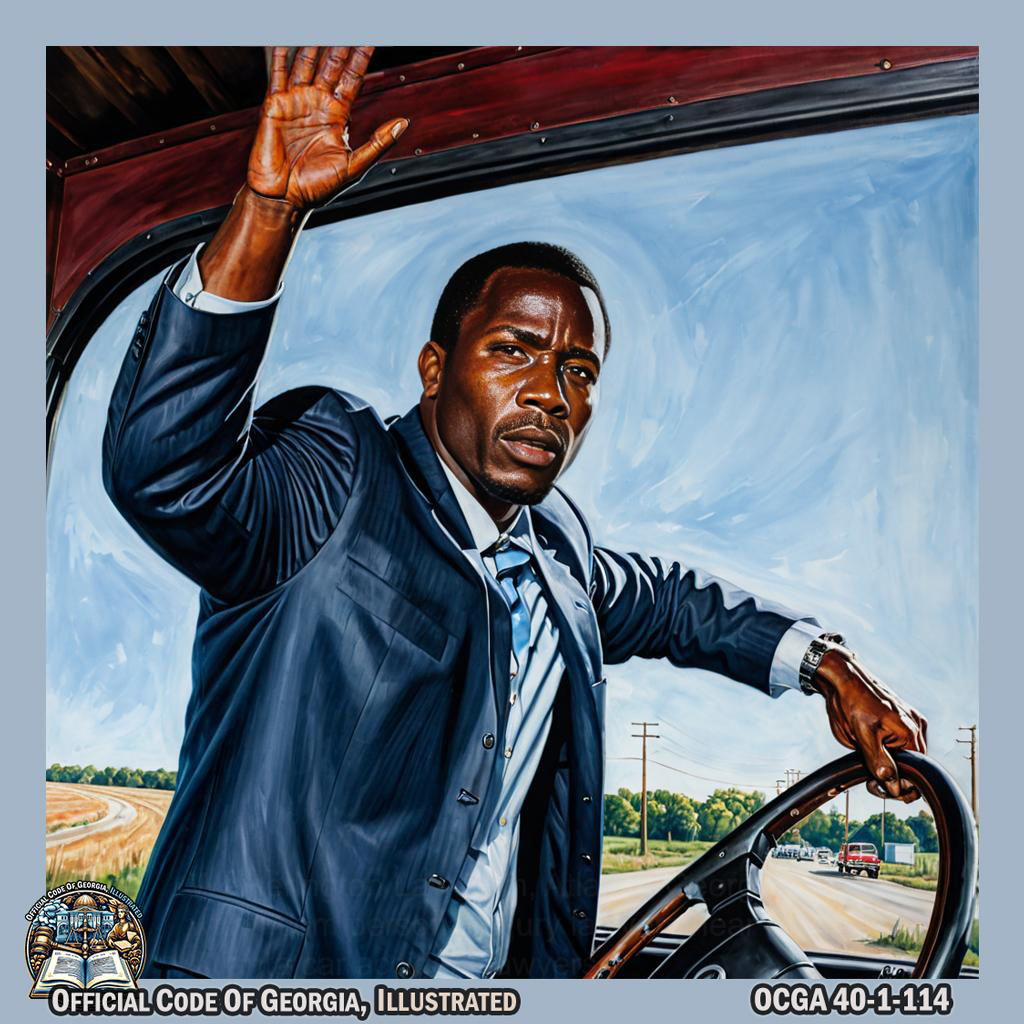
40-1-115.Notice of discontinuance of route.¶
A motor carrier of passengers may discontinue its entire service on any route upon 30 days’ published notice to be prescribed by the department, and thereupon its certificate therefor shall be canceled. A motor carrier of passengers may discontinue any part of its service on any route upon 30 days’ published notice, subject, however, to the right of the department to withdraw its certificate for such route if, in the opinion of the commissioner, such diminished service is not adequate or is no longer compatible with the public interest.
40-1-116.Additional taxation prohibited by localities.¶
No subdivision of this state, including cities, townships, or counties, shall levy any excise, license, or occupation tax of any nature, on the right of a motor carrier to operate equipment, or on the equipment, or on any incidents of the business of a motor carrier.
40-1-117.Registered agents of nonresident motor carrier; service; venue for cause action; vehicles excluded from motor carrier or contract carrier; covered farm vehicles.¶
-
Each nonresident motor carrier shall, before any certificate or permit is issued to it under this part or at the time of registering as required by Code Section 40-2-140, designate and maintain in this state an agent or agents upon whom may be served all summonses or other lawful processes in any action or proceeding against such motor carrier growing out of its carrier operations; and service of process upon or acceptance or acknowledgment of such service by any such agent shall have the same legal force and validity as if duly served upon such nonresident carrier personally. Such designation shall be in writing, shall give the name and address of such agent or agents, and shall be filed in the office of the state revenue commissioner. Upon failure of any nonresident motor carrier to file such designation with the state revenue commissioner or to maintain such an agent in this state at the address given, such nonresident carrier shall be conclusively deemed to have designated the Secretary of State and his or her successors in office as such agent; and service of process upon or acceptance or acknowledgment of such service by the Secretary of State shall have the same legal force and validity as if duly served upon such nonresident carrier personally, provided that notice of such service and a copy of the process are immediately sent by registered or certified mail or statutory overnight delivery, return receipt requested, by the Secretary of State or his or her successor in office to such nonresident carrier, if its address be known. Service of such process upon the Secretary of State shall be made by delivering to his or her office two copies of such process with a fee of $10.00.
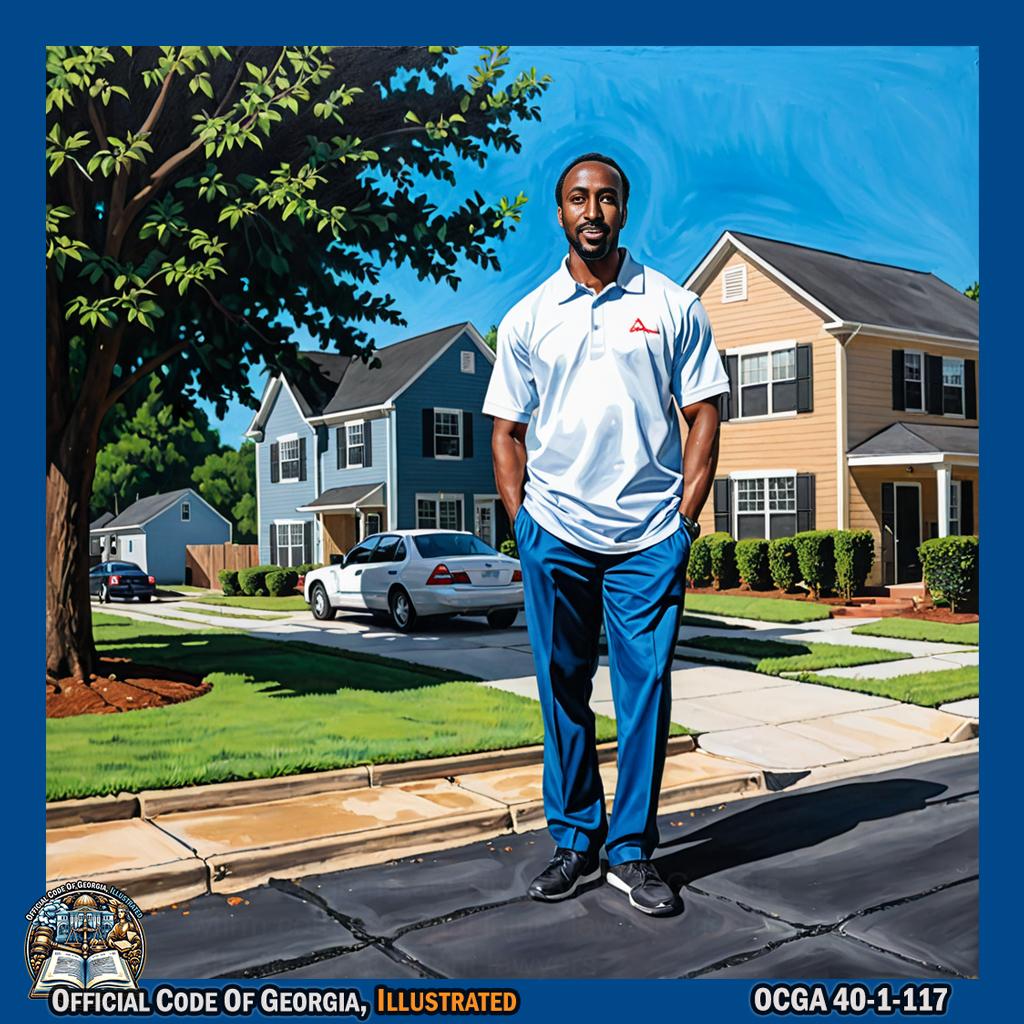
Al-Farouq Aminu stands in the Horseshoe Community neighborhood of Atlanta, gracefully using his body to depict the process of designating and maintaining an agent for a nonresident motor carrier, while embodying the artistic style of Angela Valamanesh. -@farouq1 -
Except in those cases where the Constitution requires otherwise, any action against any resident or nonresident motor carrier for damages by reason of any breach of duty, whether contractual or otherwise, or for any violation of this article or of any order, decision, rule, regulation, direction, demand, or other requirement established by the state revenue commissioner may be brought in the county where the cause of action or some part thereof arose; and if the motor carrier or its agent shall not be found for service in the county where the action is instituted, a second original may be issued and service be made in any other county where the service can be made upon the motor carrier or its agent. The venue prescribed by this Code section shall be cumulative of any other venue provided by law.
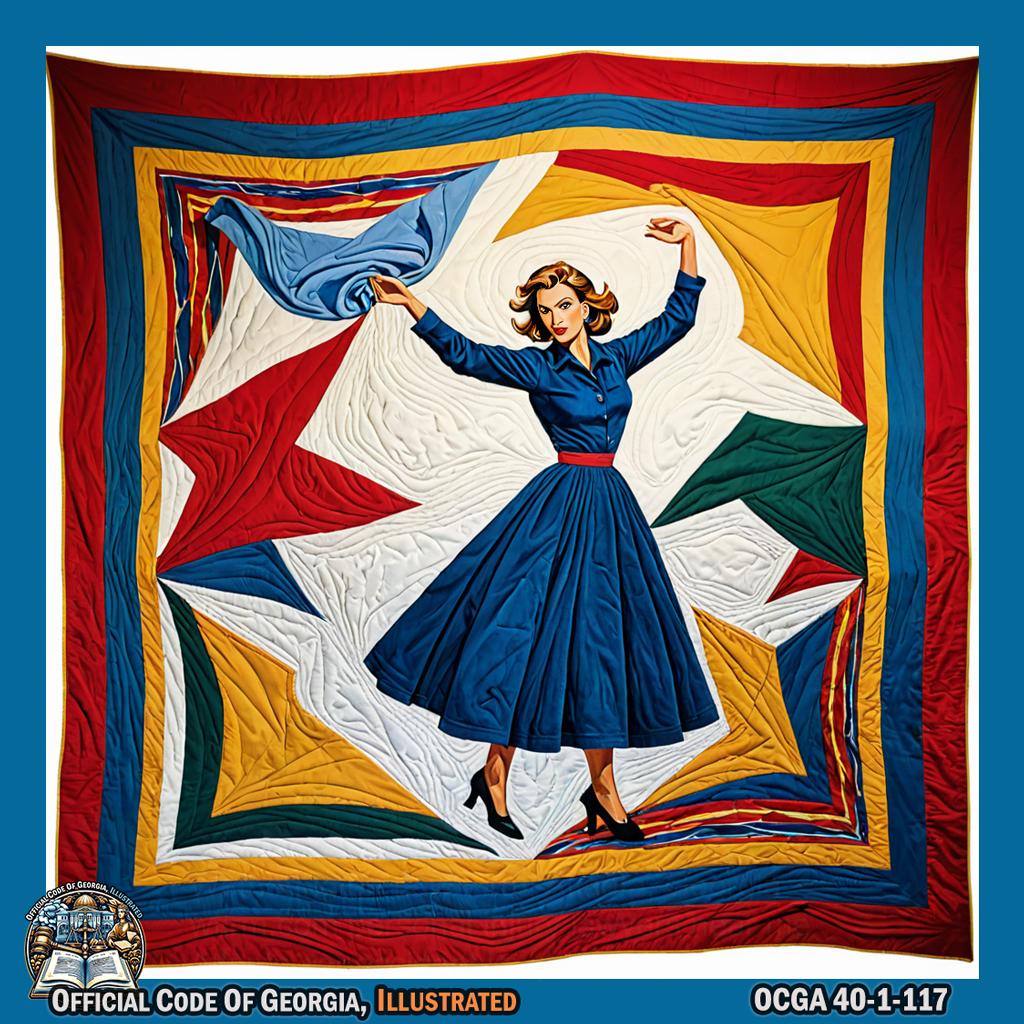
Harriet Powers, depicted in a dynamic and abstract de Kooning style, is shown stitching a vibrant quilt that maps out the roads of Suwanee with colorful threads representing different motor carrier routes; each patch depicts scenes where carriers meet local residents, symbolizing potential legal disputes or agreements. Nearby on the quilt, another figure enacts serving papers to an elusive carrier represented by a swirling figure slipping through the fabric's grasp while Powers looks on from her work with determination and resilience. -
Except in those cases where the Constitution requires otherwise, for the purposes of venue only, any truck engaged exclusively in the transportation of agricultural or dairy products, or both, between farm, market, gin, warehouse, or mill shall not be classified as a motor common or contract carrier.

Anthony Carter gracefully leaps and twirls across a stage, moving his body in fluid motions to interpret the complex and nuanced sentence with dramatic flair, all set against a backdrop of vibrant colors swirling together like a Mark Rothko painting. -
-
As used in this subsection, the term “covered farm vehicle” means a motor vehicle with a gross vehicle weight rating or gross vehicle weight, whichever is greater, of 26,000 pounds or less; or a motor vehicle with a gross vehicle weight rating or gross vehicle weight that is greater than 26,000 pounds and which is traveling within the registered state or within 150 miles of the farm or ranch for which it is used. To qualify as a covered farm vehicle either type of motor vehicle listed in this paragraph must also be:
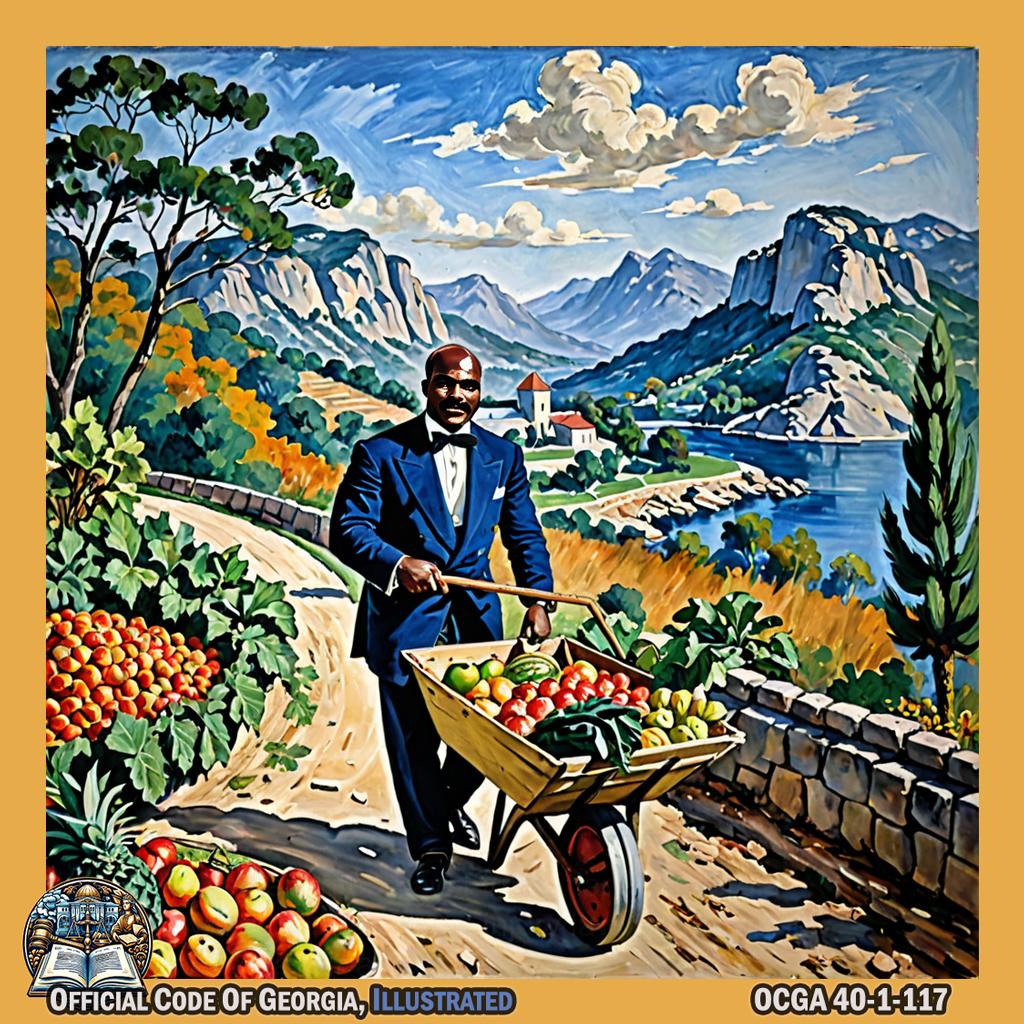
Evander Holyfield, dressed in period attire evocative of Manet's style, theatrically pushes a large wheelbarrow loaded with oversized painted fruits and vegetables along the serpentine paths of Fort Mountain Rock Fort, gesturing grandly to an invisible audience about the weight and destination of his rustic cargo. -@holyfield
1. Registered in this or another state;

Using Ron Blomberg as a model, depict the sentence "Registered in this or another state" through a physical act that incorporates elements of baseball and state registration, presented in the style of an art piece by Maurizio Anzeri, set in the rich scene of Old Fourth Ward neighborhood in Atlanta. -
Operated by a farmer, rancher, or tenant under a crop share farm lease agreement or a family member or employee of a farmer, rancher, or crop share tenant;

Alan Jackson planting seeds in a field, surrounded by the words "Operated by" and "crop share farm lease agreement" painted on the ground, with a group of people dressed as farmers and ranchers watching. -@OfficialJackson -
Used primarily for the transportation of farm supplies, crops, livestock, or farm machinery; and
- Not used in a for hire motor carrier operation; provided, however, that this requirement shall not apply to a motor vehicle operated under a tenant crop share agreement used primarily for transporting crops of the landlord.
- A covered farm vehicle is not a motor carrier; provided, however, that any motor vehicle required by federal law to be designated as either a covered farm vehicle or a motor carrier shall be so designated as required by federal law.

American Idol contestant Lauren Alaina pretends to drive a tractor labeled "covered farm vehicle" before transforming it into a truck labeled "motor carrier," capturing the scene as an art piece from Charles O. Perry. -@Lauren_Alaina
- A covered farm vehicle is not a motor carrier; provided, however, that any motor vehicle required by federal law to be designated as either a covered farm vehicle or a motor carrier shall be so designated as required by federal law.
-
-
A covered farm vehicle must be equipped with either a license plate or possess such other special designation issued by the state where such vehicle is registered and the license plate or special designation must indicate that such vehicle is a covered farm vehicle.

Big Maceo Merriweather pretends to drive a toy tractor while holding up a pretend license plate that says "Covered Farm Vehicle" and makes vrooming noises, depicted as an art piece by Charles Pollock.
-
40-1-118.Establishment of just and reasonable rates, fares, and charges for transportation.¶
The commissioner shall prescribe just and reasonable rates, fares, and charges for transportation by motor carriers of household goods and for all services rendered by motor carriers in connection therewith. The tariffs therefor shall be in such form and shall be filed and published in such manner and on such notice as the department may prescribe. Such tariffs shall also be subject to change on such notice and in such manner as the department may prescribe. In order to carry out the purposes of this Code section, including the publication and maintenance of just, reasonable, and nondiscriminatory rates and charges, the department shall establish a rate-making procedure for all carriers of household goods. Failure on the part of any motor carrier to comply with this Code section or the rules and regulations promulgated under this Code section may result in suspension or cancellation of said carrier’s operating authority by the department.
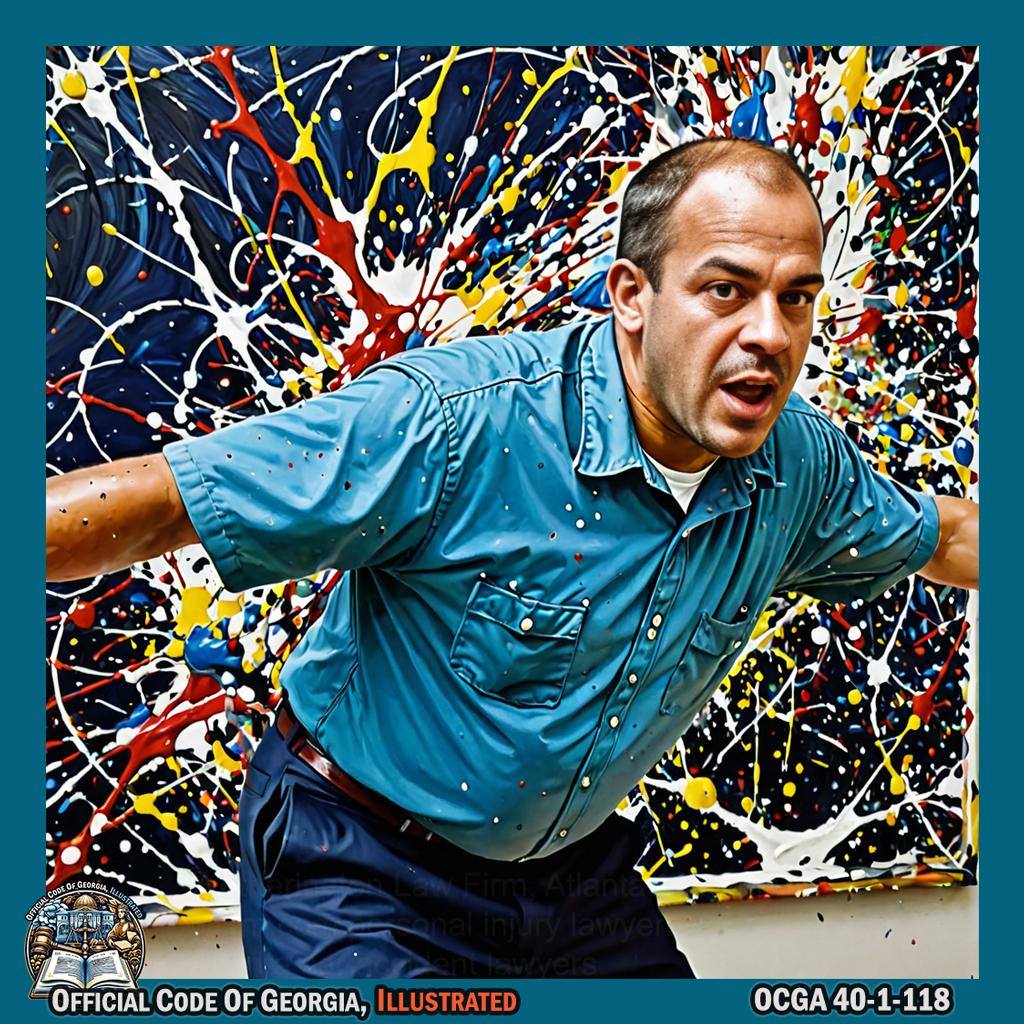
40-1-119.Charges by motor carriers; unjust discrimination by carriers prohibited.¶
No motor carrier of household goods or passengers shall charge, demand, collect, or receive a greater or lesser or different compensation for the transportation of household goods or passengers or for any service rendered in connection therewith than the rates, fares, and charges prescribed or approved by order of the department; nor shall any such motor carrier unjustly discriminate against any person in its rates, fares, or charges for service. The commissioner may prescribe, by general order, to what persons motor carriers of passengers may issue passes or free transportation; may prescribe reduced rates for special occasions; and may fix and prescribe rates and schedules.

40-1-120.Limiting baggage size for motor carrier’s passengers.¶
Motor carriers of passengers shall not be compelled to carry baggage of passengers, except hand baggage, the character, amount, and size of which the motor carrier may limit by its rules and regulations, subject to the approval of the department; and the department may by rule or regulation limit the amount of the liability of the motor carrier therefor. If a motor carrier shall elect to carry the personal baggage of passengers, other than hand baggage, the department shall prescribe just and reasonable rates therefor and such other rules and regulations with respect thereto as may be reasonable and just, and may by rule or regulation limit the amount of the liability of the motor carrier therefor.
40-1-121.Inspection of books and records.¶
The department shall prescribe the books and the forms of accounts to be kept by the holders of certificates under this part, which books and accounts shall be preserved for such reasonable time as may be prescribed by the department. The books and records of every certificate holder shall be at all times open to the inspection of any agent of the department for such purpose. The department shall have the power to examine the books and records of all motor carriers to whom it has granted certificates or permits to operate under this part and to examine under oath the officers and agents of any motor carrier with respect thereto.

40-1-122.Observing laws; schedule of operation.¶
Motor carriers shall observe the laws of this state in respect to size, weight, and speed of their vehicles. Intrastate motor carriers of passengers shall, and interstate motor carriers of passengers may, file with the department the schedules upon which they propose to operate their vehicles, which schedules shall be such that the net running time of vehicles between terminal points shall not exceed the lawful speed limit; and any motor carrier of passengers filing such a schedule shall be allowed to operate his or her vehicles on the highway at a rate of speed not exceeding the lawful speed limit in order to maintain a schedule so filed.

40-1-123.Enjoining operation of motor carriers.¶
Any motor carrier which operates on the public highways of this state without the required certificate or permit, or after such certificate or permit has been canceled, or without having registered its vehicle or vehicles as provided for in this part, or which operates otherwise than is permitted by the terms of such certificate or permit or the laws of this state may be enjoined from operating on the public highways of this state upon the bringing of a civil action by the department, by a competing motor carrier or rail carrier, or by any individual.
40-1-124.Perpetual franchise over public highways prohibited.¶
Nothing in this part or any other law shall be construed to vest in the owner, holder, or assignee of any certificate or permit issued under this part any vested right to use the public highways of this state and shall not be construed to give to any motor carrier any perpetual franchise over such public highways.
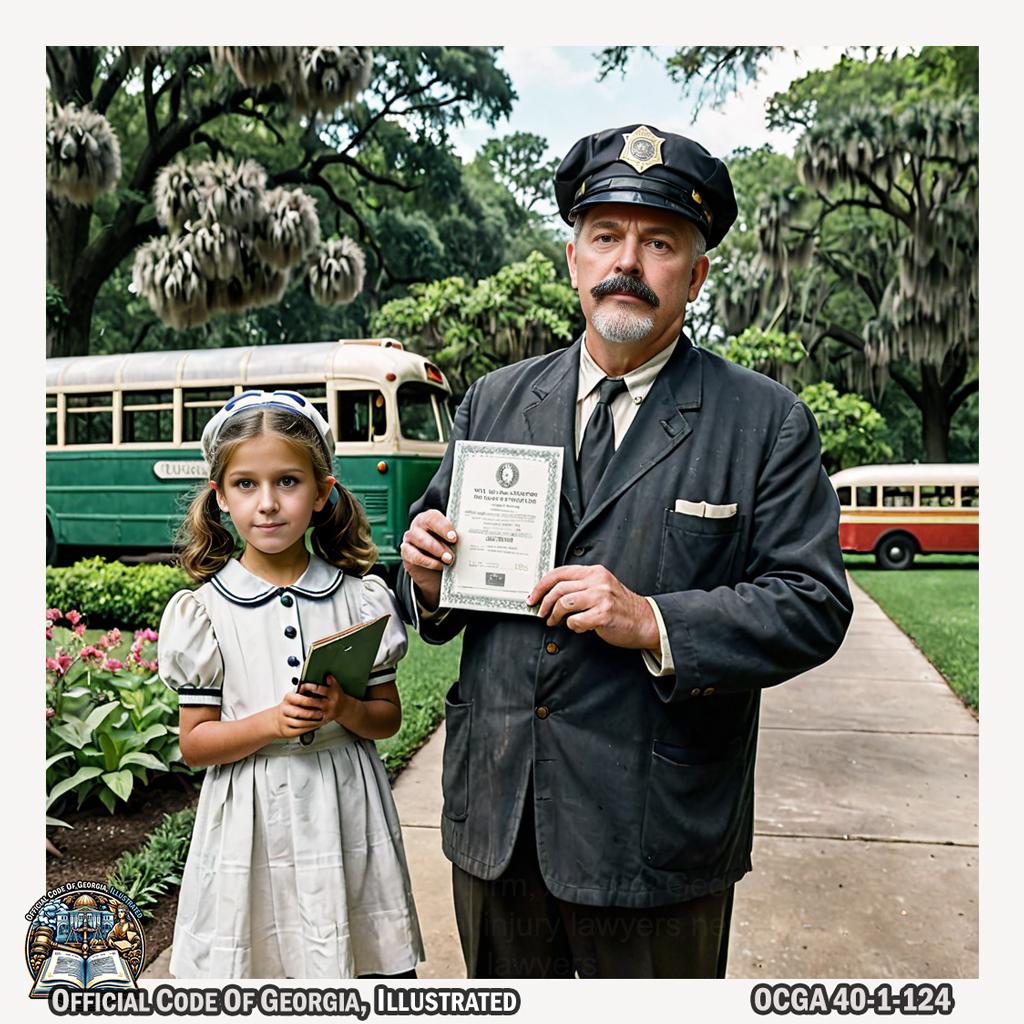
40-1-125.Hearing upon suspension or revocation of motor carrier certificate; judicial review.¶
-
Upon issuance by the commissioner of an order suspending or revoking a motor carrier certificate, such motor carrier shall be afforded a hearing to be held in accordance with the procedures set forth in Code Section 40-1-56.

Boygar Razikashvili solemnly raises his hand and gestures in a dramatic, fluid motion as if issuing an order while surrounded by swirling ribbons of red and black fabric in a grand art installation reminiscent of the surrealism movement. -
Any person whose motor carrier certificate has been suspended or revoked and who has exhausted all administrative remedies available within the Department of Public Safety is entitled to judicial review in accordance with Code Section 40-1-56.
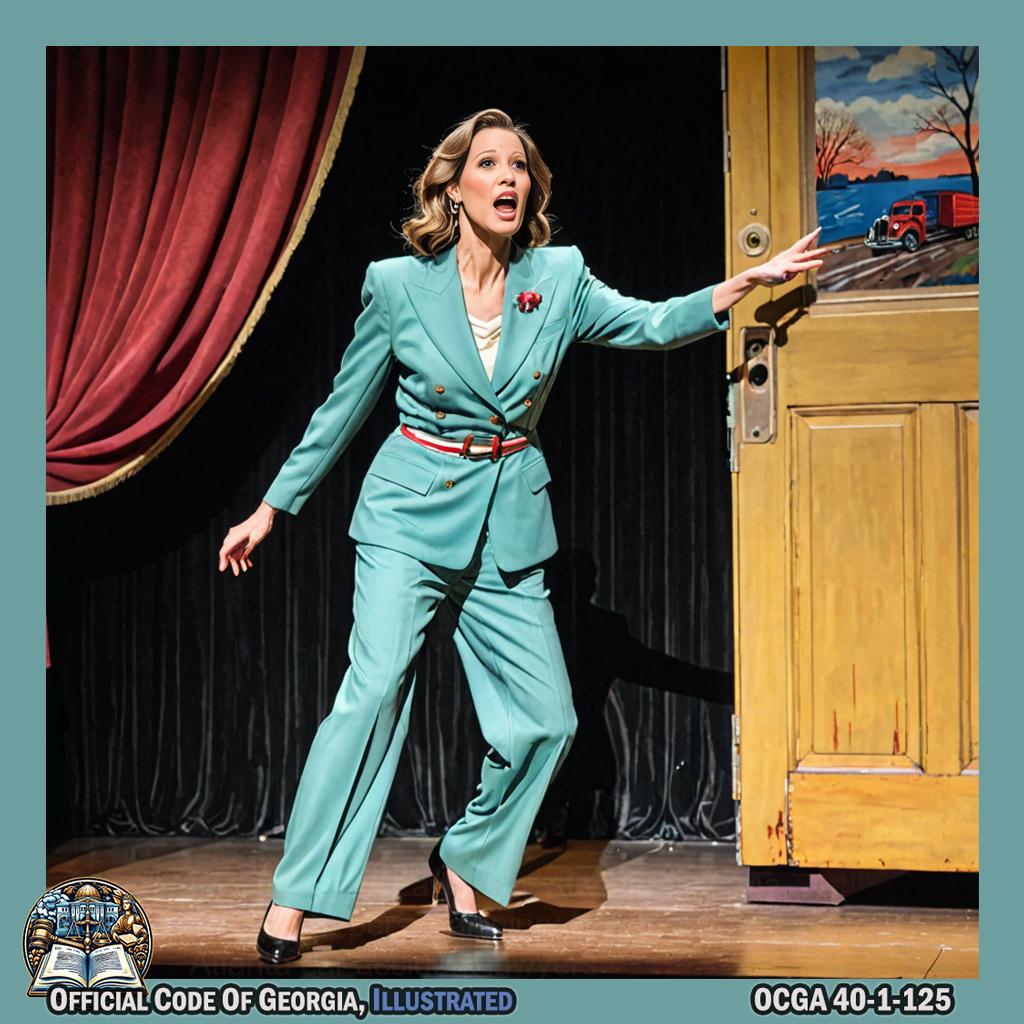
KaDee Strickland, dressed in a vintage 1940s suit, strides confidently across the stage of the Hawkinsville Opera House with an exaggerated march while miming steering a large vehicle. She then abruptly stops and performs an exaggerated slump to indicate suspension, followed by pantomiming knocking on multiple doors (administrative remedies) only to shake her head in disappointment each time. Finally, she steps up to a grand imaginary podium and mimics passionate oration, seeking 'judicial review,' all against an abstract backdrop reminiscent of Stanley Tomshinsky's bold brush strokes and vibrant colors. -@KaDeeStrick
40-1-126.Carriers engaged in interstate and intrastate commerce.¶
In circumstances where a motor carrier is engaged in both interstate and intrastate commerce, it shall nevertheless be subject to all the provisions of this part so far as it separately relates to commerce carried on exclusively in this state. It is not intended that the department shall have the power of regulating the interstate commerce of such motor carrier, except to the extent expressly authorized by this part as to such commerce. The provisions of this part do not apply to purely interstate commerce nor to carriers exclusively engaged in interstate commerce. When a motor carrier is engaged in both intrastate and interstate commerce, it shall be subject to all the provisions of this part so far as they separately relate to commerce carried on in this state.
40-1-127.Actions for recovery of overcharges; rates, charges, and claims for loss or damage.¶
-
All actions at law against motor carriers operating in this state, which actions seek to recover overcharges accruing on intrastate shipments, shall be initiated within a period of three years after the time the cause of action accrues, and not thereafter, provided that, if a claim for the overcharge is presented in writing to the carrier within the three-year period of limitation, the period shall be extended to include six months from the time notice in writing is given by the carrier to the claimant of disallowance of the claim or any part thereof.

Television host Ty Pennington, in the style of Julian Stanczak's art piece, mimics driving a truck while holding a piece of paper, then passes it to someone and displays disappointment when they pretend to reject it. -@typennington -
A motor carrier of property may, upon notice to the commissioner of public safety, elect to be subject to the following requirements regarding rates, charges, and claims for loss or damage:
- A motor carrier of property shall provide to the shipper, upon request of the shipper, a written or electronic copy of the rate, classification, rules, and practices upon which any rate agreed to between the shipper and carrier may have been based. When the applicability or reasonableness of the rates and related provisions billed by a carrier is challenged by the person paying the freight charges, the commissioner of public safety shall determine whether such rates and provisions are reasonable or applicable based on the record before it. In cases where a carrier other than a carrier providing transportation of household goods seeks to collect charges in addition to those billed and collected which are contested by the payor, the carrier may request that the commissioner of public safety determine whether any additional charges over those billed and collected must be paid. A carrier must issue any bill for charges in addition to those originally billed within 180 days of the original bill in order to have the right to collect such charges;
-
If a shipper seeks to contest the charges originally billed by a motor carrier of property, the shipper may request that the commissioner of public safety determine whether the charges originally billed must be paid. A shipper must contest the original bill within 180 days in order to have the right to contest such charges; and
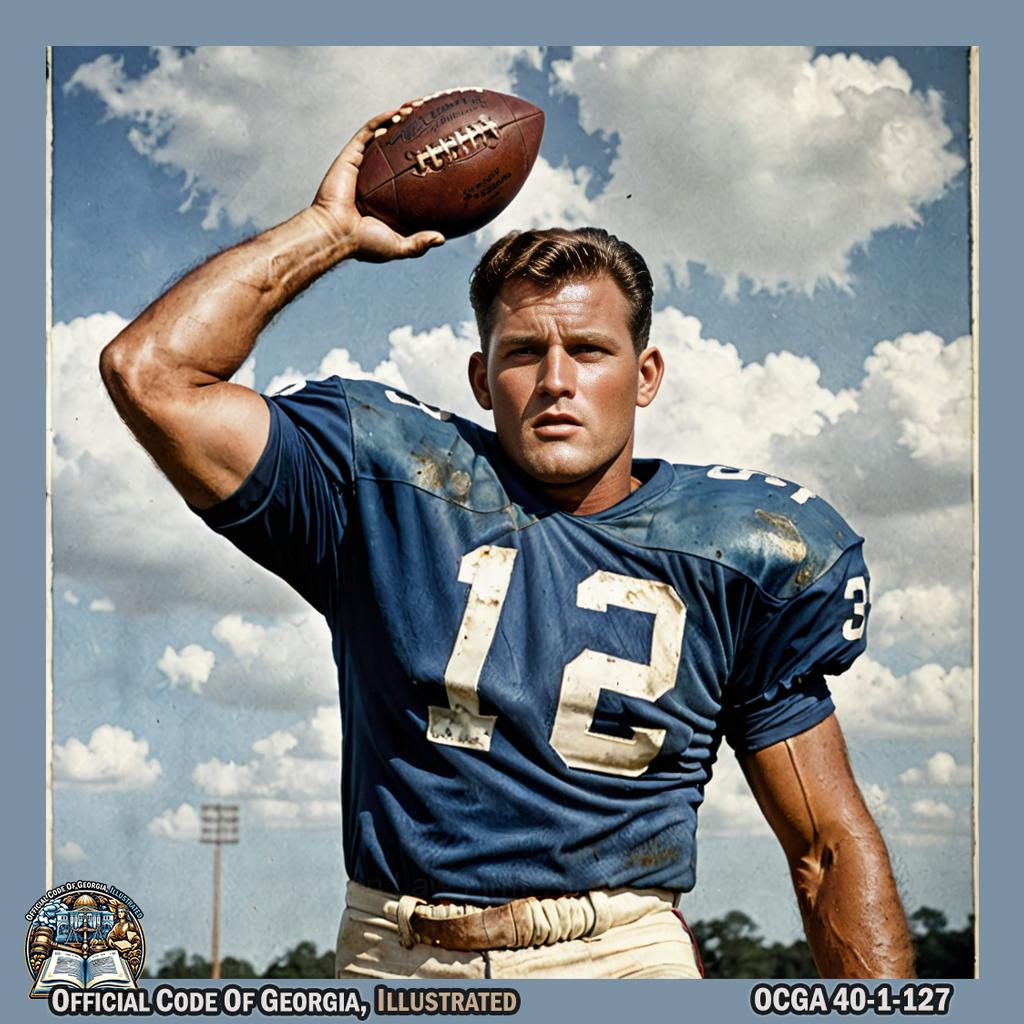
Buck Belue, dressed in a classic football uniform, stands with one arm raised as if he's tossing a football. His expression is intense and focused, capturing the determination of a player on the field. The backdrop is a beautifully staged set reminiscent of Irving Penn's style, featuring vintage props and dramatic lighting to create an art piece that brings the sentence to life. -@buckbelue8 -
Claims for loss of or damage to property for which any motor carrier of property may be liable must be filed within nine months after the delivery of the property, except that claims for failure to make delivery must be filed within nine months after a reasonable time for delivery has elapsed.
-
The commissioner of public safety shall adopt rules regarding rates, charges, and claims for loss or damage applicable to carriers of household goods.
40-1-128.Accepting or receiving rebates or drawbacks; prima-facie evidence of intentional violation; burden of claiming exception.¶
- Any officer, agent, or employee of any corporation, and any other person, who knowingly accepts or receives any rebate or drawback from the rates, fares, or charges established or approved by the department for motor carriers of passengers or household goods, or who procures, aids, or abets therein, or who uses or accepts from such motor carrier any free pass or free transportation not authorized or permitted by law or by the orders, rules, or regulations of the department, or who procures, aids, or abets therein, shall be guilty of a misdemeanor.
-
The possession of goods, wares, or merchandise loaded on a motor vehicle consigned to any person, firm, or corporation, being transported or having been transported over the public highways in this state, without the authority of a permit or certificate for so transporting having been issued by the department under this article, shall be prima-facie evidence that such transportation of such goods, wares, or merchandise was an intentional violation of the law regulating the transportation of persons and property over the public highways in this state.
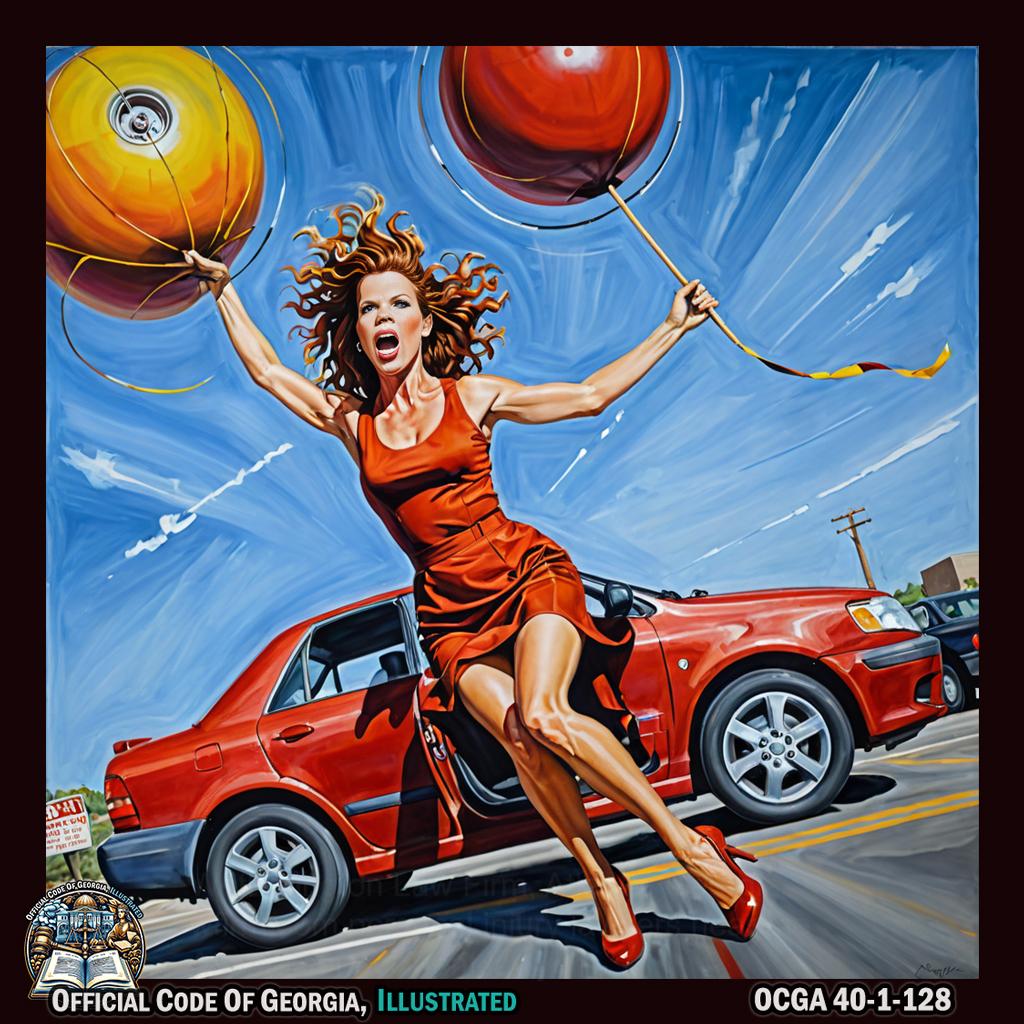
Robyn Lively gracefully mimics driving a motor vehicle with exaggerated movements, as if struggling to control the wheel while juggling an array of merchandise and wares. Her expressive gestures convey the tension and chaos of an unauthorized transportation scenario, evoking a dramatic art piece from the Surrealist movement. -@RobynLively -
Any person claiming the benefit of any exception made in this article shall have the burden of proving that he or she falls within the exception.

Norman Blake confidently steps forward, holding a guitar in one hand and gesturing with the other as he enacts the burden of proof through an expressive and dramatic performance, set against the backdrop of a lush landscape painted in Ray Strong's distinctive style.
40-1-129.Fines for violating certificate requirement; advertising services without certificate prohibited.¶
- Whenever the department, after a hearing conducted in accordance with the provisions of Code Section 40-1-56, finds that any person, firm, or corporation is operating as a household goods carrier for hire without a valid certificate issued by the department or is holding itself out as such a carrier without such a certificate in violation of this part, the department may impose a fine of not more than $5,000.00 for each violation. The department may assess the person, firm, or corporation an amount sufficient to cover the reasonable expense of investigation incurred by the department. The department may also assess interest at the rate specified in Code Section 40-1-56 on any fine or assessment imposed, to commence on the day the fine or assessment becomes delinquent. All fines, assessments, and interest collected by the department shall be paid into the general fund of the state treasury. Any party aggrieved by a decision of the department under this subsection may seek judicial review as provided in Code Section 40-1-56.
- Any person, firm, or corporation who knowingly and willfully issues, publishes, or affixes or causes or permits the issuance, publishing, or affixing of any oral or written advertisement, broadcast, or other holding out to the public, or any portion thereof, that the person, firm, or corporation is in operation as a household goods carrier for hire without having a valid certificate issued by the department is guilty of a misdemeanor. Any fine or assessment imposed by the department pursuant to the provisions of subsection (a) of this Code section shall not bar criminal prosecution pursuant to the provisions of this subsection.

A person, resembling basketball player Elijah Bryant, solemnly affixes a large certificate to the wall of an elegant living room filled with opulent furniture and decor, while a dramatic painting by Rhea Carmi looms in the background. -@Elijah_Bryant3
40-1-130.Inclusion of motor carrier authorization number in advertising.¶
In any advertisement for a motor carrier, whether by print, radio, television, other broadcast, or electronic media including but not limited to Internet advertising and any listing or sites on any website, the motor carrier shall include the motor carrier authorization number issued to it by the Department of Public Safety. The requirements of this Code section shall not apply to nonconsensual towing motor carriers providing services pursuant to Code Section 44-1-13. The department shall be required to issue a motor carrier authorization number to each registered motor carrier. Whenever the department, after a hearing conducted in accordance with the provisions of Code Section 40-1-56, finds that any person is advertising in violation of this Code section, the department may impose a fine of not more than $500.00 for an initial violation and not more than $15,000.00 for a second or subsequent violation.

PART 3 Georgia Limousine Carriers¶
-
40-1-150. Short title.

Actor Sonny Landham holds up a trophy with a giant smile in the style of Ronit Baranga's art piece. -
40-1-151. Definitions.

Architect Philip T. Shutze, born in Columbus, is seen at the Computer Museum of America in Roswell, Georgia, engaging with a vast collection of rare and vintage supercomputers by opening an imaginary large book, pointing to a word, scratching his head in confusion before having a lightbulb moment and excitedly jumping up with a finger raised as if he's just understood the definition. -
40-1-152. Operation in accordance with provisions; certificate for limousine carrier required.
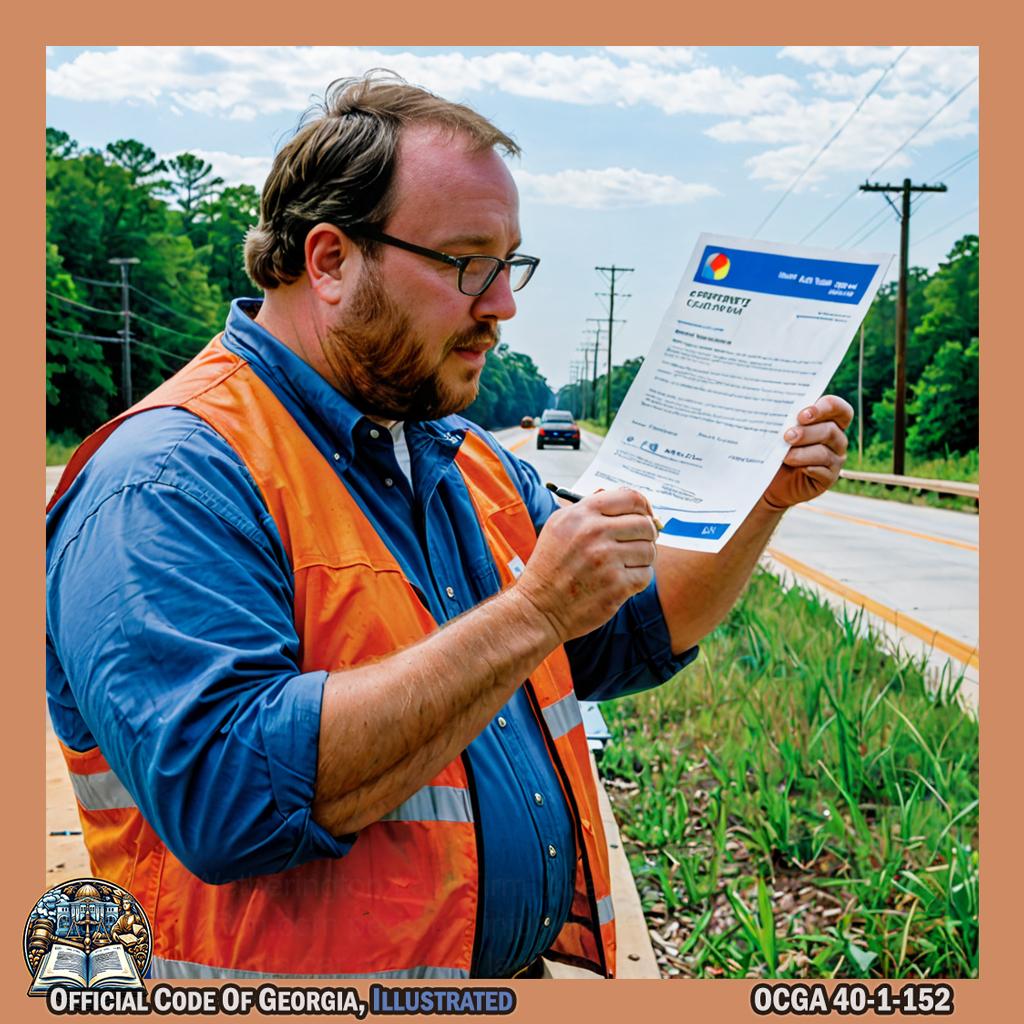
Jonathan Broxton examines a certificate while making driving motions with his hands along the Atlanta Beltline in Georgia. -
40-1-153. Application form for limousine carriers; issuance to qualified applicants.
-
40-1-154. Compliance with Code Section 40-1-8.

Actor Sunny Suljic, at Elliott Street Deli & Pub in Atlanta, Georgia, dramatically pretends to be a superhero by using his arms to form the shape of the letter "C" and then making a motion as if locking it in place with an imaginary key. -@sunnysuljic - 40-1-156. Grounds for cancellation, revocation, or suspension of limousine carrier certificate.
-
40-1-157. Validity of certificates.
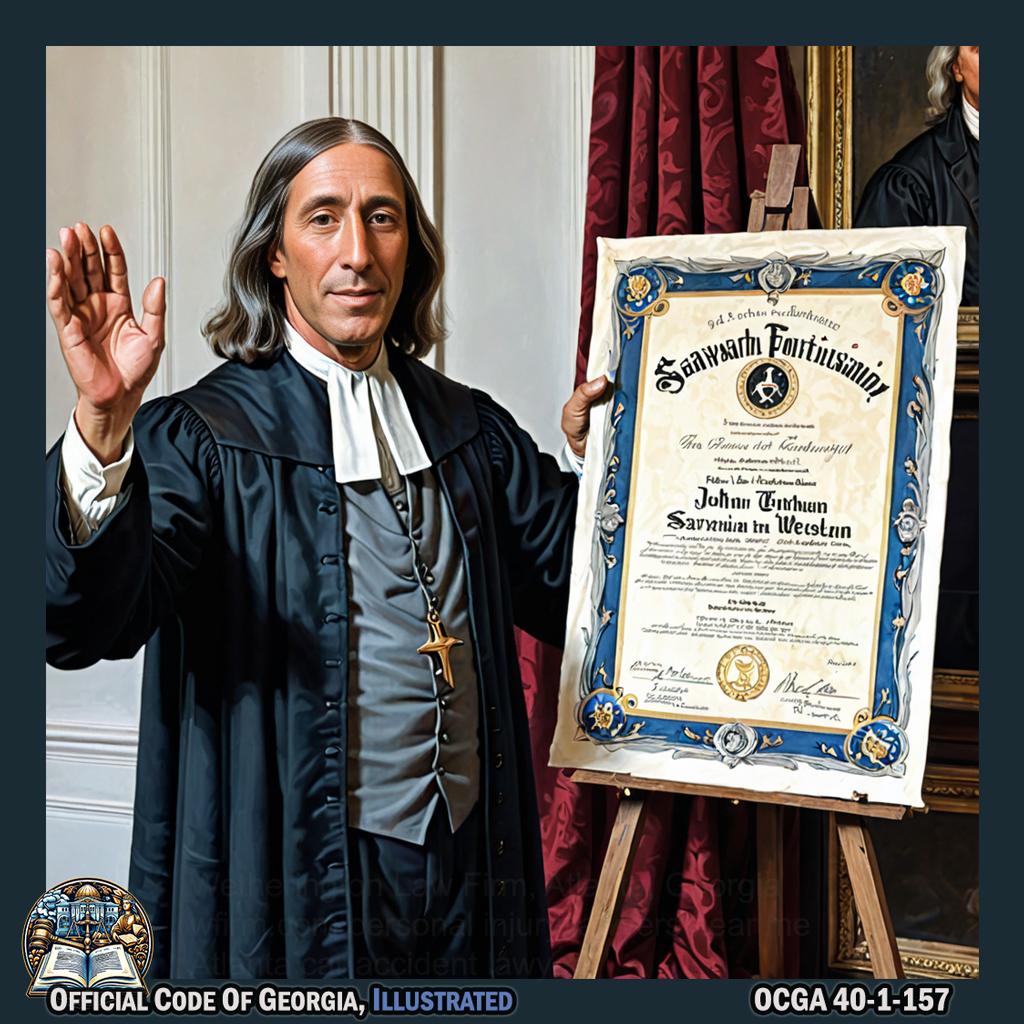
In the style of Ben Fortunado Marcune, Savannah theologian John Wesley, born in the United Kingdom, pretends to hold up and examine a large, fancy certificate with exaggerated curiosity and approval. -
40-1-158. For-hire license endorsement or private background check certification required.
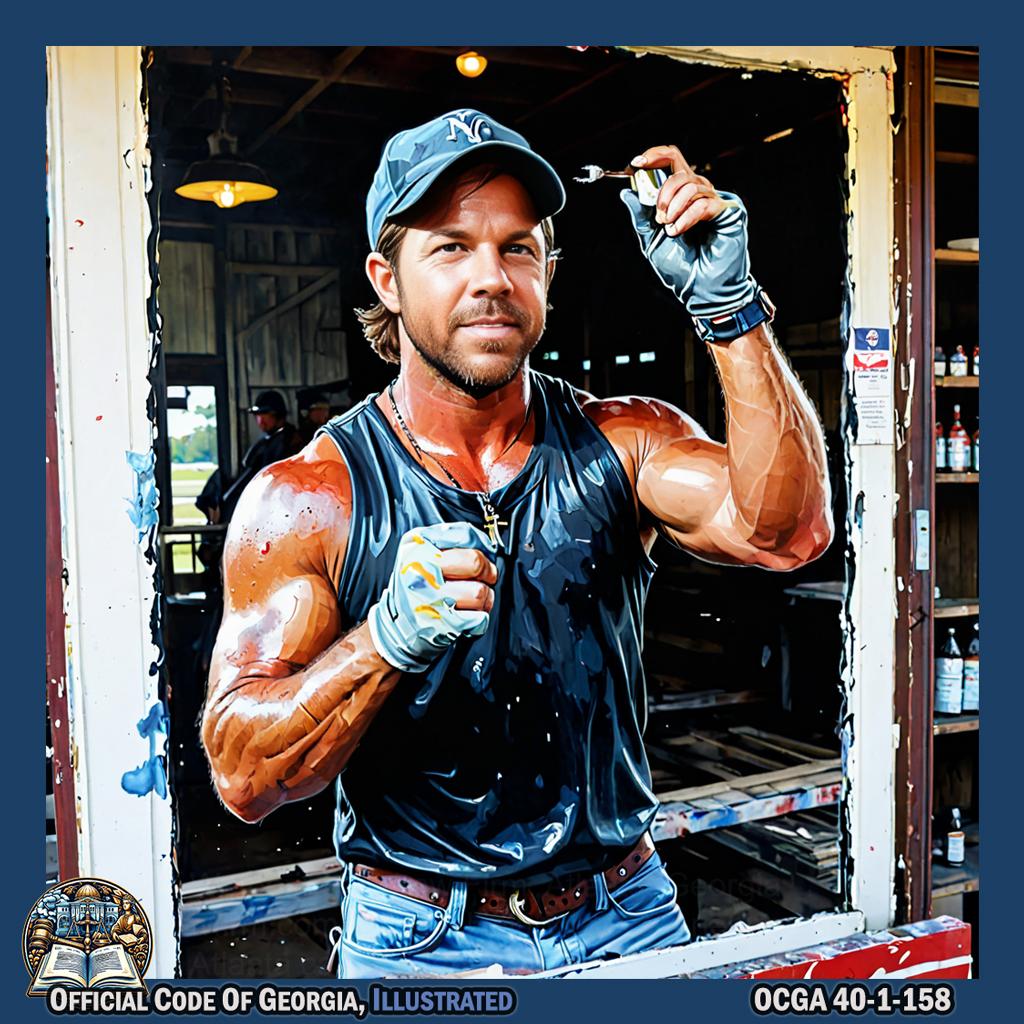
Kip Moore, in the rich Georgia location of Waycross, pretends to hold a large license with one hand while making a stamping motion with the other hand. -@KipMooreMusic - 40-1-160. Transportation of persons under age 21 drinking alcohol.
- 40-1-161. Revocation, alteration, or amendment of limousine certificate.
- 40-1-162. State regulates limousine carriers; preemption; limousine carrier doing business at a county or municipal airport.
- 40-1-163. Rates and charges.
-
40-1-164. Notice and opportunity to be heard by carriers.

Televangelist Creflo Dollar stands in the rich scene of Hapeville Worry Rock, Georgia, pretending to hold a microphone and raising his hand to get the attention of imaginary carriers passing by. Then he makes a grand gesture as if speaking into the microphone, tapping into the decades of human anxiety absorbed by this hidden stone. -@Creflo_Dollar -
40-1-165. Motor carrier authorization number of limousine carriers included in advertisement.
-
40-1-166. Commercial indemnity and liability insurance.
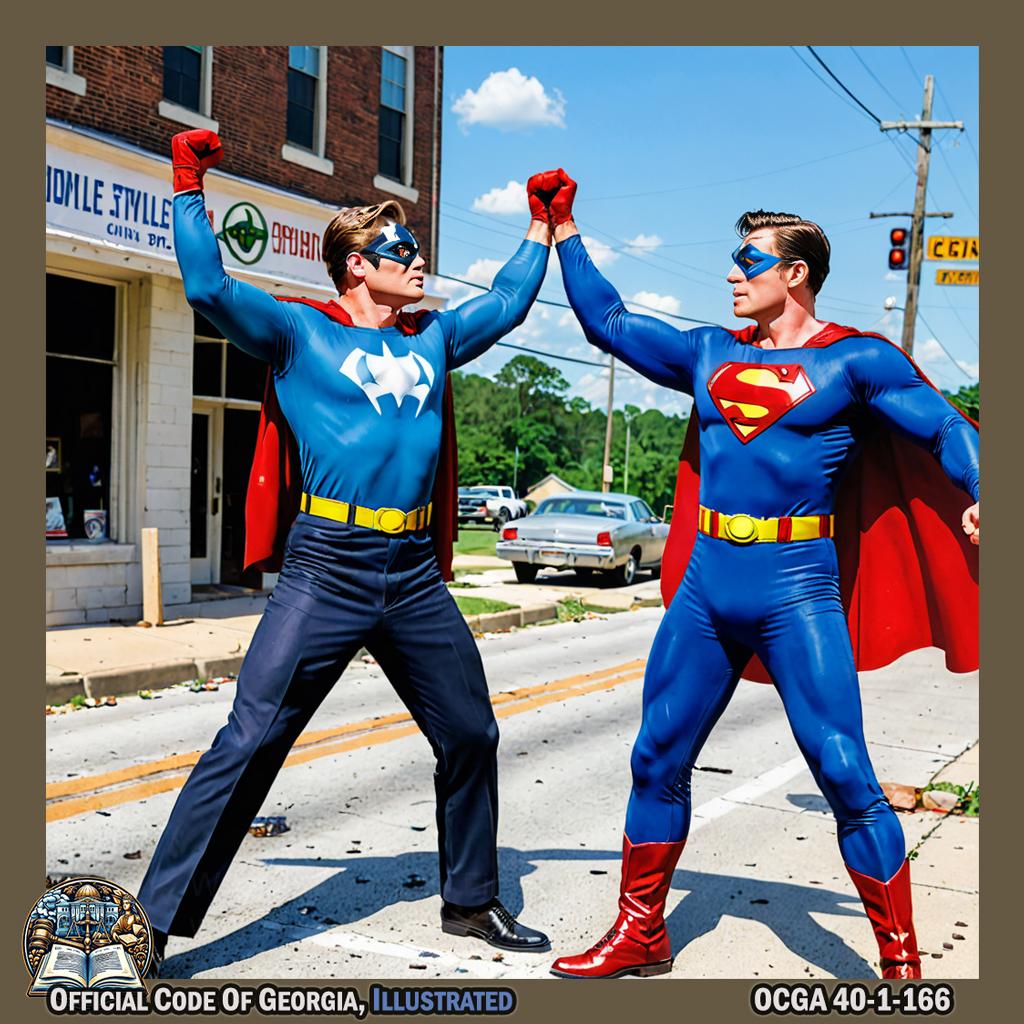
Matt and Mike Chapman, animators and voice actors born in Indiana, perform the action of pretending to be superheroes protecting a city from falling objects by holding up an invisible force field with their arms and body in the rich scene at Thomasville, Georgia. -@StrongBadActual -
40-1-167. Required information on license plates of limousines.
-
40-1-168. Local taxation of limousine carriers prohibited.

Lil Jon, the DJ, rapper, and record producer, performs in a lavish scene in Moultrie, Georgia by pretending to hold a big sign that says "No taxes for limos!" and then dramatically tearing up the sign. -@LilJon - 40-1-170. Application to every vehicle controlled by limousine carrier.
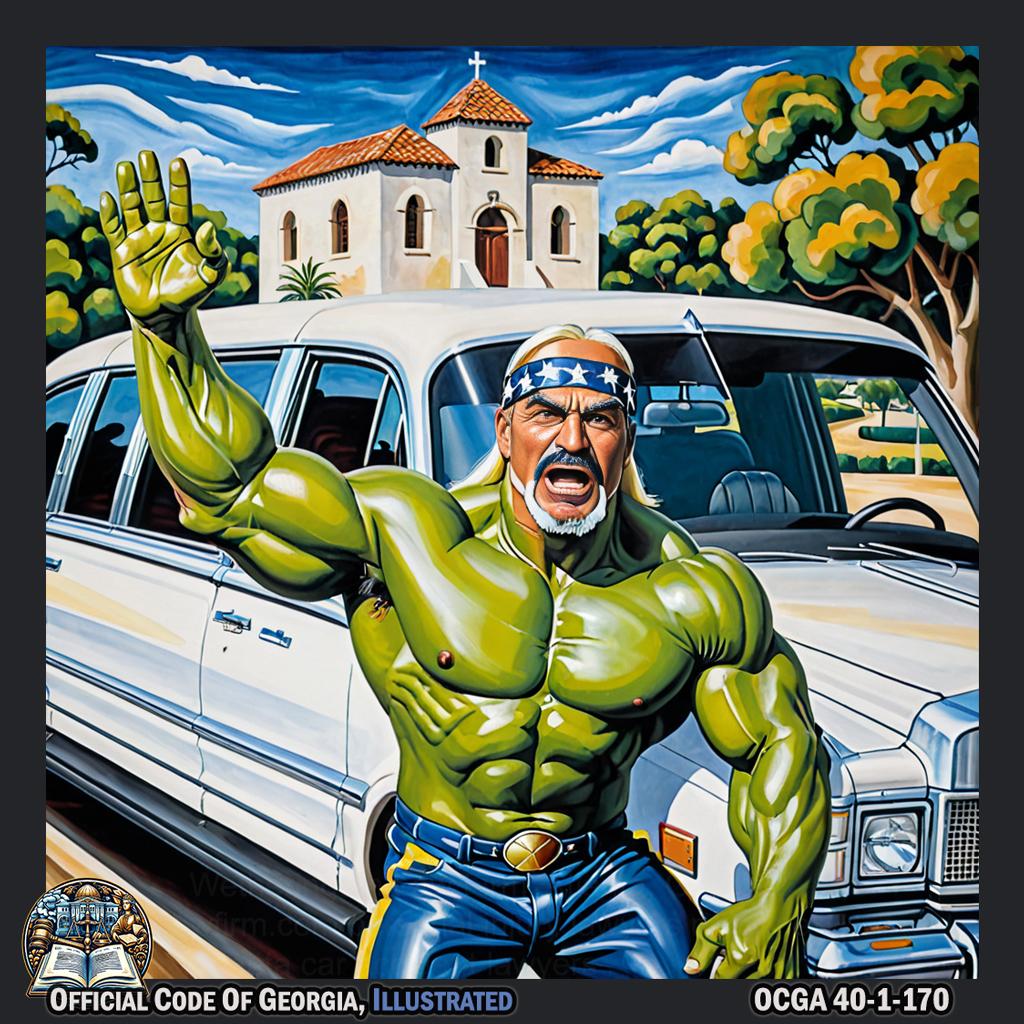
Wrestler and actor Hulk Hogan pretends to drive a limousine and waves to imaginary vehicles passing by in the rich scene at Mission San Luis, Georgia. -@HulkHogan
40-1-150.Short title.¶
This part shall be known and may be cited as the “Georgia Limousine Carrier Act.”
40-1-151.Definitions.¶
As used in this part, the term:

-
“Certificate” or “limousine carrier certificate” means a certificate issued by the department for the operation of limousines or limousine services under this part and such certificates issued by the Public Service Commission on or before June 30, 2012.
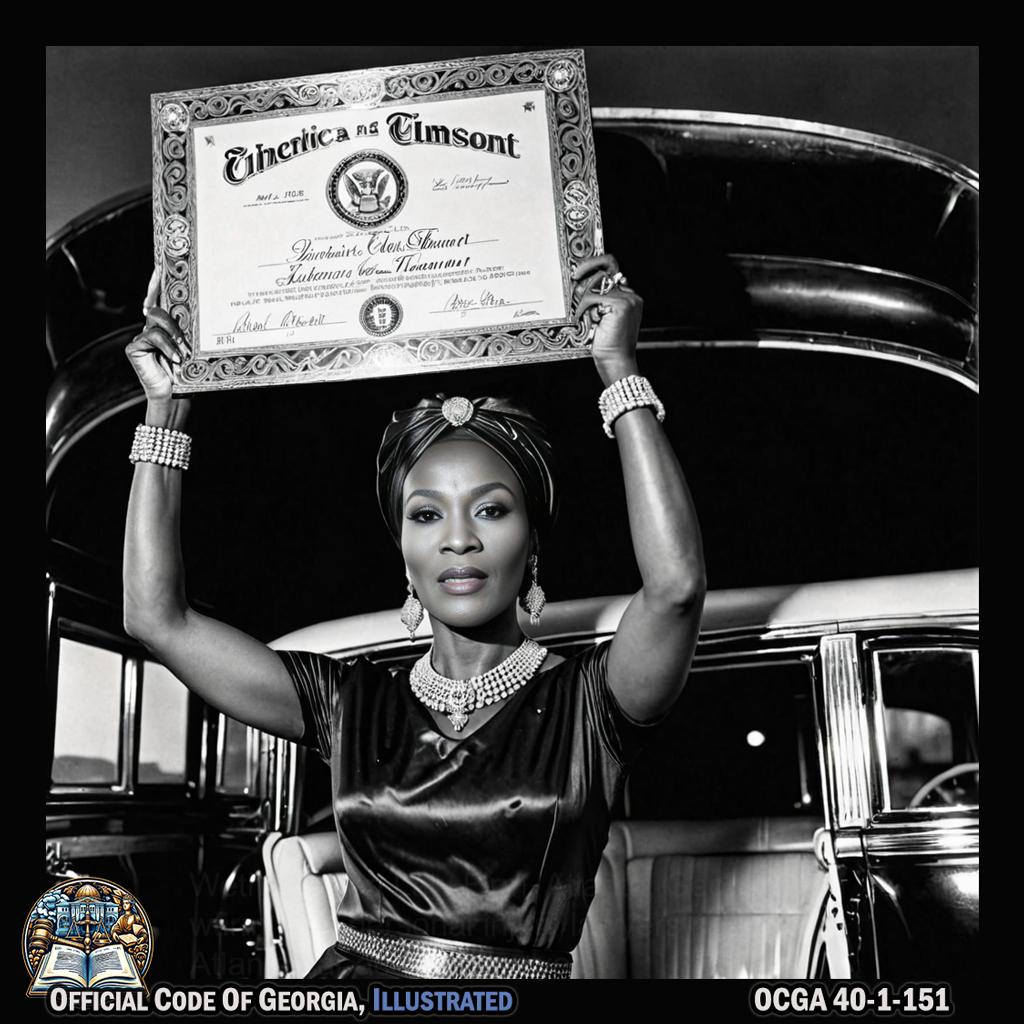
India.Arie gracefully raises a large, ornate certificate above her head as she steps into a vintage limousine, embodying the elegance and prestige of the transportation service. The scene is captured in black and white by Berenice Abbott, with dramatic lighting emphasizing the timeless sophistication of the moment. -@indiaarie -
“Chauffeur” means any person with a Georgia state driver’s license who meets the qualifications as prescribed in this part and who is authorized by the commissioner of driver services to drive a motor vehicle of a limousine carrier as provided in paragraph (5) of this Code section.

Joyce Grable elegantly extends her arm to receive a document from the commissioner of driver services, symbolizing her authorization to drive a limousine carrier in Georgia. The sun casts a warm glow on her profile as she stands beside the sleek vehicle, capturing the moment in Steve McCurry's distinctive style. -
“Department” means the Department of Public Safety.
-
“Limousine” means any motor vehicle that meets the manufacturer’s specifications for a luxury limousine with a designed seating capacity for no more than ten passengers and with a minimum of five seats located behind the operator of the vehicle, and which does not have a door at the rear of the vehicle designed to allow passenger entry or exit; further, no vehicle shall be permitted to be operated both as a taxicab and a limousine.

T.I. elegantly gestures with his hands, miming the shape of a luxurious limousine while moving gracefully through a field of native grasses and reeds in East Atlanta, embodying the elegance and style of Yvonne Koolmatrie's art. -@Tip -
“Limousine carrier” means any person owning or operating a prearranged service regularly rendered to the public by furnishing transportation as a motor carrier for hire, not over fixed routes, by means of one or more unmetered:

Thomas Rhett gracefully extends his arms, embodying the role of a limousine carrier, weaving through an imaginary crowd with swirling movements reminiscent of Vincent Van Gogh's "Starry Night," set in the picturesque town of Perry. -@ThomasRhett -
Limousines;

Hamilton Bohannon, dressed in a vibrant suit, steps rhythmically alongside a sleek white limousine that glides through the lush avenues of Peachtree City, his movements echoing the smooth flow of the vehicle while onlookers painted in Zac Smith's bold colors and shapes mimic his dance from the sidewalks. -
Extended limousines;
- Sedans;
-
Extended sedans;

Asher Allen is portrayed in a cubist style, akin to Georges Braque's artwork, striking a dynamic football pose while holding an abstract representation of a sedan made from geometric shapes, against a backdrop of the vibrant marshlands and historic Victorian architecture of Brunswick. -
Sport utility vehicles;
-
Extended sport utility vehicles;

Otis Redding, painted in the bold, mechanical style of Fernand Léger, steps out of a large abstracted geometric SUV with colorful, overlapping shapes highlighting its extended structure. He is holding a basketball and preparing to shoot it into a hoop that resembles an industrial cog integrated into the Eastern Sub-Continental Divide Mural landscape, showcasing Atlanta's founding hydrology through vibrant Léger-esque pipes and waterways. -
Other vehicles with a capacity for seating and transporting no more than 15 persons for hire including the driver; or
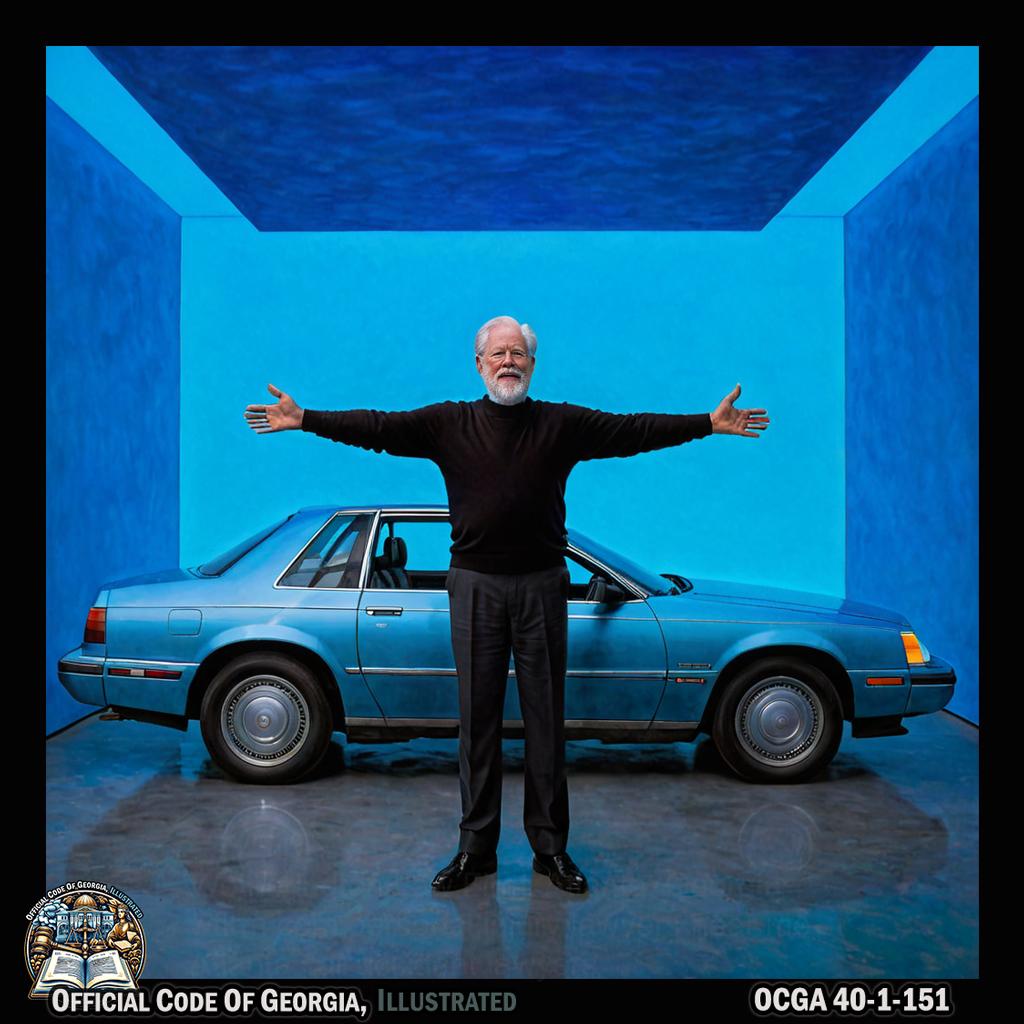
Jerome Preston Bates gracefully extends his arms and forms a space with his body, embodying the shape of a vehicle. He slowly moves through an illuminated environment, symbolizing the transport of passengers for hire in the style of James Turrell's art. -
Any combination of subparagraphs (A) through (G) of this paragraph on the basis of telephone contract or written contract. A limousine carrier shall not use per capita rates or charges.

Nicole Gale Anderson, elegantly dressed as a limousine driver, strides across Centennial Olympic Park towards an array of colorful vintage phones mounted on pedestals. She gracefully lifts each receiver, miming animated conversations, then writes in an oversized faux contract book with a flourish. Each action is overlaid with surreal digital collages of Atlanta's skyline and blooming peach trees, reminiscent of Matt Wisniewski's ethereal style. -@HeyItsNicoleA
-
-
“Person” means any individual, firm, partnership, private or public corporation, company, association, or joint-stock association, and includes any trustee, receiver, assignee, or personal representative thereof.
-
“Public highway” means every public street, road, highway, or thoroughfare of any kind in this state.

Brenda Lee stands on a public street, arms outstretched to encompass the road and surroundings, while embodying the essence of Hans Strand's art through her movements. -@BrendaLeeMusic -
“Vehicle” or “motor vehicle” means any vehicle, machine, tractor, trailer, or semitrailer propelled or drawn by mechanical power and used upon the highways in the transportation of passengers or property, or any combination thereof, determined by the commissioner.
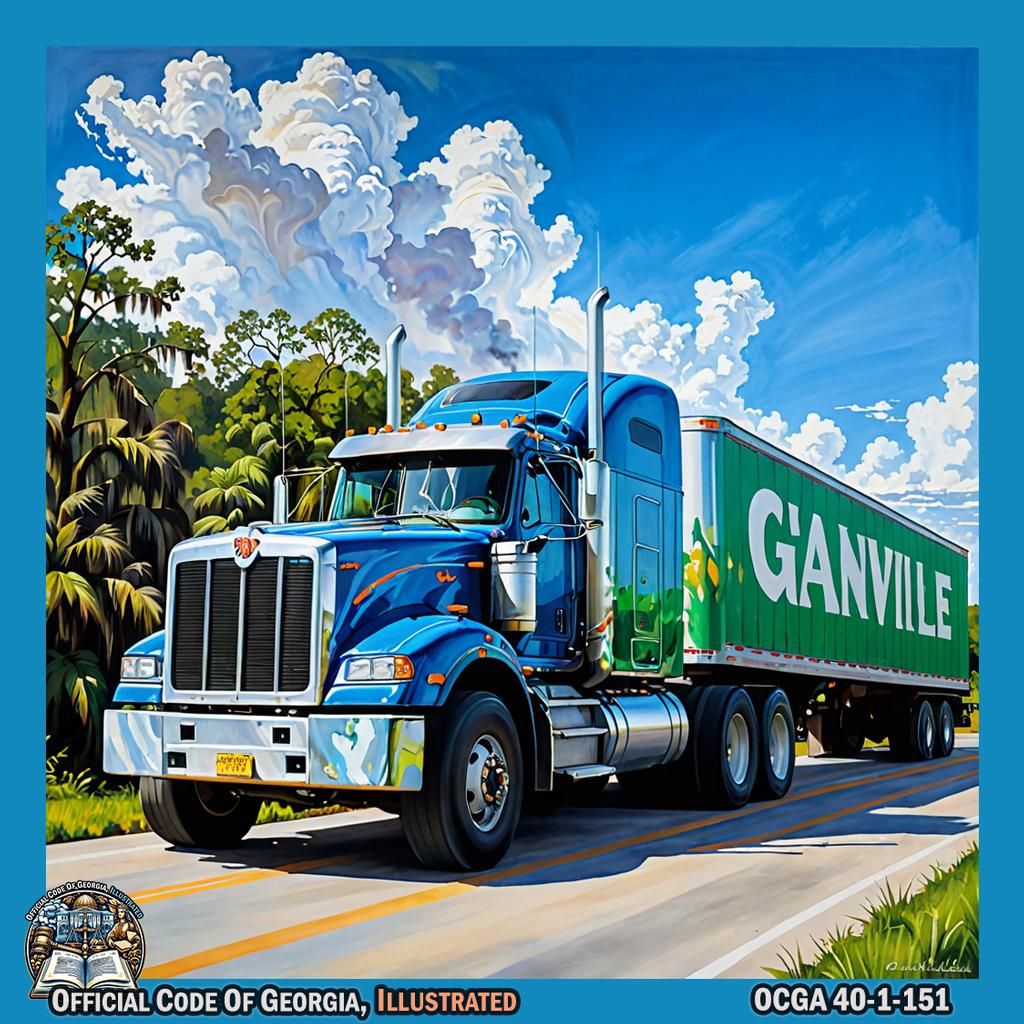
Chad Hall gracefully mimics the movement of various vehicles, embodying a tractor, a trailer, and a semitrailer with fluid and captivating movements in the style of an avant-garde performance art piece set against the backdrop of Gainesville's lush landscape. -@chadhall16
40-1-152.Operation in accordance with provisions; certificate for limousine carrier required.¶
- No limousine carrier shall operate any motor vehicle owned or operated by a limousine carrier for the transportation of passengers for compensation on any public highway in this state except in accordance with the provisions of this article.
- No person may engage in the business of a limousine carrier over any public highway in this state without first having obtained from the department a certificate to do so.
40-1-153.Application form for limousine carriers; issuance to qualified applicants.¶
-
The department shall prescribe the form of the application for a limousine carrier certificate and shall prescribe such reasonable requirements as to notice, publication, proof of service, maintenance of adequate liability insurance coverage, and information as may, in its judgment, be necessary and may establish fees as part of such certificate process.
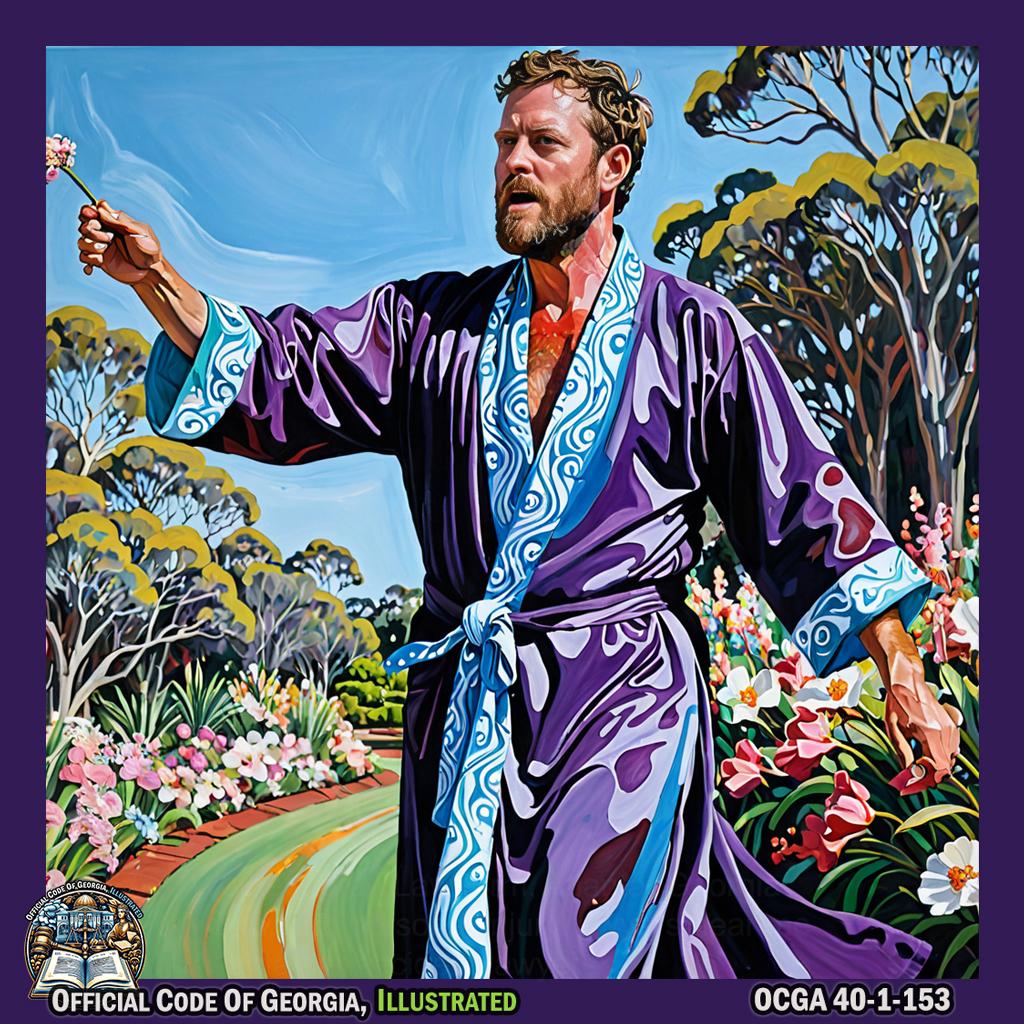
Philip Wheeler, dressed in a vibrant, flowing robe, gracefully paints the air with sweeping gestures, embodying the creation of an intricate and dynamic dance. His movements express the meticulous process of crafting a complex and harmonious limousine carrier certificate application form as he weaves through a garden adorned with cascading flowers and shimmering lights in Sandy Springs. -@Philgood50 -
A limousine carrier certificate shall be issued to any qualified applicant, provided that such applicant is a limousine carrier business domiciled in this state, authorizing the operations covered by the application if it is found that the applicant is fit, willing, and able to perform properly the service and conform to the provisions of this part and the rules and regulations of the department and has not been convicted of any felony as such violation or violations are related to the operation of a motor vehicle.

R.E.M. performs a surreal, whimsical act in the style of David Tineo, pretending to drive a colossal imaginary car with exaggerated hand gestures and facial expressions while following all the "rules" and regulations. -@remhq
40-1-154.Compliance with Code Section 40-1-8.¶
Limousine carriers shall comply with the applicable provisions of Code Section 40-1-8.
40-1-155.Transferring or encumbering certificates.¶
No limousine carrier certificate issued under this part may be leased, assigned, or otherwise transferred or encumbered unless authorized by the department.
40-1-156.Grounds for cancellation, revocation, or suspension of limousine carrier certificate.¶
-
The department may cancel, revoke, or suspend any limousine carrier certificate issued under this part on any of the following grounds:

Cee Lo Green dramatically raises his arms, then tears up a certificate while wearing a dramatic expression, as captured in an artistic and captivating photograph by Annie Leibovitz, set against the lush backdrop of Smyrna. -@CeeLoGreen -
The violation of any of the provisions of this part;
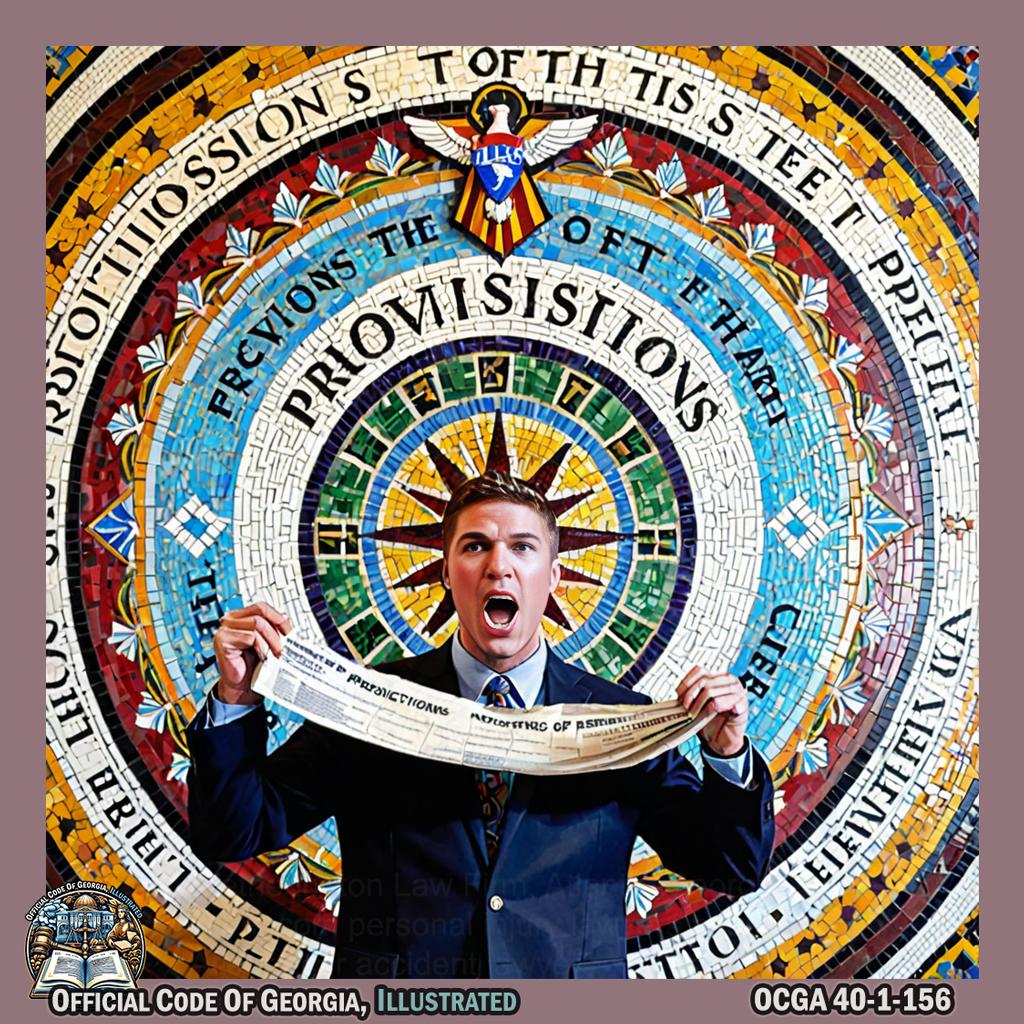
Austin Meadows dramatically tearing a piece of paper with the words "provisions of this part" written on it, while standing in the center of an elaborate and colorful mosaic made from various legal documents and regulations, surrounded by a group of performers symbolizing different aspects of the law. -@austin_meadows -
The violation of an order, decision, rule, regulation, or requirement established by the department;

In a rich scene in St. Marys, Berry Oakley gracefully sweeps his arm across a grand stage, embodying the violation of an order decision rule regulation or requirement established by the department with dramatic flair and artistic finesse. -
Failure of a limousine carrier to pay a fee imposed on the carrier within the time required by law or by the department;
- Failure of a limousine carrier to maintain required insurance in full force and effect; and
- Failure of a limousine carrier to operate and perform reasonable services.
-
-
After the cancellation or revocation of a certificate or during the period of its suspension, it is unlawful for a limousine carrier to conduct any operations as such a carrier.
40-1-157.Validity of certificates.¶
Limousine certificates shall be valid unless suspended, revoked, or canceled by the commissioner, or surrendered to the commissioner by the holder.

40-1-158.For-hire license endorsement or private background check certification required.¶
Pursuant to rules and regulations prescribed by the commissioner of driver services, each chauffeur employed by a limousine carrier shall secure from the Department of Driver Services a for-hire license endorsement or private background check certification pursuant to Code Section 40-5-39.
40-1-159.Application fees.¶
The commissioner shall collect the following one-time fees upon initial application of a limousine carrier pursuant to this part:
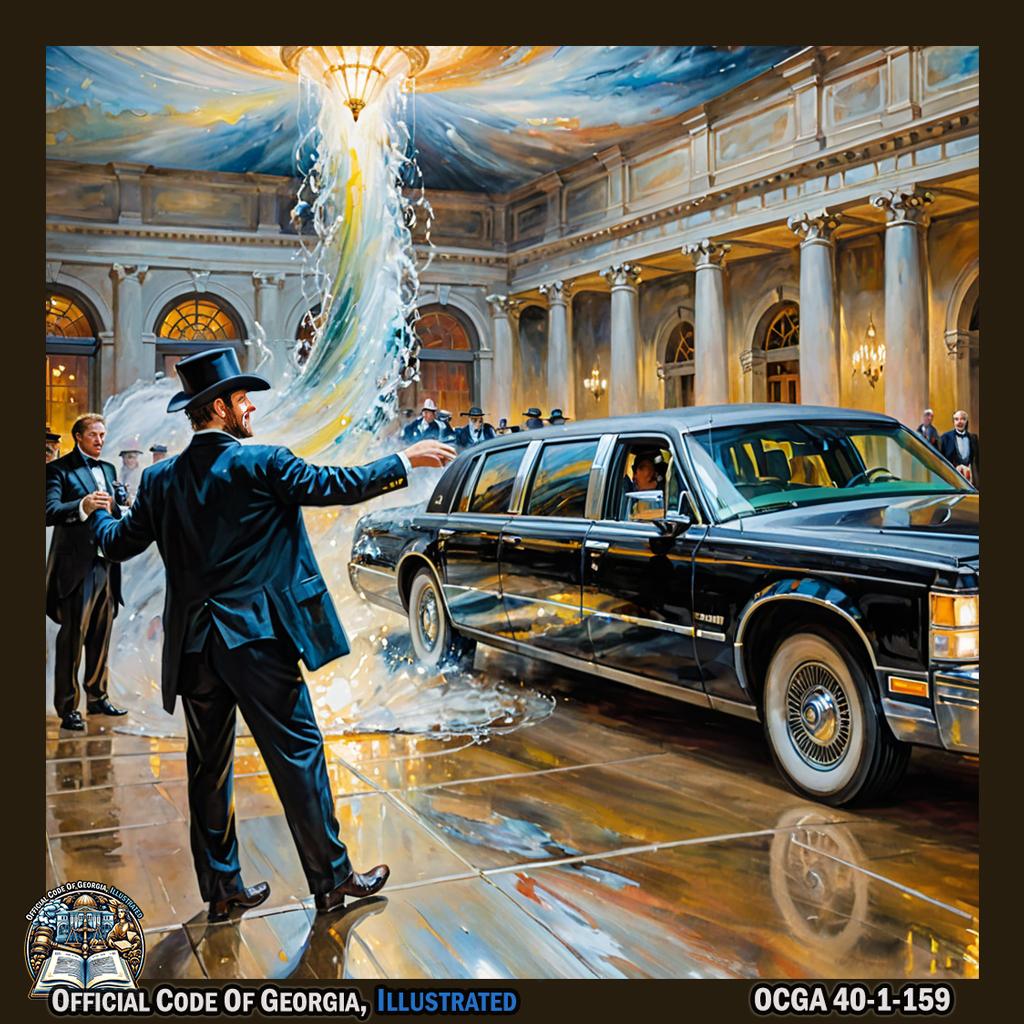
- A fee of $75.00 to accompany each application for a certificate, or amendment to an existing certificate, where the applicant owns or operates fewer than six limousines;
-
A fee of $150.00 to accompany each application for a certificate, or amendment to an existing certificate, where the applicant owns or operates six to 15 limousines;

Television journalist, Paul Rea, pretends to fill out a giant check for $___ and hands it over with a big smile in a scene reminiscent of an art piece from Cleve Gray. -
A fee of $200.00 to accompany each application for a certificate, or amendment to an existing certificate, where the applicant owns or operates more than 15 limousines; and
- A fee of $75.00 to accompany each application for transfer of a certificate.
40-1-160.Transportation of persons under age 21 drinking alcohol.¶
Any limousine carrier subject to the jurisdiction of the commissioner that transports passengers shall comply with the provisions of paragraph (1) of subsection (a) of Code Section 3-3-23 and Code Section 3-9-6, concerning consumption of alcoholic beverages. The commissioner shall provide to all such limousine carriers, at the time of registration a certificate, an informational packet emphasizing the prohibition on alcohol consumption by persons under the age of 21 while being transported by the limousine carrier.
40-1-161.Revocation, alteration, or amendment of limousine certificate.¶
The commissioner may, at any time after notice and opportunity to be heard and for reasonable cause, revoke, alter, or amend any limousine certificate issued under this part, or under prior law, if it shall be made to appear that the holder of the certificate has willfully violated or refused to observe any of the lawful and reasonable orders, rules, or regulations prescribed by the commissioner or any of the provisions of this part or any other law of this state regulating or taxing motor vehicles, or both, or if in the opinion of the commissioner the holder of the certificate is not furnishing adequate service. An administrative hearing shall be conducted in accordance with the procedures for contested cases under Chapter 13 of Title 50, the “Georgia Administrative Procedure Act,” and the provisions of Code Section 40-1-56.
40-1-162.State regulates limousine carriers; preemption; limousine carrier doing business at a county or municipal airport.¶
The State of Georgia fully occupies and preempts the entire field of regulation over limousine carriers as regulated by this part; provided, however, that the governing authority of any county or municipal airport shall be authorized to permit any limousine carrier doing business at any such airport and may establish fees as part of such permitting process; provided, further, that such fees shall not exceed the airport’s approximate cost of permitting and regulating limousine carriers; and provided, further, that such governing authorities of such airports shall accept a chauffeur’s endorsement issued by the Department of Driver Services to the driver and evidence of a certificate issued to the limousine carrier by the Department of Public Safety as adequate evidence of sufficient criminal background investigations and shall not require any fee for any further criminal background investigation. The list of licensed limousine carriers on the website of the Department of Public Safety shall be sufficient evidence that a limousine carrier has a certificate issued by the Department of Public Safety.
40-1-163.Rates and charges.¶
- Notwithstanding the powers granted to the department regarding tariffs of other motor carriers, the department is not authorized to set, adjust, or change rates or charges for transportation of passengers, property, or passengers and property by a vehicle of a type listed in Code Section 40-1-151 that is managed, operated, owned, leased, rented, or controlled by a limousine carrier.
- Any tariff issued by the department that exists as of June 30, 2007, that regulates the rates or charges for transportation of passengers, property, or passengers and property by a vehicle of a type listed in Code Section 40-1-151 that is managed, operated, owned, leased, rented, or controlled by a limousine carrier shall be void.

Jo Marie Payton gracefully twirls in a dramatic, larger-than-life gesture, embodying the essence of Tony Rosenthal's art piece, while portraying the act of declaring any existing department-issued tariff void for limousine carriers transporting passengers and property as of June.
40-1-164.Notice and opportunity to be heard by carriers.¶
Before the department shall enter any order, regulation, or requirement directed against any limousine carrier, such carrier shall first be given reasonable notice and an opportunity to be heard on the matter.
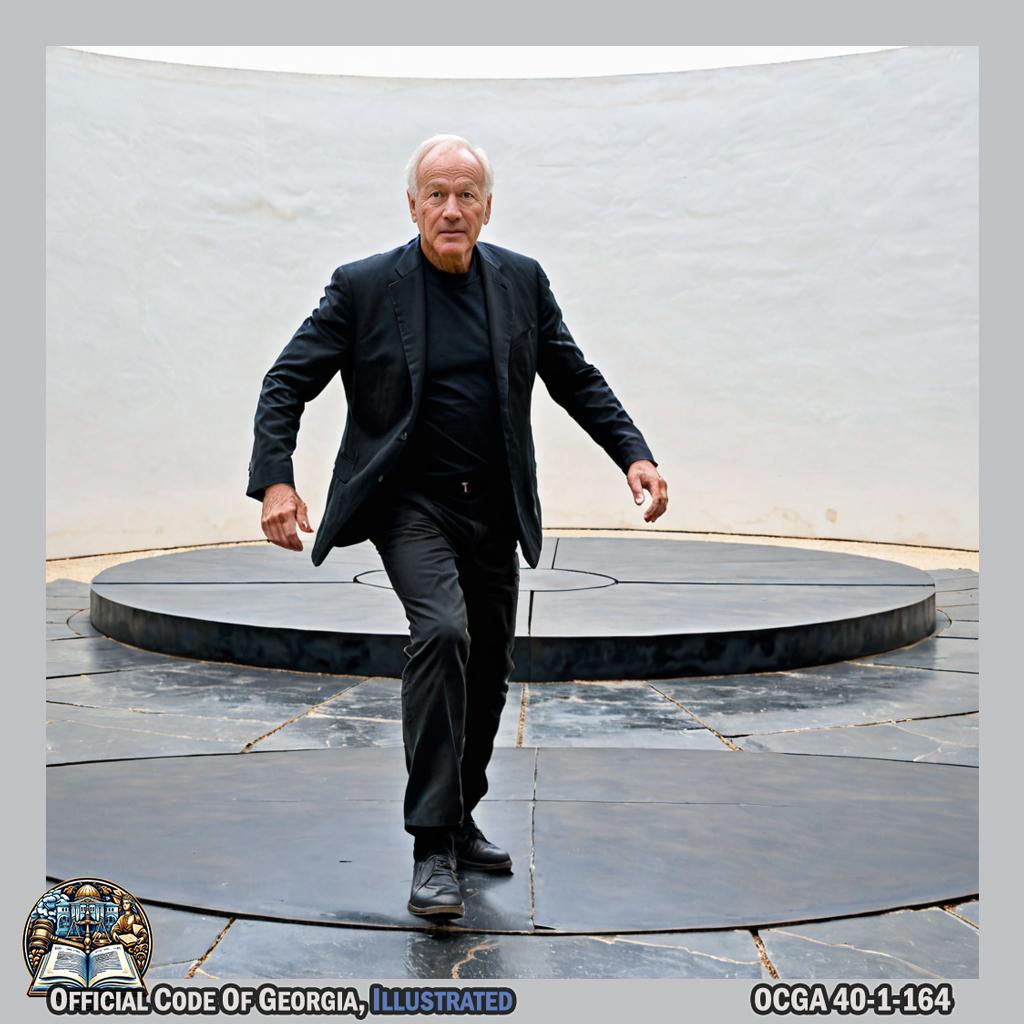
40-1-165.Motor carrier authorization number of limousine carriers included in advertisement.¶
In any advertisement for a limousine carrier, whether by print, radio, television, other broadcast, or electronic media including but not limited to Internet advertising and any listing or sites on any website, the limousine carrier shall include the motor carrier authorization number issued to it by the Department of Public Safety. The department shall be required to issue a motor carrier authorization number to each registered limousine carrier. Whenever the department, after a hearing conducted in accordance with the provisions of Code Section 40-1-56, finds that any person is advertising in violation of this Code section, the department may impose a fine of not more than $500.00 for an initial violation and not more than $15,000.00 for a second or subsequent violation.
40-1-166.Commercial indemnity and liability insurance.¶
Each limousine carrier shall obtain and maintain commercial indemnity and liability insurance with an insurance company licensed under Title 33 or through a surplus line broker licensed under Title 33, which policy shall provide for the protection of passengers and property carried and of the public against injury proximately caused by the negligence of the limousine carrier, its servants, and its agents. The minimum amount of such insurance shall be:

- For capacity of 12 passengers or less, $300,000.00 for bodily injuries to or death of all persons in any one accident with a maximum of $100,000.00 for bodily injuries to or death of one person, and $50,000.00 for loss of damage in any one accident to property of others, excluding cargo; or
- For capacity of more than 12 passengers, $500,000.00 for bodily injuries to or death of all persons in any one accident with a maximum of $100,000.00 for bodily injuries to or death of one person, and $50,000.00 for loss of damage in any one accident to property of others, excluding cargo.
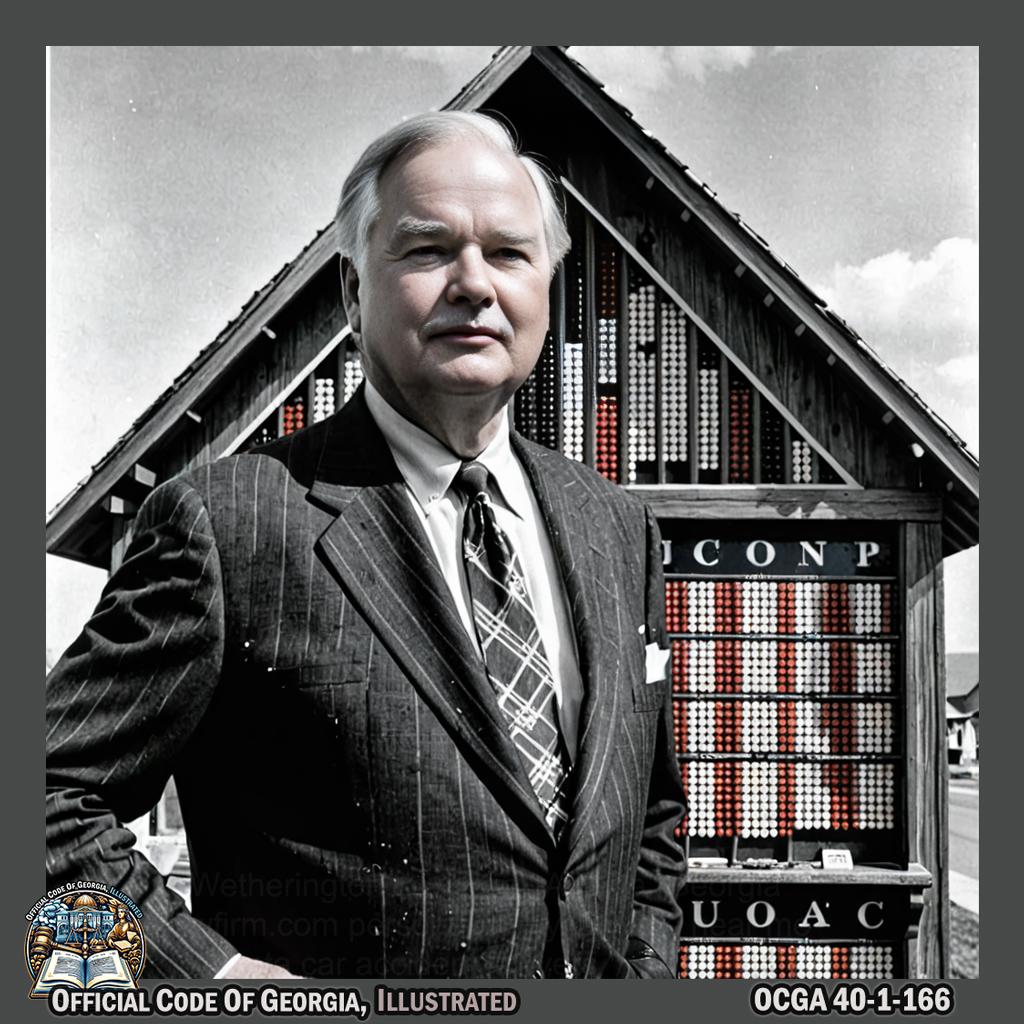
Pat Conroy, dressed as an old-time insurance salesman in a vintage suit, stands by the picturesque Christ Chapel with a large abacus. He theatrically slides beads to count passengers and then dramatically pauses, showcasing alternating red and white flags for bodily injuries and property damage—each flag swap representing increasing 'dollars' while Robert Capa-style black-and-white photographs capture this dynamic sequence from various angles, emphasizing the gravity of each calculated 'accident' cost.
40-1-167.Required information on license plates of limousines.¶
Each limousine carrier which registers any vehicle under this article shall, for each such certificated vehicle, affix to the center of the front bumper of each such certificated vehicle a standard size license plate bearing the following information:
- Limousine carrier name;
-
City and state of principal domicile;

Josh Smith standing in an elegant pose, pointing to a map of Georgia with a look of contemplation and determination on his face. -@JsmooveNBA -
Company telephone number; and
-
Motor carrier identification number if the limousine carrier is a commercial motor carrier or motor carrier authorization number issued by the department if the limousine carrier is a lightweight commercial vehicle.
The cost for such license plate shall be the sole responsibility of the limousine carrier and must be placed on each certificated vehicle prior to such vehicle being placed in service.
40-1-168.Local taxation of limousine carriers prohibited.¶
No subdivision of this state, including cities, townships, or counties, shall levy any excise, license, or occupation tax of any nature, on the right of a limousine carrier to operate equipment, or on the equipment, or on any incidents of the business of a limousine carrier.
40-1-169.Enforcement.¶
The department is authorized to enforce the provisions of this part. Additionally, the department may hear a petition by a third party asserting that a limousine carrier has violated Code Section 40-1-152 and may impose the penalties and seek the remedies set out in Code Section 40-1-56 if the department finds such a violation.

40-1-170.Application to every vehicle controlled by limousine carrier.¶
The provisions of this part and the powers granted to the department by this part to regulate limousine carriers shall apply to every vehicle of a type listed in Code Section 40-1-151 that is managed, operated, owned, leased, rented, or controlled by a limousine carrier.
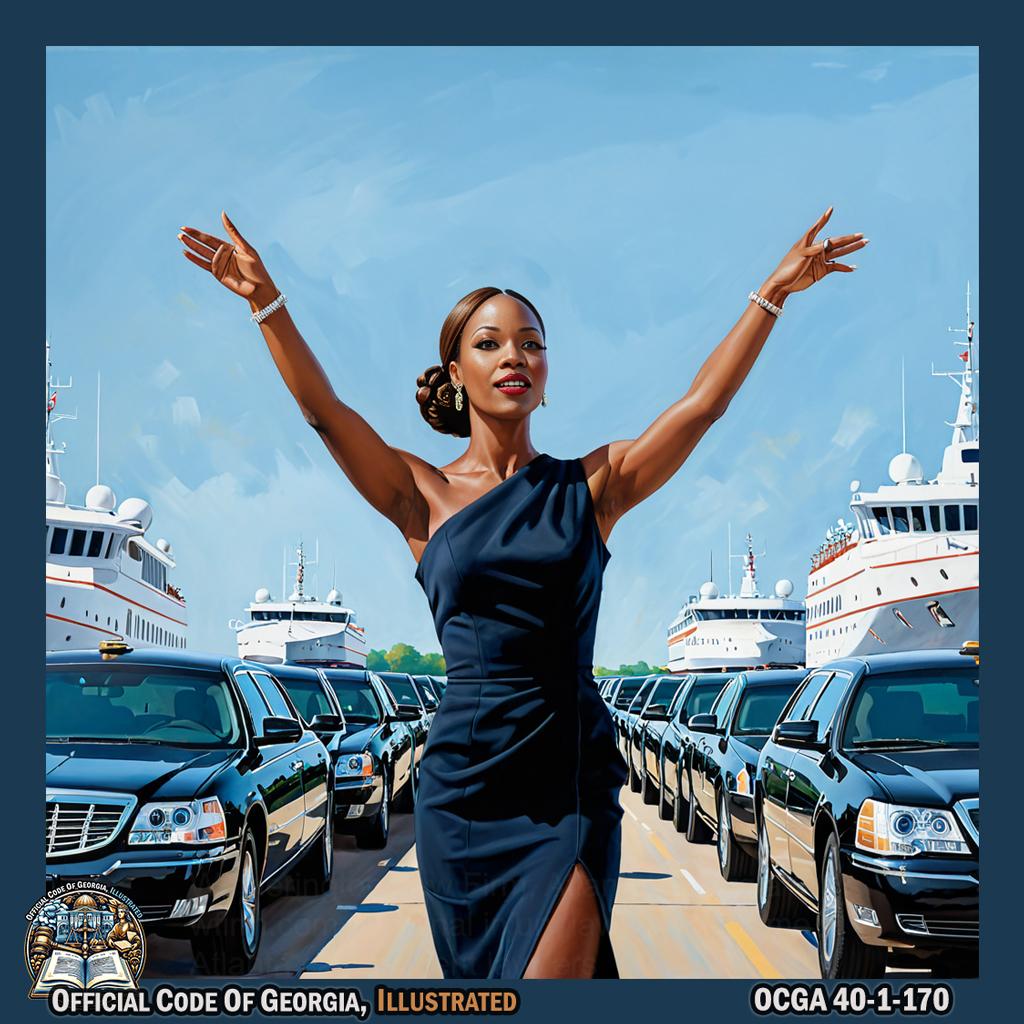
PART 4 Ride Share Network Services and Transportation Referral Services¶
-
40-1-190. Definitions.

Actress Robyn Lively, in a rich scene at the Andersonville National Historic Site in Georgia, opens an imaginary large book, points to a word, scratches her head in confusion before experiencing a lightbulb moment and excitedly jumping up with a finger raised as if she's just understood the definition. -@RobynLively - 40-1-192. Transportation referral service provider registration requirement; licensure; exemptions; additional requirements.
- 40-1-193. Ride share network service registration requirement; licensure; required list of all ride share drivers; additional requirements for ride share network service businesses and drivers; law enforcement access to digital information in smart phone of driver.
- 40-1-193.1. Registration of taxi services; requirements to operate taxi service.
-
40-1-194. Prohibition on contracting with carriers, drivers, or taxi services not properly licensed or insured; penalties for violations.
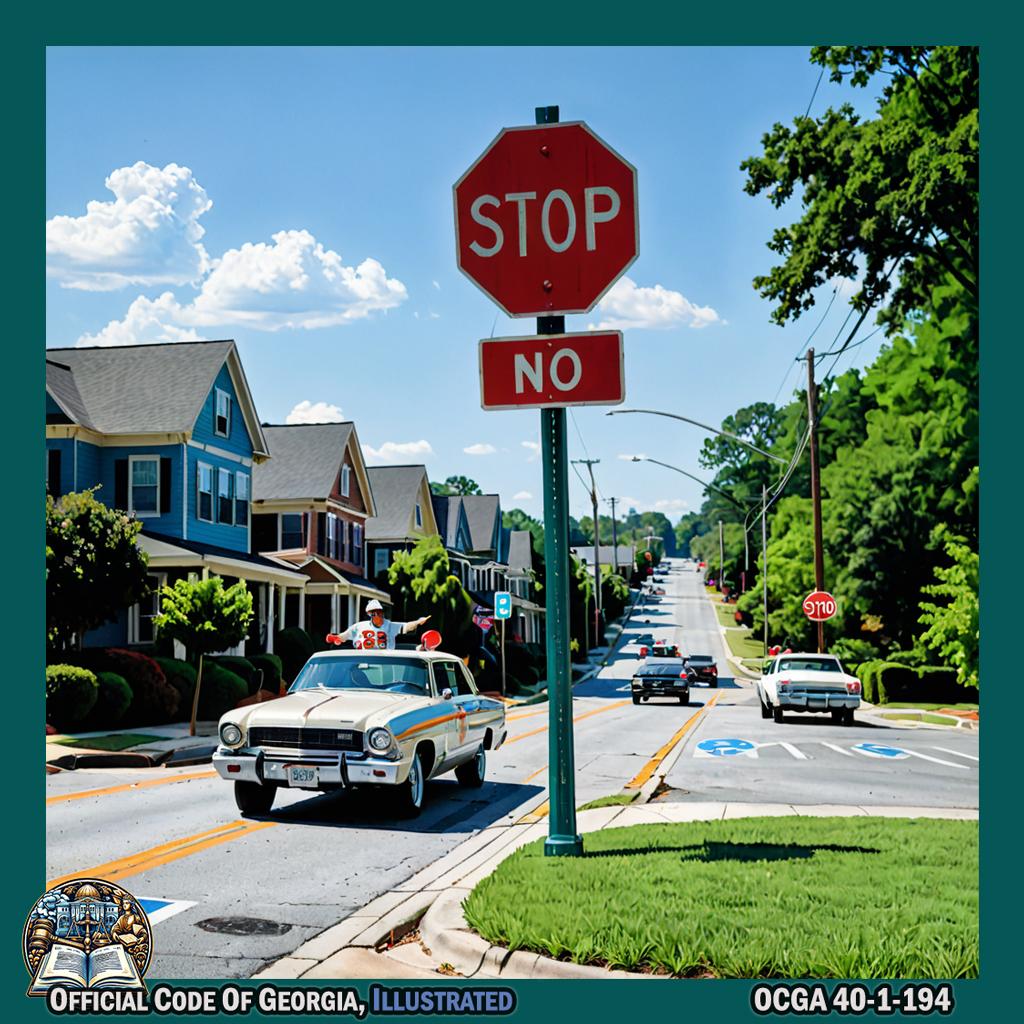
Buster Posey, in the picturesque Lakewood neighborhood of Atlanta, fiercely waves a stop sign to signal "no" to unlicensed or uninsured carriers, drivers, or taxi services. -@BusterPosey - 40-1-196. Rates charged.
-
40-1-197. Promulgation of rules and regulations.
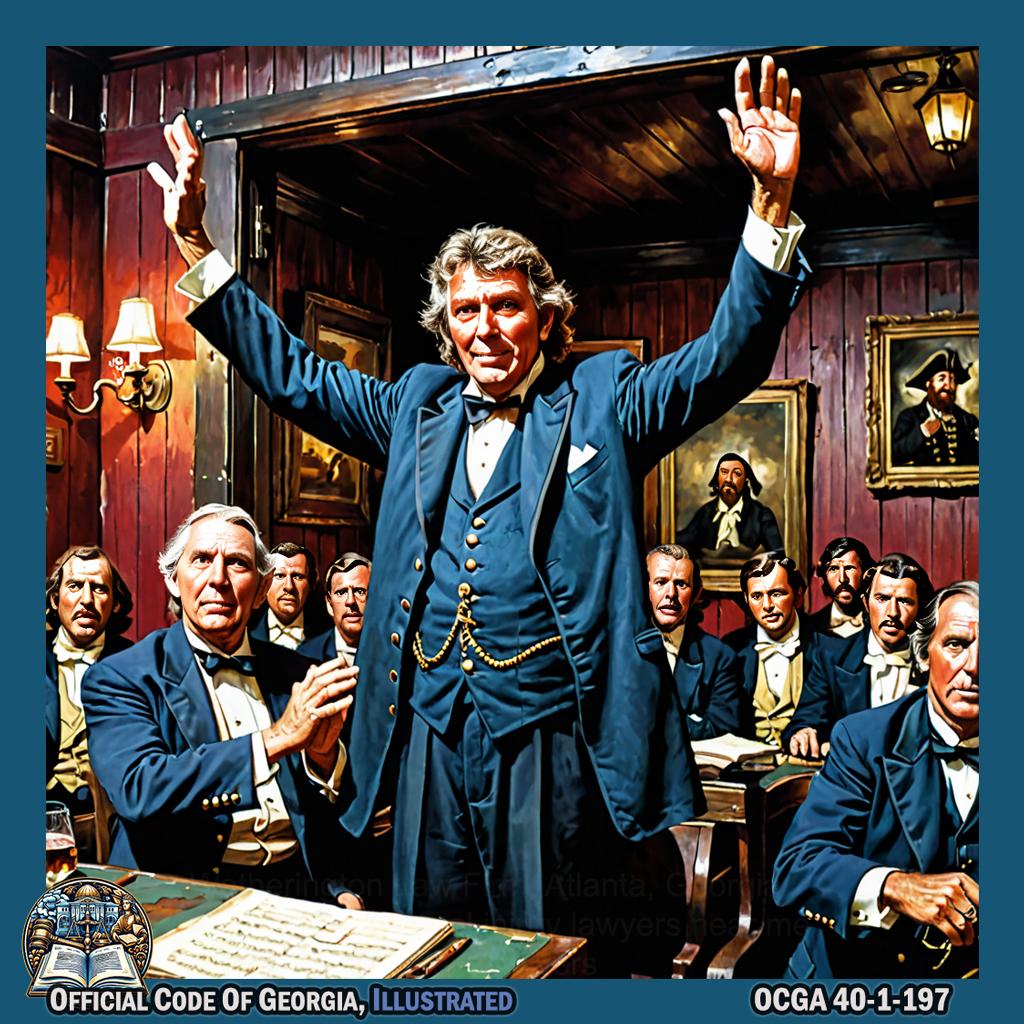
J. T. Thomas pretends to be a conductor, waving his arms and "conducting" an orchestra in the rich scene of The Pirates House, a kitschy tavern home to rare early editions of Treasure Island in Savannah, Georgia. -@TheRealJT3 -
40-1-198. Requirement to maintain current list of drivers.
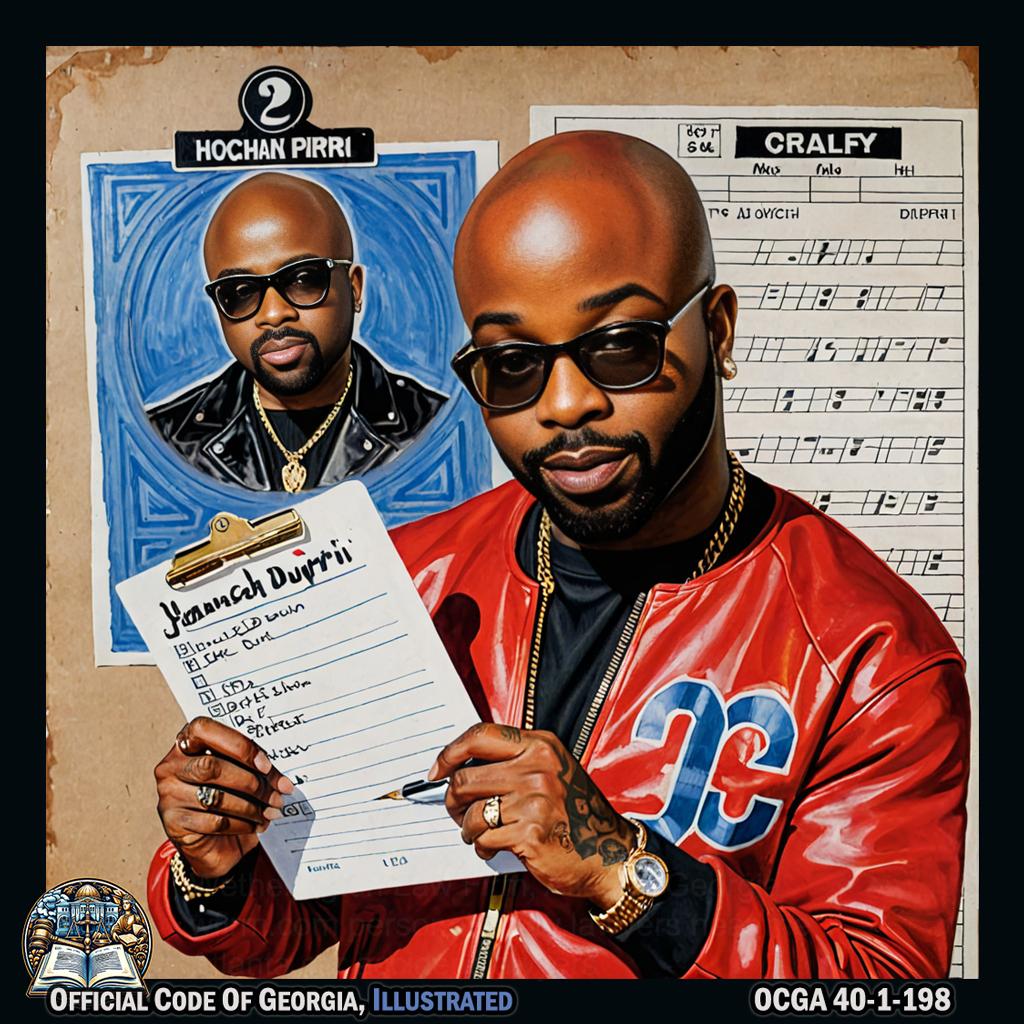
Jermaine Dupri, the music producer, joyfully points to a list on a clipboard and makes a checkmark, creating an art piece reminiscent of Hannah Hoch. -@jermainedupri -
40-1-199. Waivers.

Guitarist and founding member of the new wave band The B-52s, Ricky Wilson, is depicted as a superhero flying through the air with arms outstretched while shouting "waivers!" in an art piece reminiscent of Bob Ross. -
40-1-200. Inapplicability to equine drawn or other nonmotorized vehicles.

Usher gallantly steers a giant carrot chariot with reins, making neighing sounds in the rich scene of Moultrie, Georgia. -@Usher
40-1-190.Definitions.¶
As used in this part, the term:
- “Limousine carrier” means any limousine company or provider which is licensed with the state pursuant to paragraph (5) of Code Section 40-1-151.
- “Metering device” means an instrument or device which is utilized for the purpose of calculating for-hire fares based upon distance, time, mileage, and administrative fees and which is not a taximeter.
-
“Ride share driver” means an individual who uses his or her personal passenger car, as defined in paragraph (41) of Code Section 40-1-1, to provide transportation for passengers arranged through a ride share network service.

Cox Enterprises driving a car while gesturing to passengers in a dramatic and expressive manner, with a background of lush Georgia landscapes, reminiscent of Tom Roberts' style. -@CoxEnterprises -
“Ride share network service” means any person or entity that uses a digital network or Internet network to connect passengers to ride share drivers for the purpose of prearranged transportation for hire or for donation. The term “ride share network service” shall not include any corporate sponsored vanpool or exempt rideshare as such terms are defined in Code Section 40-1-100, provided that such corporate sponsored vanpool or exempt rideshare is not operated for the purpose of generating a profit.

Nick Eason gracefully extends his arm and hand, connecting with an invisible digital network, while embodying the style of Tommy McRae's art piece in a rich LaGrange setting. -@CoachEason -
“Taxi service” means any taxicab company or provider which utilizes a motor vehicle or similar vehicle, device, machine, or conveyance to transport passengers; uses a taximeter; and is authorized to provide taxicab services pursuant to an ordinance of a local government in this state.

Kaki King, with dramatic Caravaggio-style lighting, uses a taximeter while driving a motor vehicle to transport passengers in the lush setting of Radium Springs Gardens. -@KakiKing -
“Taximeter” means an instrument or device approved by the applicable local government which is utilized by a taxi service for the purpose of calculating fares based upon distance, time, and mileage.
-
“Transportation referral service” means any person or entity that books, refers clients to, collects money for, or advertises transportation services provided by a limousine carrier or taxi service by means of a telephone, through cellular telephone software, through the Internet, in person, by written instrument, by any person, or by any other means, and does not own or lease any motor vehicle required to be registered with the Department of Public Safety as a limousine carrier or a taxi service. A transportation referral service shall not include emergency or nonemergency medical transports.

Robert Cray stands on a street corner in Monroe Heights, Atlanta, holding up a vintage telephone receiver connected to an oversized cellular phone replica. As he collects money from passersby, he advertises transportation services with dramatic gestures and expressive body language, showcasing the style of Van Gogh's "Starry Night" as the backdrop for this lively performance art piece. -@RobertCrayBand -
“Transportation referral service provider” means any person or entity that books, refers clients to, collects money for, or advertises transportation services provided by a limousine carrier or taxi service by means of a telephone, through cellular telephone software, through the Internet, in person, by written instrument, by any person, or by any other means and owns or leases one or more motor vehicles required to be registered with the Department of Public Safety as a limousine carrier or a local government in this state as a taxi service. A transportation referral service provider shall not include emergency or nonemergency medical transports.
40-1-191.Legislative findings; preemption; ride share network service, transportation referral service, transportation referral service provider, and taxi service doing business at a county or municipal airport.¶
The General Assembly finds that it is in the public interest to provide uniform administration and parity among ride share network services, transportation referral services, and transportation referral service providers, including taxi services, that operate in this state for the safety and protection of the public. The General Assembly fully occupies and preempts the entire field of administration and regulation over ride share network services, transportation referral services, transportation referral service providers, and taxi services as governed by this part; provided, however, that the governing authority of any county or municipal airport shall be authorized to regulate any ride share network service, transportation referral service, transportation referral service provider, and taxi service consistent with the process used for limousine carriers, as set forth in Code Section 40-1-162, who are doing business at any such airport and may establish fees as part of such regulation process; provided, further, that such fees shall not exceed the airport’s approximate cost of permitting and regulating ride share network services, transportation referral services, transportation referral service providers, and taxi services; and provided, further, that such governing authorities of such airports shall accept a for-hire license endorsement or private background check certification pursuant to Code Section 40-5-39 as adequate evidence of sufficient criminal background investigations and shall not require any fee for any further criminal background investigation; and provided, further, that local governments may maintain certificates of public necessity and convenience and medallion requirements and company requirements for taxi services as provided in this part and may establish maximum fares for taxi services. The list of ride share network services, transportation referral services, transportation referral service providers, and taxi services on the website of the department shall be sufficient evidence that such services have licenses issued by the department.
40-1-192.Transportation referral service provider registration requirement; licensure; exemptions; additional requirements.¶
- A transportation referral service or transportation referral service provider that only refers business to limousine carriers and taxi services that are licensed or registered as transportation referral service providers shall be exempt from registration under this Code section.
-
Each transportation referral service provider doing business, operating, or providing transportation services in this state shall register with the department. Upon receipt of registration by the department, the department shall issue a license to such transportation referral service provider which shall be renewed on an annual basis. The department may charge a fee for such license and registration not to exceed $100.00. Limousine carriers, as a part of the licensure and permitting process for limousine carriers, shall be registered and licensed as a transportation referral service provider under this part. A transportation referral service provider that receives referrals from a transportation referral service or a transportation referral service provider shall be required to disclose to the department that it is receiving referrals from such transportation referral service or transportation referral service provider; provided, however, that the limousine carrier or taxi service shall be required to comply with the requirements of this part.

Fonzworth Bentley, dressed in a vibrant and dynamic outfit designed by Cheryl Pope, gracefully moves across the stage with dramatic flair, using expressive hand gestures to symbolize the process of transportation referral service providers registering with the department and obtaining their licenses. His movements are synchronized with a live musical performance that adds an element of creativity and excitement to the scene. -@FonzBentley -
Each transportation referral service provider doing business, operating, or providing transportation services in this state shall file and keep current monthly with the department a list of all limousine carriers and taxi services which it utilizes to provide transportation services in this state. Such lists shall not be subject to inspection or disclosure under Article 4 of Chapter 18 of Title 50.
-
Each transportation referral service provider doing business, operating, or providing transportation services in this state shall:
-
Either obtain directly or determine that each taxi service to which it refers business possesses either a certificate of public necessity and convenience or medallion authorizing the provision of taxicab services in such local government if the certificate of public necessity and convenience or medallion is required by an ordinance of the local government where such taxi service is to be provided;
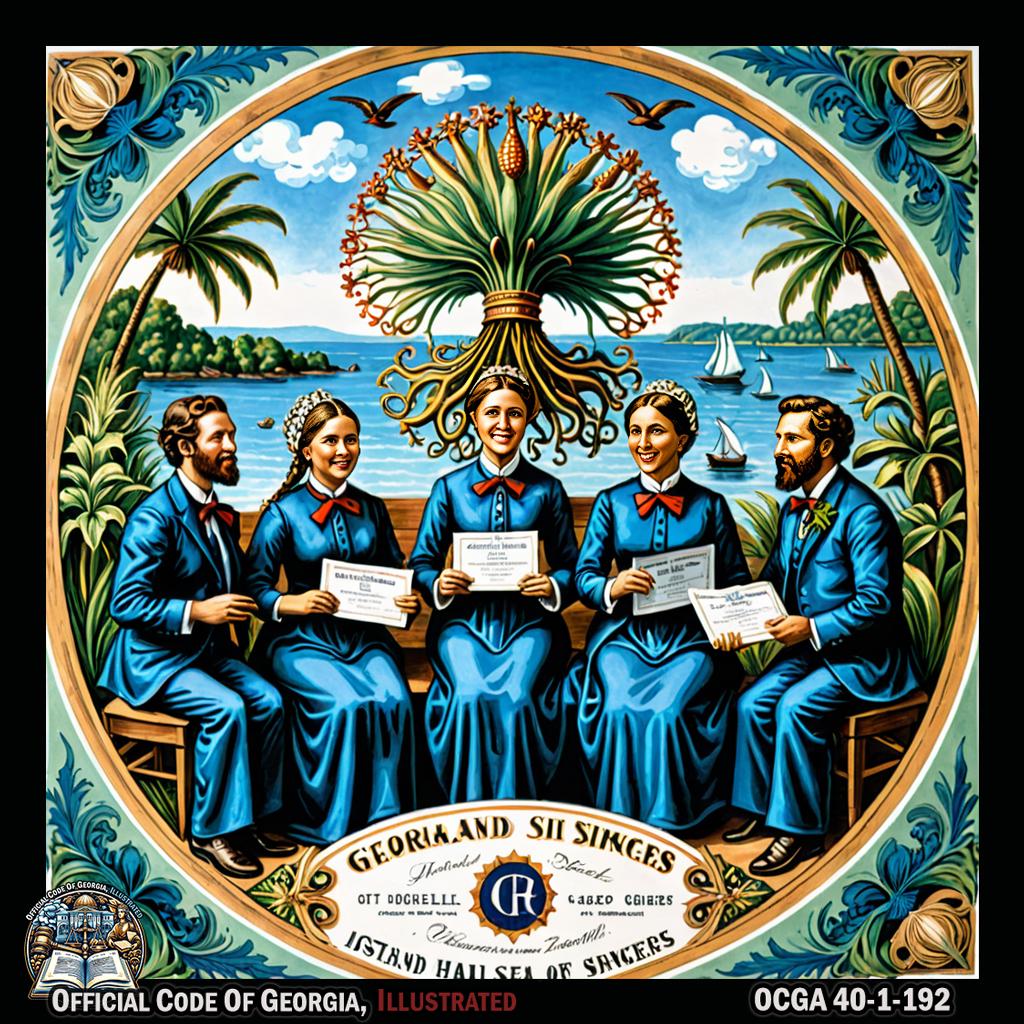
The Georgia Sea Island Singers gracefully enact the process of obtaining a certificate or medallion for taxi services in Riverdale, inspired by the intricate and organic style of Ernst Haeckel's art piece. -
Either obtain directly or determine that each taxi service to which it refers business is registered with the department and possesses and maintains a permit authorizing the provision of taxicab services in such local government if a company permit is required by an ordinance of the local government where such taxi service is to be provided;
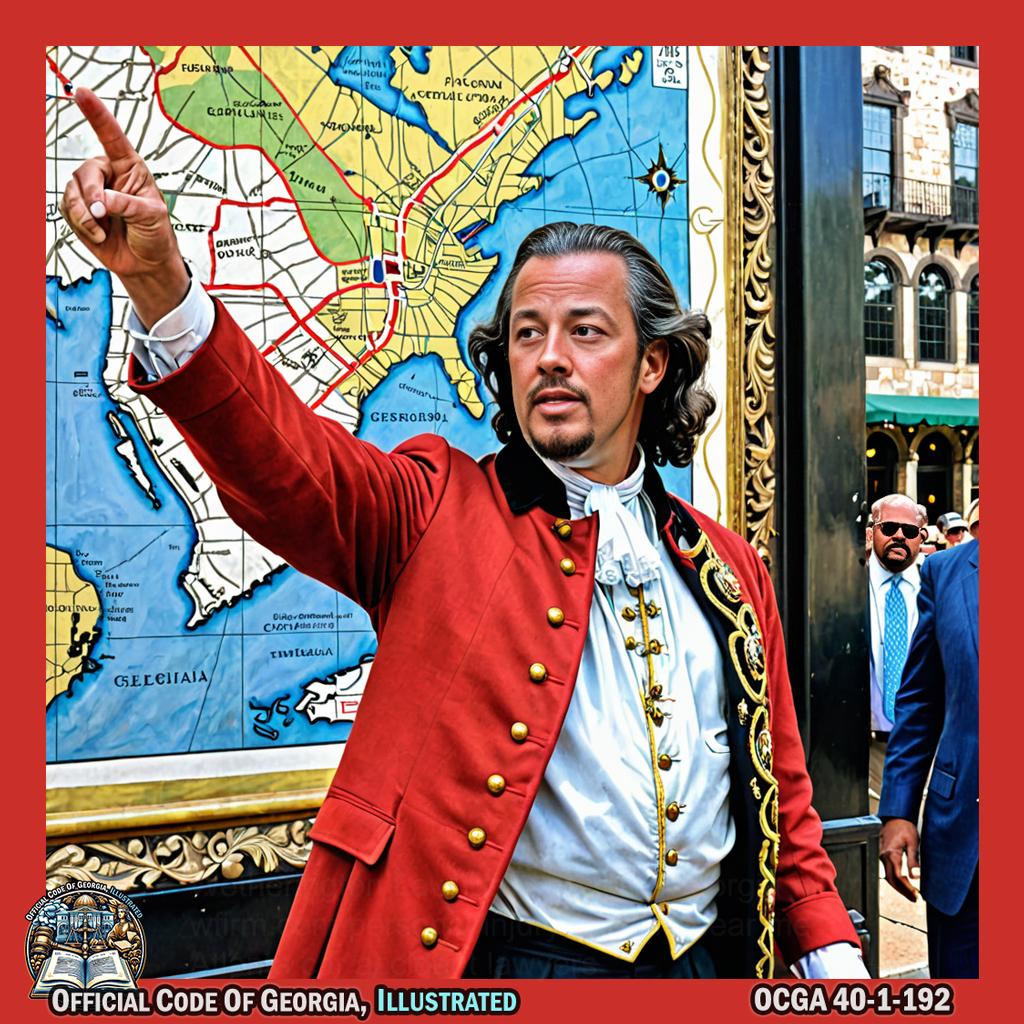
James Oglethorpe, dressed in historic attire, dramatically points to a large map of Georgia with one hand while gesturing towards a row of ornate taxicabs with the other, surrounded by vibrant music festival attendees and local government officials. -
Either obtain directly or determine that each limousine carrier to which it refers business is properly and currently registered and licensed pursuant to Part 3 of this article;
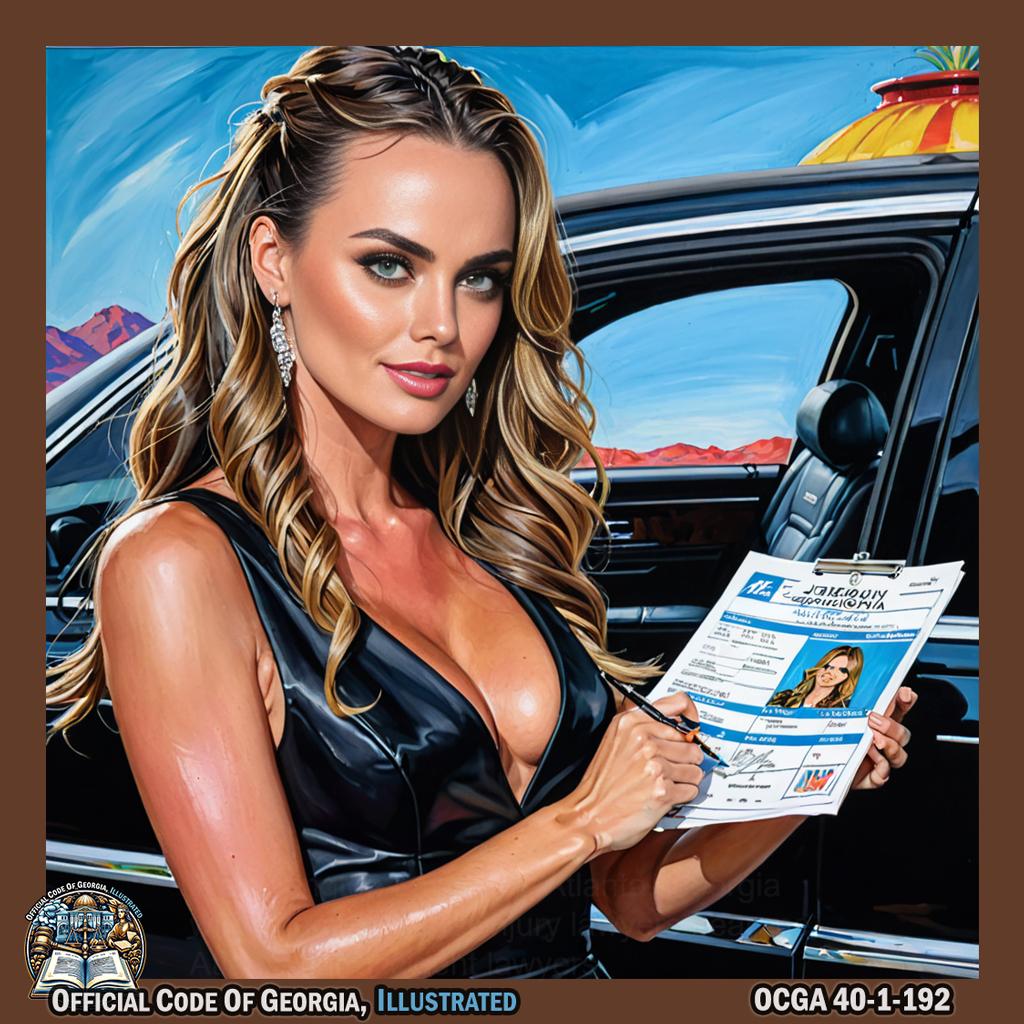
Jena Sims, portraying the character, carefully inspects and verifies the registration and licensing of each limousine carrier by meticulously examining their paperwork in an expressive and theatrical manner inspired by Enrique Chagoya's art style, set against a vibrant backdrop of Fairburn. -@jenamsims -
Take all necessary steps to determine that:

In a richly decorated room at the Museum of Life and Science, a person solemnly approaches a series of ancient instruments, carefully examining each one to determine its authenticity and significance, all while moving with deliberate grace and elegance reminiscent of Botticelli's art. - Any driver either directly employed by or contracted with a limousine carrier which the limousine carrier contracts with or utilizes for the provision of transportation services in this state possesses and maintains any required permits or licenses required by the federal government or this state; and
- Any driver either directly employed by or contracted with a taxi service which the taxi service contracts with or utilizes for the provision of transportation services in this state possesses and maintains any required permits or licenses required by the federal government or the local government where the transportation services are to be provided;

Lil Jon, clad in a flamboyant Elvis-inspired jumpsuit, theatrically mimes steering a wheel with one hand while exaggeratedly flashing various colorful permits and licenses with the other, against the backdrop of The Elvis Shrine Vault adorned with opulent rock-and-roll memorabilia and gleaming gold records. -@LilJon
-
Ensure that each driver utilized by such transportation referral service provider, whether such driver is employed directly by the transportation referral service provider or by a limousine carrier or taxi service which the transportation referral service provider contracts with or utilizes for the provision of transportation services in this state, has a current for-hire license endorsement or current private background check certification pursuant to Code Section 40-5-39;
- Have a zero tolerance policy with regard to the use of drugs or alcohol while on duty in place for drivers utilized by such limousine carrier or taxi service in the provision of transportation services, whether such driver is employed directly by the transportation referral service provider or by a limousine carrier or taxi service which the transportation referral service provider contracts with or utilizes for the provision of transportation services in this state;
- Shall ensure that each limousine carrier with which such transportation referral service provider contracts or utilizes for the provision of transportation services in this state has the commercial indemnity and liability insurance required by Code Section 40-1-166 or each taxi service with which such transportation referral service provider contracts or utilizes for the provision of transportation services in this state has the minimum amount of commercial liability insurance prescribed by state law;
- Have, as to taxi services, complied with or ensured that any taxi service which it contracts with or utilizes for the provision of transportation services complies with any fare structure or regulation prescribed by ordinance of the local government where such taxi service is to be provided; provided, however, that any fares specified in local ordinances shall be the maximum fare which may be charged but shall not prohibit a taxi service from charging lower fares;
- Have complied with or determined that the limousine carrier or taxi service with which the provider contracts with or utilizes for the provision of transportation services in this state is in compliance with any and all other applicable requirements prescribed by the laws of the state, the rules and regulations of the department, and the ordinances of local governments where such transportation services are provided; and
- Comply with the provisions of Code Section 40-8-7. No additional vehicle inspections shall be required for taxi services or limousine carriers.

Forrest Griffin elegantly mimics a vehicle coming to a halt, with sudden and fluid movements inspired by Jean Arp's art, in the vibrant streets of Duluth. -@ForrestGriffin
-
-
Failure to register according to the provisions of this Code section shall be a misdemeanor.
40-1-193.Ride share network service registration requirement; licensure; required list of all ride share drivers; additional requirements for ride share network service businesses and drivers; law enforcement access to digital information in smart phone of driver.¶
-
Each ride share network service doing business or operating in this state shall register with the department. Upon receipt of registration by the department, the department shall issue a license to such ride share network service which shall be renewed on an annual basis. The department may charge a fee for such license and registration not to exceed $100.00.
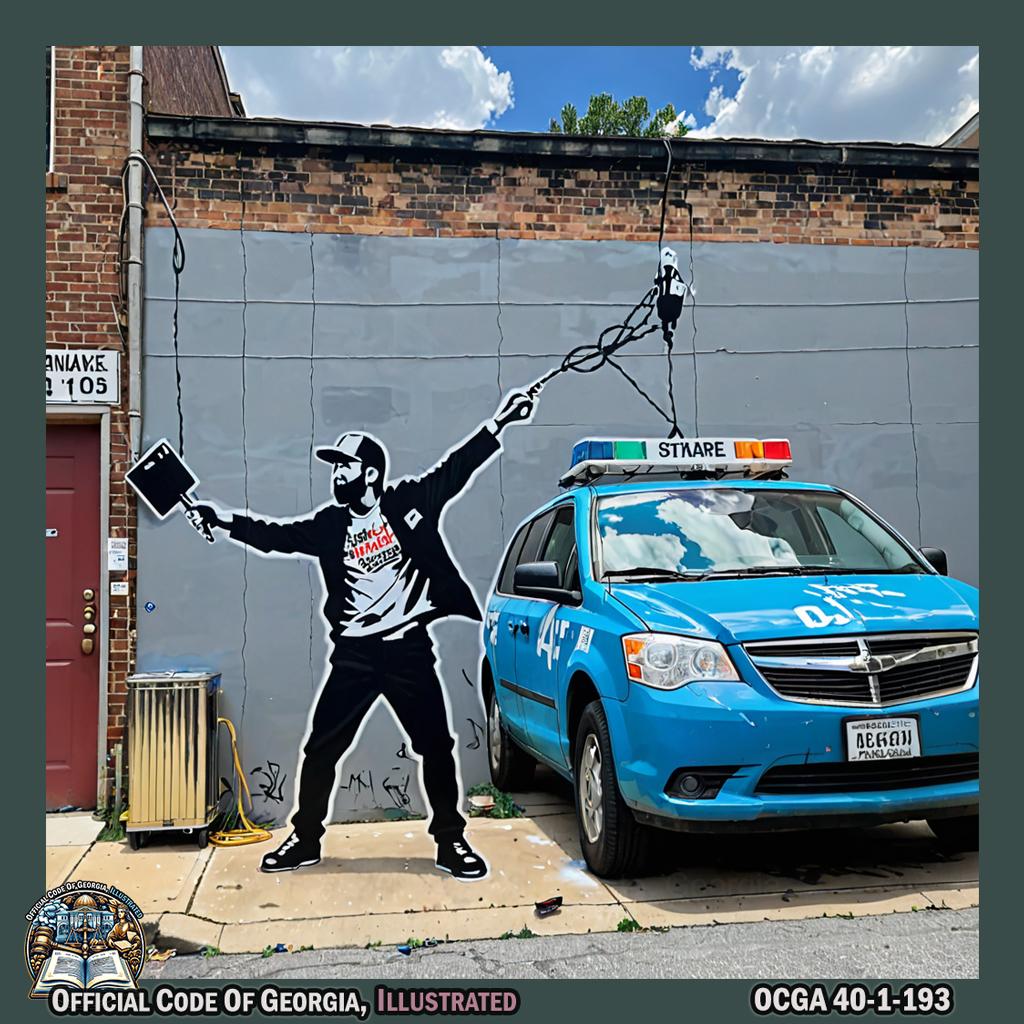
D. James Kennedy painting a mural of a ride share network service registration process in an alley in Americus, Georgia, with dramatic gestures and dynamic movements. -
Each ride share network service doing business or operating in this state shall maintain a current list of all ride share drivers who are enrolled in its network in this state. Such lists shall not be subject to inspection or disclosure under Article 4 of Chapter 18 of Title 50 but shall be made available for inspection by law enforcement officers and representatives of other government agencies upon request to ascertain compliance with this title.

Actress Cassie Yates delicately creates a web of intertwining threads, each representing a different rideshare network service operating in the state. As she weaves, law enforcement officers and government representatives watch in awe, inspecting the intricate connections to ensure compliance with the state's regulations. -
Each ride share network service doing business or operating in this state shall:

Performing a synchronized dance routine with elaborate hand gestures and expressive body movements, portraying the regulations set forth for ride share networks in Georgia, all while integrating the iconic style of Barbara Licha's art. -
Take all necessary steps to determine that each driver contracted with such ride share network service possesses and maintains any required permits or licenses required by the federal government or this state;

Marianne Gordon, draped in flowing fabric, gracefully extends her hand towards a driver, inspecting an imaginary license with a thoughtful expression, while surrounded by ornate architecture and lush greenery of Savannah. -
Ensure that each driver utilized by such ride share network service, whether such driver is employed directly by the ride share network service or operates as an independent contractor, has a current for-hire license endorsement or current private background check certification pursuant to Code Section 40-5-39;
- Have a zero tolerance policy with regard to the use of drugs or alcohol while on duty in place for drivers contracted with such ride share network service;
- Have for each ride share driver contracted with such ride share network service in this state insurance coverage in effect with respect to personal injury liability, property damage liability, and personal injury protection liability benefits available to drivers, passengers, pedestrians, and others in the same coverage amounts as required by law; and
- Comply with the provisions of Code Section 40-8-7. No vehicle inspections shall be required for vehicles used by ride share drivers.
-
-
Each ride share driver utilized by such ride share network service, whether such driver is employed directly by the ride share network service or operates as an independent contractor, shall maintain on his or her smartphone digital identification containing the following information while active on the ride share network service’s digital network:
- The name and photograph of the driver;
- The make and model of the motor vehicle being driven;
-
The license plate number of the motor vehicle being driven;

Basketball player Anthony Carter stands in front of a vintage car, using exaggerated hand gestures to mimic holding and turning a steering wheel, while his facial expression conveys intense focus and determination. He then dramatically points towards an imaginary license plate on the car with a sense of pride and accomplishment, all performed in the style of an avant-garde performance art piece at Nashville Zoo at Grassmere. -
Certificates of insurance for the motor vehicle being driven; and
-
Such other information as may be required by the Department of Public Safety.

Chad Jenkins dramatically gestures with his arms while surrounded by a swirling vortex of colorful ribbons, symbolizing the flowing and dynamic nature of information required by the Department of Public Safety, all set against a backdrop reminiscent of William Klein's bold and abstract artistic style. -@Jenknutz Upon reasonable suspicion of a law enforcement officer of improper operation by a ride share driver, the ride share driver, upon request, shall provide the law enforcement officer with access to the smartphone containing the digital information required by this subsection and the electronic record of the trips sufficient to establish that the trip in question was prearranged through digital dispatch of the ride share network service. The ride share driver shall not be required to relinquish custody of the smartphone containing the digital information required by this subsection and the electronic record of the trips arranged through digital dispatch of the ride share network service.
-
A violation of this Code section shall be a misdemeanor.
40-1-193.1.Registration of taxi services; requirements to operate taxi service.¶
-
Each taxi service doing business or operating in this state shall register with the department. Upon receipt of registration by the department, the department shall issue a license to such taxi service which shall be renewed on an annual basis. The department may charge a fee for such license and registration not to exceed $100.00.

Matt Olson could act out the scene by pantomiming driving a taxi, stopping to pick up passengers, and then mimicking the action of registering his vehicle with large, exaggerated motions as if filling out forms and receiving a license. This is depicted in a Brice Marden's minimalist style with abstract expressions representing the bureaucratic process amidst Hinesville's distinct landscape. -@mattolson21 -
Each taxi service doing business or operating in this state shall maintain a current list of all drivers utilized by such taxi service in this state, whether as employees or independent contractors. Such lists shall not be subject to inspection or disclosure under Article 4 of Chapter 18 of Title 50 but shall be made available for inspection by law enforcement officers and representatives of other government agencies upon request to ascertain compliance with this title.
-
Each taxi service doing business or operating in this state shall:

In a scene at Dollywood's Splash Country Water Park, Keri Hilson could physically act out the sentence by having each taxi service represented by different colored water slides and rafts flowing smoothly through the park, symbolizing their business operating in the state while being visually depicted in the art style of Brooks Salzwedel. -@KeriHilson -
Take all necessary steps to determine that each driver utilized by such taxi service, whether as an employee or independent contractor, possesses and maintains any required permits or licenses required by the federal government or this state;

NIIT Technologies, dressed in Renaissance attire, meticulously examines a scroll of permits and licenses while being surrounded by lush greenery and the gentle flow of Sweetwater Creek. -@NIITTech -
Ensure that each driver utilized by such taxi service, whether as an employee or independent contractor, has a current for-hire license endorsement or current private background check certification pursuant to Code Section 40-5-39;

Chris Barnes meticulously arranging a mosaic of colored dots to represent the process of verifying taxi drivers' licenses and background checks, while infusing the scene with vibrant energy and meticulous attention to detail in a lush Newnan setting. -
Have a zero tolerance policy with regard to the use of drugs or alcohol while on duty in place for drivers utilized by such taxi service, whether as an employee or independent contractor;

Victoria Monét, dressed in a flowing black gown, stands beneath The Big Oak in Thomasville, Georgia. She holds out her hand as if offering something, then suddenly jerks it back and shakes her head vigorously while making a "no" gesture with her finger. This is done with intense emotion and conviction, capturing the essence of Shirin Neshat's powerful art style. -@VictoriaMonet -
Obtain and maintain personal injury and property damage liability insurance, which shall provide for the protection of passengers and property carried and of the public against injury in the coverage amounts as required by law; and
- Comply with the provisions of Code Section 40-8-7. No vehicle inspections shall be required for vehicles used by taxi services.

JID, dressed as a quirky mechanic in a colorful jumpsuit, playfully examines and interacts with oversized, abstract shapes reminiscent of cars and taxis floating in the air alongside surreal water slides and pools, all while giving an exaggerated thumbs-up to show compliance—emulating Yves Tanguy's biomorphic surrealism amidst the vibrant backdrop of Summer Waves Water Park. -@JIDsv
-
-
The department or any county, municipality, or consolidated government may require proof of insurance or proof of payment of such insurance in the coverage amounts as required by law and may verify such insurance when issuing or renewing a certificate of public necessity and convenience or medallion.

Randolph Morris, dressed in a vintage basketball uniform, dramatically presents a large golden medallion to an ethereal figure in a flowing gown and ornate headpiece amidst the lush gardens of Juliette Gordon Low Birthplace, as light filters through the trees creating a dreamlike atmosphere.
40-1-194.Prohibition on contracting with carriers, drivers, or taxi services not properly licensed or insured; penalties for violations.¶
-
-
- No transportation referral service or transportation referral service provider subject to this part shall contract with, utilize, or refer individuals or entities to limousine carriers that are not properly licensed by this state or are not properly insured under state law.
2. No ride share network service subject to this part shall contract with, utilize, or refer individuals or entities to ride share drivers who are not properly licensed by this state or are not properly insured under state law.

Kyle Farnsworth, a baseball player born in Kansas, elegantly gestures and points to a group of ride share drivers who are properly licensed and insured under state law while moving with fluidity and grace. -@24_7Farnsworth
- No transportation referral service or transportation referral service provider subject to this part shall contract with, utilize, or refer individuals or entities to limousine carriers that are not properly licensed by this state or are not properly insured under state law.
2. No ride share network service subject to this part shall contract with, utilize, or refer individuals or entities to ride share drivers who are not properly licensed by this state or are not properly insured under state law.
-
No transportation referral service or transportation referral service provider subject to this part shall contract with, utilize, or refer individuals or entities to taxi services that are not registered with the department and properly licensed by the applicable political subdivision of this state, are not properly insured under local law, or use drivers that are not properly licensed under state and local law to carry passengers for hire.

Matt Battaglia stands on a stage, adorned in an avant-garde costume made of fragmented pieces of taxi signs and license plates, weaving through a chaotic dance with elongated movements to symbolize the complex web of transportation laws. As he moves, he interacts with life-sized puppet figures representing various unregistered taxi services, playfully mimicking their lack of compliance with exaggerated gestures. The scene is set against a backdrop of Newnan's iconic architecture, reimagined in Ai Weiwei's signature style - stark lines and bold colors contrasting with the fluidity of Battaglia's performance.
-
-
-
- No person who is not licensed under the laws of this state to provide limousine services shall contract with or accept referrals from a transportation referral service, transportation referral service provider, or ride share network service for transportation services. This paragraph shall not apply to passengers.
2. No ride share driver who does not have an appropriate driver’s license and either a for-hire endorsement or current private background check certification pursuant to Code Section 40-5-39 shall contract with or accept referrals from a transportation referral service, transportation referral service provider, or ride share network service for transportation services.
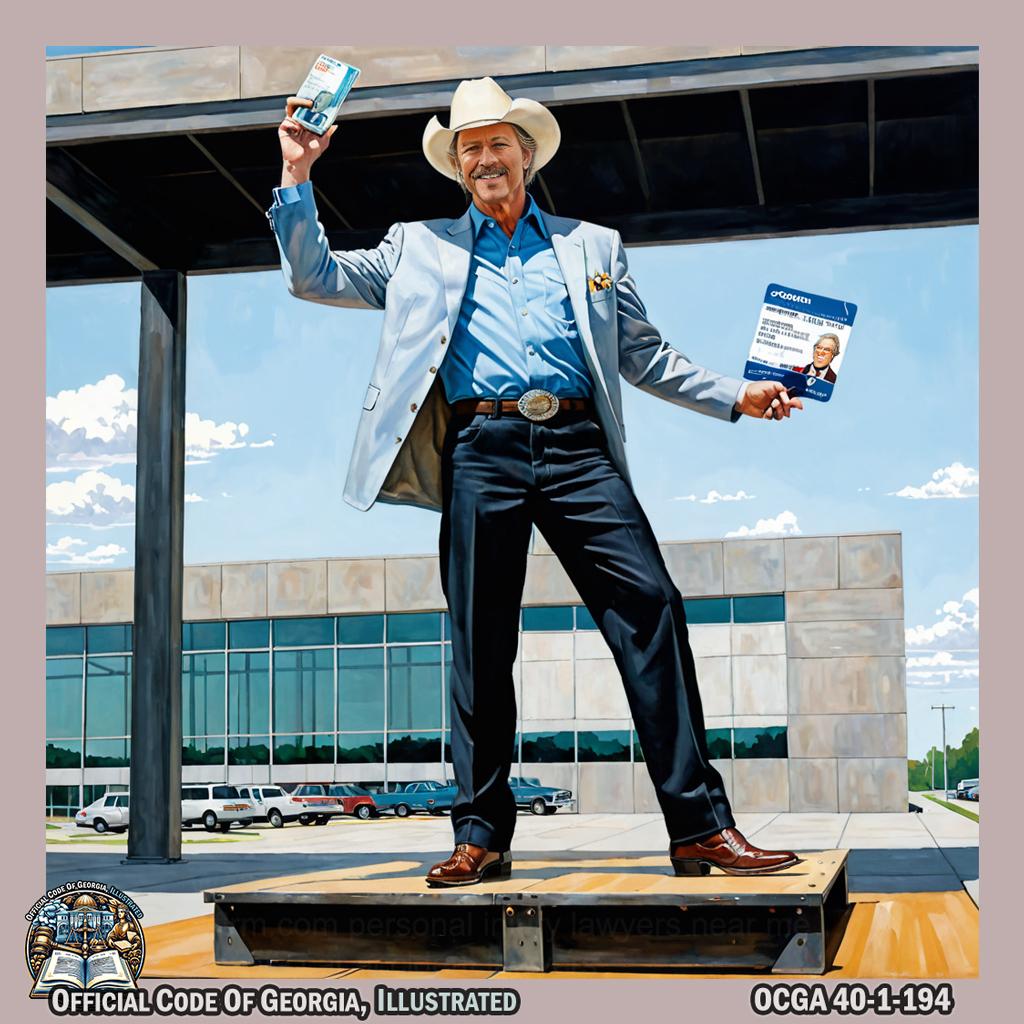
Musician Alan Jackson stands on a platform, holding an oversized driver's license while performing a dance that symbolizes the process of obtaining a for-hire endorsement and background check certification, all against a backdrop of angular, modernist architecture inspired by Walter Gropius. -@OfficialJackson
- No person who is not licensed under the laws of this state to provide limousine services shall contract with or accept referrals from a transportation referral service, transportation referral service provider, or ride share network service for transportation services. This paragraph shall not apply to passengers.
2. No ride share driver who does not have an appropriate driver’s license and either a for-hire endorsement or current private background check certification pursuant to Code Section 40-5-39 shall contract with or accept referrals from a transportation referral service, transportation referral service provider, or ride share network service for transportation services.
-
No person who does not have the licensing required by the appropriate local government of this state to provide taxi services shall contract with or accept referrals from a transportation referral service or transportation referral service provider for transportation services. This paragraph shall not apply to passengers.
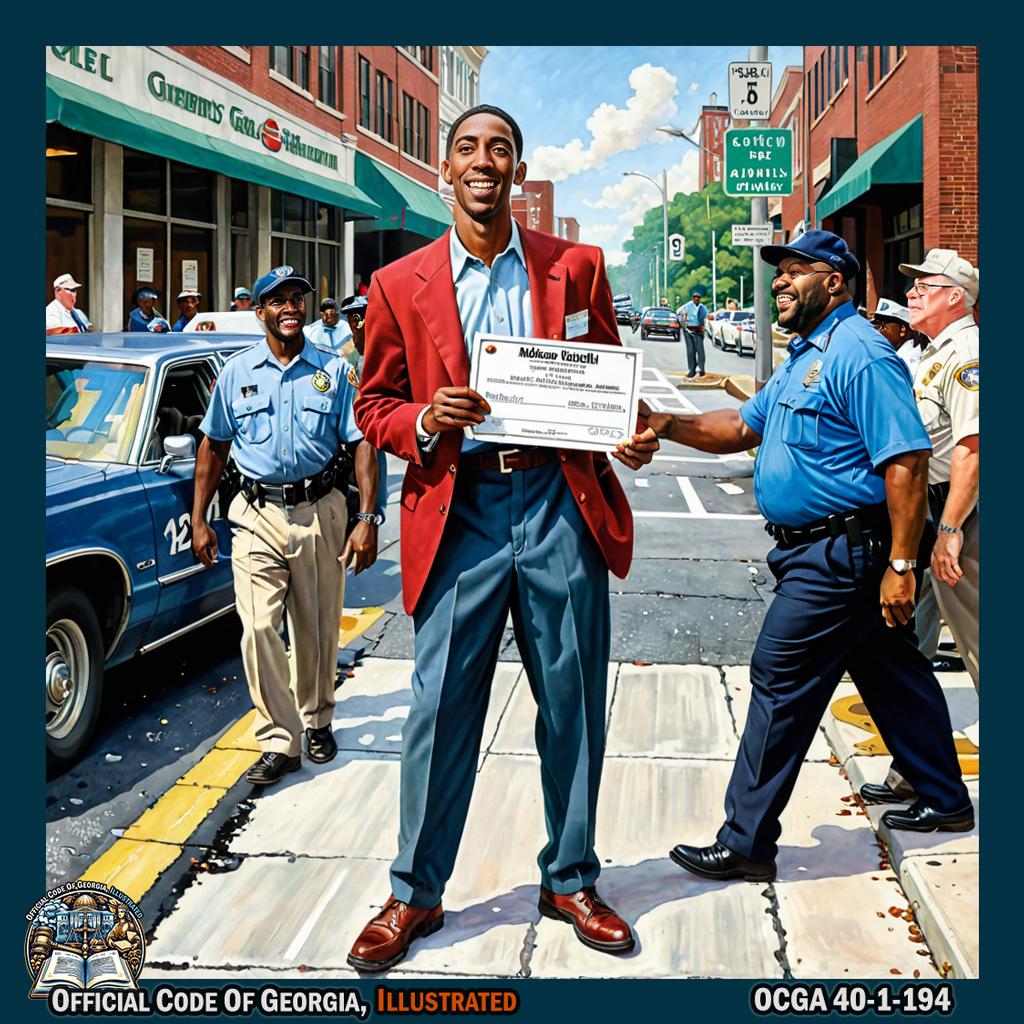
Malcolm Mitchell stands on a busy Atlanta street, holding up a large license issued by the local government, while refusing to accept a referral from a transportation service provider. Passengers stand nearby, watching in confusion and surprise as Malcolm confidently enforces the state's regulations with a charming smile reminiscent of Norman Rockwell's characters. -@MalcolmJarod
-
-
- A transportation referral service that violates subsection (a) of this Code section shall be guilty of a misdemeanor.
- A transportation referral service provider or ride share network service that violates subsection (a) of this Code section shall be guilty of a misdemeanor and additionally shall be subject to having such provider’s or service’s registration suspended or revoked by the department.
-
A person who violates subsection (b) of this Code section shall be guilty of a misdemeanor and additionally may be subject to a suspension for one year or revocation of such person’s driver’s license.
40-1-195.Inclusion of license number issued by department in advertising; requirements for signage or emblem approved by Department of Public Safety.¶
-
Each taxi service, transportation referral service, transportation referral service provider, and ride share network service doing business, operating, or providing transportation services in this state shall include its license number issued by the department in any advertising in this state; provided, however, that this Code section shall not apply to Internet advertisements. Limousine carriers which register as transportation referral service providers under this part shall be subject to the advertising requirements of this Code section and not the provisions of Code Section 40-1-165. Failure to provide such license number shall result in the imposition of a civil penalty not to exceed $5,000.00 for each violation.

J. G. Hertzler, dressed as a regal limousine driver, gracefully performs an interpretative dance at the Columbia County Ballet, using colorful silk scarves to symbolize different transportation services; he weaves them through the air to mimic roads and paths converging at a central point representing the state of Georgia, concluding by forming a large number 'license' with his fellow dancers in a dynamic finale reminiscent of Cai Guo-Qiang's gunpowder art -- all without words or numbers, just pure visual storytelling. -@JGHertzler -
Each ride share driver shall display a consistent and distinctive signage or emblem that is approved by the Department of Public Safety on such ride share driver’s vehicle at all times while the ride share driver is active on the ride share network service’s digital network. The signage or emblem shall be:
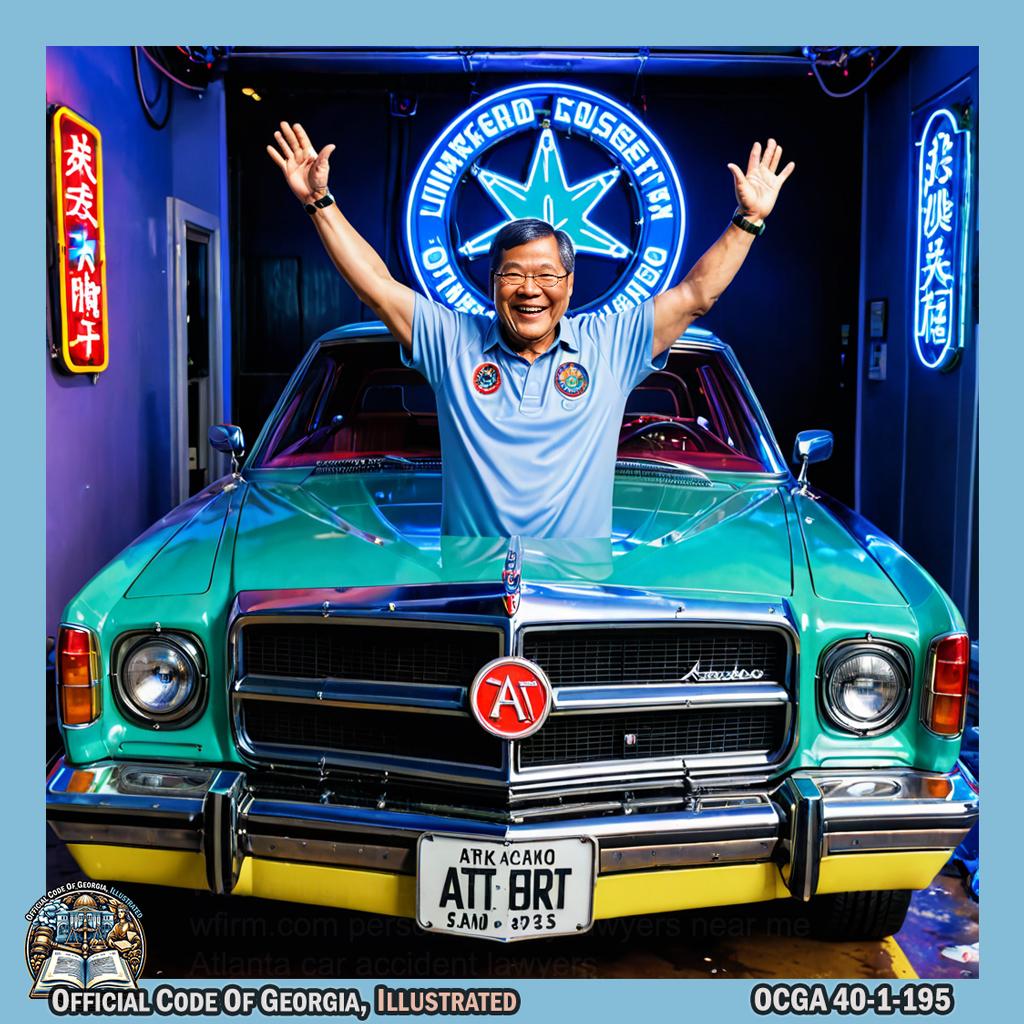
Richard Dent gracefully raises his arms to display a unique and approved emblem on the door of his vintage vehicle, surrounded by vibrant neon lights in the style of an Atsuko Tanaka art piece at the Computer Museum of America in Roswell, Georgia. -@Richard_Dent95 -
Sufficiently large and color contrasted to be readable during daylight hours from a distance of at least 50 feet;
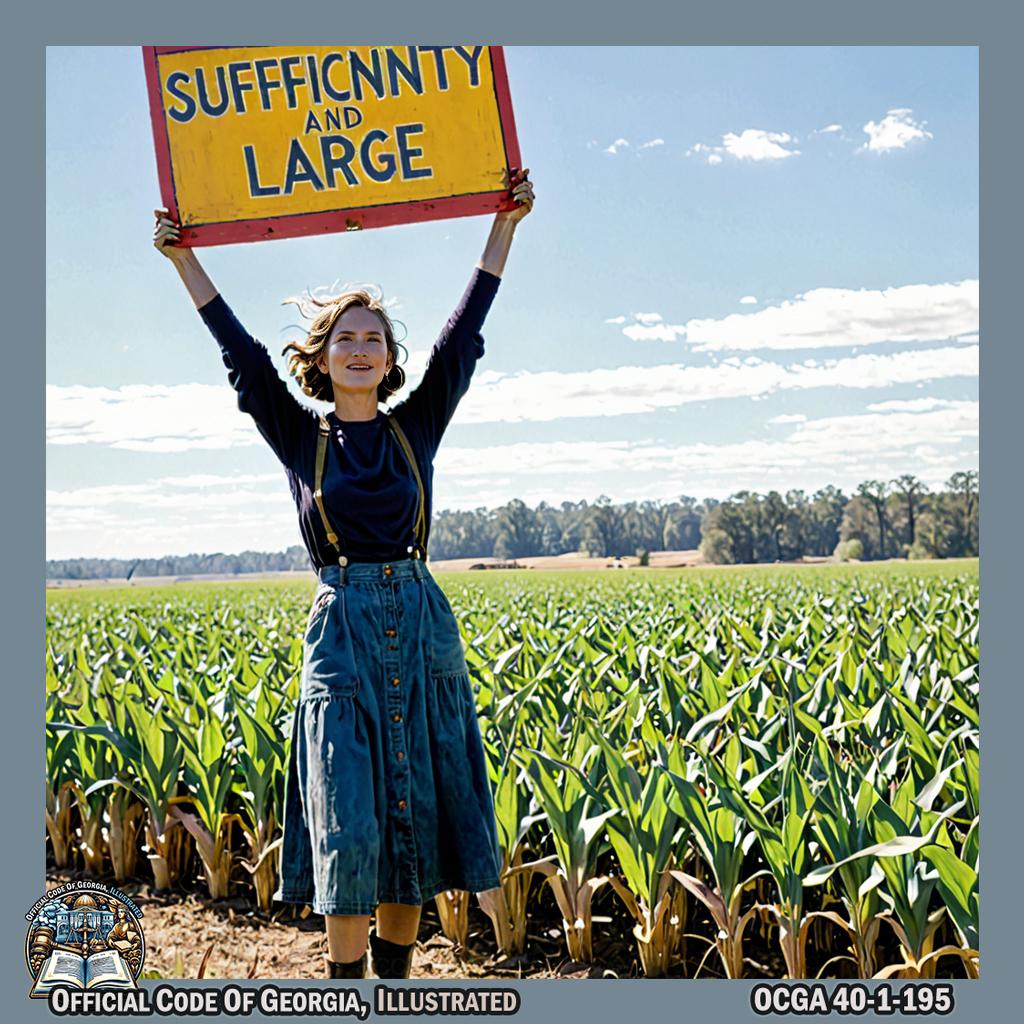
In a field at Wild Adventures, Mary Ross Banks stands holding a large and brightly colored sign, the words "Sufficiently large and color contrasted to be readable during daylight hours from a distance of at least 100 feet" boldly painted on it. She lifts the sign high above her head, making sure it's visible from all around, as if creating an art piece in the style of Dorothea Lange. -
Reflective, illuminated, or otherwise visible in darkness; and

Lauren Alaina stands with her arms outstretched, covered in reflective material that catches the light and glows in the darkness, as she dances gracefully across the stage in a style reminiscent of Margaret Wood Ward's art. -@Lauren_Alaina -
Sufficient to identify a vehicle as being associated with the ride share network service with which the ride share driver is affiliated.

Boxer Evander Holyfield stands beside a vehicle, holding up a sign with the ride share network service logo while gesturing to the car, all captured in black and white amidst the vibrant backdrop of Beech Bend Park. -@holyfield Any person who violates this subsection shall be guilty of a misdemeanor.

Chloë Grace Moretz stands with her arms crossed, glaring defiantly at the audience, as she slowly tears a piece of paper in half and drops it to the ground, all while surrounded by vibrant, bold colors and geometric patterns inspired by Shepard Fairey's art. -@ChloeGMoretz
-
40-1-196.Rates charged.¶
- Rates for taxi services set by a local government shall constitute the maximum fare which may be charged but shall not prohibit a taxi service from charging lower fares. Transportation services provided by taxi services and arranged by a transportation referral service or transportation referral service provider doing business in this state shall be billed in accordance with the fare rates prescribed by the local government where such taxi services are to be provided. The use of Internet or cellular telephone software to calculate rates shall not be permitted unless such software complies with and conforms to the weights and measures standards of the local government that licenses such taxi service.
-
Transportation services provided by limousine carriers and arranged by a transportation referral service or transportation referral service provider shall only be billed in accordance with the rates of such limousine carriers on an hourly basis or upon one or more of the following factors: distance, flat fee, base fee, waiting time, cancellation fee, stop fee, event pricing, demand pricing, or time. The charge for such transportation services may be calculated by the use of a metering device in or affixed to the motor vehicle.
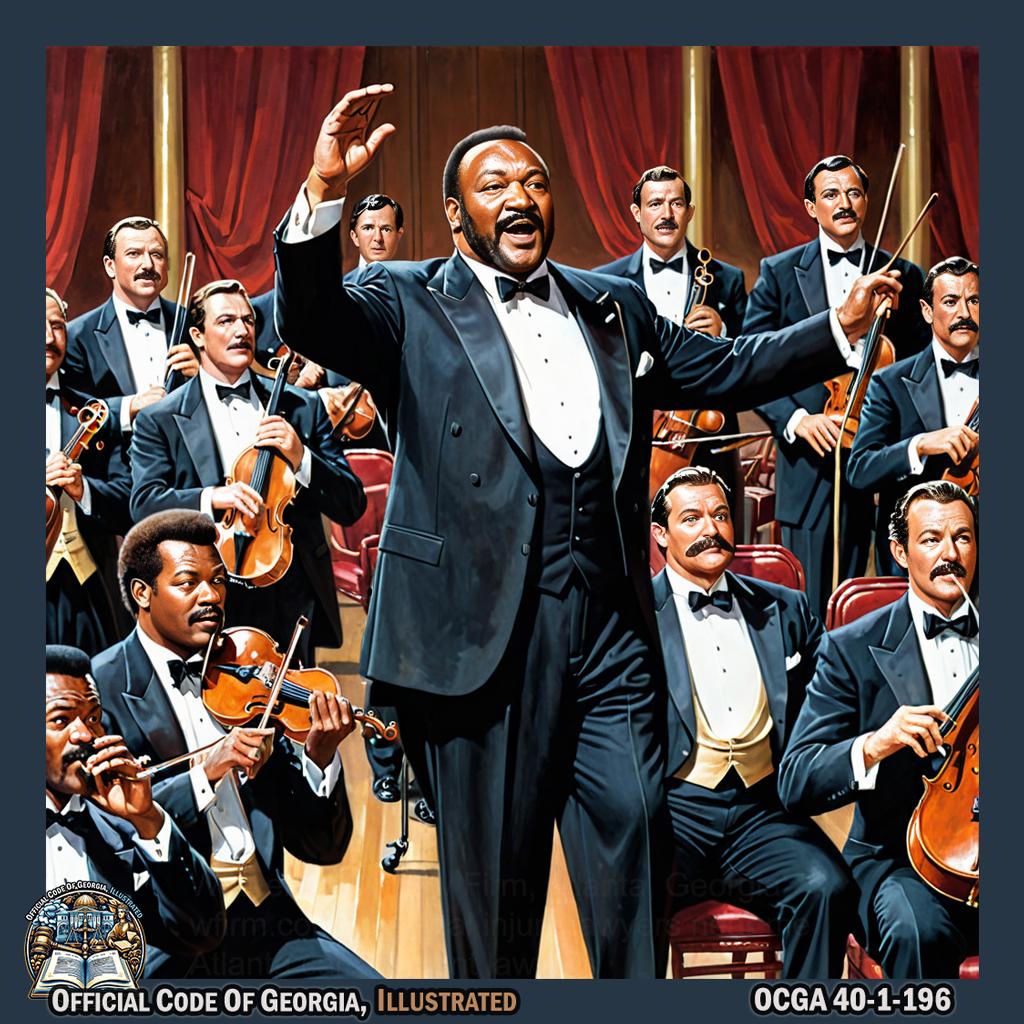
Jim Brown, dressed in a conductor's tuxedo, pretends to conduct an orchestra with a limousine model on his baton while various musicians mimic driving, waiting, and calculating fares using their instruments as props against the backdrop of the opulent Atlanta Symphony Orchestra Hall. -@JimBrownNFL32 -
A ride share driver contracted with a ride share network service may offer transportation services at no charge, suggest a donation, or charge a fare. If a ride share driver contracted with a ride share network service charges a fare, such fare shall be calculated based upon one or more of the following factors: distance, flat fee, base fee, waiting time, cancellation fee, stop fee, event pricing, demand pricing, or time. The fare may be calculated by the use of a metering device in or affixed to the motor vehicle.

In the style of Gertrude Abercrombie, Matt McClure, journalist and actor, exudes a surreal presence as he simulates driving a car while adjusting imaginary meters and gauges before extending his hand as if requesting payment. -
Each transportation referral service, transportation referral service provider, and ride share network service shall make available to the person being transported prior to receiving transportation services either the amount of the charge for such services or the rates under which the charge will be determined.

Dwayne Harris, dressed in a vibrant costume, dramatically gestures and mimes the act of revealing transportation charge information to a person while surrounded by swirling abstract shapes and vivid colors reminiscent of Christian Lock's art style in an outdoor plaza in Dunwoody. -@D_Harris17 -
A violation of this Code section shall be a misdemeanor.
40-1-197.Promulgation of rules and regulations.¶
The department is authorized to promulgate such rules and regulations as the department shall find necessary to implement the provisions of this part.

40-1-198.Requirement to maintain current list of drivers.¶
-
Each transportation referral service provider shall maintain a current list of all drivers that such provider employs directly or as independent contractors in this state. Such lists shall not be subject to inspection or disclosure under Article 4 of Chapter 18 of Title 50 but shall be made available for inspection by law enforcement officers and representatives of other government agencies upon request to ascertain compliance with this title.
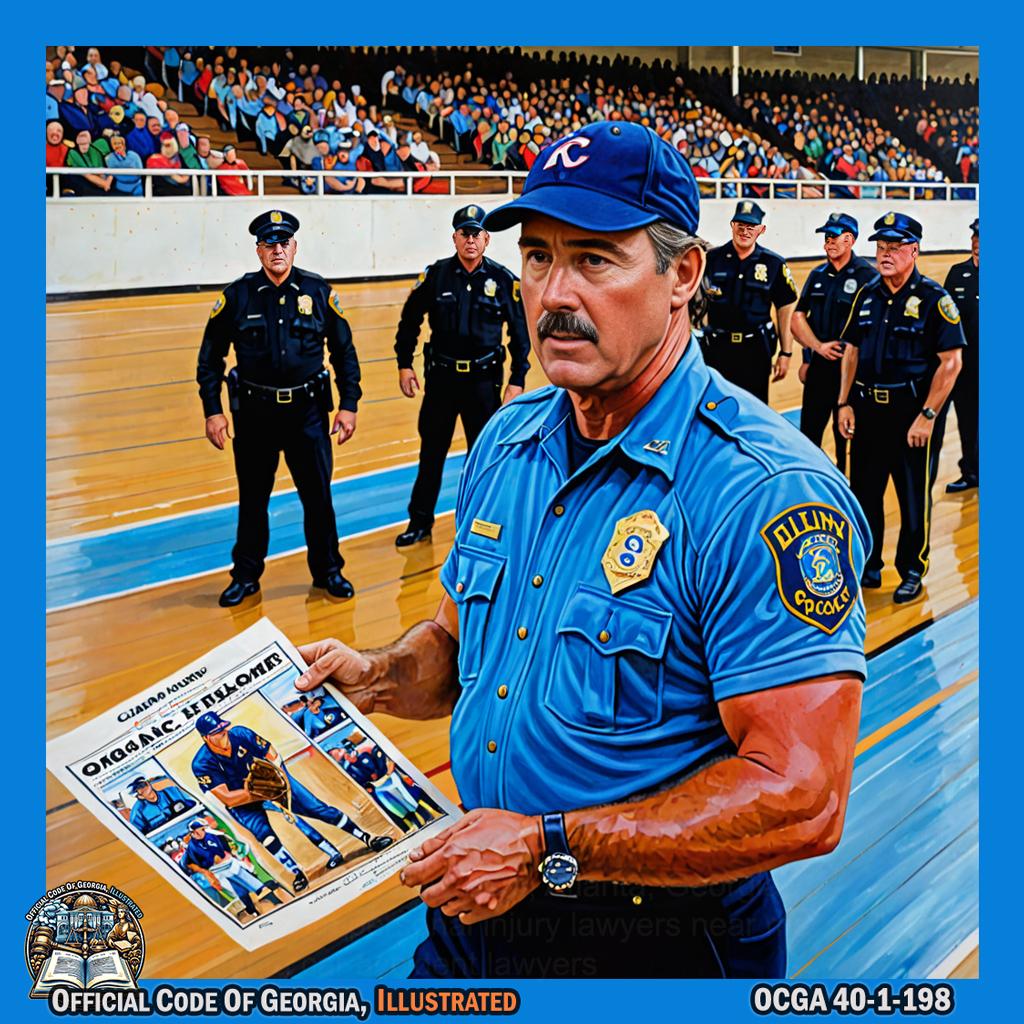
Baseball player Ron Blomberg stands at the center of The Dick Lane Velodrome, surrounded by a group of drivers and law enforcement officers. He is holding a large, tangled list in his hands, attempting to unravel it while the drivers and officers watch in amusement. As he struggles with the list, Chris Drury's signature natural materials are woven into the scene, creating a striking visual contrast between the organic elements and the man-made chaos. -
A violation of this Code section shall be punished by the imposition of a civil penalty not to exceed $5,000.00 for each violation.
40-1-199.Waivers.¶
A waiver of any rights with regard to personal injuries as the result of any transportation services provided by such ride share network service, transportation referral service, transportation referral service provider, limousine carrier, or taxi service by any person utilizing the services of a ride share network service, transportation referral service, transportation referral service provider, limousine carrier, or taxi service in this state shall not be valid unless such person is given written or electronic notice of such waiver prior to receiving such services and knowingly and willfully agrees to such waiver.
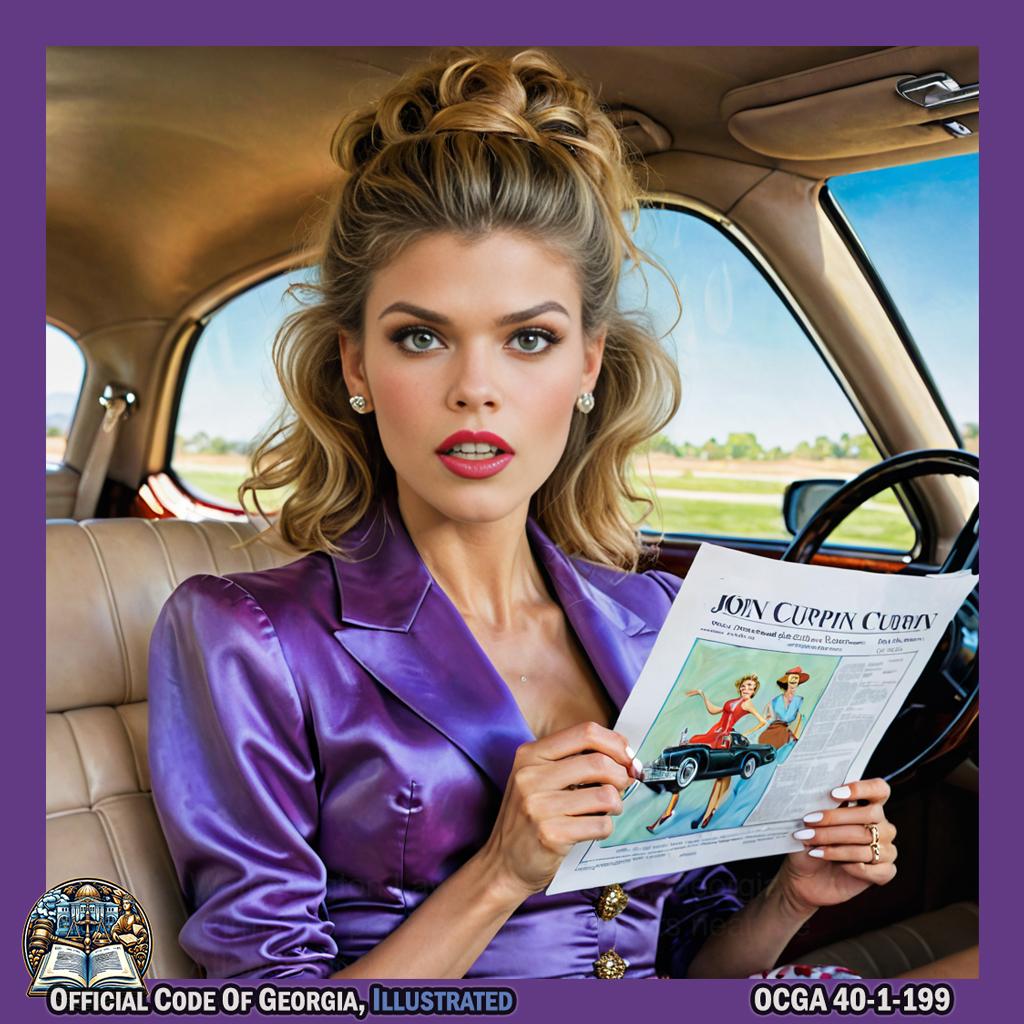
40-1-200.Inapplicability to equine drawn or other nonmotorized vehicles.¶
This part shall not be applicable to equine drawn vehicles or nonmotorized vehicles.

PART 5 Georgia Peer-to-Peer Car-Sharing Program¶
-
40-1-220. Definitions.
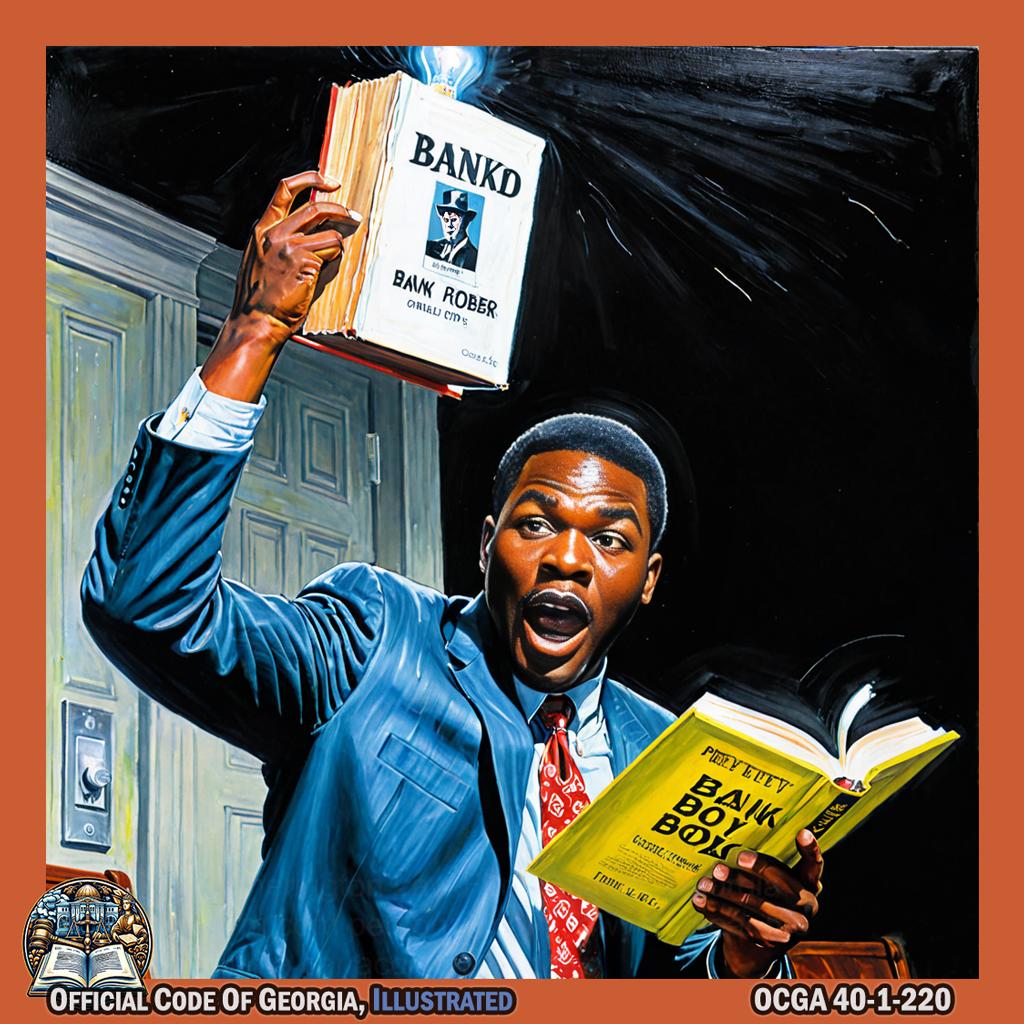
Bank robber Charles Arthur "Pretty Boy" Floyd opens an imaginary large book in a rich scene at the Cordele, Georgia location, points to a word, scratches his head in confusion before having a lightbulb moment and excitedly jumping up with a finger raised as if he's just understood the definition. -
40-1-221. Assumption of liability; insurance.
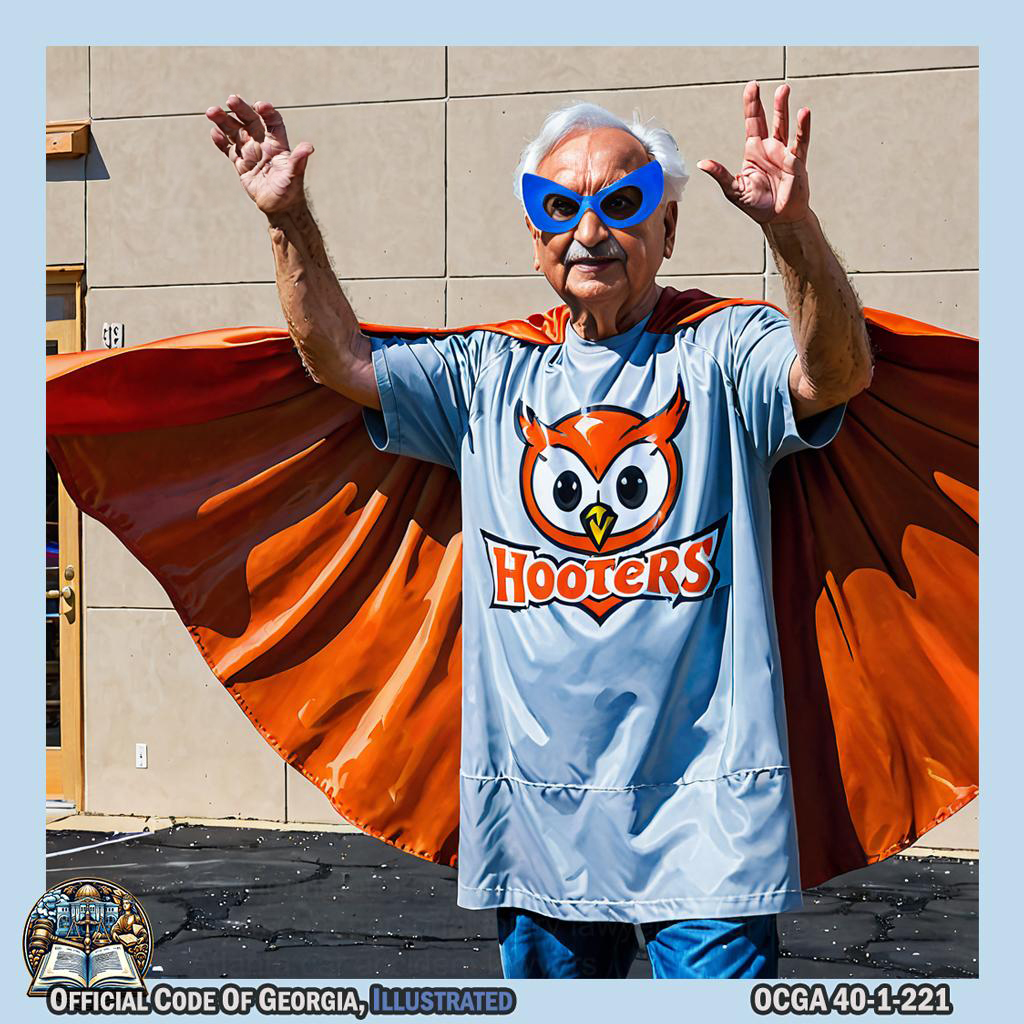
Hooters in Kennesaw, Georgia, dramatically puts on a superhero cape, protects someone with an imaginary force field, and makes a grand "ta-da" gesture. -@Hooters -
40-1-223. Exclusion of insurance coverage for shared vehicle.

Matt and Mike Chapman, born in Indiana, animators and voice actors, cross out an insurance policy document with a large red X in a rich scene at Fort Valley, Georgia. -@StrongBadActual -
40-1-224. Collection, verification, and retention of records.
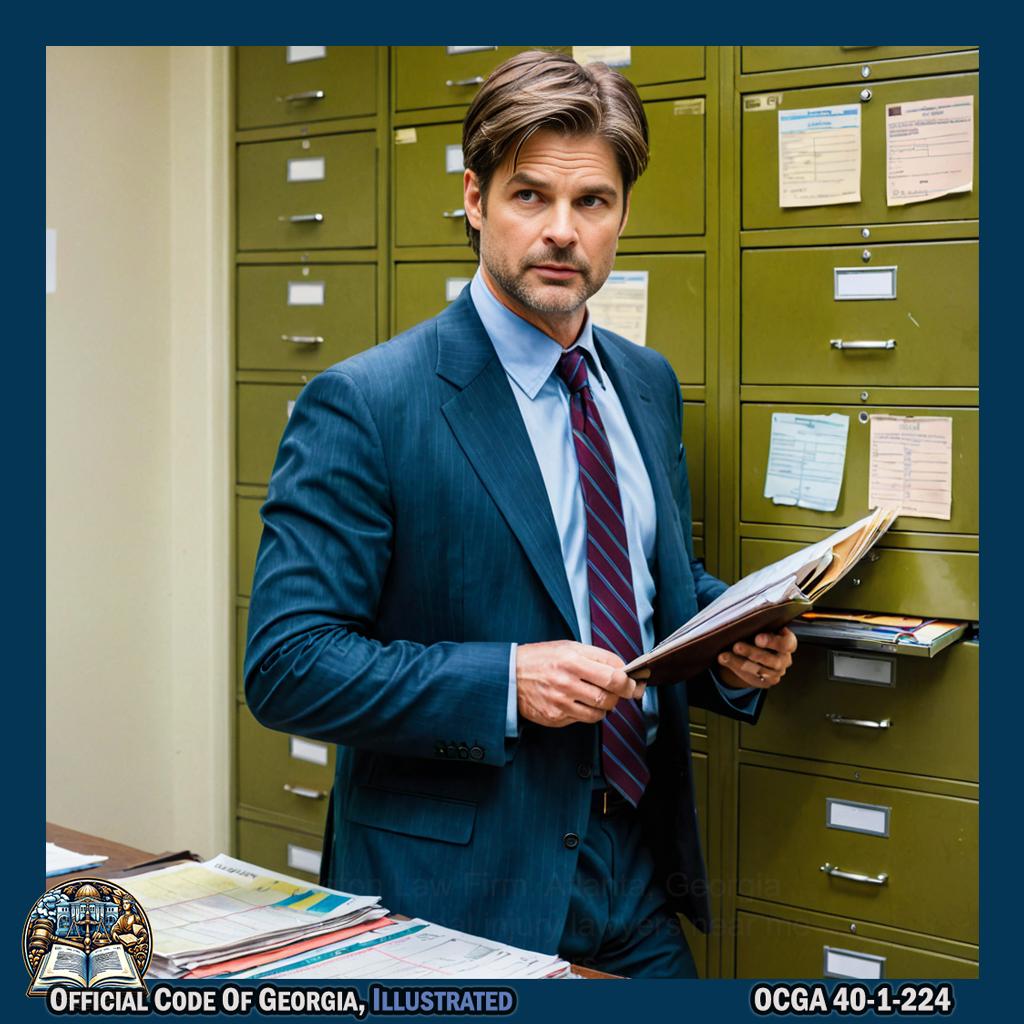
Actor Gale Harold skillfully embodies the role of a detective in Macon, Georgia, as he meticulously examines and files away imaginary documents in a vibrant, oversized filing cabinet. -@GaleHaroldIII -
40-1-225. Exemption from vicarious liability.

USWNT/Houston Dash midfielder, Morgan Brian pretends to put on a superhero cape and strikes a powerful pose with hands on hips in the rich scene of Decatur, Georgia. -@moeebrian -
40-1-227. Insurable interests.

Big Boi hugged the model of Torrey-West House on an island off the coast of Georgia, while holding an umbrella to shield it from a downpour of money symbols. -@BigBoi -
40-1-228. Required disclosures in car-sharing program agreements.
-
40-1-229. Requirements for drivers in peer-to-peer car-sharing program; record keeping.

Actor and singer Carlos Valdes draws a line on a paper from one point to another, then makes a check mark and writes "record keeping" next to it, creating an art piece reminiscent of Hans Heysen's work. -@Tha_Los - 40-1-231. Prerequisites for sharing vehicles; impact of safety recalls.

Film director Steven Soderbergh dramatically buckles a seatbelt while gazing at a big red exclamation point on a car in the picturesque setting of Woodbine Opry, Georgia. -@Bitchuation
40-1-220.Definitions.¶
As used in this part, the term:
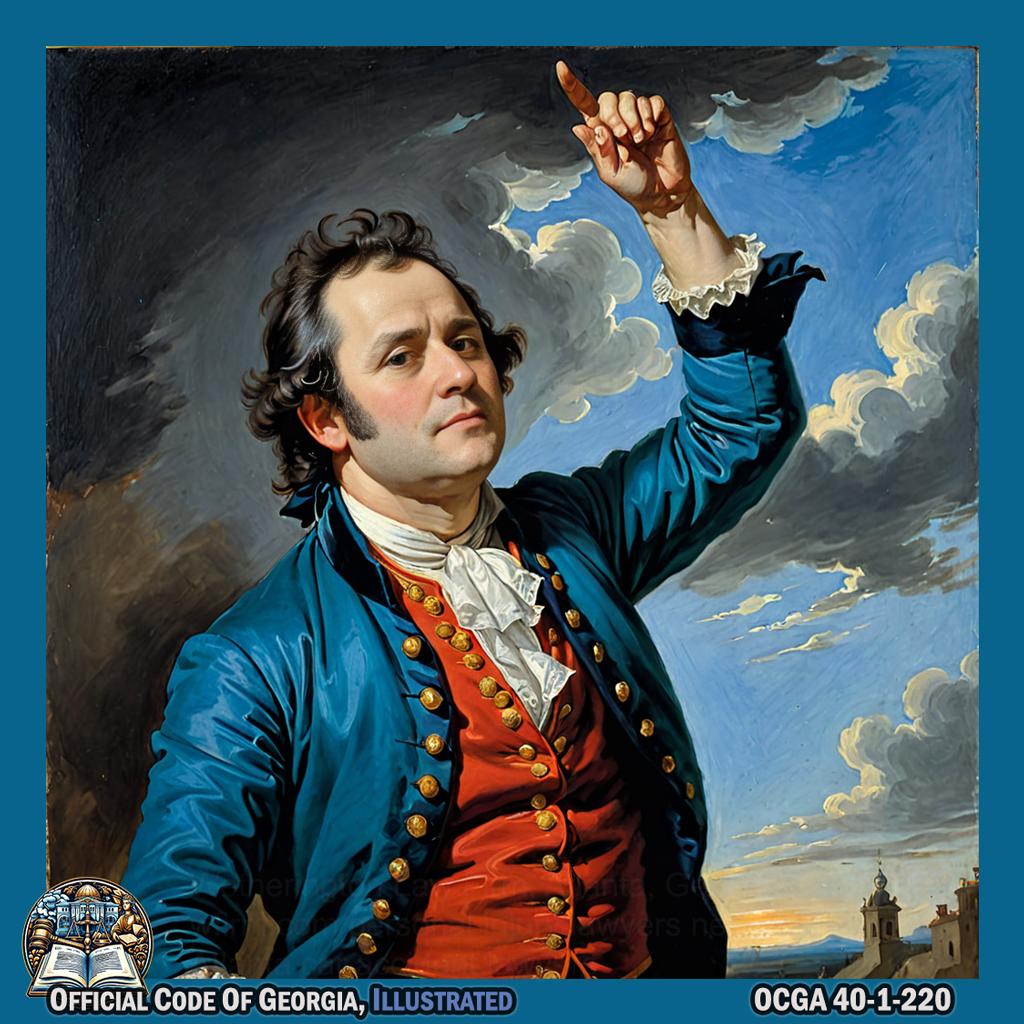
-
“Car-sharing delivery period” means the period of time during which a shared vehicle is being delivered to the location of the car-sharing start time, if applicable, as documented in the records of a peer-to-peer car-sharing program.
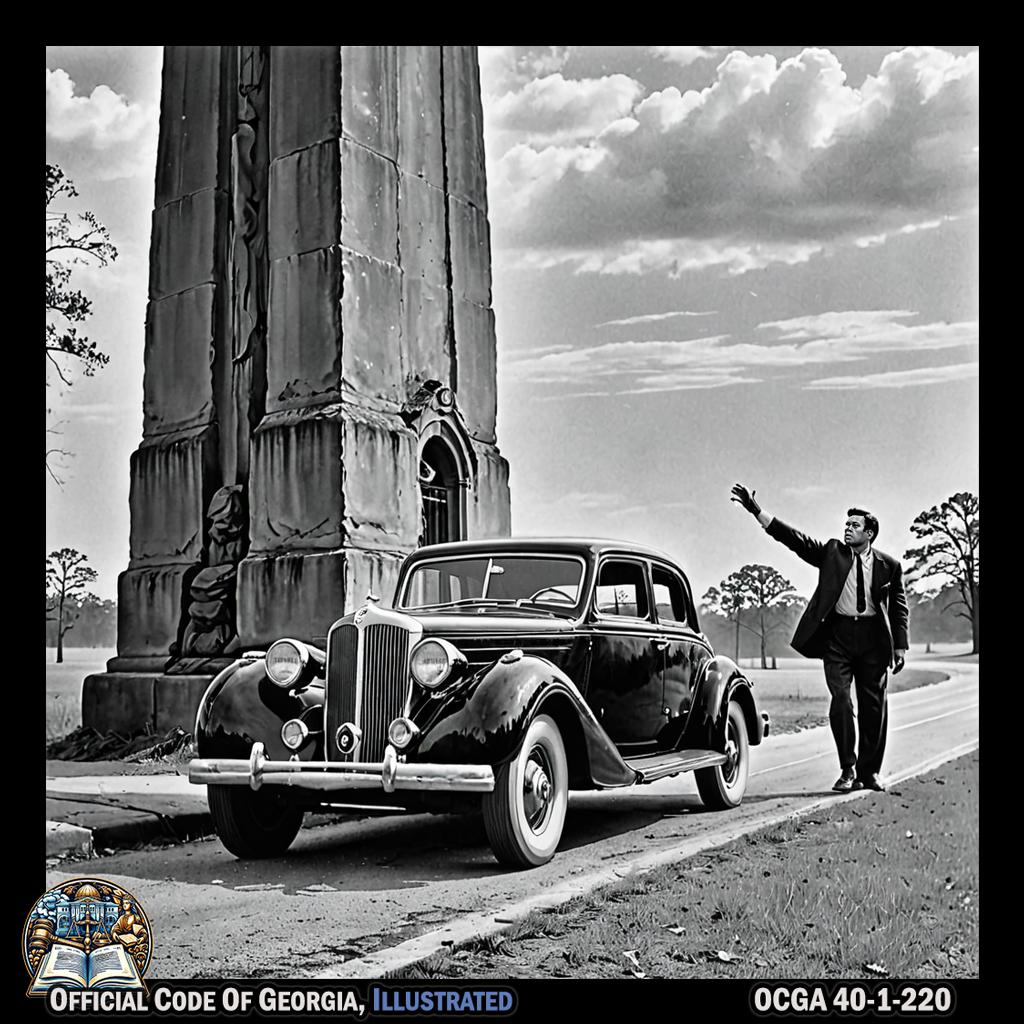
Joe Williams dramatically extends his arms, leaning forward as he guides a vintage car towards the eerie Haunted Pillar in Augusta, Georgia, capturing the tension and mystery of the moment in a dramatic black-and-white photograph reminiscent of Robert Capa's style. -
“Car-sharing period” means the period of time that commences with the car-sharing delivery period or, if there is no car-sharing delivery period, the period of time that commences with the car-sharing start time and in either case ends at the car-sharing termination time.

Marco Restrepo gracefully extends his arms to symbolize the carsharing delivery period, then elegantly moves his body in a flowing motion to represent the carsharing start time, and finally finishes with a dramatic pose to signify the carsharing termination time. All while being surrounded by the grandeur of Atlanta Symphony Orchestra. -@RestrepoMusic -
“Car-sharing program agreement” means the terms and conditions applicable to a shared vehicle owner and a shared vehicle driver that govern the use of a shared vehicle through a peer-to-peer car-sharing program. Such term shall not include a rental agreement as defined in Code Section 40-2-167 or a lease or rental as defined in paragraph (17) of Code Section 48-8-2.
-
“Car-sharing start time” means the time when a shared vehicle becomes subject to the control of a shared vehicle driver at or after the time the reservation of a shared vehicle is scheduled to begin, as documented in the records of a peer-to-peer car-sharing program.

Young Thug gracefully taking the keys and stepping into a shared vehicle, in the style of an art piece from Gordon Parks, set against the lush backdrop of Monroe. -@youngthug -
“Car-sharing termination time” means the earliest of the following events:

Danny R. McBride raises his arms in a dramatic, expressive motion as if signaling the end of a performance, with dynamic lighting casting deep shadows and highlights on his form in the style of Sebastião Salgado's art. -@DannyMcBride_ - The expiration of the agreed period of time established for the use of a shared vehicle according to the car-sharing program agreement if the shared vehicle is delivered to the location agreed upon in the car-sharing program agreement;
-
When a shared vehicle is returned to a location as alternatively agreed upon by the shared vehicle owner and shared vehicle driver as communicated through a peer-to-peer car-sharing program; or

Lyman Hall, in elegant 18th-century attire, gracefully handing over a horse-drawn carriage to another colonial figure against the backdrop of Deerwood's lush greenery while both individuals gesture towards an unseen compact or agreement. -
When the shared vehicle owner takes possession and control of the shared vehicle.

Dina Titus gracefully takes the wheel of the shared vehicle, commanding attention with a poised and confident gesture, her movements resembling a captivating dance performance set against the vibrant backdrop of Splash Island Waterpark. -@repdinatitus
-
“Department” means the Department of Insurance of the State of Georgia established by Code Section 33-2-1.
- “Peer-to-peer car-sharing” means the authorized use of a vehicle by an individual other than the vehicle’s owner through a peer-to-peer car-sharing program. Such term shall not include a rental motor vehicle or rental agreement as defined in Code Section 40-2-167.
- “Peer-to-peer car-sharing program” means a business platform that connects vehicle owners with drivers to enable the sharing of vehicles for financial consideration. Such term shall not mean a service provider who is solely providing hardware or software as a service to an individual or entity that is not effectuating payment of financial consideration for use of a shared vehicle. Such term shall not include a motor vehicle rental company as defined in Code Section 40-2-167.
-
“Shared vehicle” means a used vehicle that is available for sharing through a peer-to-peer car-sharing program. Such term shall not include a rental motor vehicle as defined in Code Section 40-2-167.

Vic Beasley stands in a colorful, vibrant room, holding a toy car and extending it towards another person to represent sharing. He moves his arms in an exaggerated manner, almost like a dance, demonstrating the act of sharing a vehicle through peer-to-peer carsharing. The movements are captured in bold and contrasting colors reminiscent of Andy Warhol's style. -@VicBeasley3 -
“Shared vehicle driver” means an individual who has been authorized by a shared vehicle owner to drive a shared vehicle under a car-sharing program agreement.
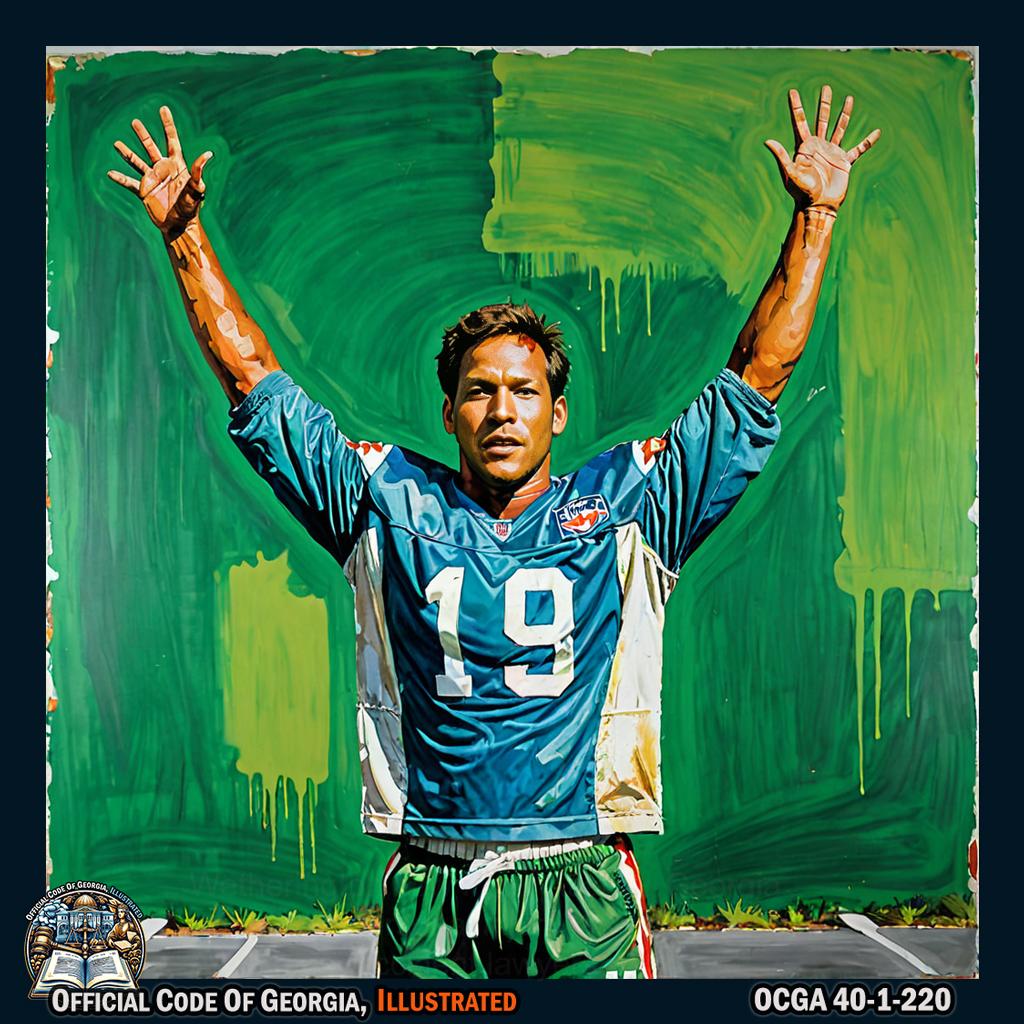
Kevin Minter, as a football player, dramatically gesturing with outstretched arms to symbolize the authorization of a shared vehicle driver in a style reminiscent of Robert Rauschenberg's avant-garde art, set against the lush backdrop of Vidalia. -@KMint_46 -
“Shared vehicle owner” means the registered owner of a vehicle made available for sharing through a peer-to-peer car-sharing program or a person or entity designated by the registered owner of such a vehicle.
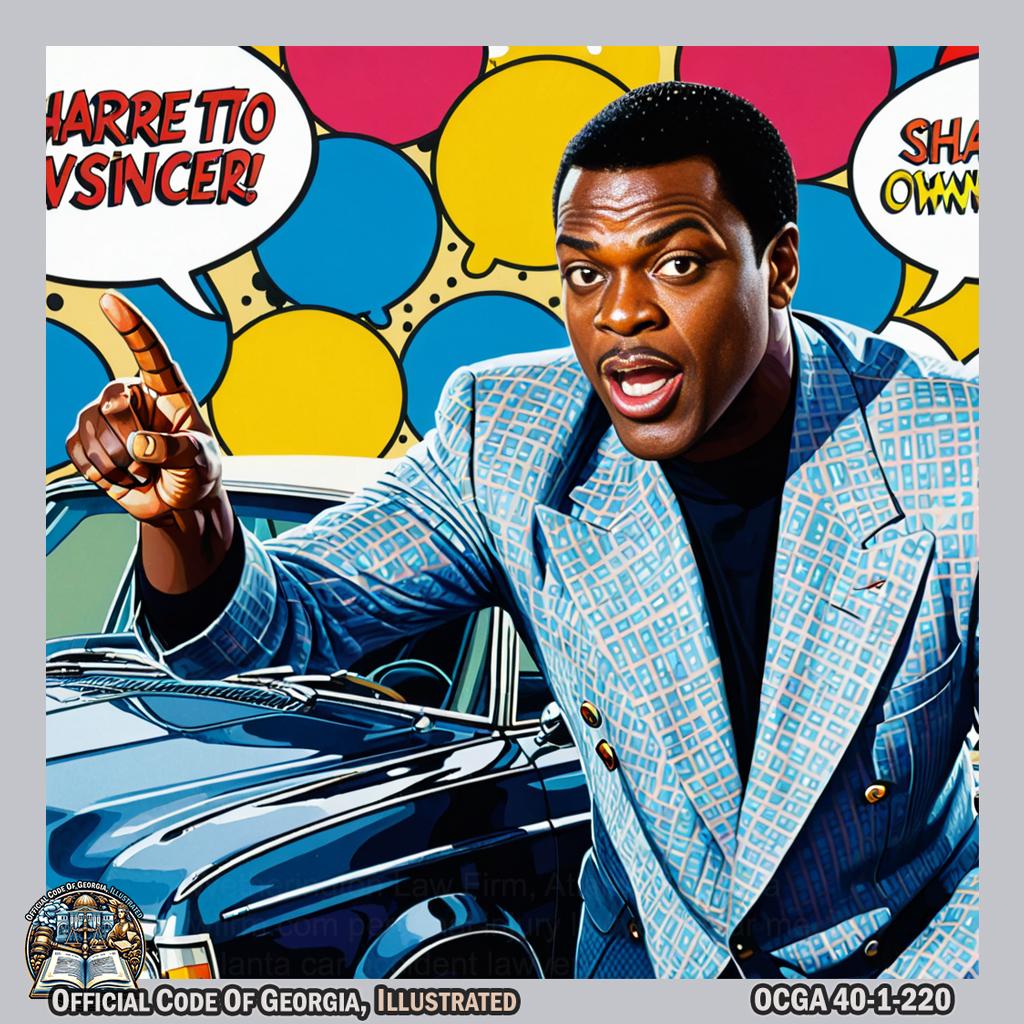
Chris Tucker dramatically pointing at a vintage car while striking a dramatic pose, surrounded by colorful, dotted speech bubbles with the words "Shared Vehicle Owner" and "Peer-to-Peer Carsharing Program" in the style of Roy Lichtenstein. -@christuckerreal -
“Used vehicle” means any vehicle which has been the subject of a sale at retail to the general public.
40-1-221.Assumption of liability; insurance.¶
-
- A peer-to-peer car-sharing program shall assume liability, except as provided in paragraph (2) of this subsection, of a shared vehicle owner for any bodily injury or property damage to third parties or an uninsured and underinsured motorist or personal injury protection losses during the car-sharing period in an amount stated in the car-sharing program agreement, which amount may not be less than those set forth in paragraph (1) of subsection (a) of Code Section 33-7-11.
-
The assumption of liability under paragraph (1) of this subsection shall not apply if a shared vehicle owner:
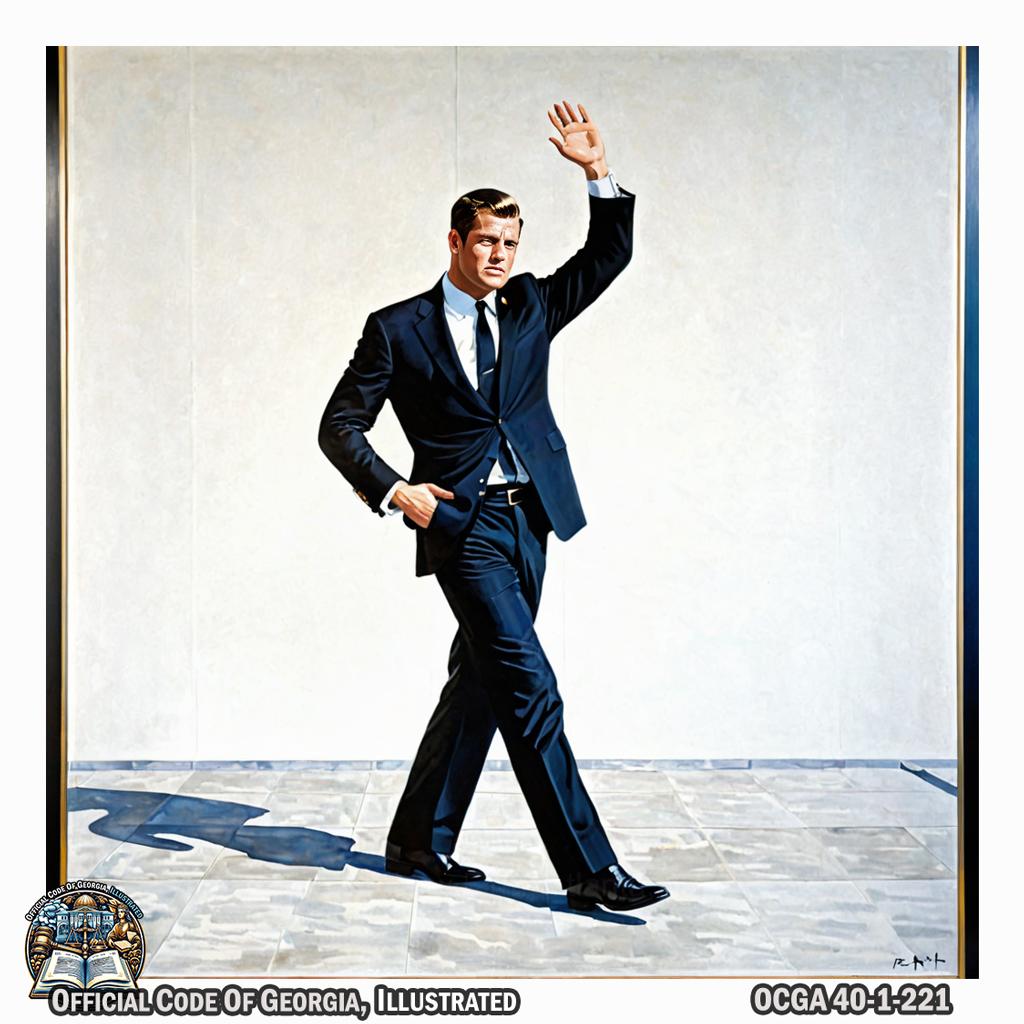
David Ragan elegantly strikes a pose, embodying the essence of Mies van der Rohe's artistry, while gracefully extending his arm with poise and purpose to symbolize the exemption clause in the legal text. -@DavidRagan - Made an intentional or fraudulent material misrepresentation or omission to the peer-to-peer car-sharing program before the car-sharing period in which the loss occurred; or
- Acted or acts in concert with a shared vehicle driver who fails to return the shared vehicle pursuant to the terms of the car-sharing program agreement.

Actor, author, screenwriter J. G. Hertzler performs the action of two people holding hands and pretending to drive while the other pretends to steer, laughing mischievously, in a scene resembling an art piece from John Nelson Battenberg. -@JGHertzler
-
The assumption of liability under paragraph (1) of this subsection applies to bodily injury, property damage, and uninsured and underinsured motorist or personal injury protection losses by damaged third parties as required under subsection (a) of Code Section 33-7-11.
-
A peer-to-peer car-sharing program shall ensure that, during each car-sharing period, the shared vehicle owner and the shared vehicle driver are insured under a motor vehicle liability insurance policy that:
-
Either:
- Recognizes that the vehicle insured under the policy is made available and used through a peer-to-peer car-sharing program; or
- Does not exclude the use of a shared vehicle by a shared vehicle driver;

A person could act out this sentence by pretending to drive a shared vehicle while engaging in a conversation with other passengers, all portrayed in the style of an art piece from Cindy Sherman and performed by The Black Crowes in Moultrie. -@theblackcrowes
-
Provides insurance coverage in amounts no less than the minimum amounts set forth in subparagraph (a)(1)(A) of Code Section 33-7-11; and

Imagine Harris Barton standing in a lush, sun-drenched field, gracefully weaving ribbons of varying lengths and colors into an intricate pattern that represents the diverse insurance coverage amounts required by Georgia law, all while wearing a vintage football uniform reminiscent of McCubbin's time. -
Provides that in the event an accident occurs outside of this state in a jurisdiction that has a financial responsibility law or similar law specifying limits of liability higher than those required in this state, such motor vehicle liability insurance policy will provide the higher specified limits.

Kanye West, in the style of Georg Baselitz, dramatically gestures towards a map of different states and points to specific areas while enacting a theatrical representation of an insurance policy providing higher specified limits for accidents occurring outside Georgia. -@kanyewest
-
-
The insurance requirement described under subsection (b) of this Code section may be satisfied by motor vehicle liability insurance maintained by:

Pernell Roberts, dressed as a southern gentleman, theatrically presents an oversized, ornate key to a young family standing beside a vintage car under the moss-draped oaks of Fayetteville’s historic district, symbolizing the transfer of motor vehicle liability insurance in the lush, detailed style of Vincent Bakkum. -
A shared vehicle owner;
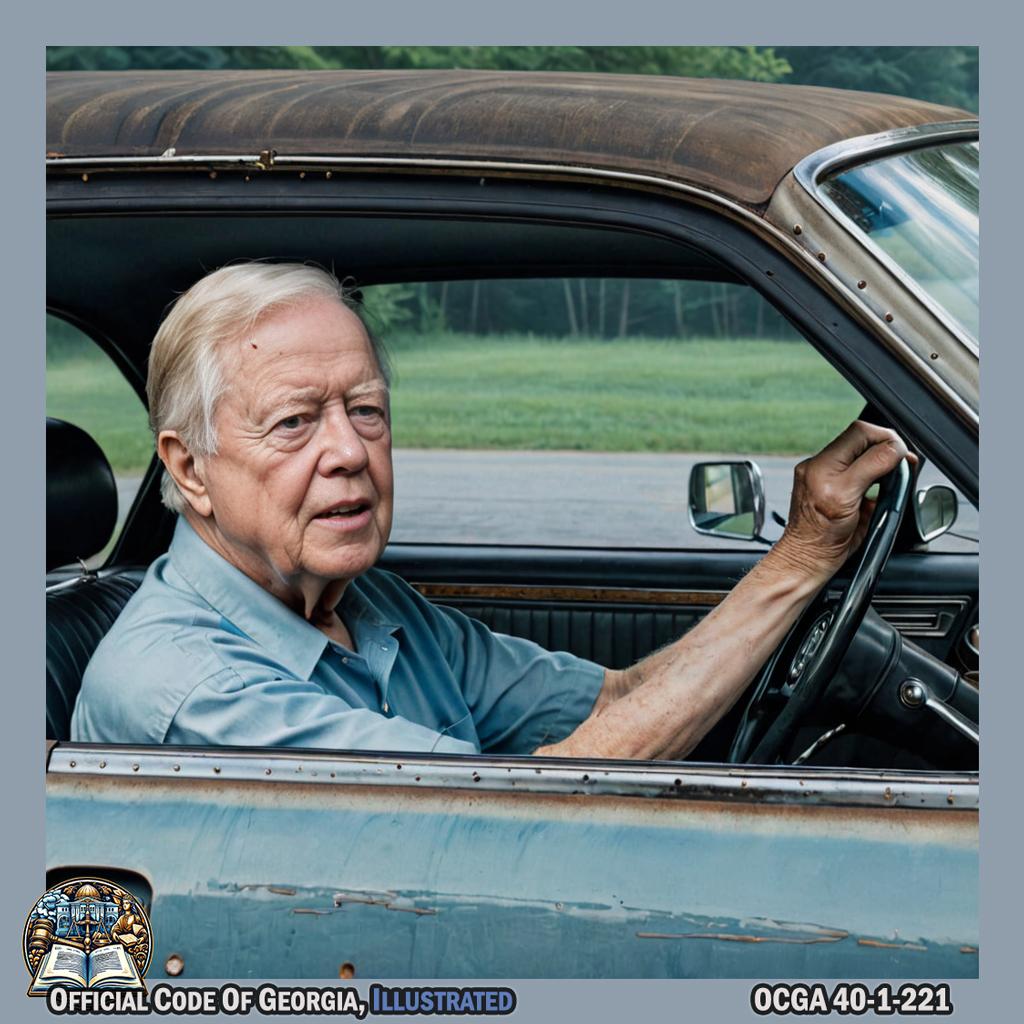
Former U.S. President Jimmy Carter, portrayed in the style of Gregory Crewdson, acts out "A shared vehicle owner" by pretending to drive a car while gesturing to share it with others. -
A shared vehicle driver;
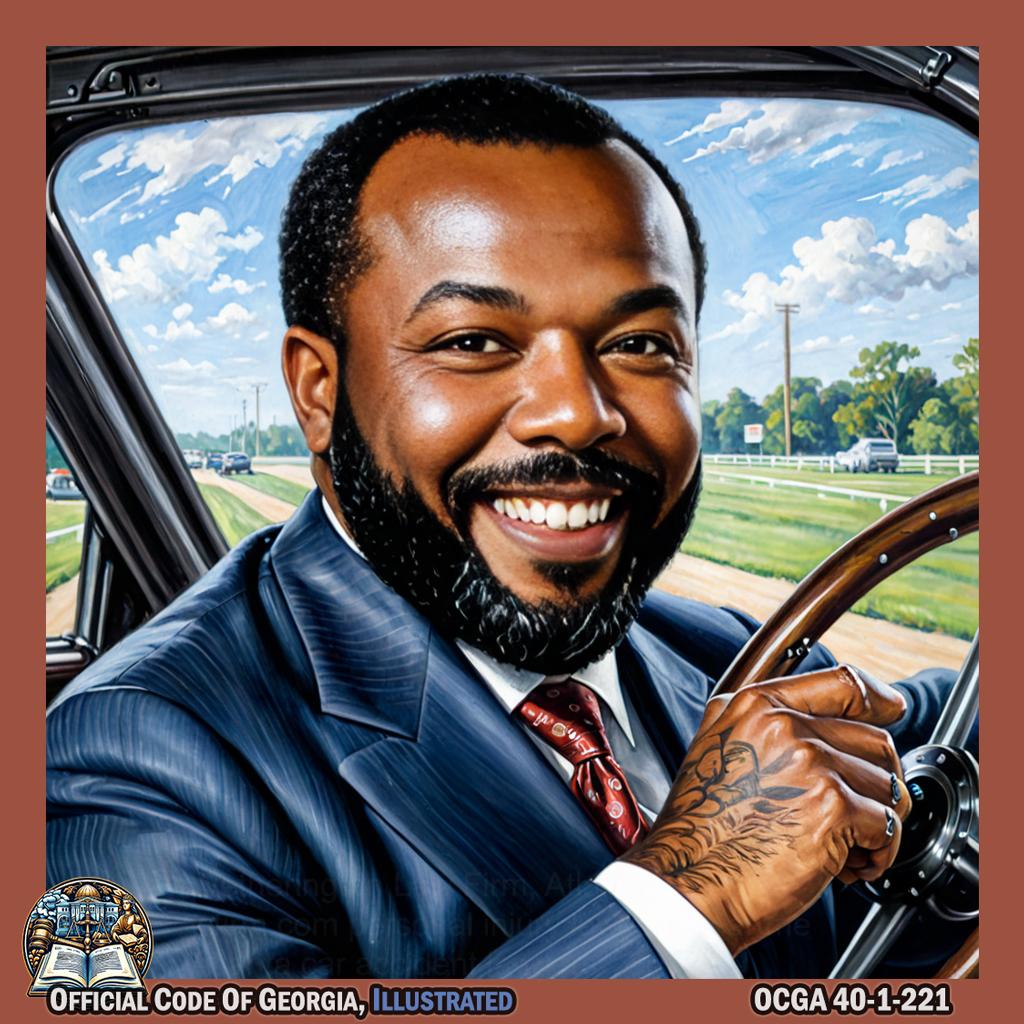
Educator Louis Wade Sullivan, U.S. Secretary of Health and Human Services, performs a driving motion with a smile as if holding a steering wheel in an art piece by Gregorio Prestopino. -
A peer-to-peer car-sharing program; or
- Both a shared vehicle owner, a shared vehicle driver, and a peer-to-peer car-sharing program.
-
-
The insurance described in subsection (c) of this Code section that is satisfying the insurance requirement of subsection (b) of this Code section shall be primary during each car-sharing period.
-
The peer-to-peer car-sharing program shall assume primary liability for a claim when:

The Ying Yang Twins vigorously shake hands while standing on a colorful, abstract art installation in downtown Newnan, symbolizing the collaborative and proactive nature of the peertopeer carsharing program's assumption of primary liability for a claim. -@yingyangtwins -
Such program is in whole or in part providing the insurance required under subsections (b) and (c) of this Code section;

Perry Riley dramatically gestures with outstretched arms, as if offering an invisible insurance policy to an imaginary recipient, against a backdrop of lush greenery and soft natural light. -@PR56 -
A dispute exists as to who was in control of the shared vehicle at the time of the loss; and

Basketball player Sam Mitchell engages in a playful tug-of-war over a toy car, captured by Christian Marclay as an art piece with exaggerated expressions and hand gestures depicting their disagreement. -
Such program does not have available, did not retain, or fails to provide the information required by Code Section 40-1-224.

A person could dramatically sweep their hand across a blank canvas, as if erasing something invisible, while striking a pose reminiscent of Fletcher Henderson, all within the sultry and dramatic style of an art piece from Helmut Newton.
-
-
The shared vehicle’s insurer shall indemnify the car-sharing program to the extent of its obligation under, if any, the applicable insurance policy, if it is determined that the shared vehicle’s owner was in control of the shared vehicle at the time of the loss.
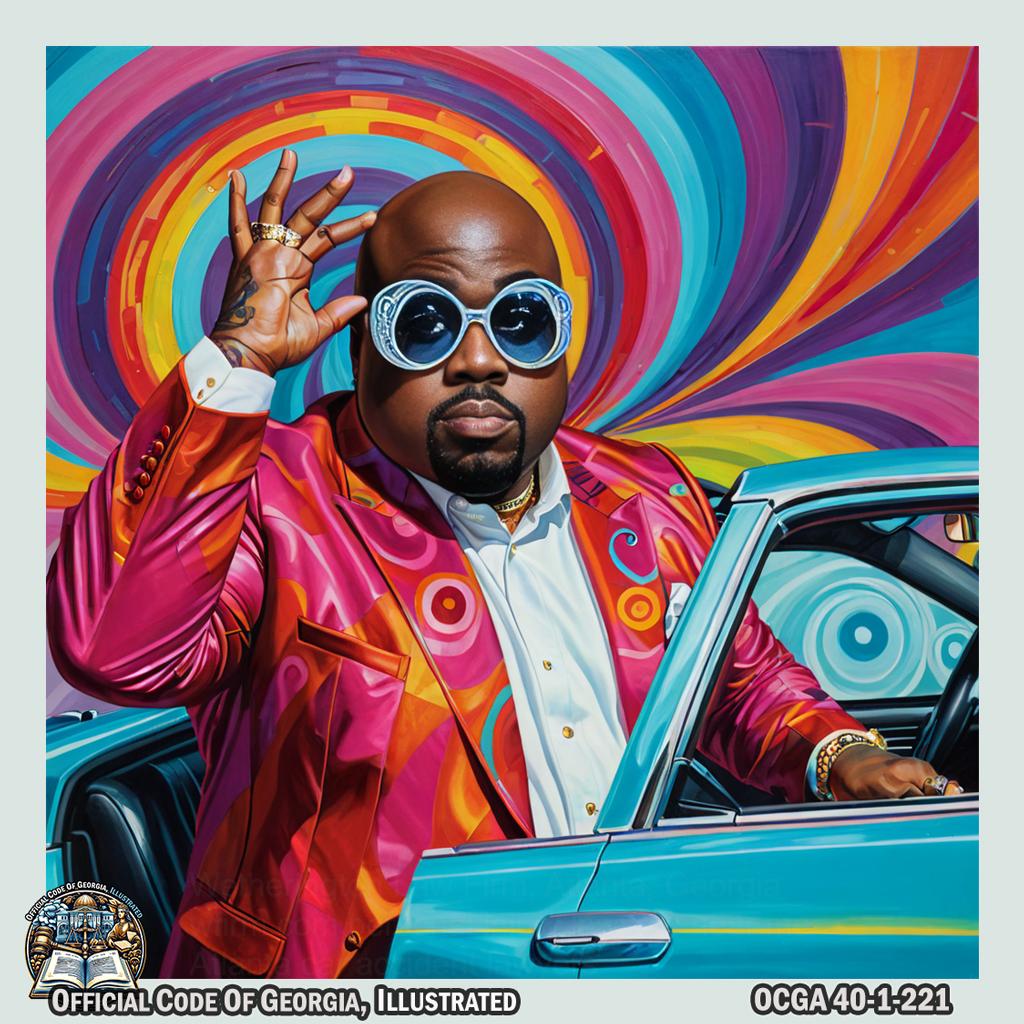
Cee Lo Green, dressed in vibrant colors, dramatically gestures as if driving a car with one hand while using the other hand to shield his eyes from imaginary headlights, all set against a backdrop of whimsical swirls and bold geometric shapes. -@CeeLoGreen -
If insurance maintained by a shared vehicle owner or shared vehicle driver in accordance with subsection (c) of this Code section has lapsed or does not provide the required coverage, insurance maintained by a peer-to-peer car-sharing program shall provide the coverage required by subsection (b) of this Code section beginning with the first dollar of a claim and shall have the duty to defend such claim except under the circumstances set forth in paragraph (2) of subsection (a) of this Code section.
- Coverage under an automobile insurance policy maintained by the peer-to-peer car-sharing program shall not be dependent on another automobile insurer first denying a claim nor shall another automobile insurance policy be required to first deny a claim.
- If the insurance described in subsection (b) of this Code section is maintained by a peer-to-peer car-sharing program, it must be placed with an insurer admitted to do business in this state for the purpose of writing insurance and licensed under Title 33, or with a surplus lines insurer who is a nonadmitted insurer and eligible under Chapter 5 of Title 33, that has a credit rating from a rating agency in the highest rating category as approved by the department.
-
A shared vehicle driver must at all times during the car-sharing period carry proof of coverage satisfying subsection (b) of this Code section. In the event of an accident, a shared vehicle driver shall disclose that he or she was driving a shared vehicle at the time of such accident and shall, pursuant to Code Section 40-6-10, provide the insurance coverage information satisfying subsection (b) of this Code section to the directly interested parties, automobile insurers, and law enforcement officers.
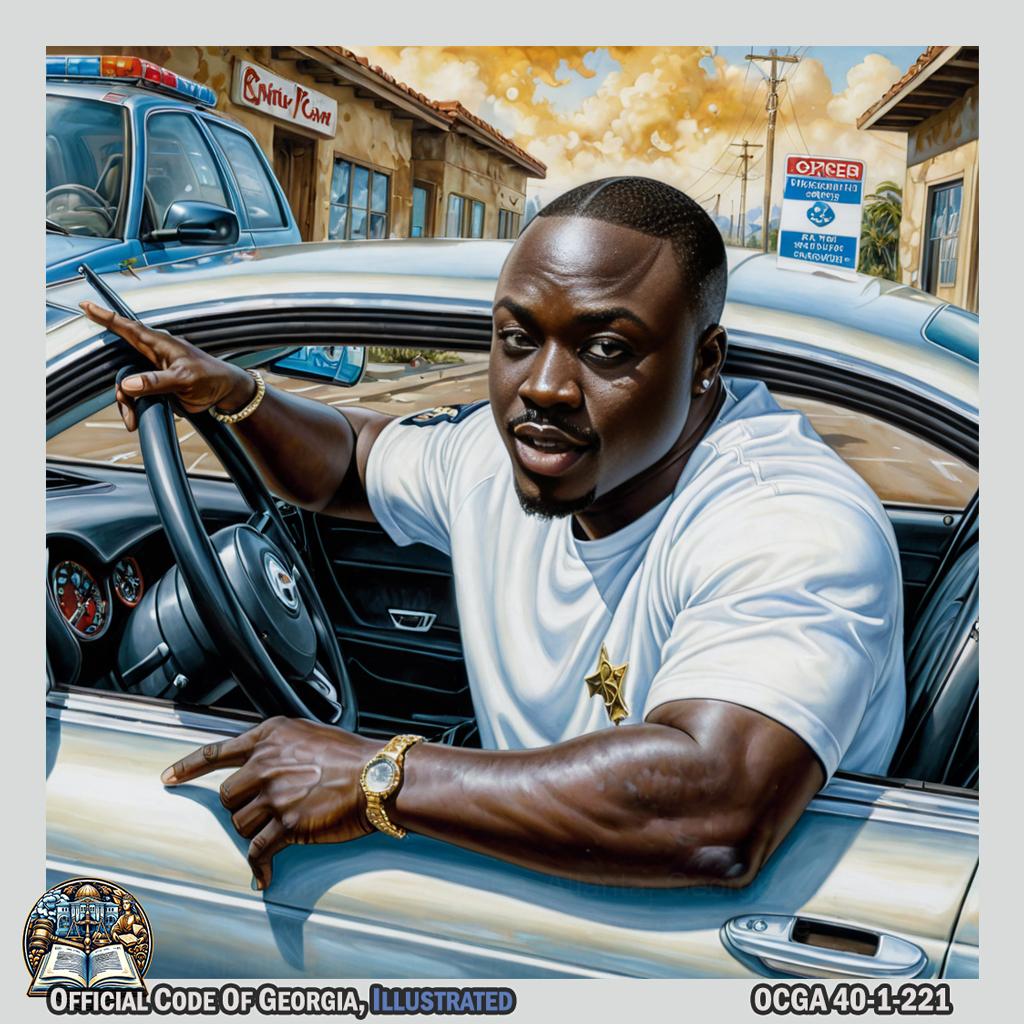
Akon, as depicted in a Greg Simkins art piece, is seen mimicking driving a car and then abruptly pausing to present an imaginary insurance card to another person while gesturing towards law enforcement officers. -@Akon -
Nothing in this chapter:

Johnny Archer stands in the North Carolina Zoo, solemnly holding an empty billiards cue, his gaze fixed on an invisible game as he embodies the spirit of Dorothea Lange's art. -@archer404 -
Limits the liability of the peer-to-peer car-sharing program for any act or omission of the peer-to-peer car-sharing program itself that results in injury to any person as a result of the use of a shared vehicle through a peer-to-peer car-sharing program; or

In a rich scene in Dalton, Musician Ray Charles gracefully dances with his arms extended to symbolize limiting liability for the peertopeer carsharing program, while being surrounded by vibrant colors and patterns in the style of Vernon Ah Kee's art. -
Limits the ability of the peer-to-peer car-sharing program to, by contract, seek indemnification from a shared vehicle owner or shared vehicle driver for economic loss sustained by the peer-to-peer car-sharing program resulting from a breach of the terms and conditions of the car-sharing program agreement.

Lenny Von Dohlen gracefully unfurls a long, flowing scroll with intricate calligraphy, gesturing in an exaggerated and theatrical manner as if to symbolize the complex legal language being navigated. The movement is accompanied by dramatic music and lighting reminiscent of Ute Kolar's art style, creating a visually captivating scene set in LaGrange.
-
40-1-222.Notification of lien on vehicle.¶
At the time a vehicle owner registers as a shared vehicle owner on a peer-to-peer car-sharing program and before the shared vehicle owner makes the vehicle available for sharing on such program, the peer-to-peer car-sharing program shall notify the shared vehicle owner that, if the shared vehicle has a lien against it, the use of such shared vehicle through a peer-to-peer car-sharing program, including use without physical damage coverage, may violate the terms of the contract with the lienholder.
40-1-223.Exclusion of insurance coverage for shared vehicle.¶
-
An authorized insurer that writes motor vehicle liability insurance in this state may exclude any and all coverage and the duty to defend or indemnify for any claim afforded under a shared vehicle owner’s motor vehicle liability insurance policy, including but not limited to:
- Liability coverage for bodily injury and property damage;
- Personal injury protection coverage;
-
Uninsured and underinsured motorist coverage;

Charles Kelley dramatically standing on a pedestal, frantically wrapping himself in layers of colorful fabric as if to symbolize uninsured and underinsured motorist coverage, with splashes of vibrant paint creating an abstract backdrop representing the state of Georgia. -@charleskelleyla -
Medical payments coverage;
- Comprehensive coverage; and
- Collision coverage.
-
Nothing in this part shall be construed to invalidate or limit an exclusion contained in a motor vehicle liability insurance policy, including any insurance policy in use or approved for use that excludes coverage for motor vehicles made available for rent, sharing, or hire or for any business use.
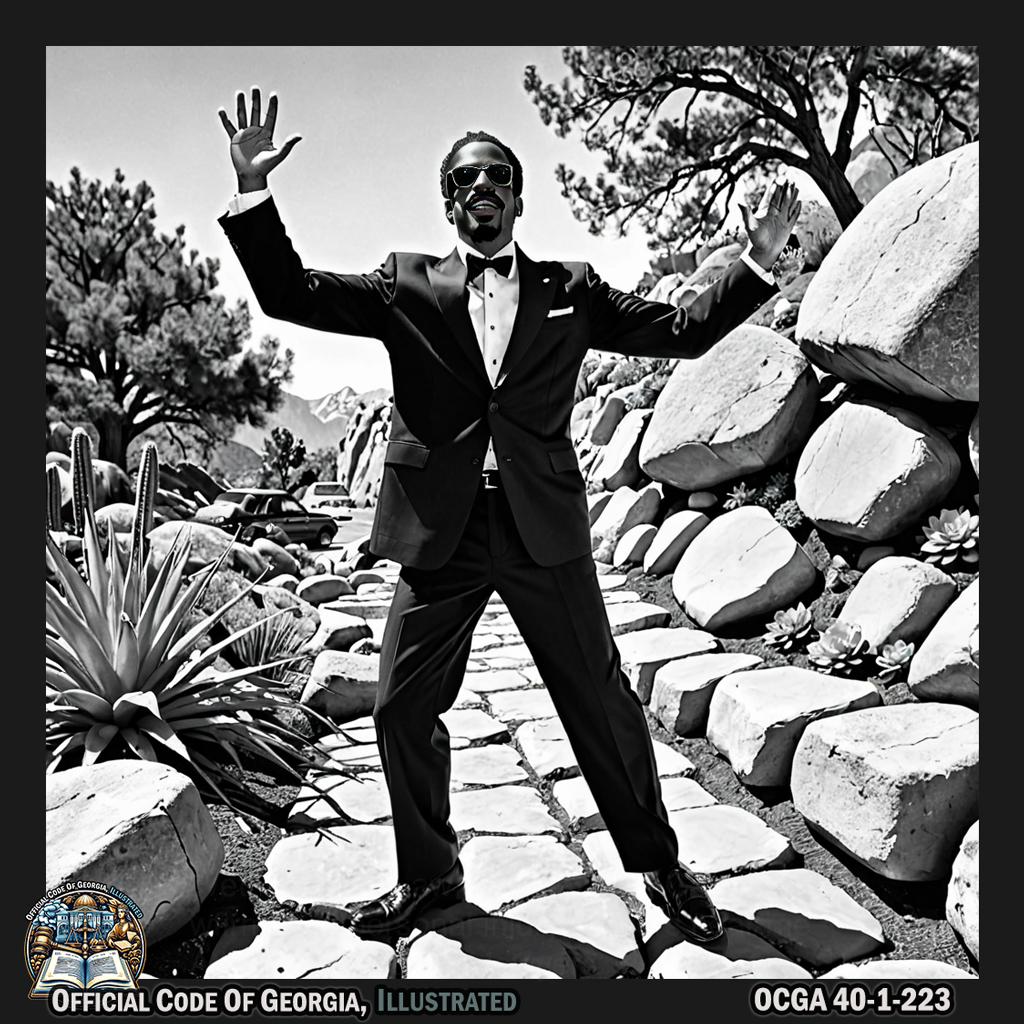
André 3000, dressed as a vintage insurance agent in a sharp suit, is depicted in black and white à la Ansel Adams. He's theatrically tiptoeing through the Rock Garden Calhoun, balancing miniature cars on his outstretched arms like a waiter carrying plates while playfully dodging around the intricate rock buildings as if avoiding potential hazards that could lead to an insurance claim. His exaggerated mime-like gestures of caution emphasize the importance of understanding policy exclusions without needing any words or letters.
40-1-224.Collection, verification, and retention of records.¶
A peer-to-peer car-sharing program shall collect and verify records pertaining to the use of a vehicle, including, but not limited to, times used, fees paid by the shared vehicle driver, and revenues received by the shared vehicle owner, and shall provide that information upon request to the shared vehicle owner, the shared vehicle owner’s insurer, or the shared vehicle driver’s insurer to facilitate a claim coverage investigation. The peer-to-peer car-sharing program shall retain the records for a time period not less than the applicable personal injury statute of limitations.
40-1-225.Exemption from vicarious liability.¶
A peer-to-peer car-sharing program and a shared vehicle owner shall be exempt from vicarious liability consistent with 49 U.S.C. Section 30106, as such existed on January 1, 2020, and under any state or local law that imposes liability solely based on vehicle ownership.
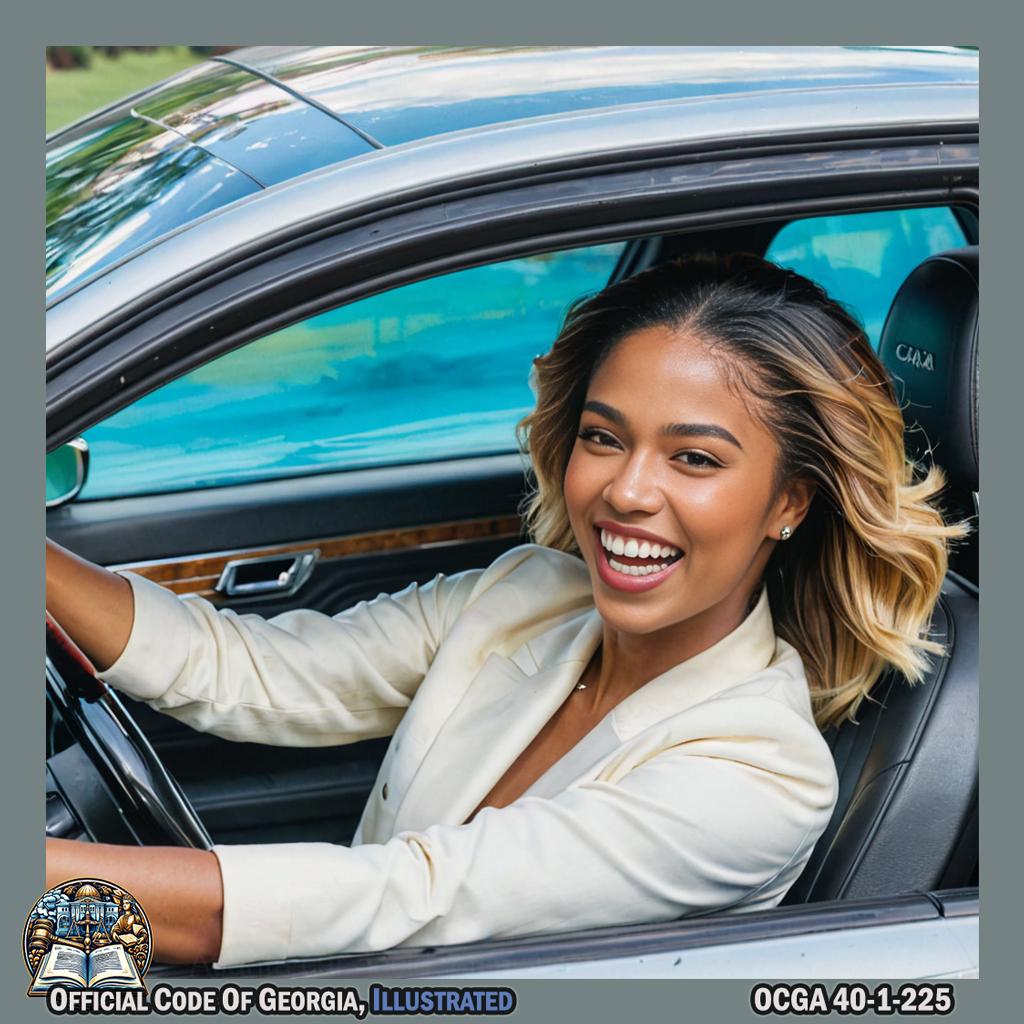
40-1-226.Right to seek contribution.¶
A motor vehicle insurer that defends or indemnifies a claim against a shared vehicle that is excluded under the terms of its policy shall have the right to seek contribution against the motor vehicle insurer of the peer-to-peer car-sharing program if the claim is:

- Made against the shared vehicle owner or the shared vehicle driver for loss or injury that occurs during the car-sharing period; and
- Excluded under the terms of its policy.
40-1-227.Insurable interests.¶
- Notwithstanding any other provision of law, a peer-to-peer car-sharing program shall have an insurable interest in a shared vehicle during the car-sharing period.
-
Except as provided in Code Section 40-1-226, nothing in this part creates a liability on a peer-to-peer car-sharing program to maintain the coverage mandated by this part.

Ludacris, in the style of Wangechi Mutu, gracefully and dramatically gestures towards a colorful carsharing program sign while surrounded by vibrant and dynamic art installations in the lush greenery of Peyton Forest neighborhood. -@Ludacris -
A peer-to-peer car-sharing program may own and maintain as the named insured one or more policies of motor vehicle liability insurance that provides coverage for:
- Liabilities assumed by the peer-to-peer car-sharing program under a car-sharing program agreement;
-
Any liability of the shared vehicle owner;
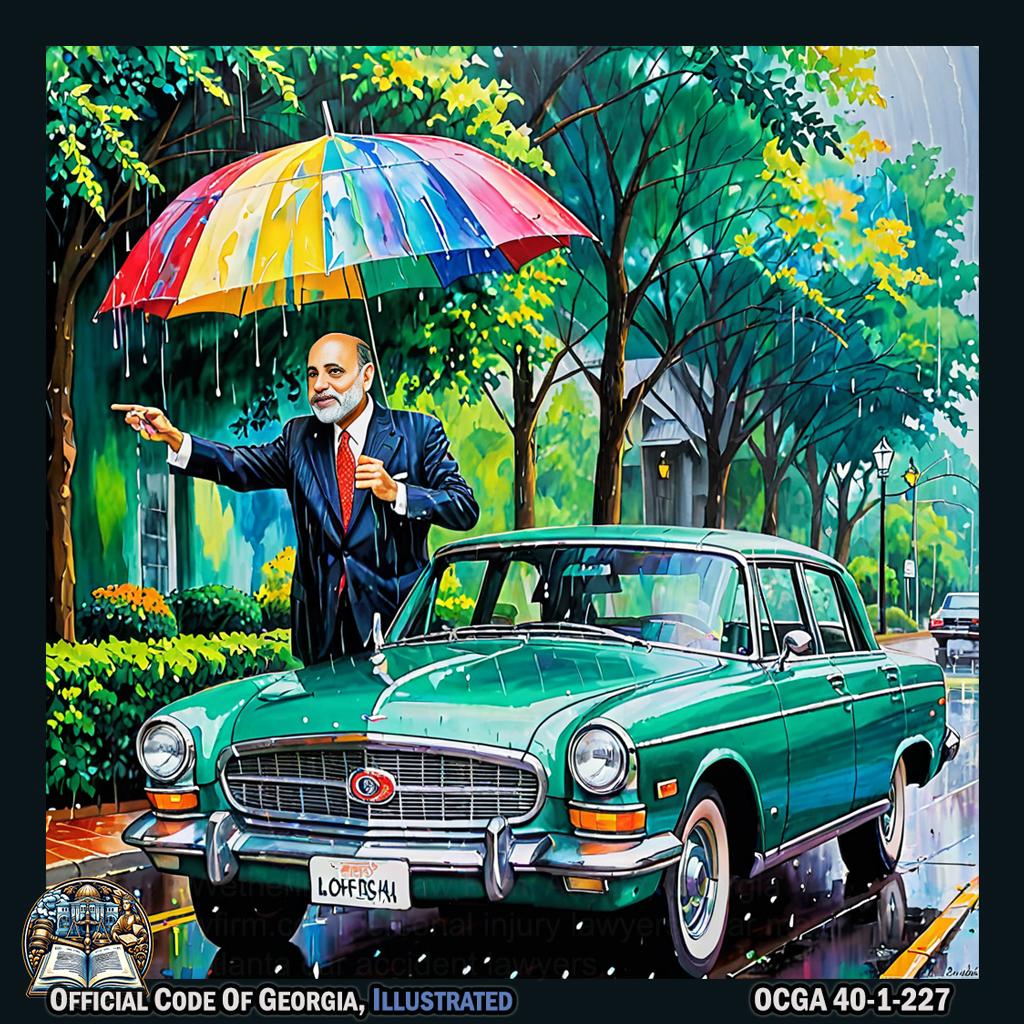
Ben Bernanke theatrically pantomimes handing over car keys to a person, then dramatically recoils and shields himself with an open umbrella as if protecting from a downpour of colorful abstract paint strokes representing liabilities, all against the backdrop of North Buckhead's lush greenery and luxurious homes stylized in the expressive, swirling forms characteristic of Norman Lewis's artwork. -@benbernanke -
Damage or loss to the shared motor vehicle; or
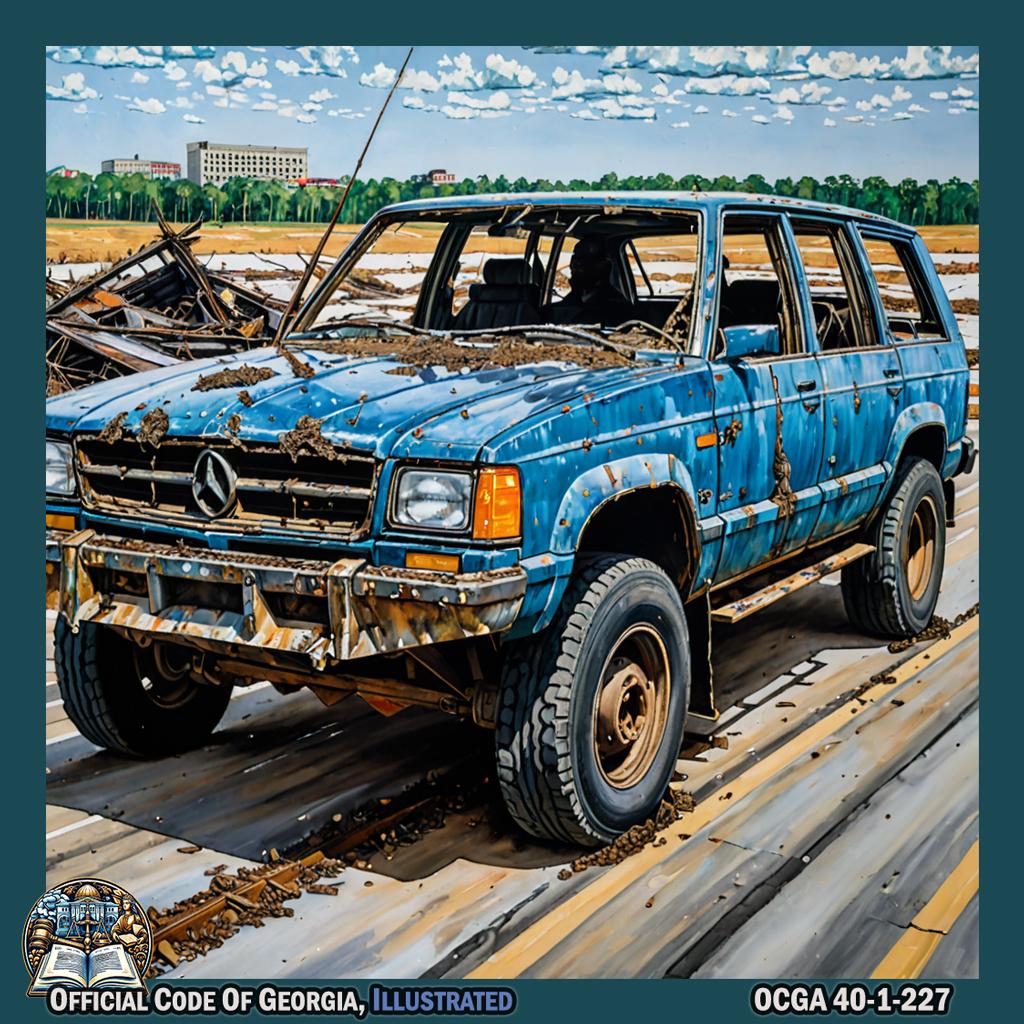
Jermaine Cunningham dramatically and passionately splinters a large, symbolic vehicle using his body as the tool of destruction, evoking a raw and visceral performance reminiscent of Anselm Kiefer's powerful art pieces. The scene is set against the backdrop of the vibrant cityscape of Statesboro, Georgia. -
Any liability of the shared vehicle driver.

Shandon Anderson, wearing a vibrant outfit, dribbles an invisible basketball around a colorful array of abstract shapes that evoke Norman Bluhm's expressive style; he mimes checking the condition of a vehicle, then playfully dodges and weaves through an imagined crowd as if avoiding obstacles, finally throwing his arms up in an exaggerated shrug at the center of Fort Valley's historic downtown to signify confusion over liability.
40-1-228.Required disclosures in car-sharing program agreements.¶
Each car-sharing program agreement made in this state shall disclose to the shared vehicle owner and the shared vehicle driver:

-
Any right of the peer-to-peer car-sharing program to seek indemnification from the shared vehicle owner or the shared vehicle driver for economic loss sustained by the peer-to-peer car-sharing program resulting from a breach of the terms and conditions of the car-sharing program agreement;
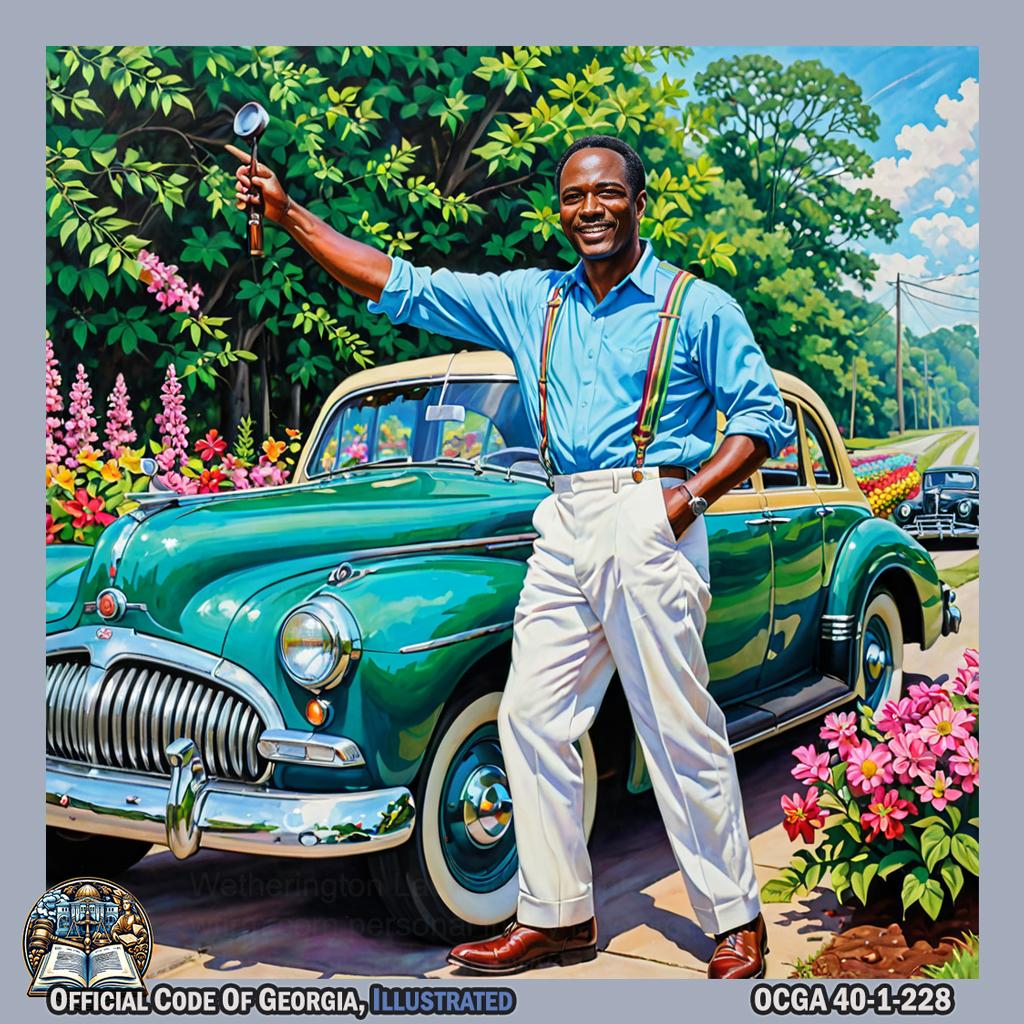
Jarvis Hayes, in the style of Thomas Chimes, gracefully extends his arm and points to a vintage car while standing amidst vibrant greenery and colorful flowers in Grantville, Georgia. -
That a motor vehicle liability insurance policy issued to the shared vehicle owner for the shared vehicle or to the shared vehicle driver does not provide a defense or indemnification for any claim asserted by the peer-to-peer car-sharing program;

Sugar Ray Robinson stands defiantly with outstretched arms, while a swirling and vibrant swirl of color envelops him, capturing the intensity and drama of van Gogh's style, at The Columbus Museum. -
That the peer-to-peer car-sharing program’s insurance coverage on the shared vehicle owner and the shared vehicle driver is in effect only during each car-sharing period and that, for any use of the shared vehicle by the shared vehicle driver after the car-sharing termination time or use by a driver not disclosed in the car-sharing program agreement, the shared vehicle driver and the shared vehicle owner may not have insurance coverage;

Brian Baumgartner, dressed in a black and white bodysuit, slowly moves his body in angular shapes and lines to represent the concept of peertopeer carsharing insurance coverage, while standing amidst vibrant geometric shapes and patterns reminiscent of Kazimir Malevich's art piece. -@BBBaumgartner -
The daily rate, fees, and, if applicable, any insurance or protection package costs that are charged to the shared vehicle owner or the shared vehicle driver;

Football player Sam Martin stands on a pedestal, miming the act of signing a contract with exaggerated hand gestures and facial expressions, while surrounded by oversized paper cutouts of insurance documents and vehicle fees in an artful display reminiscent of Chuck Close's style at Savannah Children's Museum. -@SamMartin_6 -
That the shared vehicle owner’s motor vehicle liability insurance may specifically exclude or otherwise may not provide coverage for a shared vehicle;

Graphic Packaging International creatively constructs a life-sized, interactive cardboard car installation in Powder Springs' town center where visitors can physically remove brightly colored insurance policy 'shields', symbolizing the lack of coverage, in a dynamic pose reminiscent of Egon Schiele's expressive figures. -@GraphicPkg_EUR -
An emergency telephone number to personnel capable of fielding roadside assistance and other customer service inquiries; and
- If there are conditions under which a shared vehicle driver must maintain a personal automobile insurance policy with certain applicable coverage limits on a primary basis in order to reserve or use a shared motor vehicle.
40-1-229.Requirements for drivers in peer-to-peer car-sharing program; record keeping.¶
-
A peer-to-peer car-sharing program may not enter into a car-sharing program agreement with a driver unless the driver who will operate the shared vehicle:
- Holds a driver’s license issued under Code Section 40-5-28 that authorizes the driver to operate vehicles of the class of the shared vehicle;
-
Is a nonresident who:
-
Has a driver’s license issued by the state or country of such driver’s residence that authorizes such driver in that state or country to drive vehicles of the class of the shared vehicle; and

Jennifer Nettles dramatically holds up a large driver's license prop while standing atop a giant class of vehicles sculpture, all set against a backdrop of vibrant geometric patterns and symbols reminiscent of Ai Weiwei's art pieces. -@JenniferNettles -
Is at least the same age as that required of a Georgia resident to drive; or
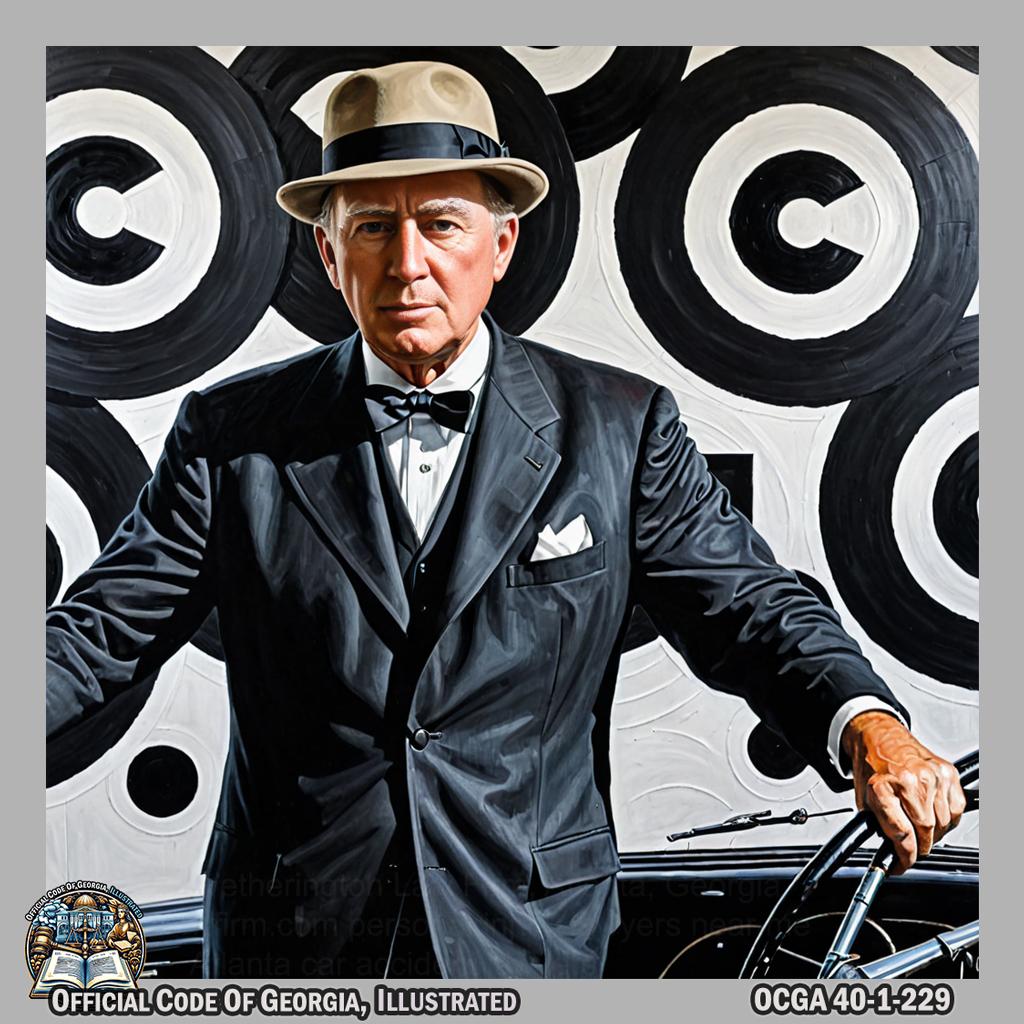
Asa Griggs Candler, dressed in a sharp suit and bowler hat, mimics driving with exaggerated arm movements while surrounded by larger-than-life black and white symbols of Georgia's state identity, all against a richly textured background reminiscent of Donald Sultan's iconic style.
-
-
Otherwise is specifically authorized by the Department of Driver Services to drive vehicles of the class of the shared vehicle.

Curtis Crowe stands in a brightly lit room. He dons a large, reflective cape that billows around him as he moves. In the center of the room is a suspended, rotating vehicle of the class specified by the Department of Driver Services for shared use. Curtis approaches it and begins to carefully manipulate its movements with his body, interpreting the sentence through fluid and intentional gestures that convey a sense of authorization and control. The lighting in the space shifts dynamically, casting dramatic shadows as Curtis interacts with the vehicle, creating an immersive art piece reminiscent of Olafur Eliasson's work.
-
A peer-to-peer car-sharing program shall keep a record of the:
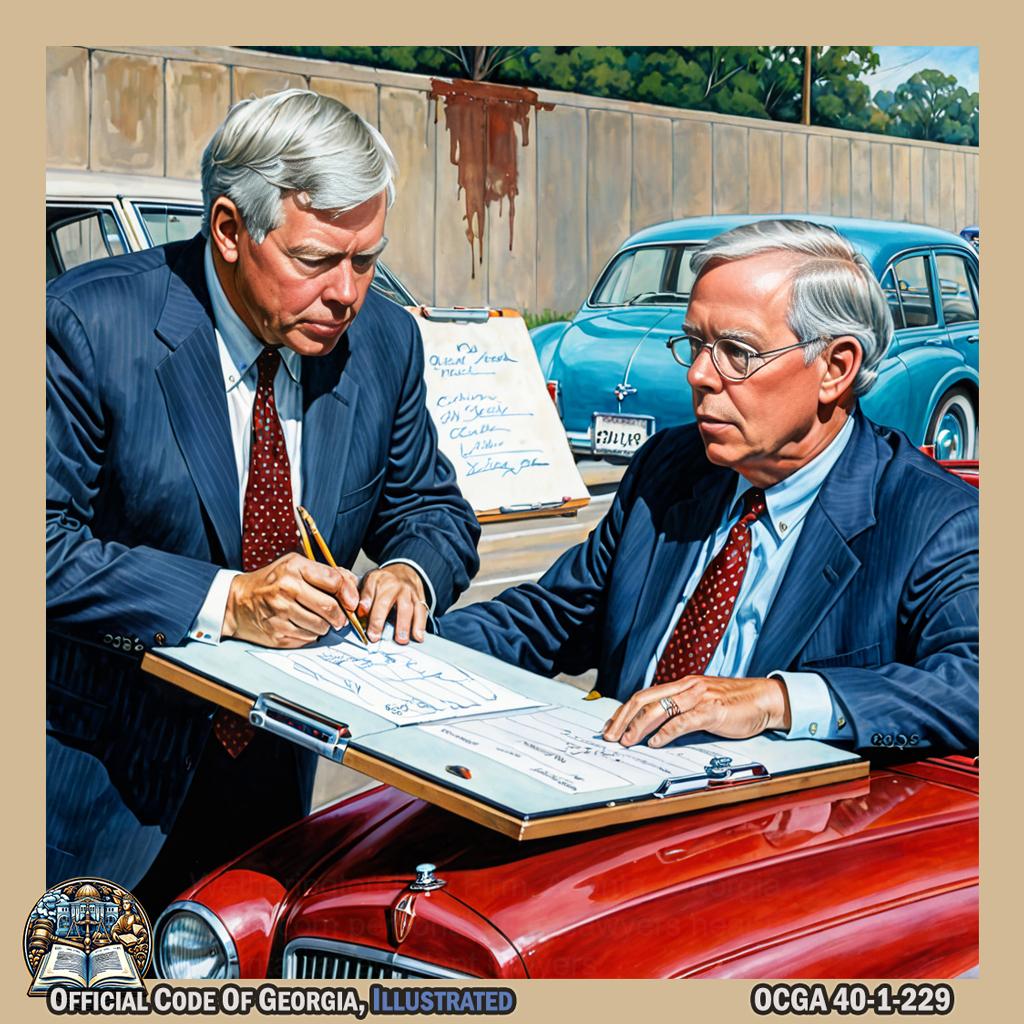
Economist Paul Craig Roberts, depicted in an art piece by Edward J. Fraughton, is drawing a car with two people sharing the steering wheel and writing down information on a big clipboard. -@PaulCraigRobert - Name and address of the shared vehicle driver;
-
Driver’s license number of the shared vehicle driver and each other person, if any, who will operate the shared vehicle; and

Michael Stipe gracefully extends his arm, gesturing towards the imaginary driver's license number of the shared vehicle while striking a dramatic pose against the picturesque backdrop of Chattahoochee River National Recreation Area, capturing the essence of Peter Lindbergh's artistry. -@m_millsey -
Date and place of issuance of the driver’s license.
40-1-230.Vehicle equipment.¶
A peer-to-peer car-sharing program shall have sole responsibility for any equipment, such as a GPS system or other special equipment, that is put in or on the vehicle to monitor or facilitate the car-sharing transaction and shall agree to indemnify and hold harmless the shared vehicle owner for any damage to or theft of such equipment during the car-sharing period not caused by such owner. The peer-to-peer car-sharing program shall have the right to seek indemnity from the shared vehicle driver for any loss or damage to such equipment that occurs during the car-sharing period.
40-1-231.Prerequisites for sharing vehicles; impact of safety recalls.¶
-
At the time a vehicle owner registers as a shared vehicle owner on a peer-to-peer car-sharing program and before the shared vehicle owner makes the vehicle available for sharing on such program, the peer-to-peer car-sharing program shall:
- Verify that the shared vehicle does not have any safety recalls on the vehicle for which the repairs have not been made; and
- Notify the shared vehicle owner of the requirements under subsection (b) of this Code section.

Marion Brown, dressed as a vintage chauffeur, dramatically mimes inspecting an eclectic collection of toy cars at Graveface Museum, then picks up a colorful tin-can phone and animatedly gestures conveying important information to an invisible car owner on the other end.
-
- If the shared vehicle owner has received an actual notice of a safety recall on the vehicle, a shared vehicle owner may not make a vehicle available as a shared vehicle on a peer-to-peer car-sharing program unless and until such safety recall repair has been made.
- If a shared vehicle owner receives an actual notice of a safety recall on a shared vehicle while the shared vehicle is made available on the peer-to-peer car-sharing program, the shared vehicle owner shall remove such shared vehicle as available on the peer-to-peer car-sharing program, as soon as practicably possible after receiving the notice of the safety recall and until the safety recall repair has been made.
- If a shared vehicle owner receives an actual notice of a safety recall while the shared vehicle is being used in the possession of a shared vehicle driver, as soon as practicably possible after receiving such notice of the safety recall, the shared vehicle owner shall notify the peer-to-peer car-sharing program regarding such safety recall so that the shared vehicle owner may address the safety recall repair.
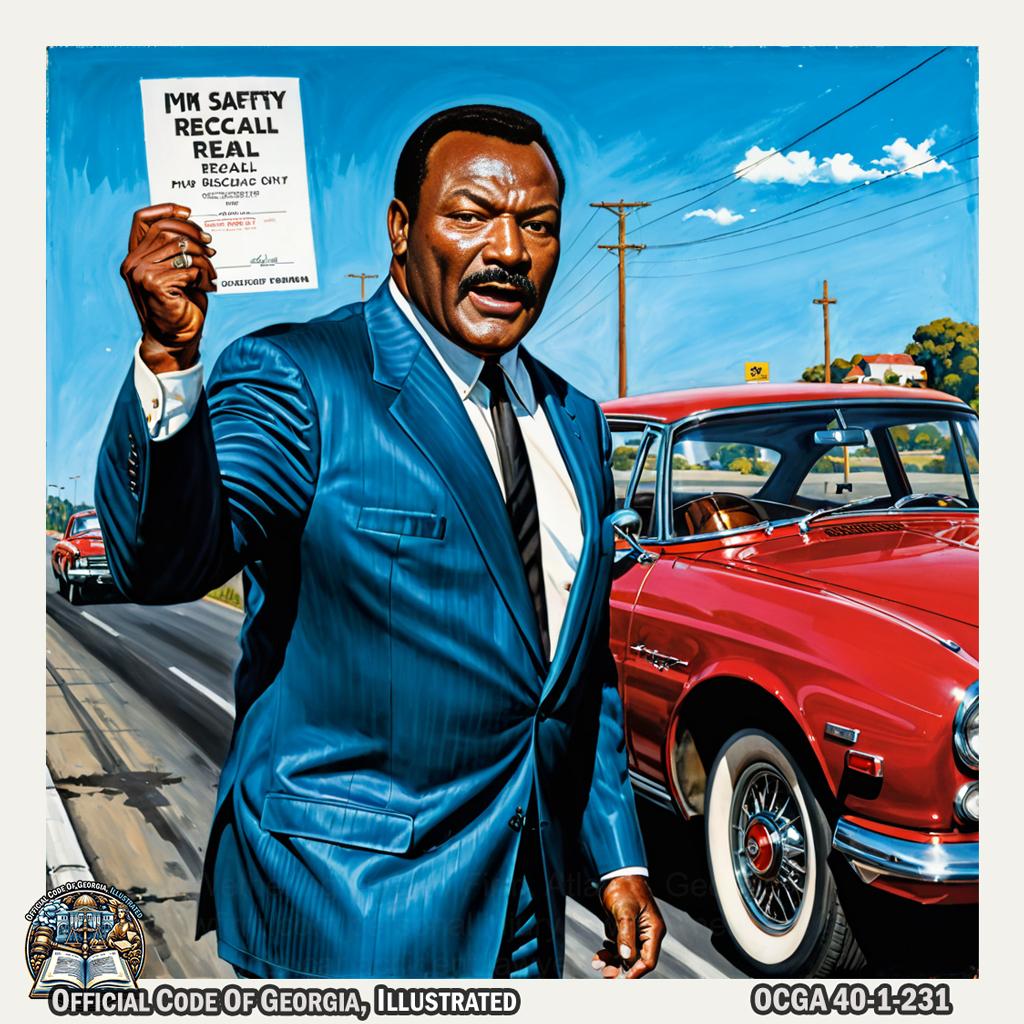
Jim Brown, in the style of Helmut Newton, dramatically gestures towards a vintage car while holding a safety recall notice, capturing the urgency and responsibility required by the shared vehicle owner to notify the peertopeer carsharing program for safety recall repairs. -@JimBrownNFL32